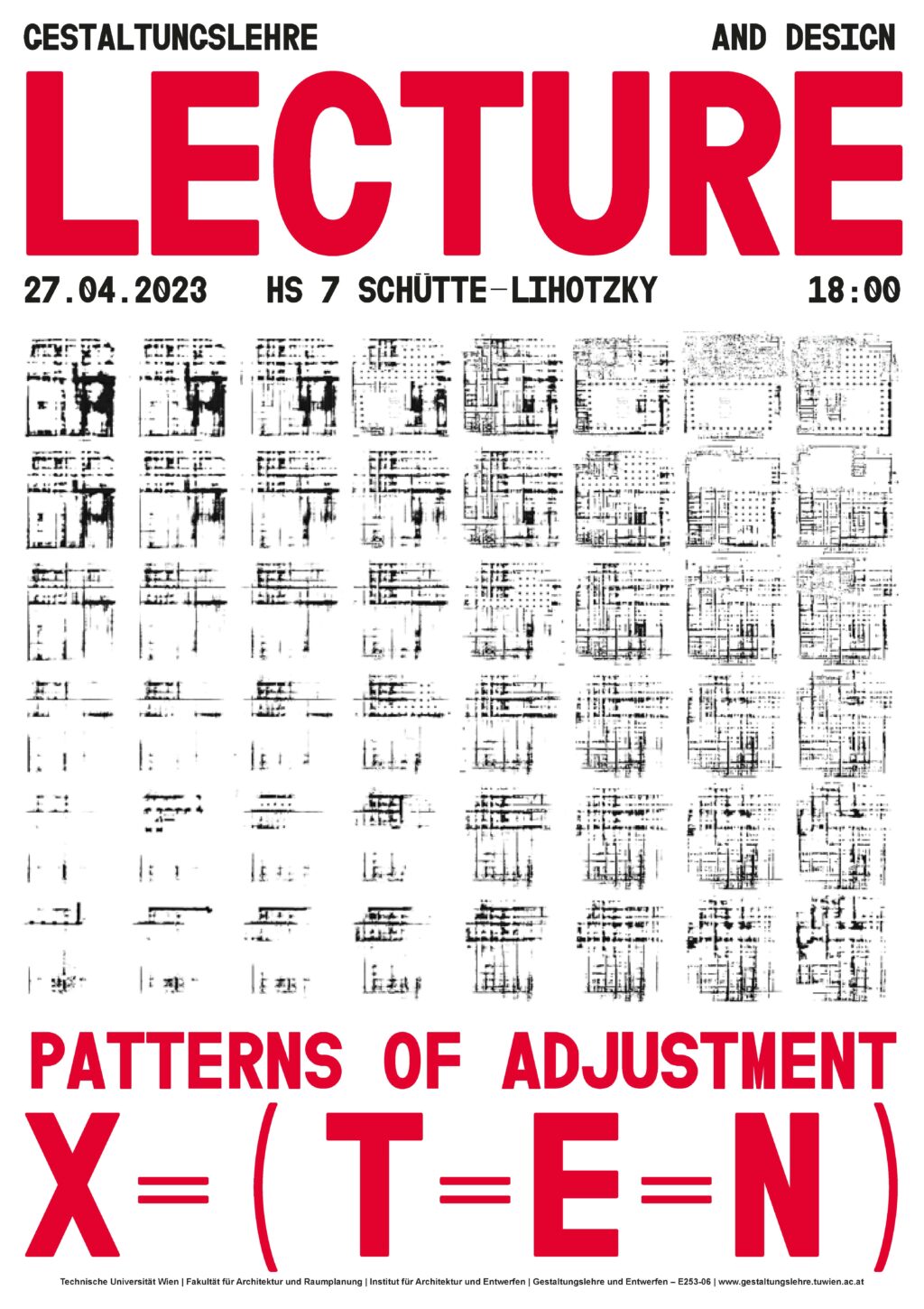

LECTURE:
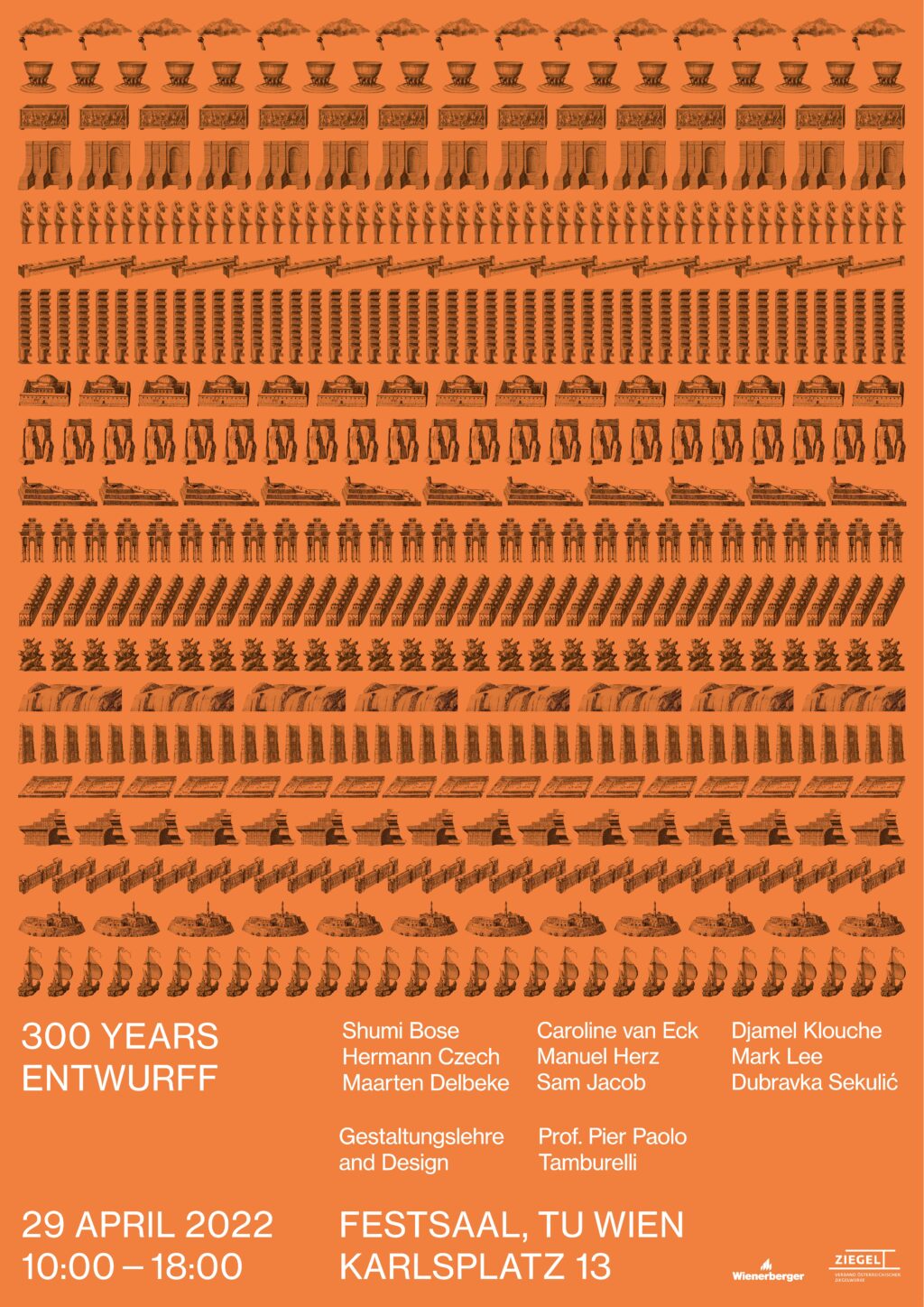
APR 29, 2022
10:00
Symposium:
300 Years EntwurfF
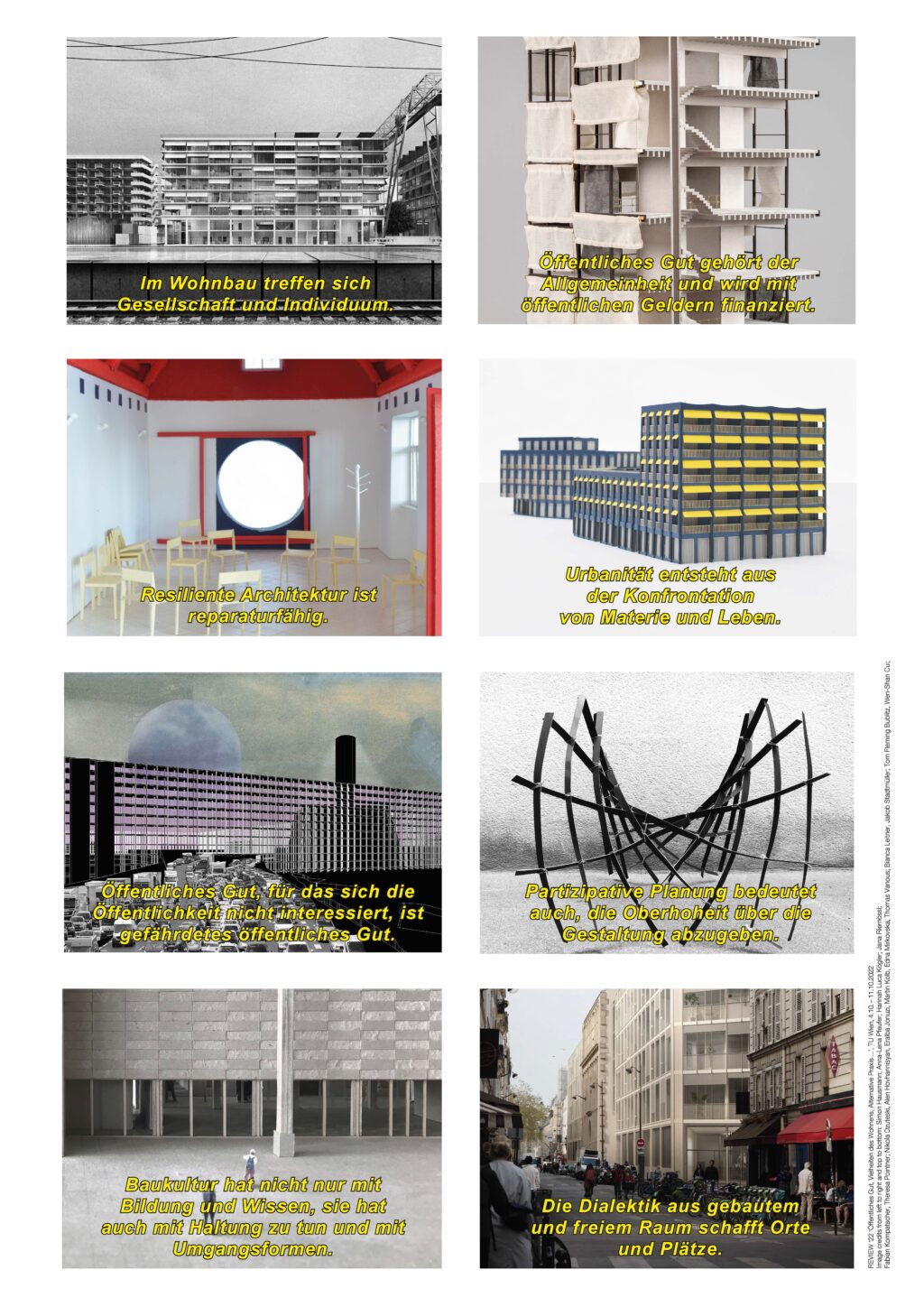
OCT 4, 2022
18:00
EXHIBITION:
REVIEW ‘22
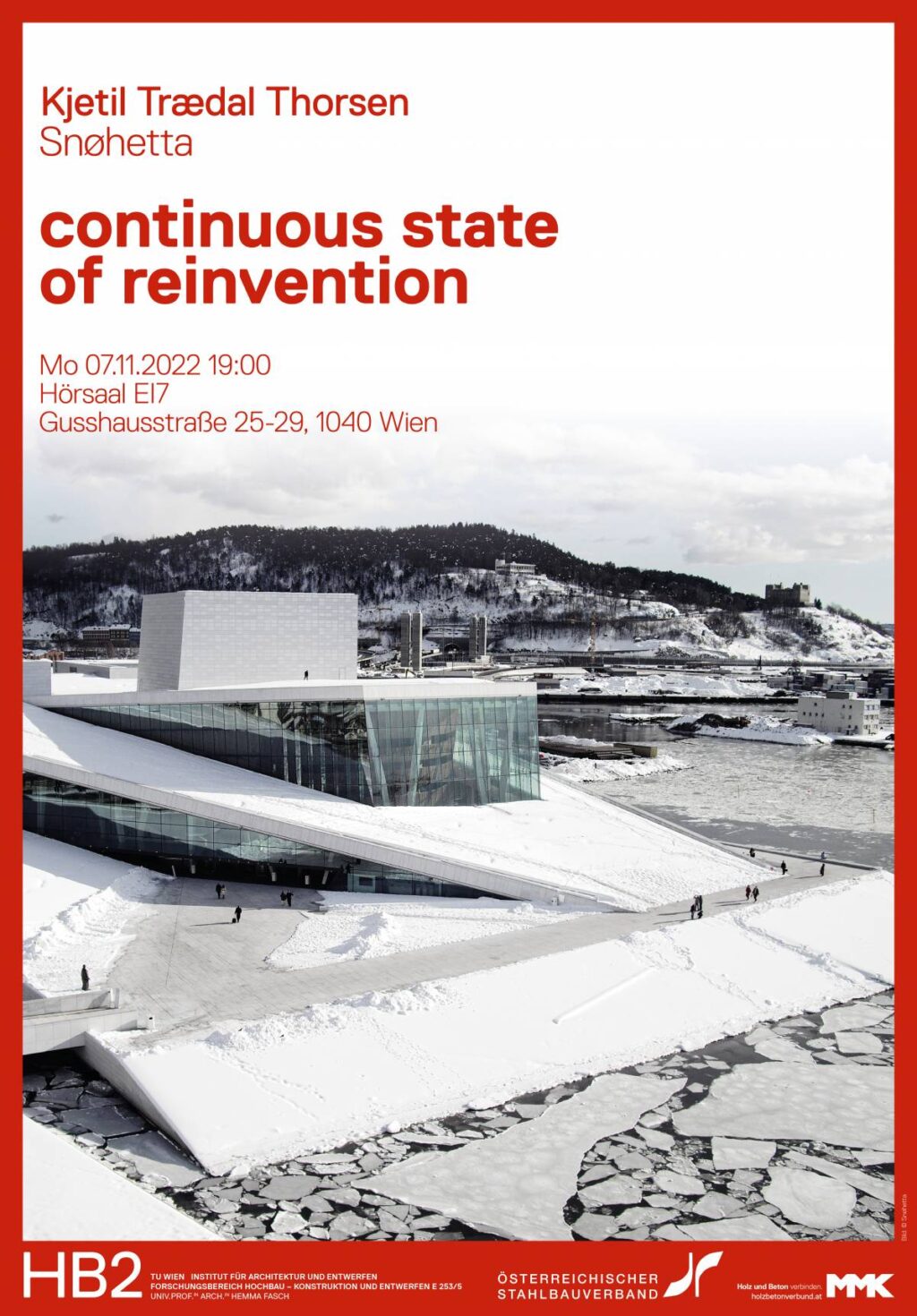
NOV 7, 2022
21:00
LECTURE:
Kjetil Trædal Thorsen, Snøhetta
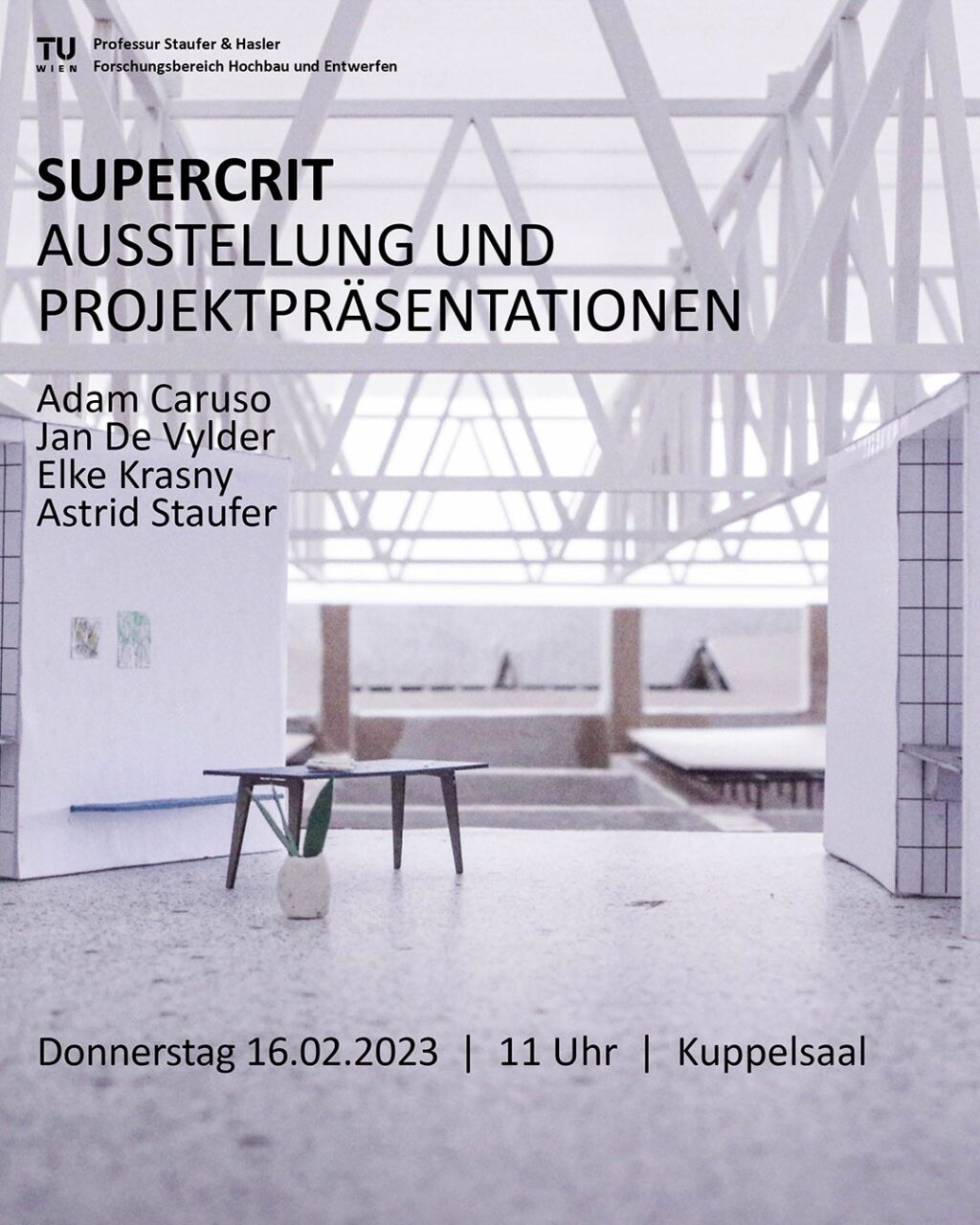
FEB 16, 2023
11:00
EXHIBITION & SUPERCRIT:
UMBAU IN DER LEHRE
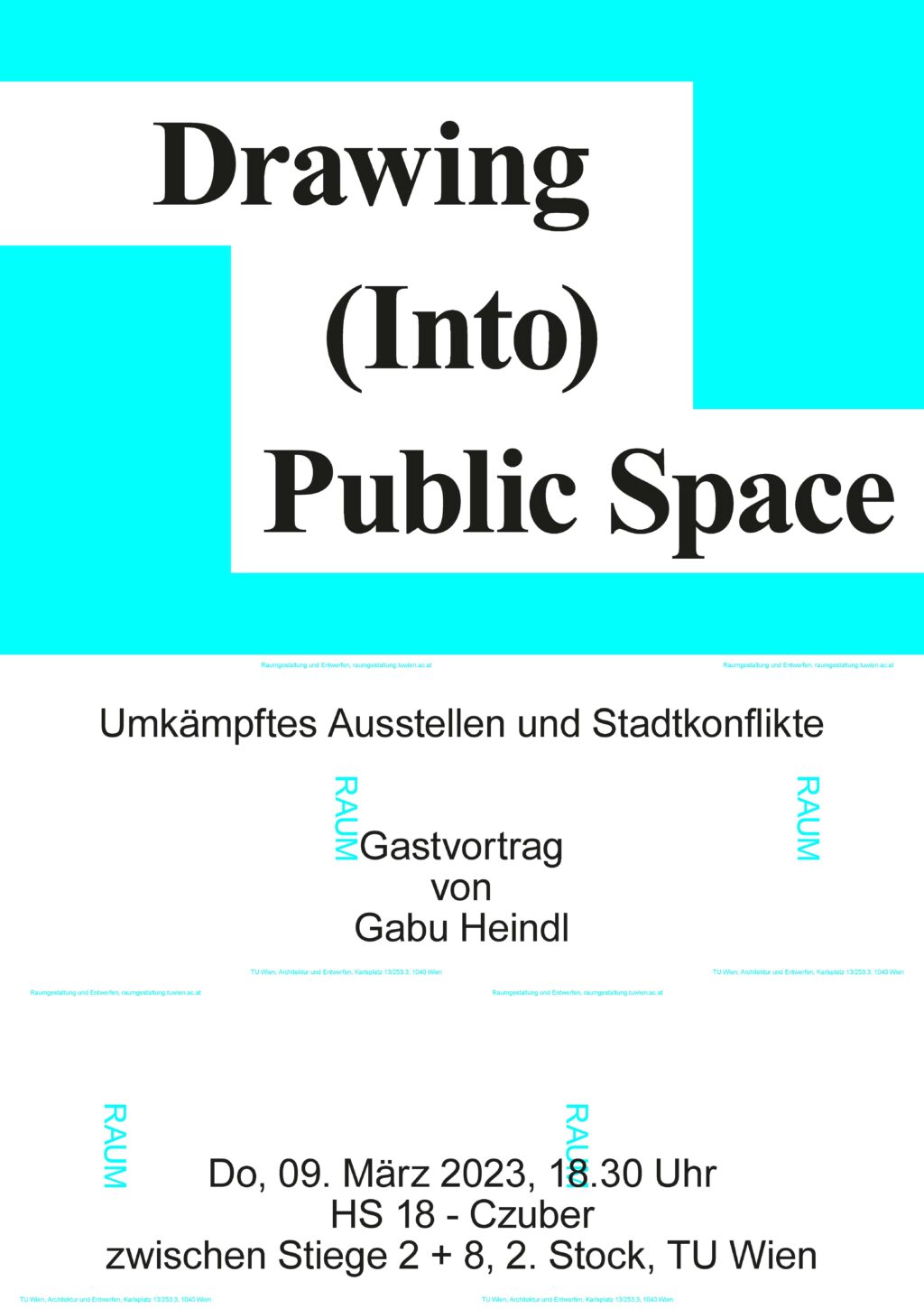
MAR 9, 2023
18:30
LECTURE:
GABU HEINDL
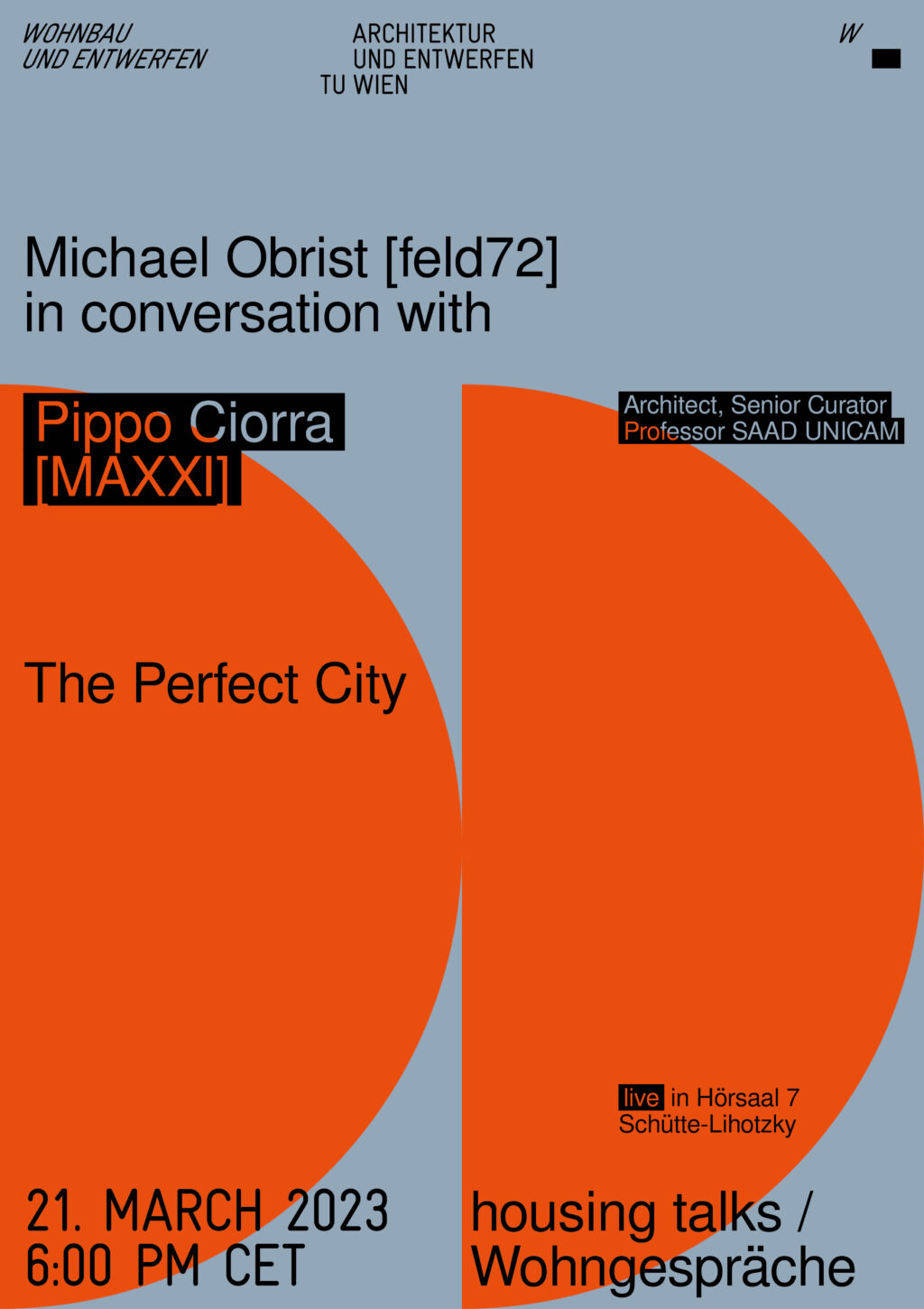
MAR 21, 2023
18:00
HOUSING TALKS:
PIPPO CIORRA, MAXXI
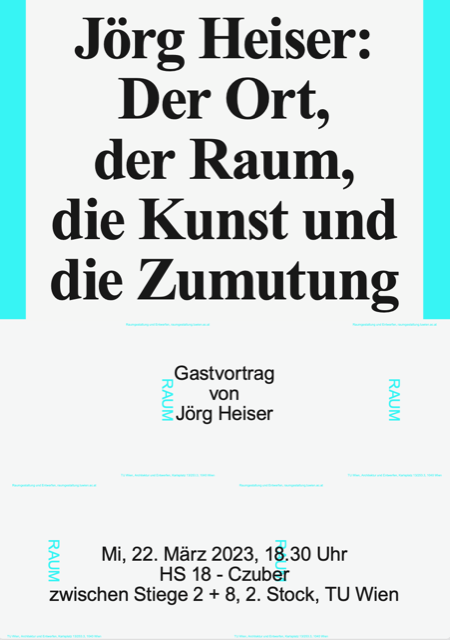
MAR 22, 2023
18:30
LECTURE:
JÖRG HEISER
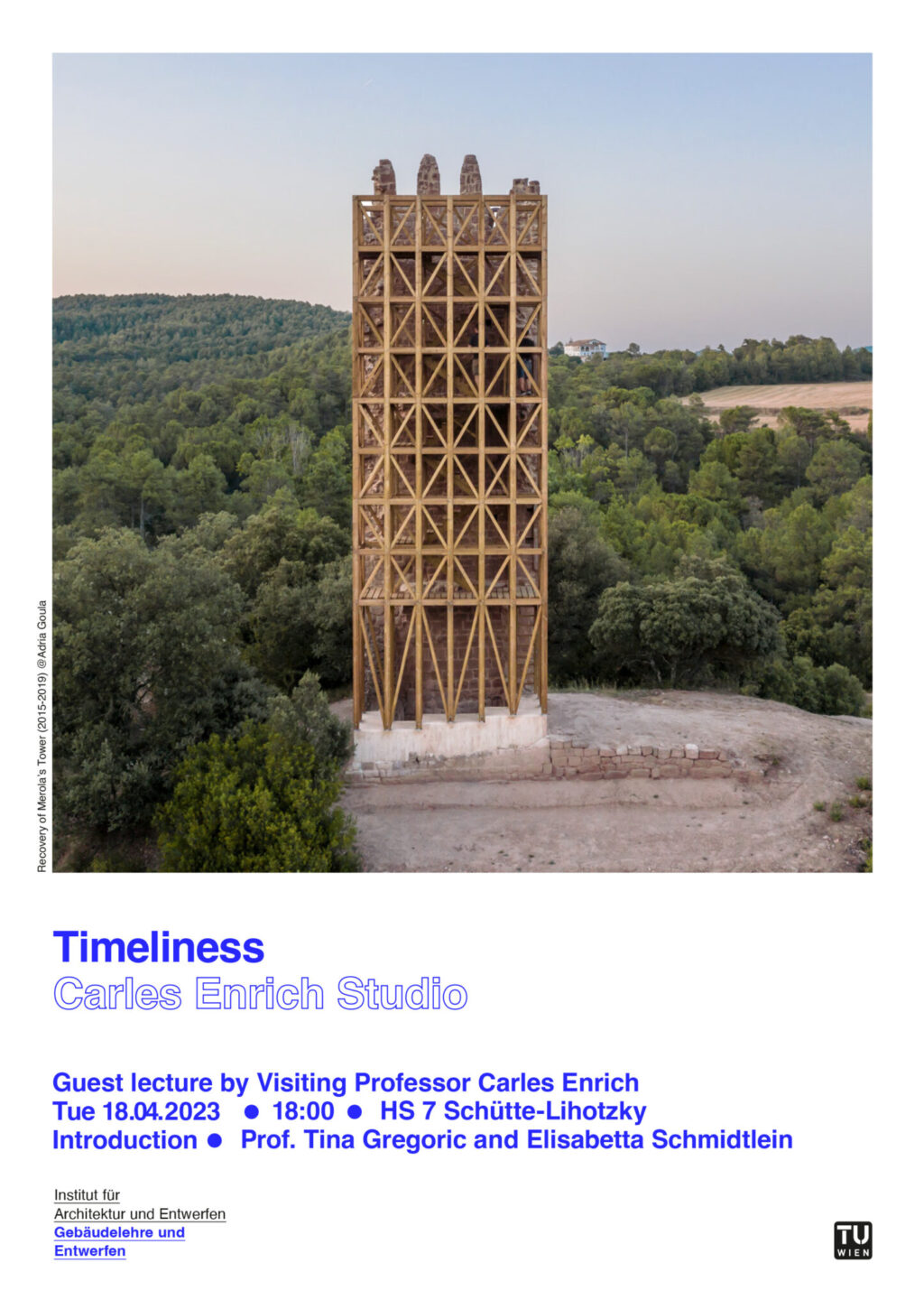
APR 18, 2023
18:00
LECTURE:
CARLES ENRICH
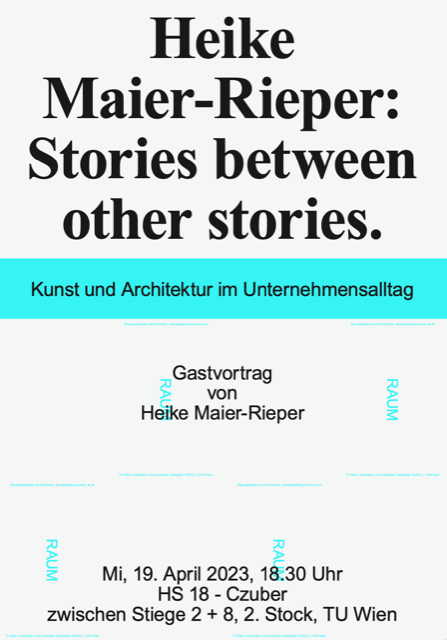
APR 19, 2023
18:30
LECTURE:
HEIKE MAIER-RIEPER
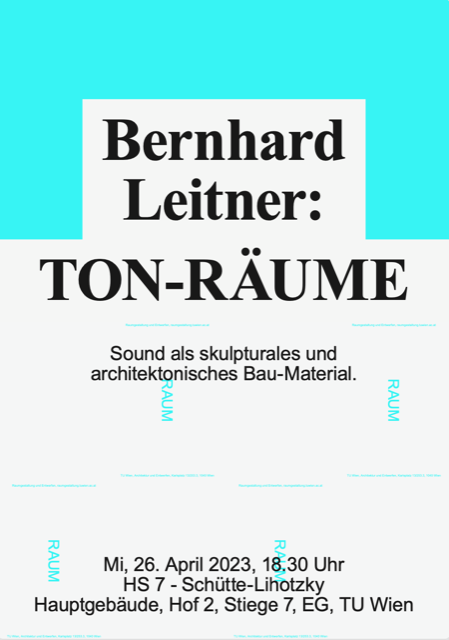
APR 26, 2023
18:30
LECTURE:
BERNHARD LEITNER
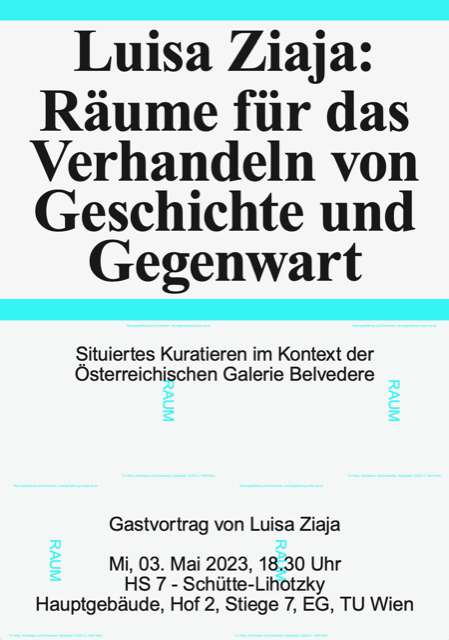
MAY 3, 2023
18:30
LECTURE:
LUISA ZIAJA
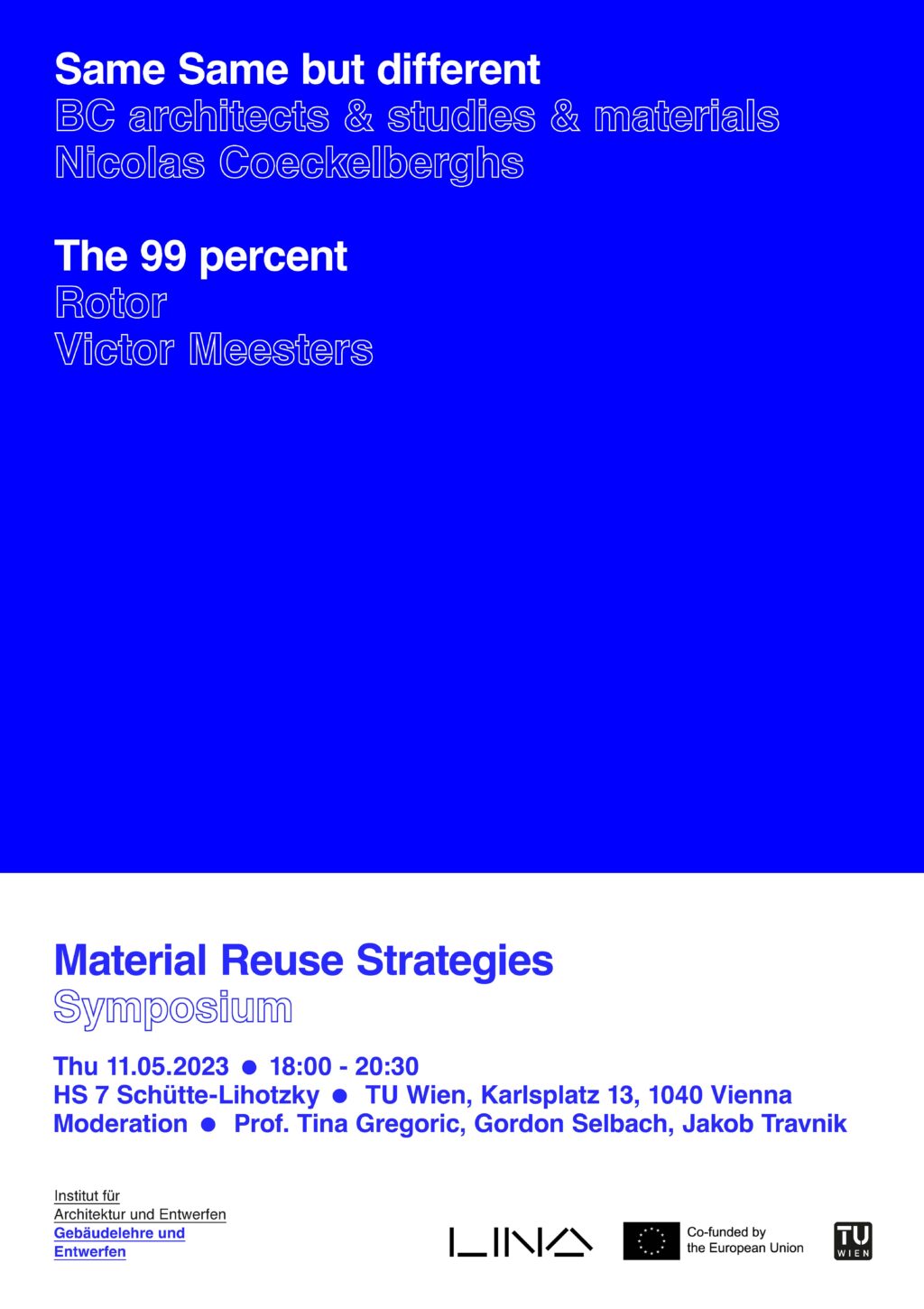
MAY 11, 2023
18:00
SYMPOSIUM:
MATERIAL REUSE STRATEGIES
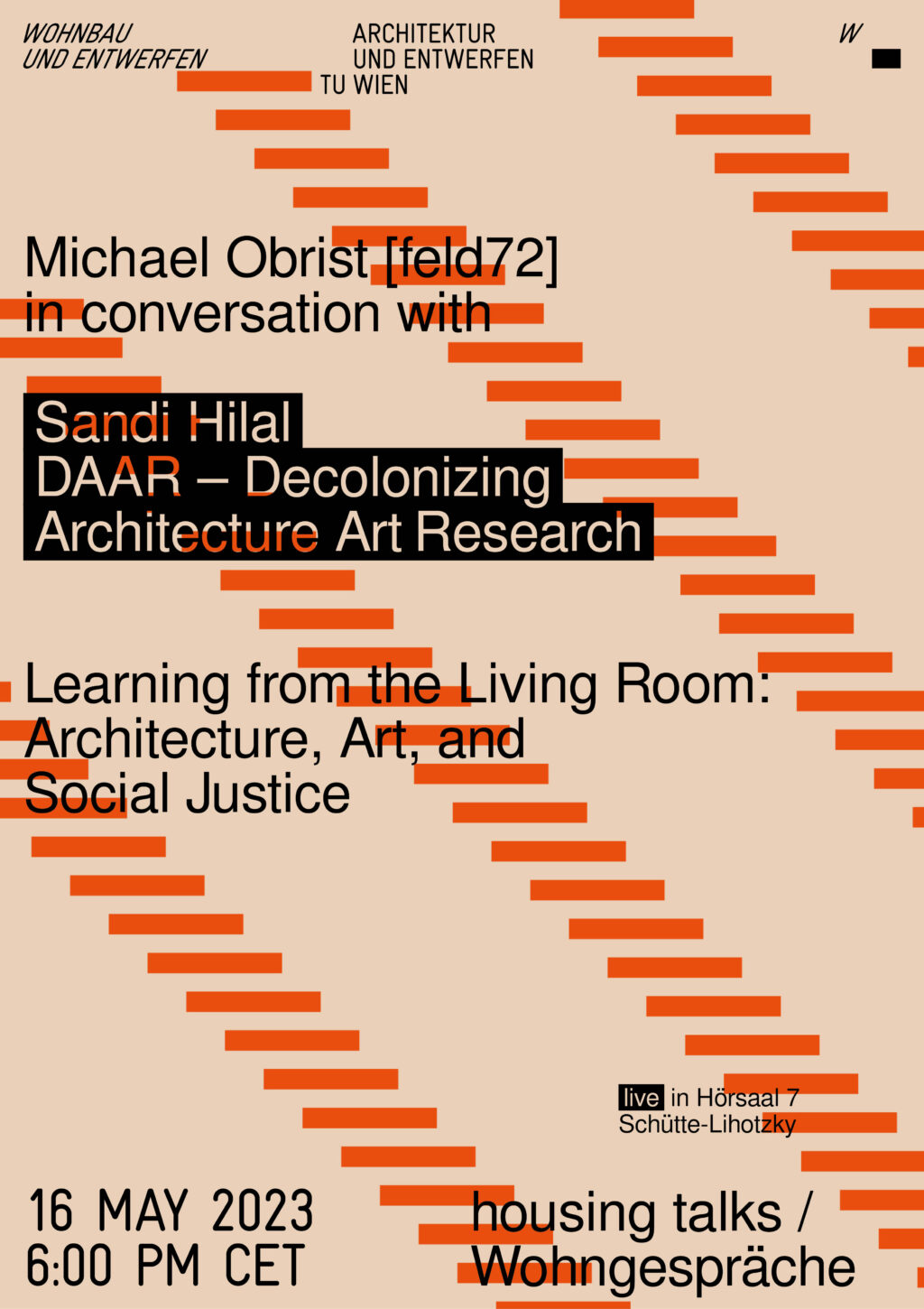
MAY 16, 2023
18:00
HOUSING TALKS:
SANDI HILAL
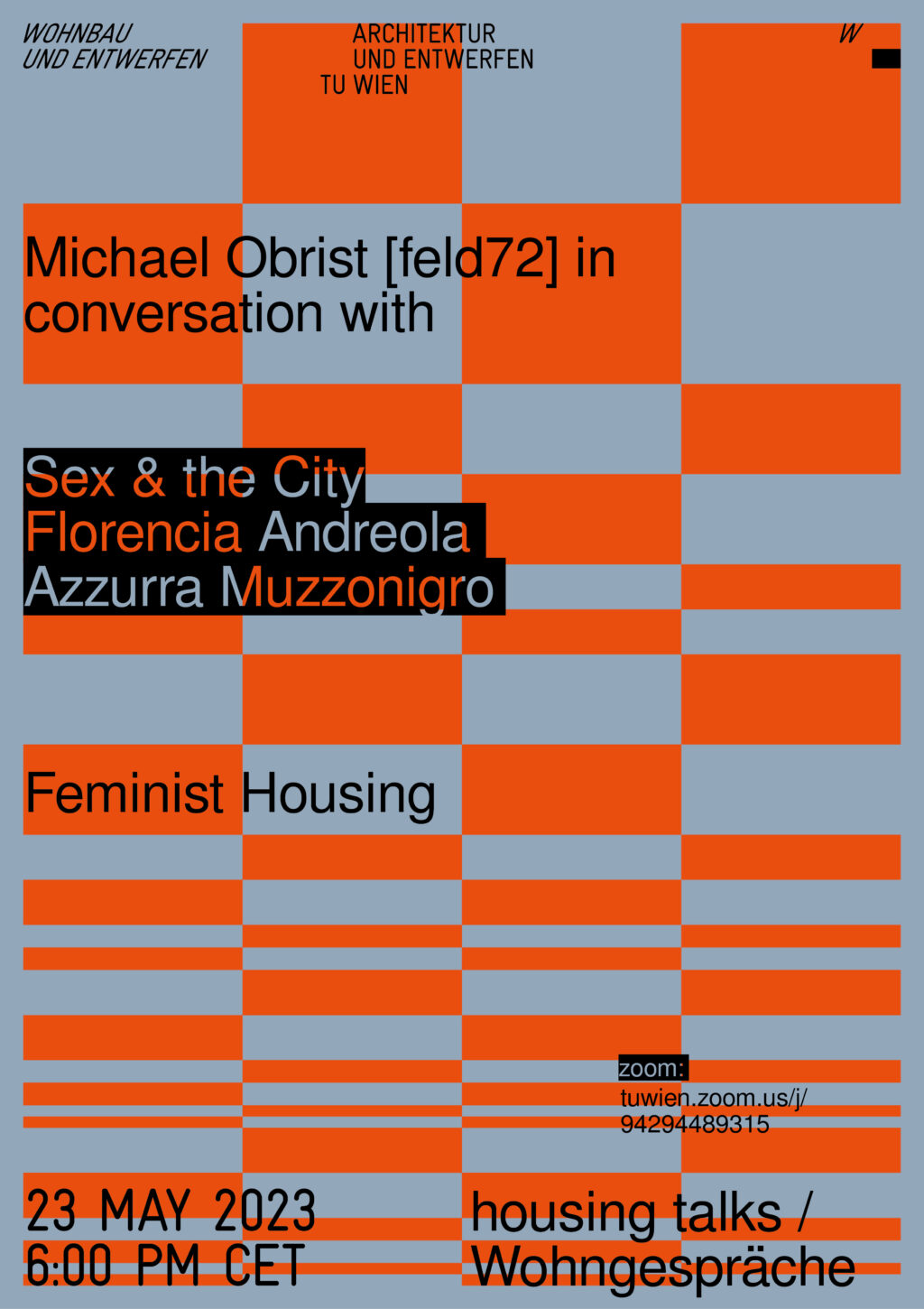
MAY 23, 2023
18:00
HOUSING TALKS:
FLORENCIA ANDREOLA, AZZURA MUZZONIGRO
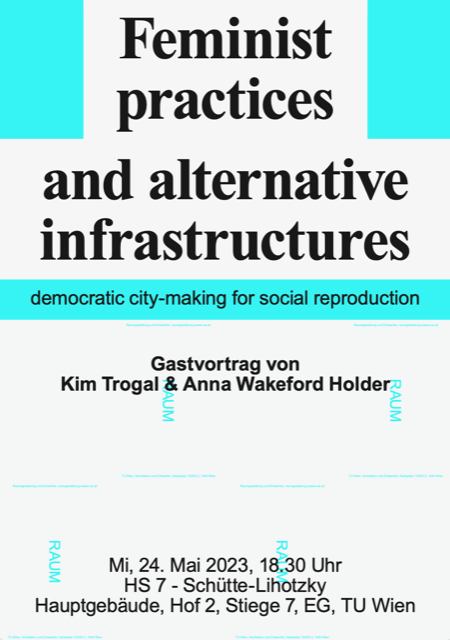
MAY 24, 2023
18:30
LECTURE:
KIM TROGAL & ANNA WAKEFORD HOLDER
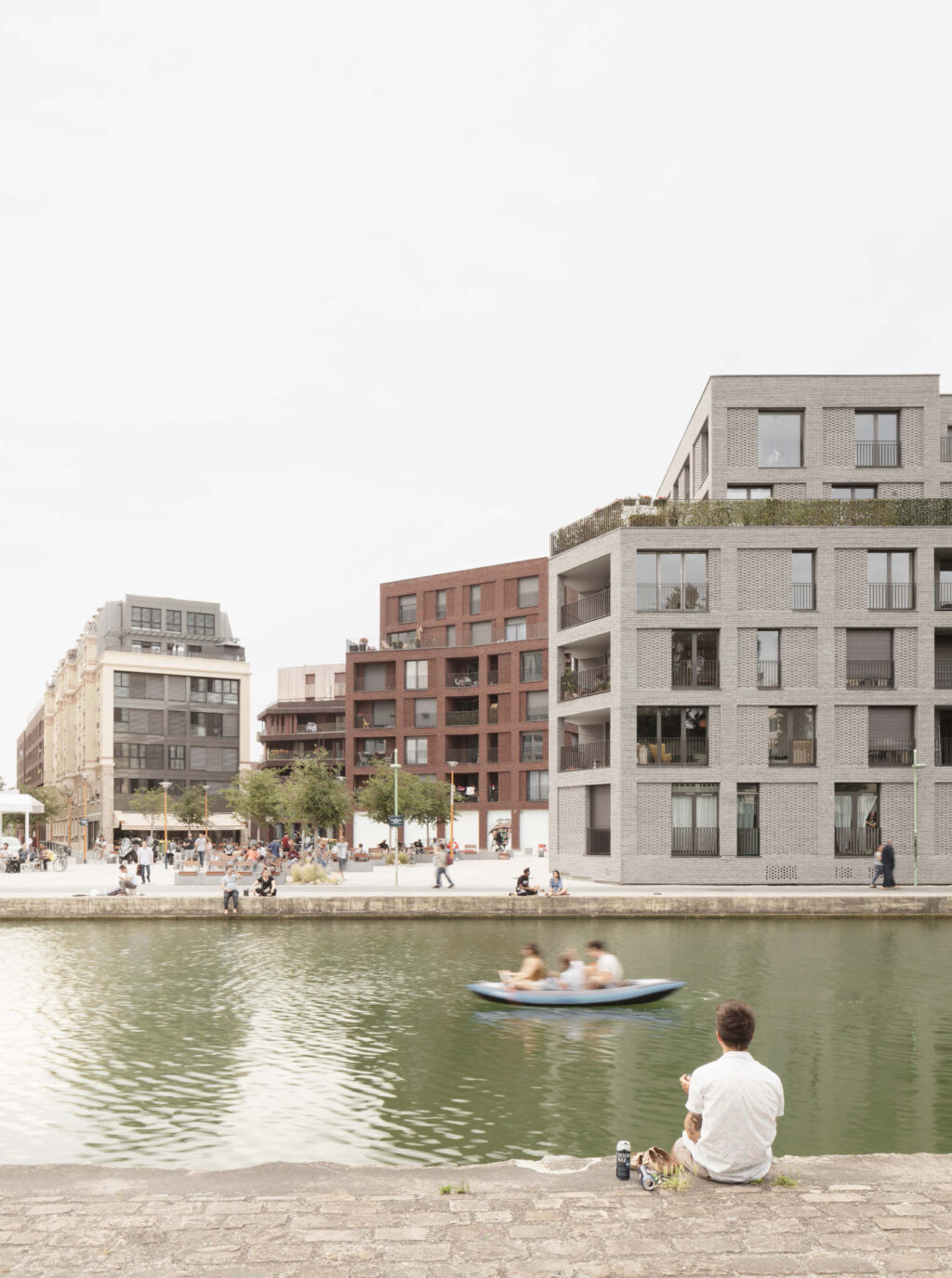
MAY 25, 2023
18:00
LECTURE:
AVENIER CORNEJO ARCHITECTS
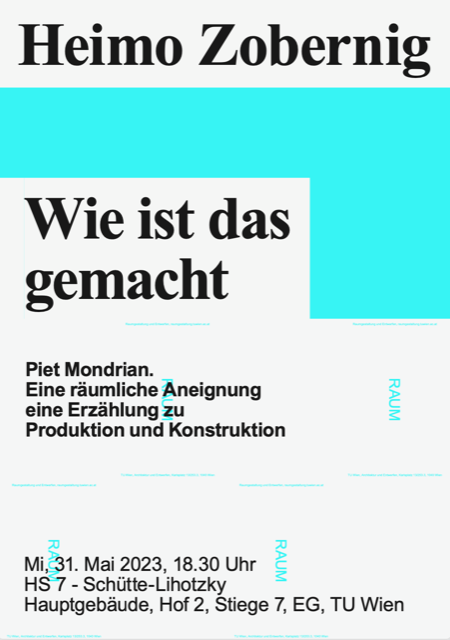
MAY 31, 2023
18:30
LECTURE:
HEIMO ZOBERNIG
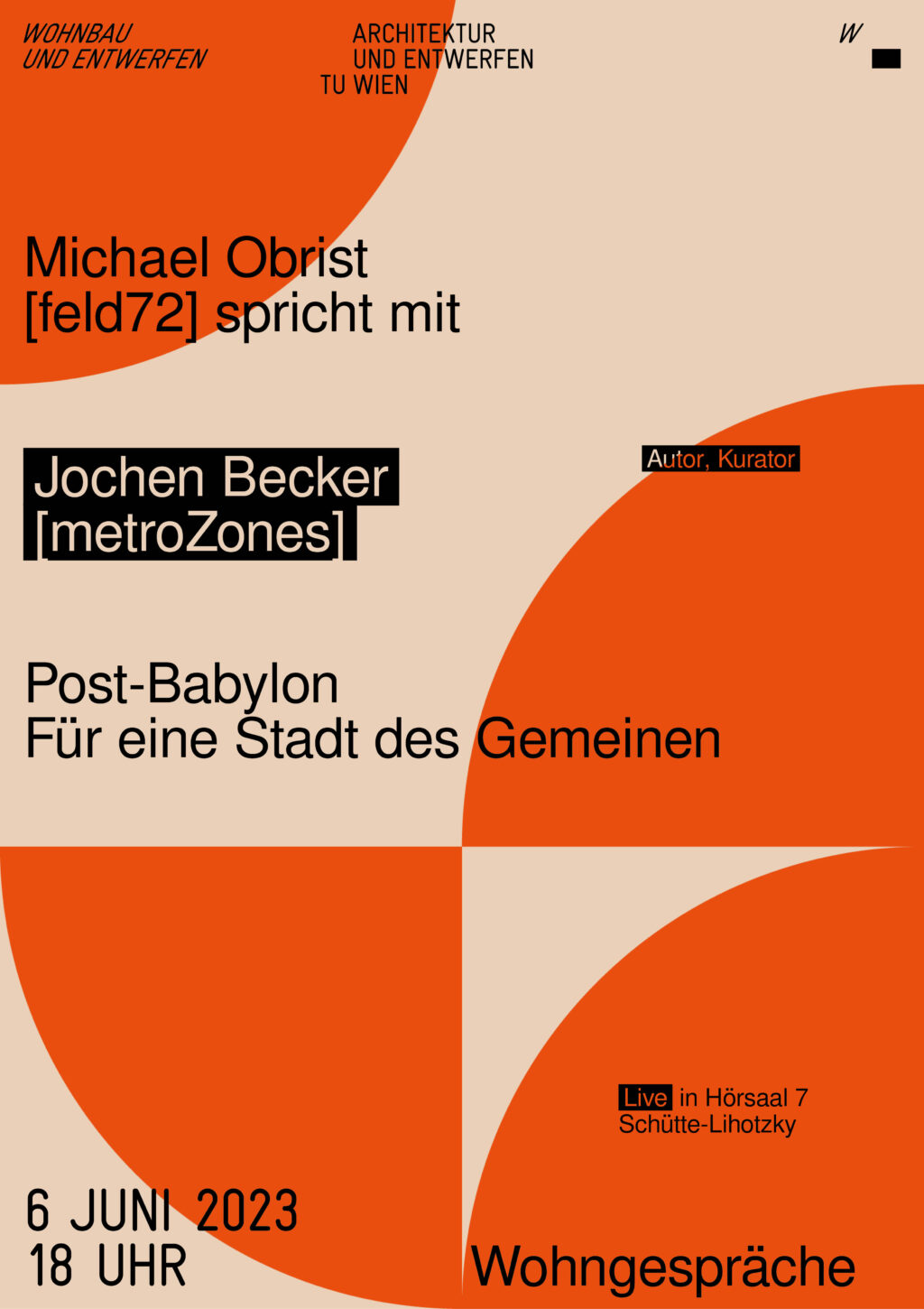
JUN 6, 2023
18:00
HOUSING TALKS:
JOCHEN BECKER, METROZONES
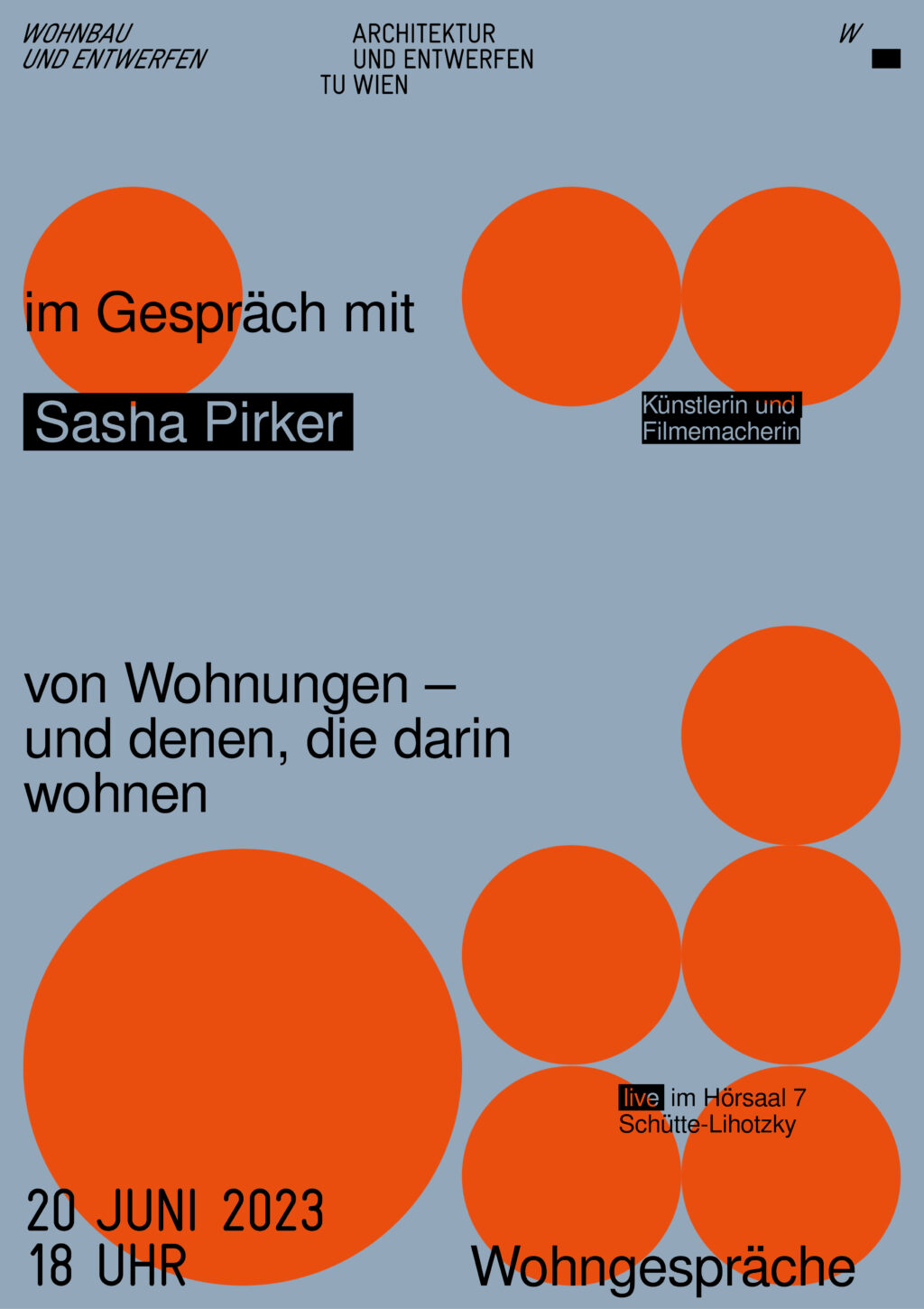
JUN 20, 2023
18:00
HOUSING TALKS:
SASHA PIRKER
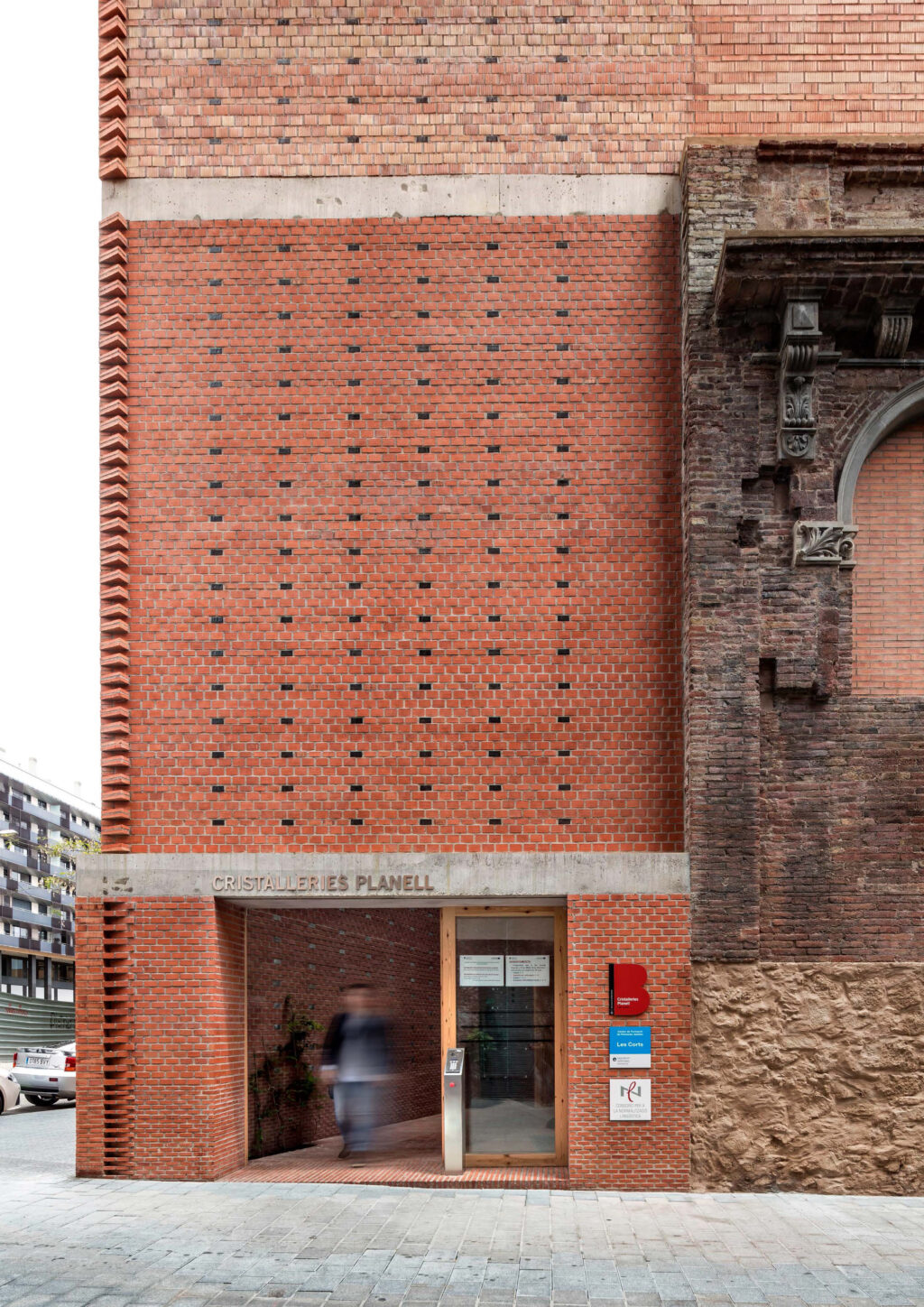
JUN 26, 2023
18:00
LECTURE:
JOSEP RICART, HARQUITECTES
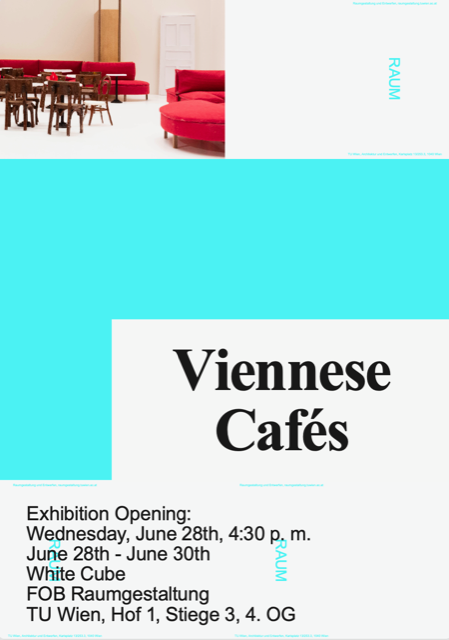
JUN 28, 2023
16:30
EXHIBITION:
VIENNESE CAFÉS: PUBLIC INTERIOR, URBAN SALON
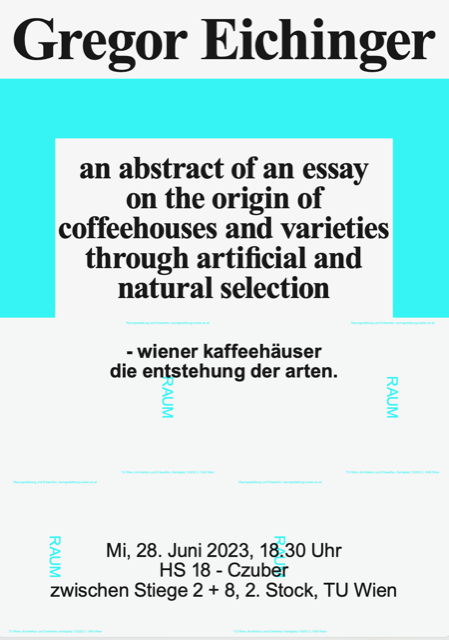
JUN 28, 2023
18:30
LECTURE:
GREGOR EICHINGER
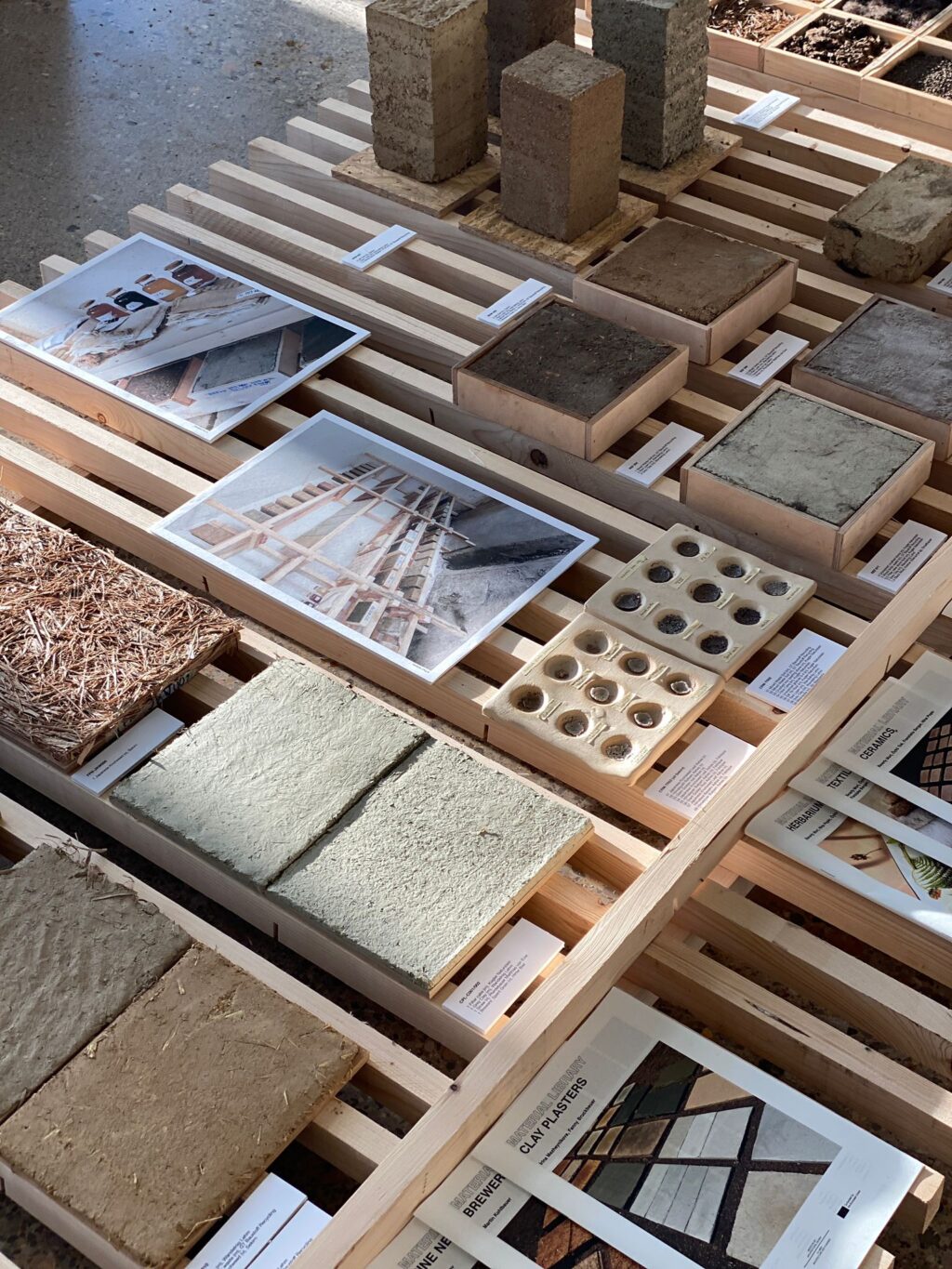
SEP 27, 2023
18:00
EXHIBITION:
Bioregionale Strategien der Wieder- verwendung
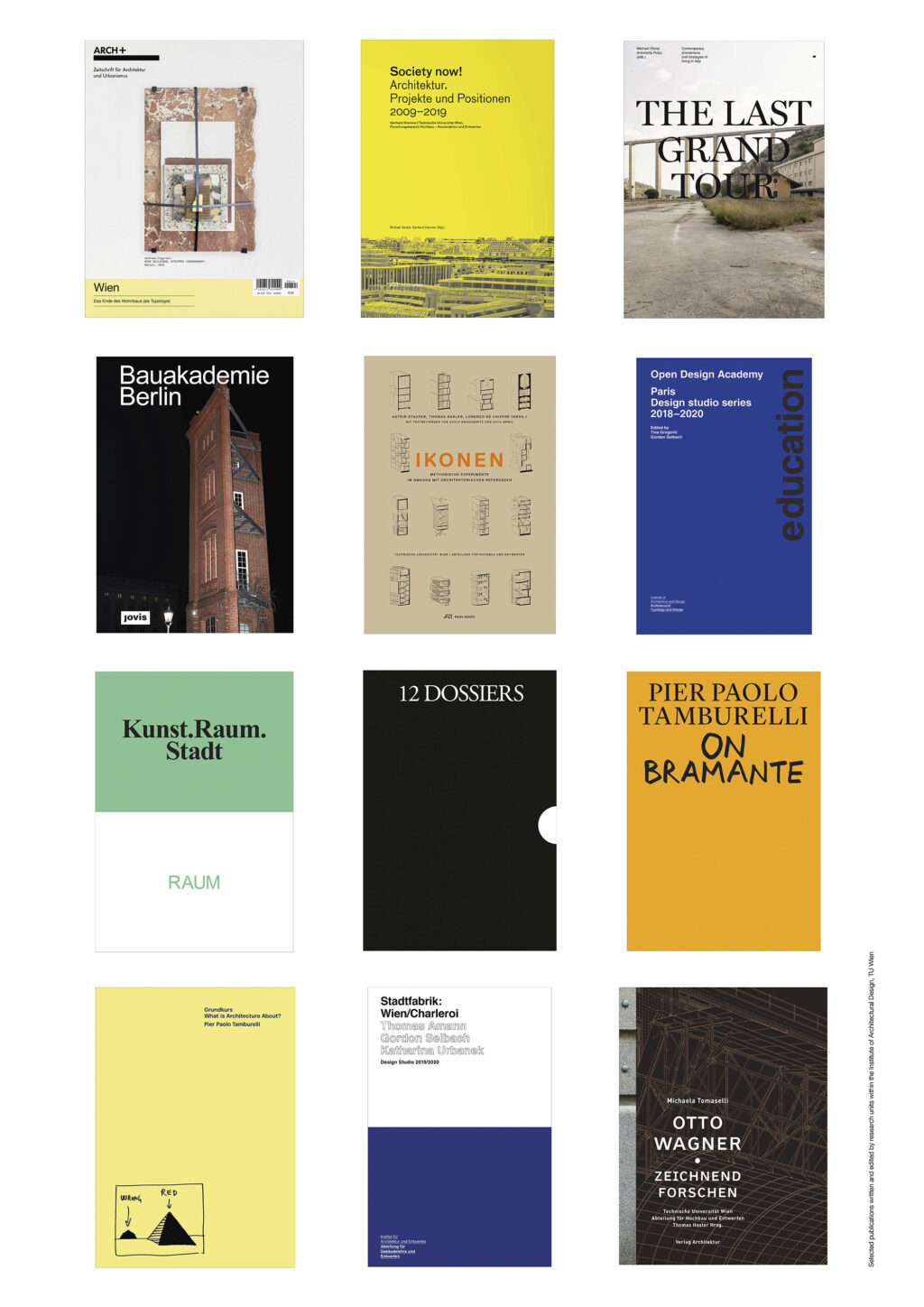
OCT 11, 2023
18:00
PRESENTATION & DISCUSSION:
WEBSITE LAUNCH & TALK ON PUBLICATIONS
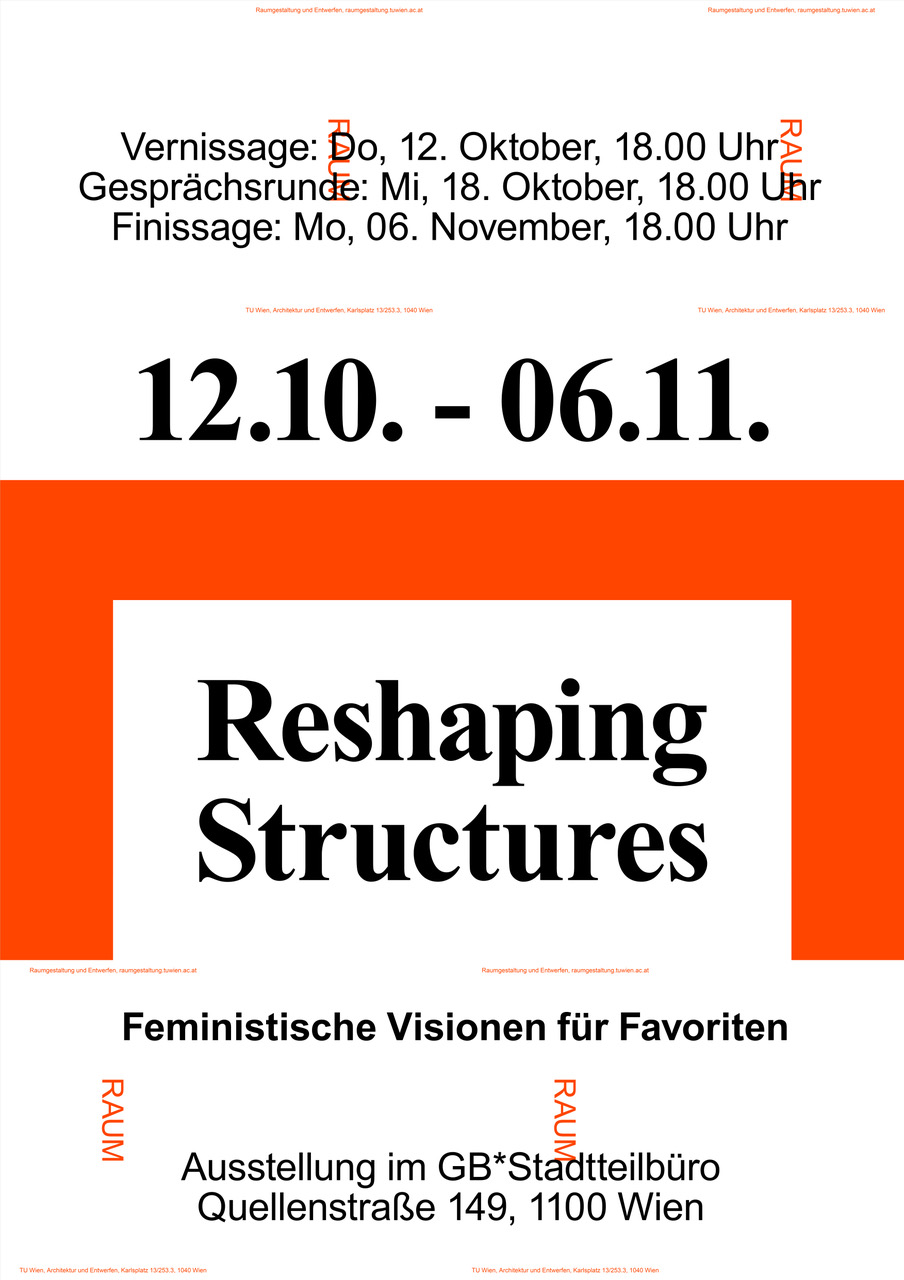
OCT 12, 2023
18:00
EXHIBITION:
RESHAPING STRUCTURES
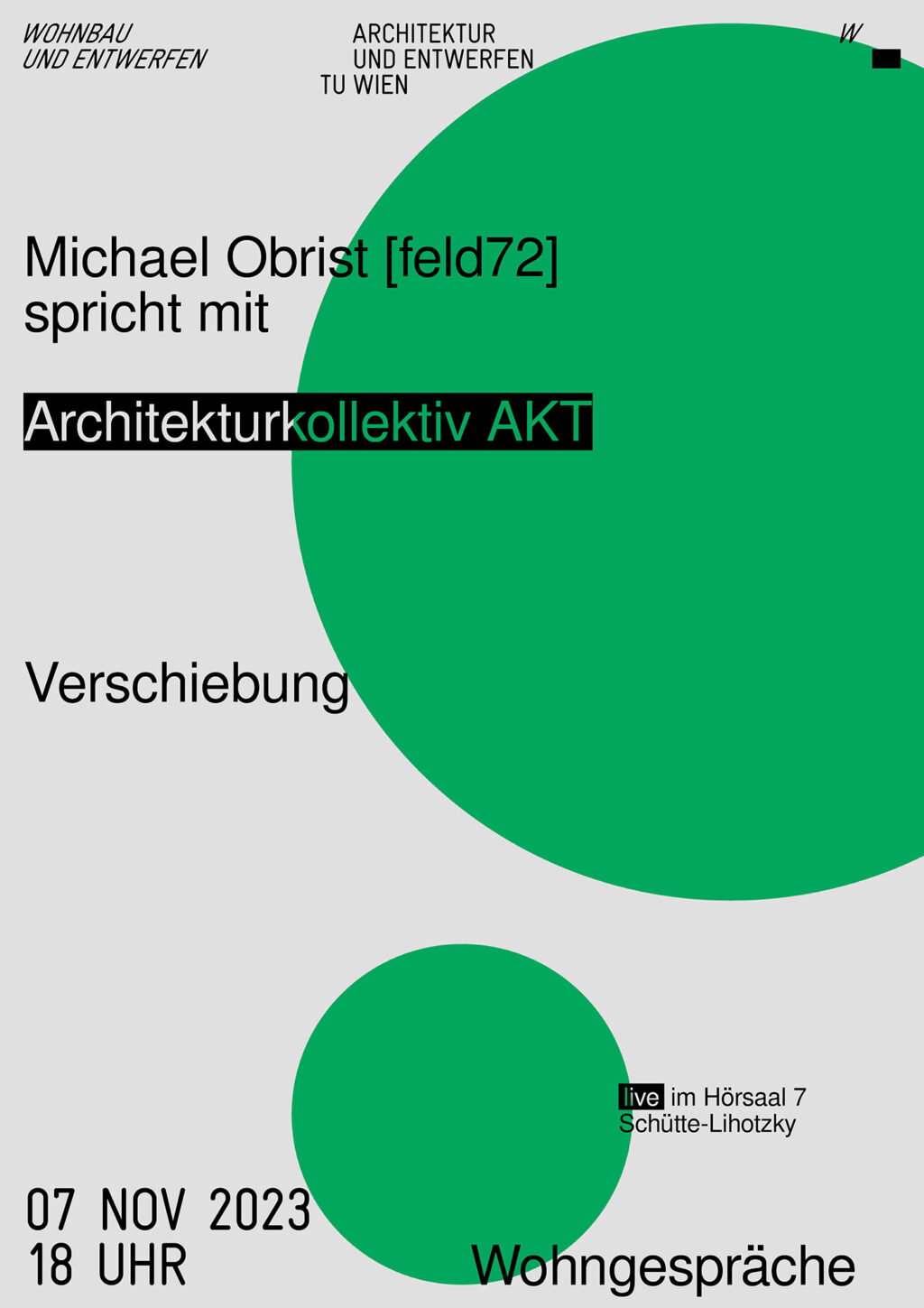
NOV 7, 2023
18:00
HOUSING TALKS:
ARCHITEKTUR-
KOLLEKTIV AKT
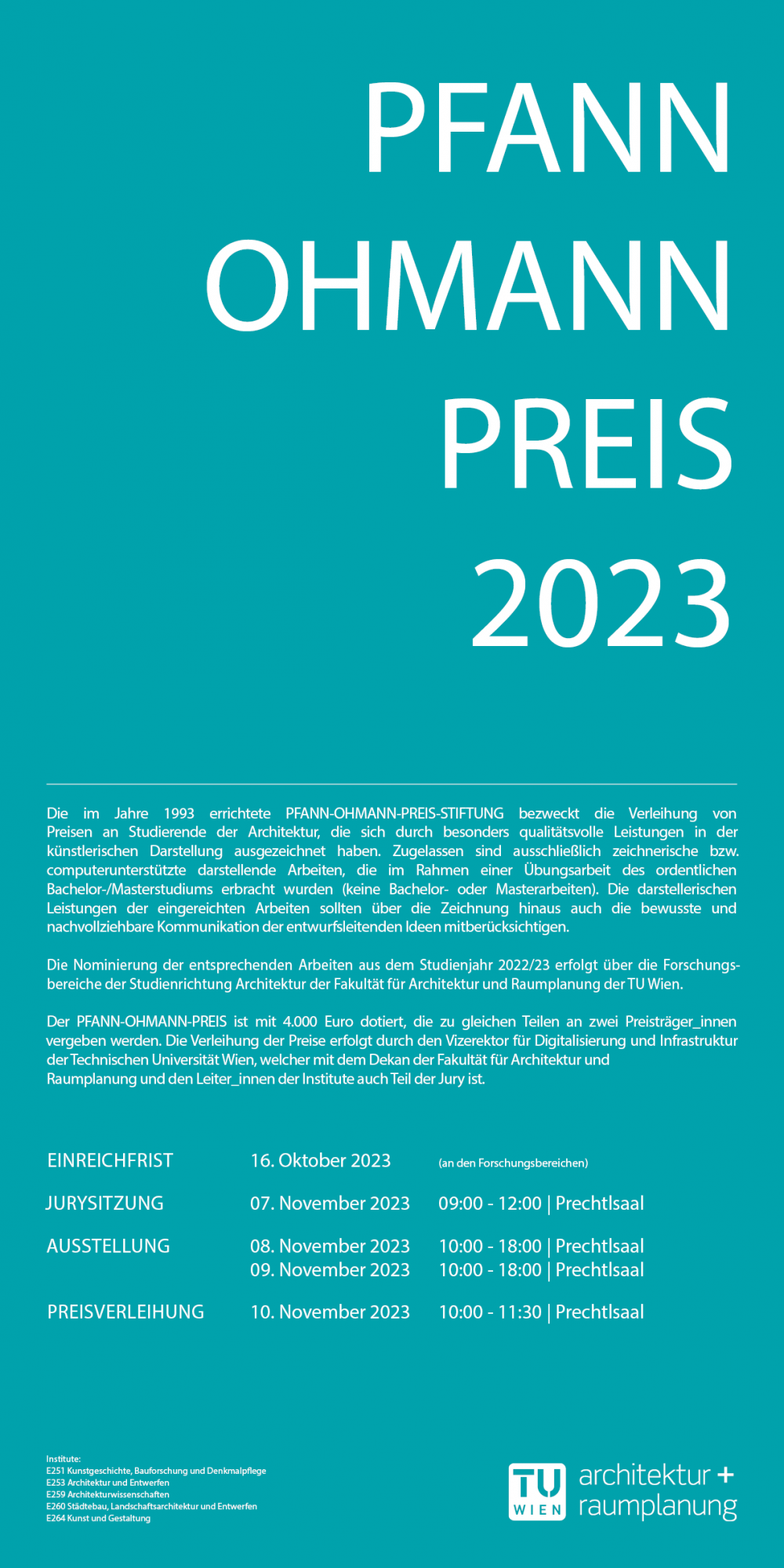
NOV 10, 2023
10:00
EXHIBITION:
PFANN-OHMANN-PREIS 2023
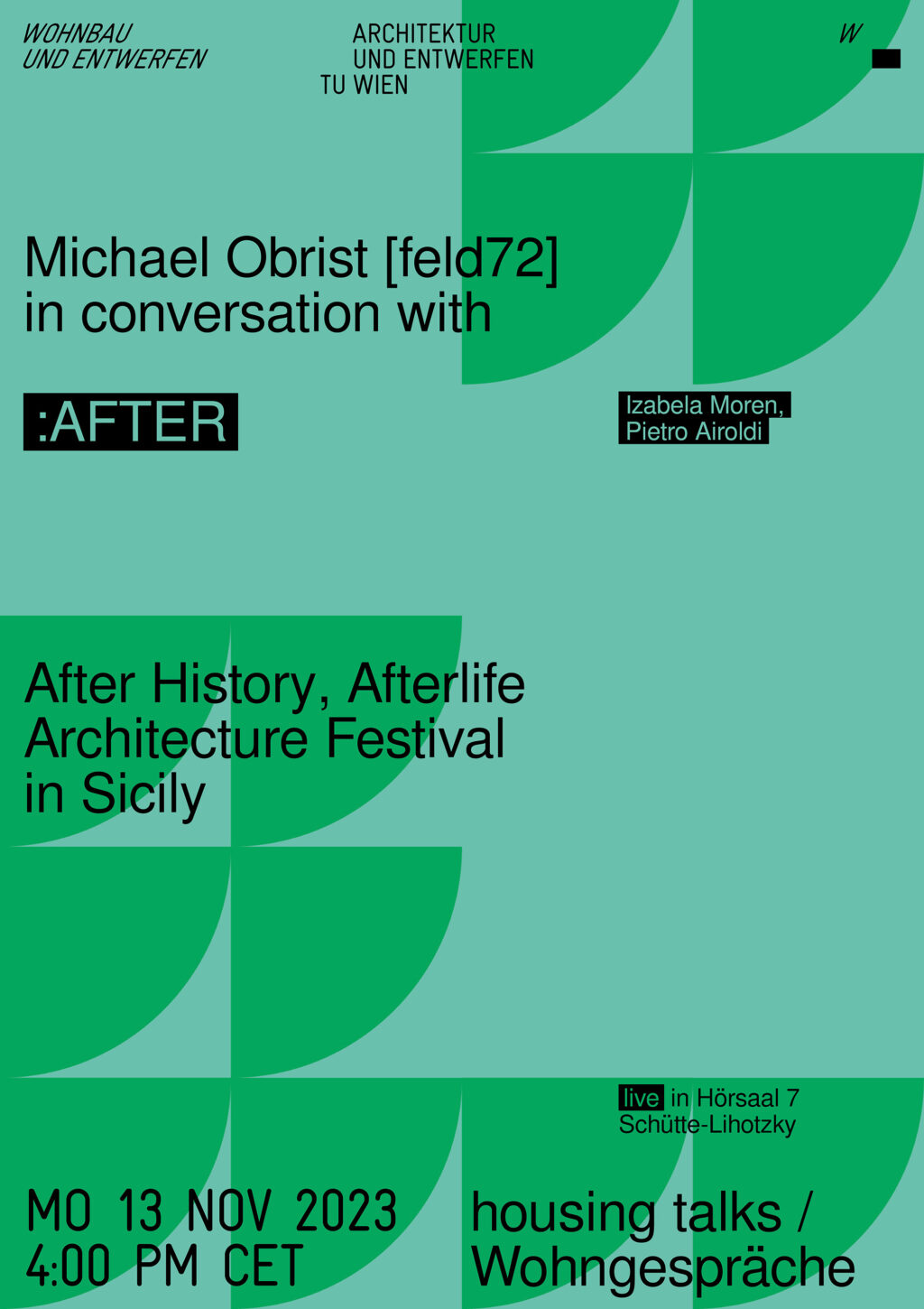
NOV 13, 2023
16:00
HOUSING TALKS:
IZABELA MOREN, PIETRO AIROLDI
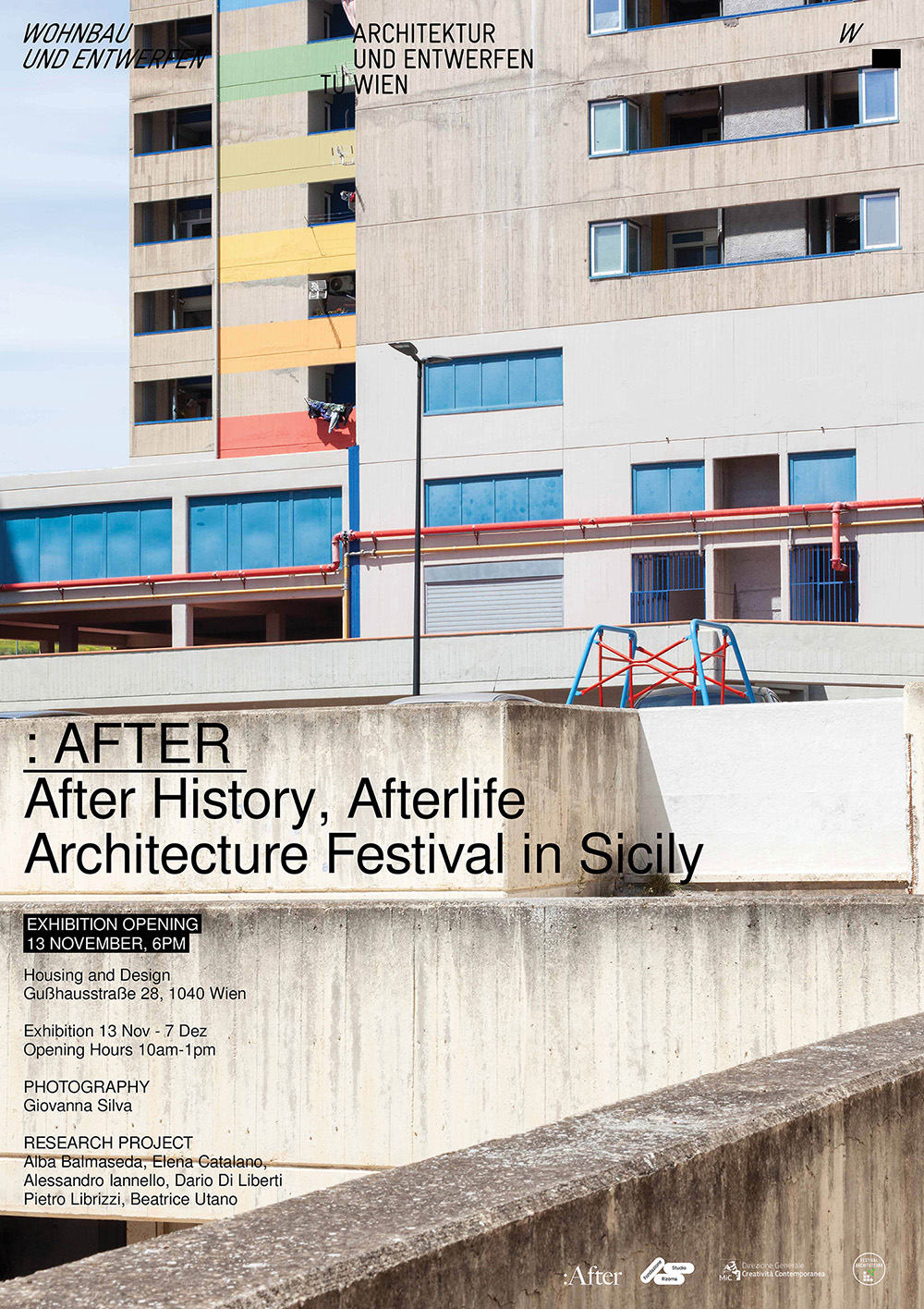
NOV 13, 2023
18:00
EXHIBITION:
MODERNITY SOUTH SOUTH
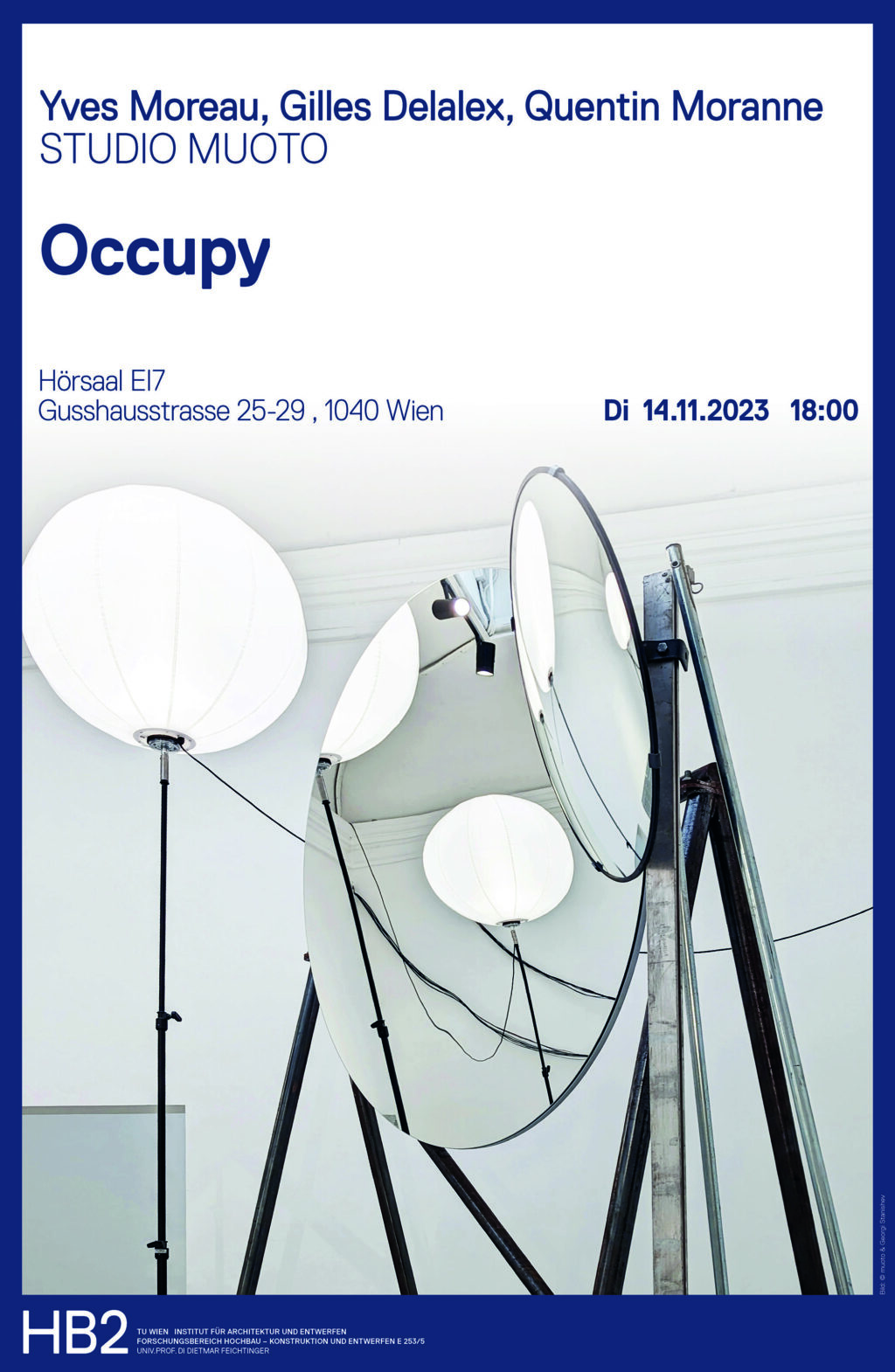
NOV 14, 2023
18:00
LECTURE:
STUDIO MUOTO
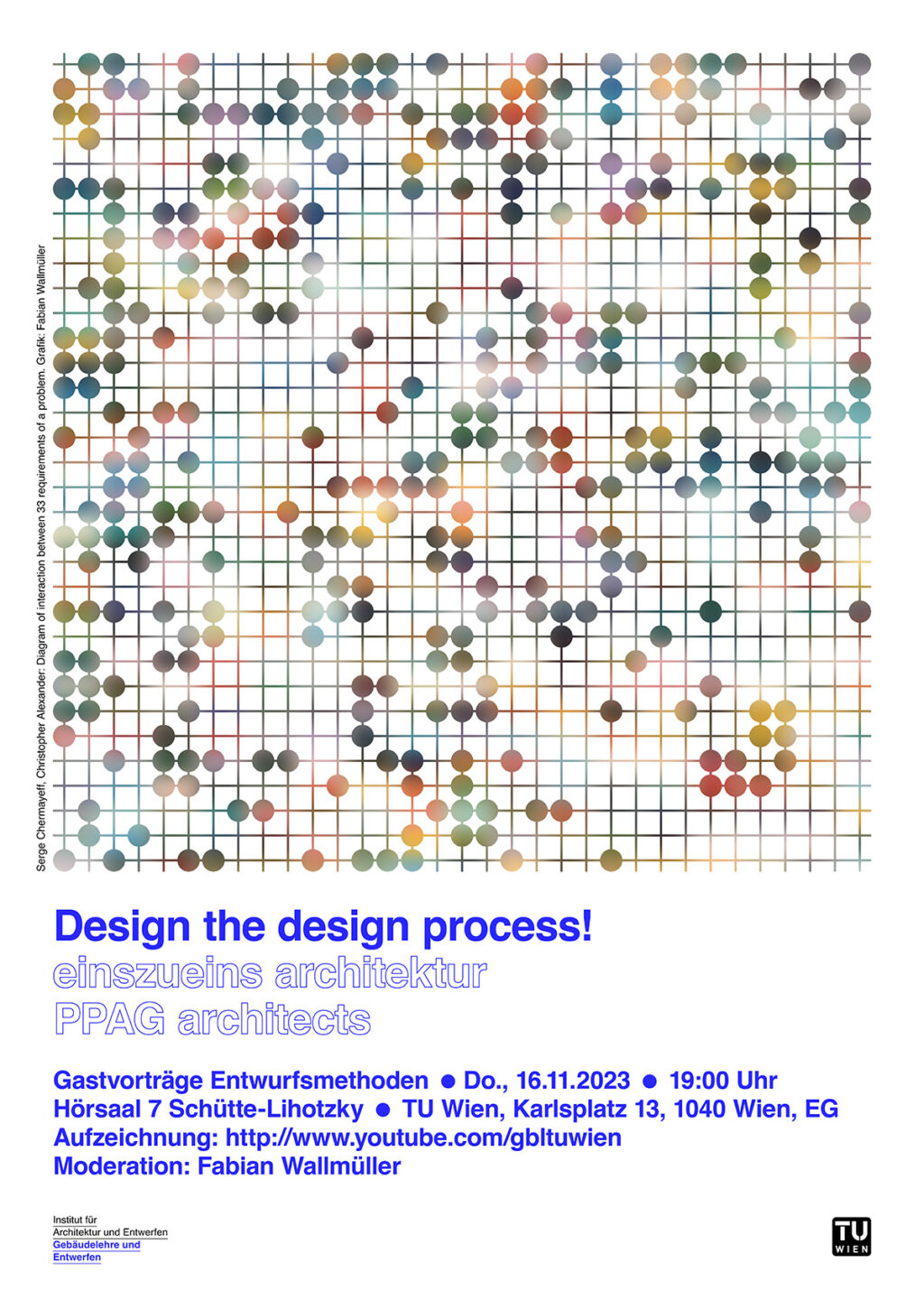
NOV 16, 2023
19:00
LECTURE:
einszueins architektur, PPAG architects
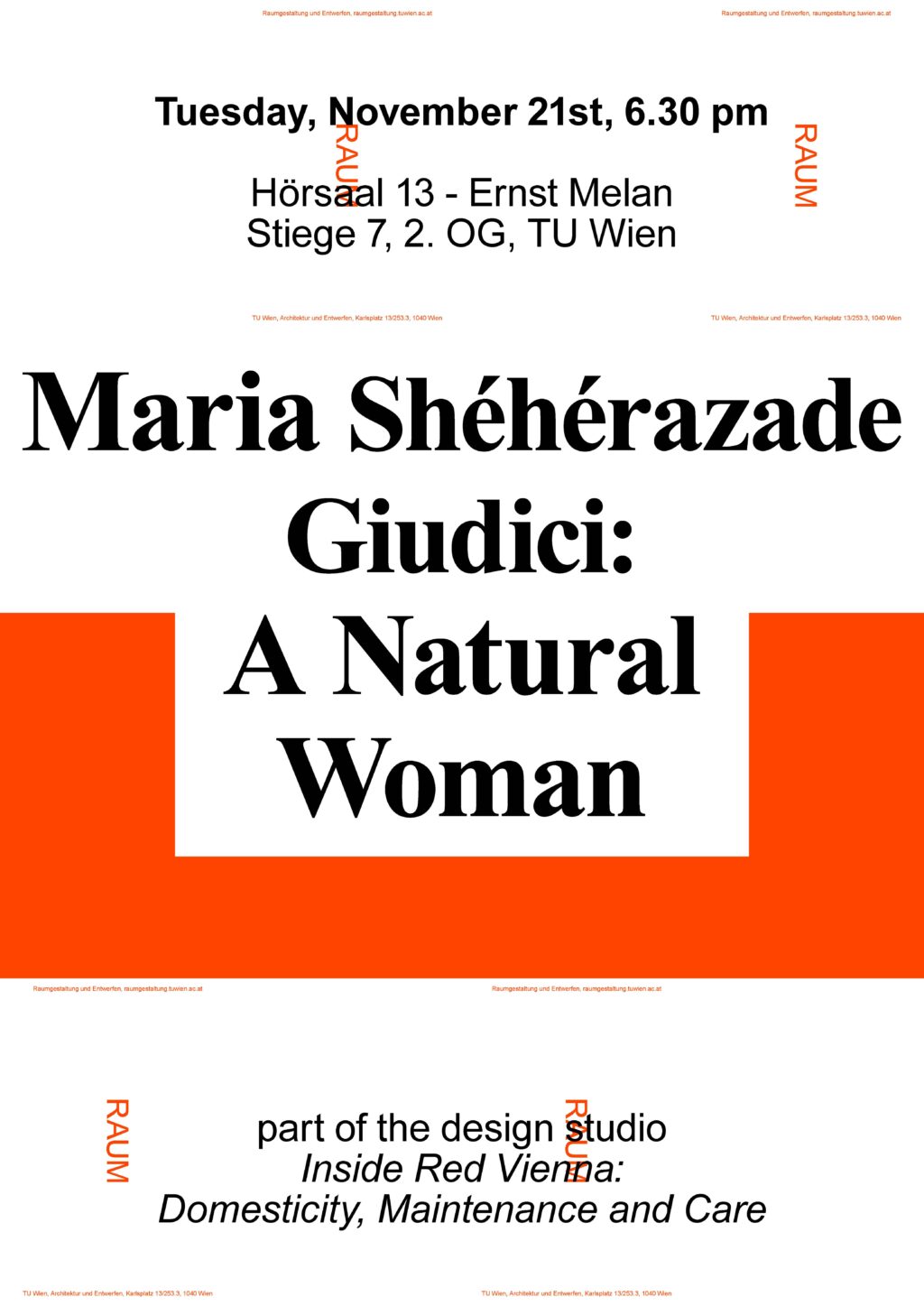
NOV 21, 2023
18:30
LECTURE:
MARIA SHÉHÉRAZADE GUIDICI
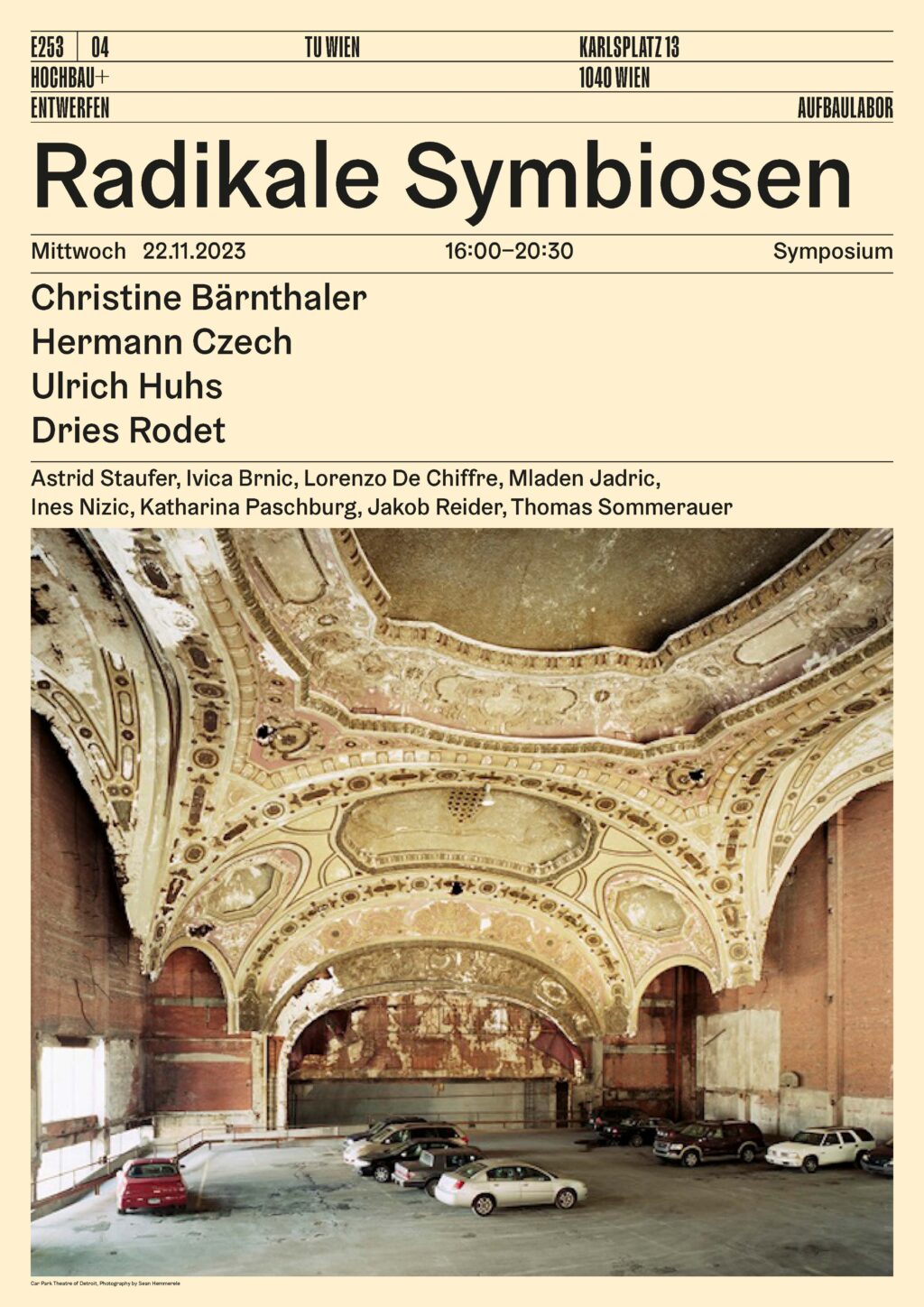
NOV 22, 2023
16:00
SYMPOSIUM:
RADIKALE SYMBIOSEN
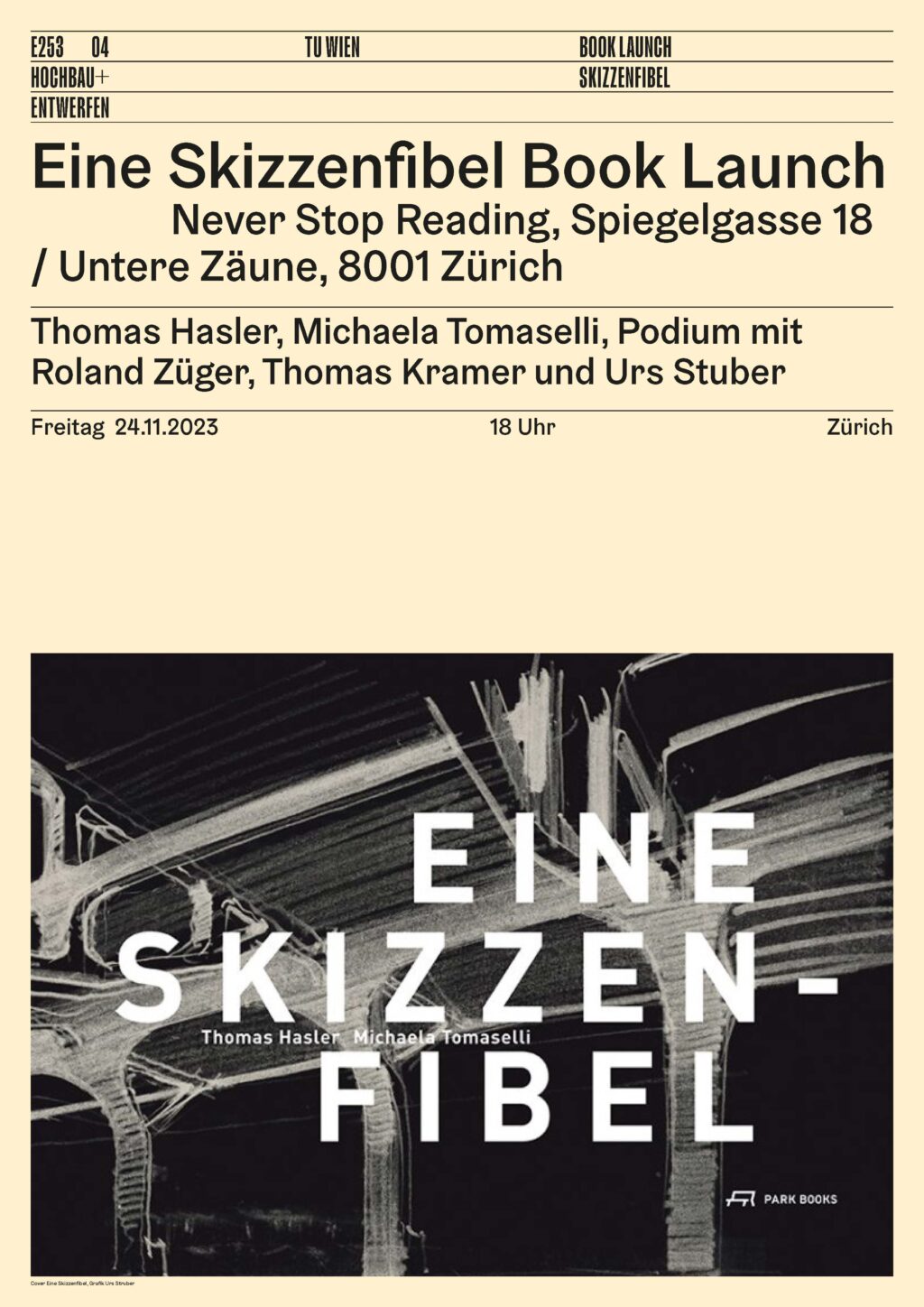
NOV 24, 2023
18:00
BOOK LAUNCH:
EINE SKIZZENFIBEL
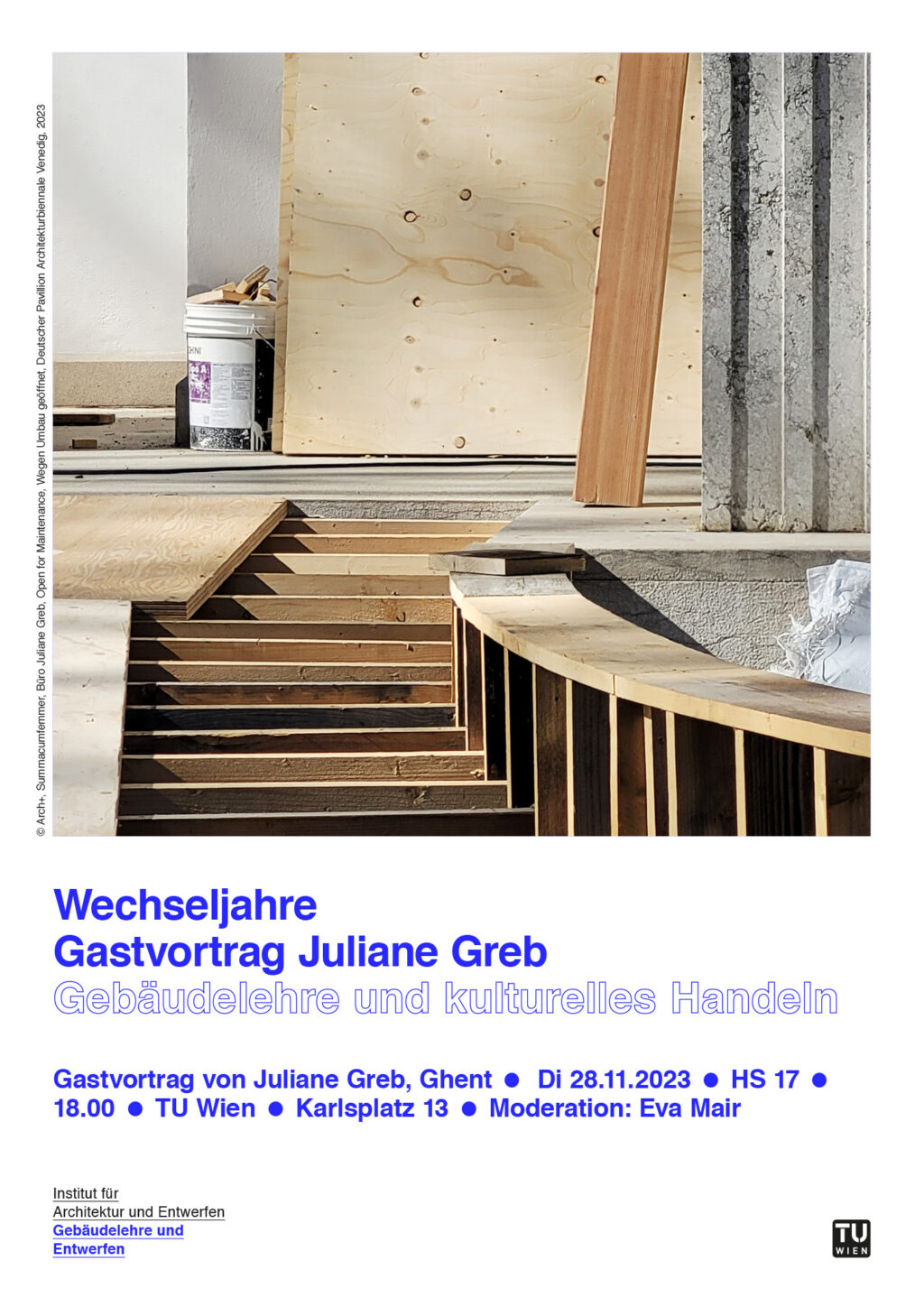
NOV 28, 2023
18:00
LECTURE:
JULIANE GREB
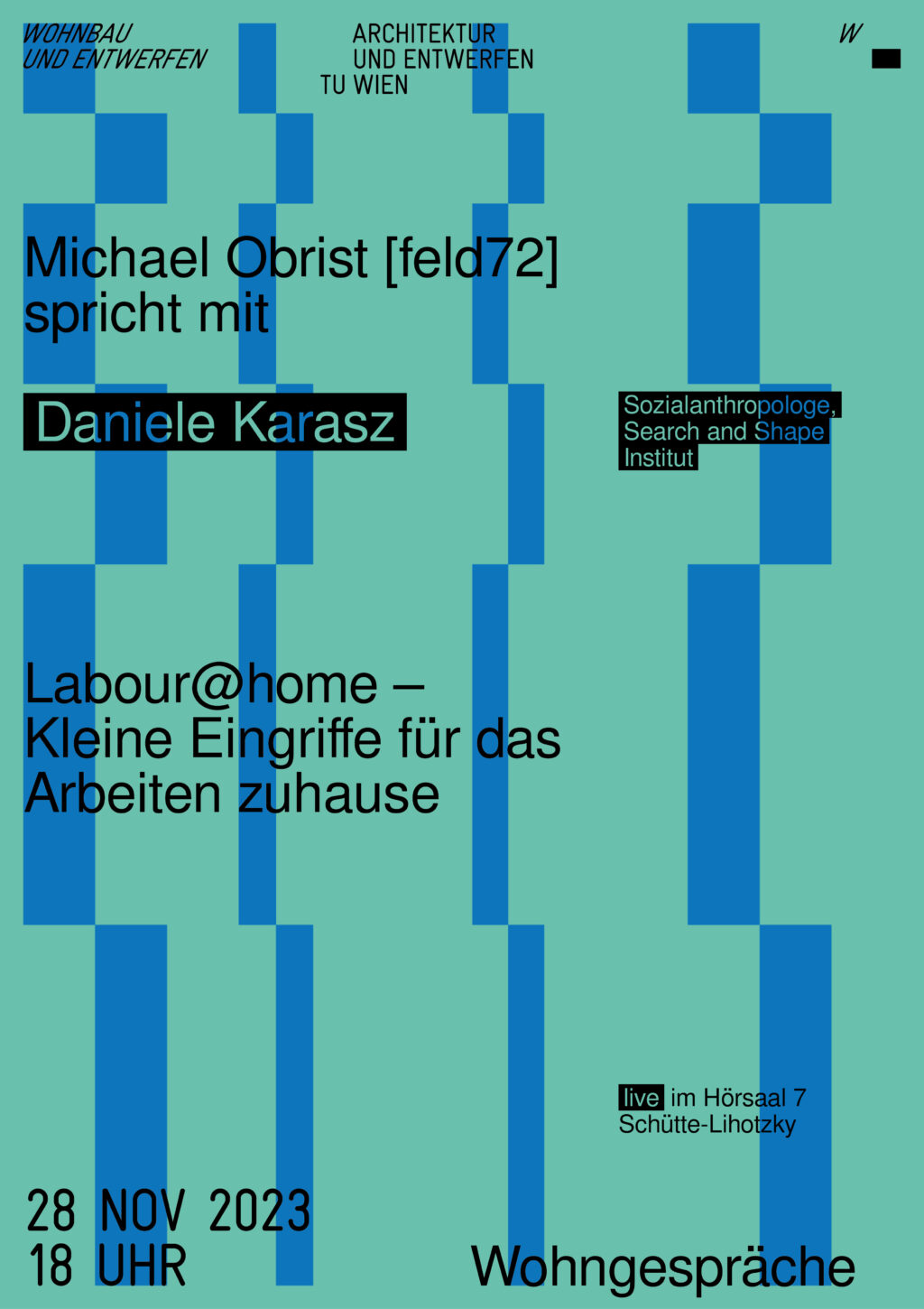
NOV 28, 2023
18:00
HOUSING TALKS:
DANIELE KARASZ
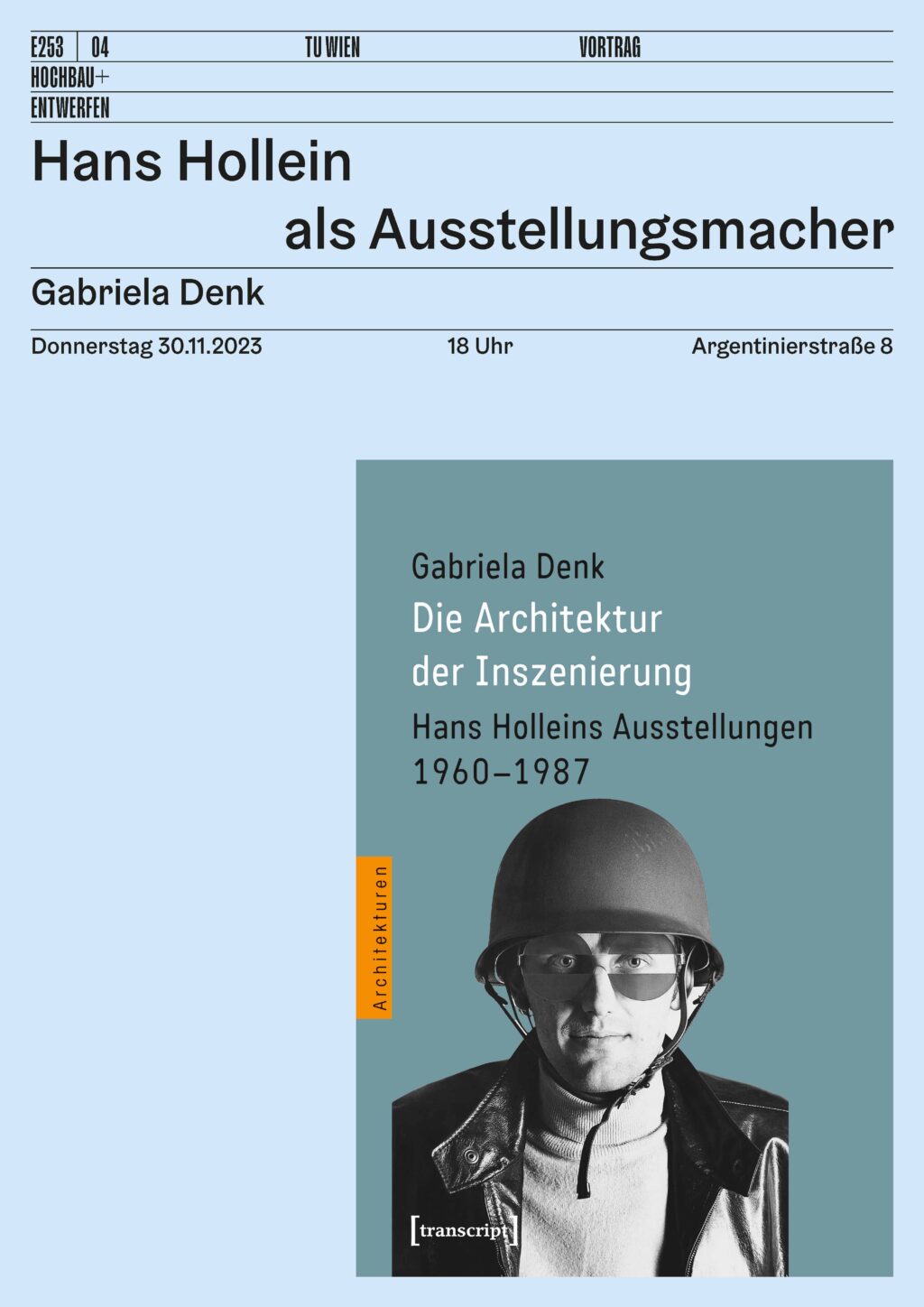
NOV 30, 2023
18:00
LECTURE:
GABRIELA DENK
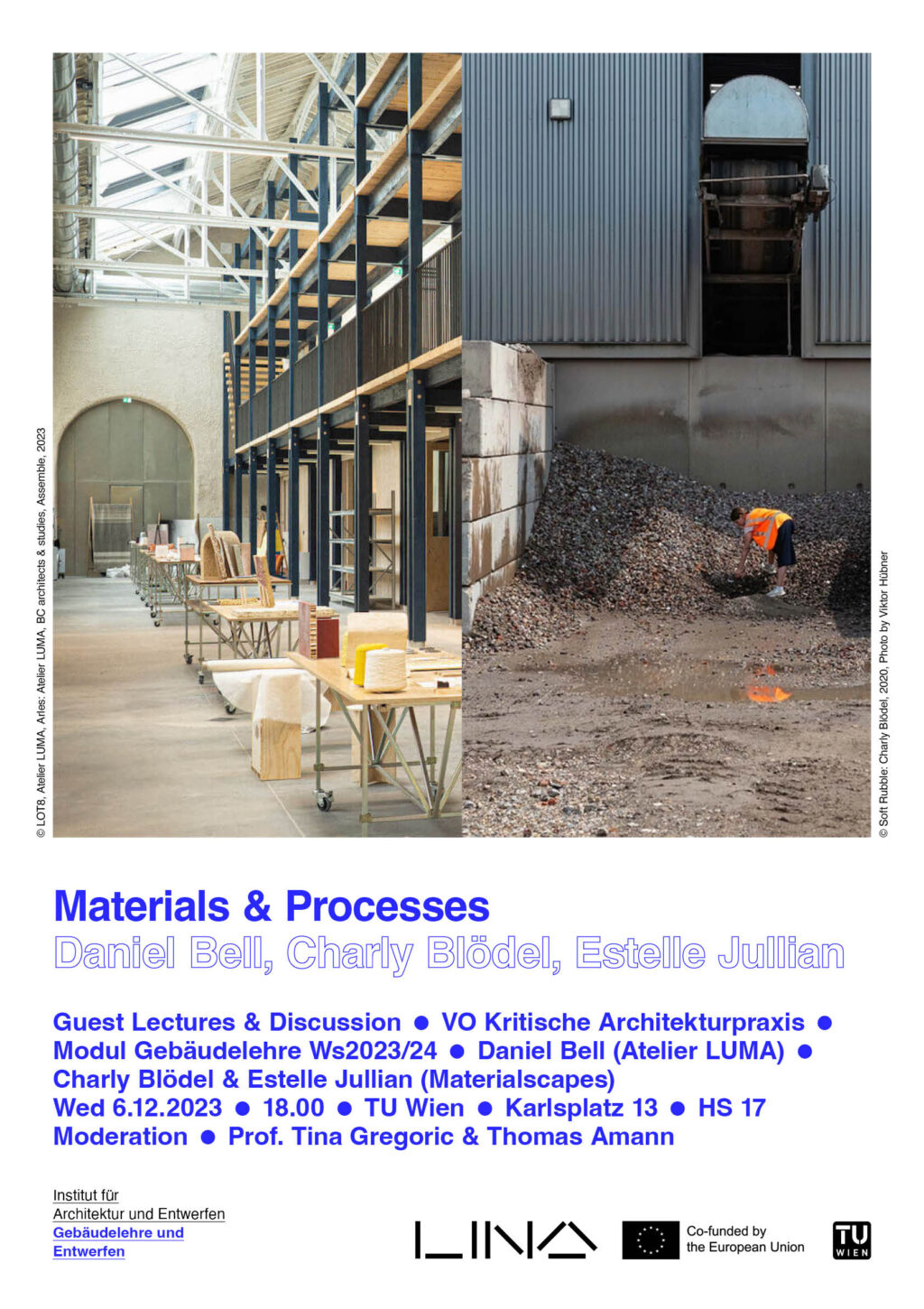
DEC 6, 2023
18:00
LECTURES:
DANIEL BELL, CHARLY BLÖDEL, ESTELLE JULLIAN
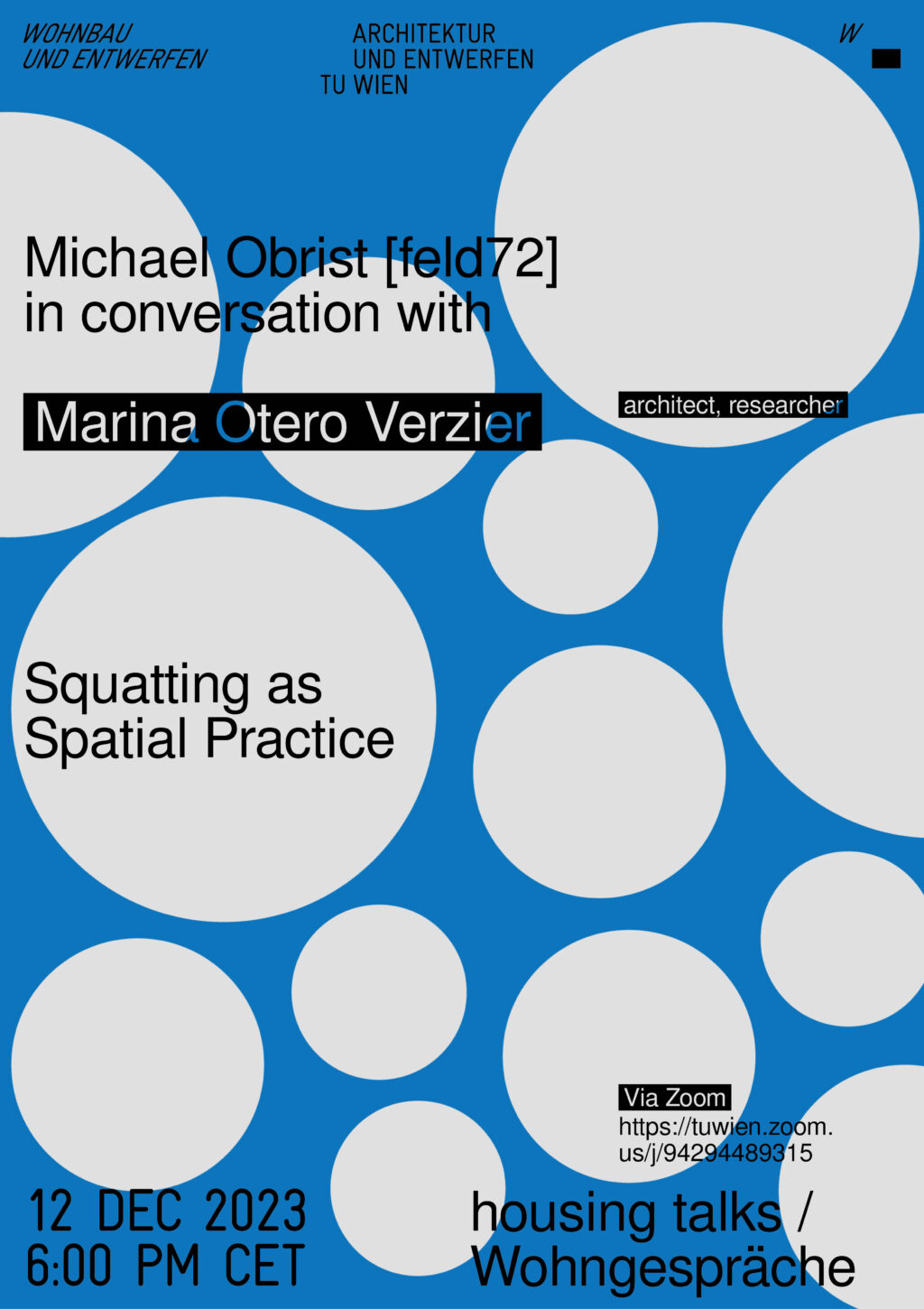
DEC 12, 2023
18:00
HOUSING TALKS:
MARINA OTERO VERZIER
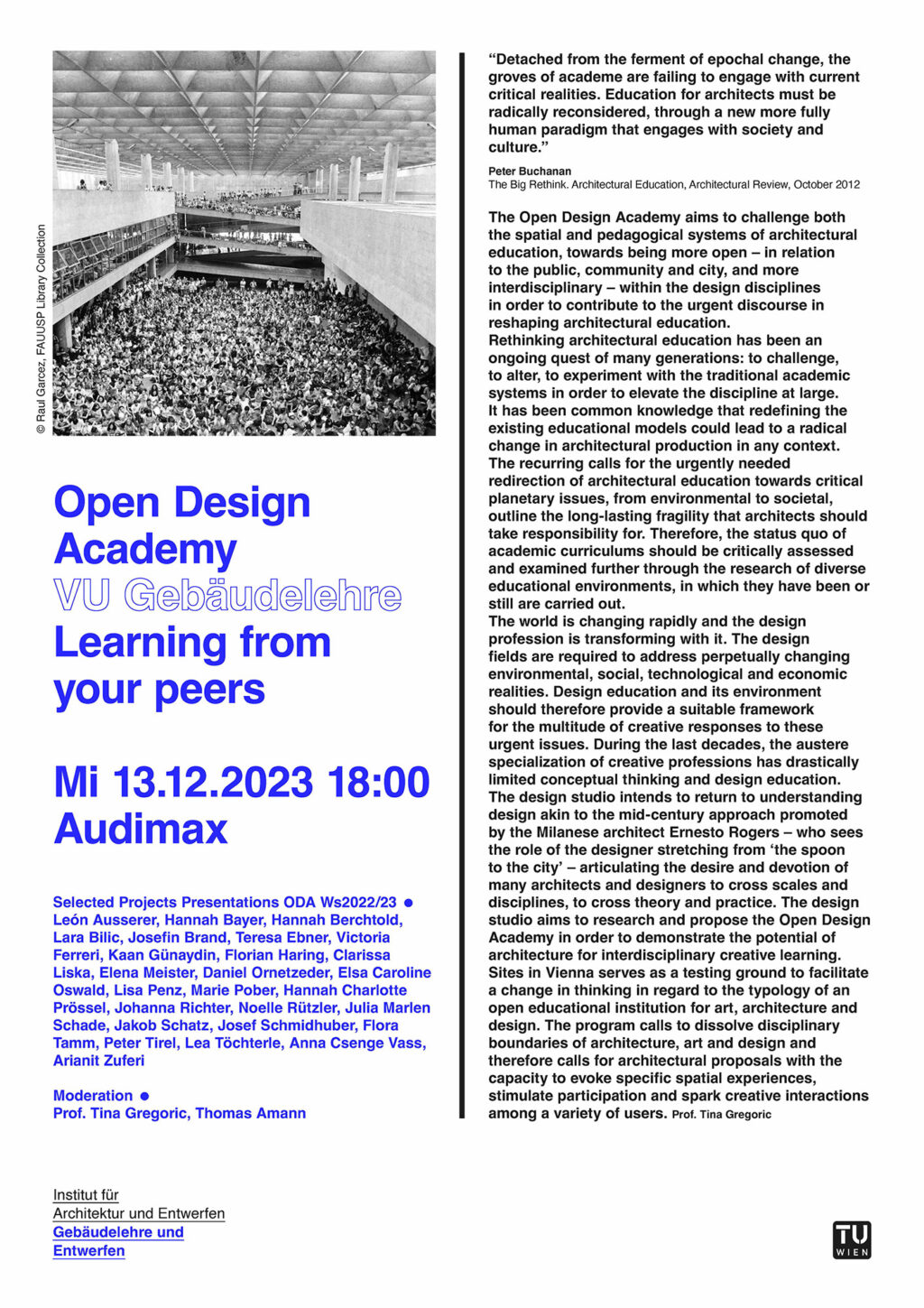
DEC 13, 2023
18:00
LECTURES:
OPEN DESIGN ACADEMY – LEARNING FROM YOUR PEERS
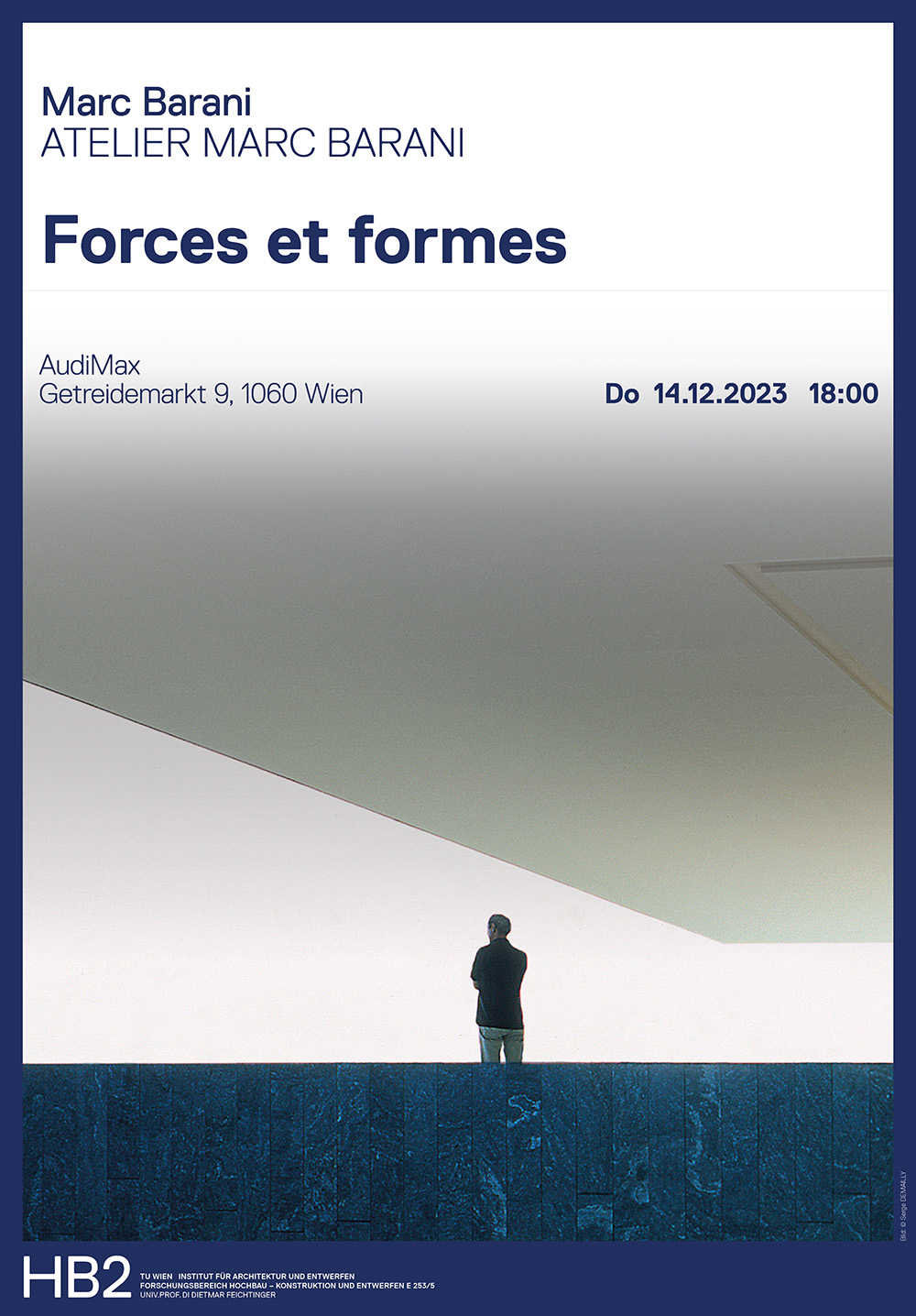
DEC 14, 2023
18:00
LECTURE:
Marc Barani
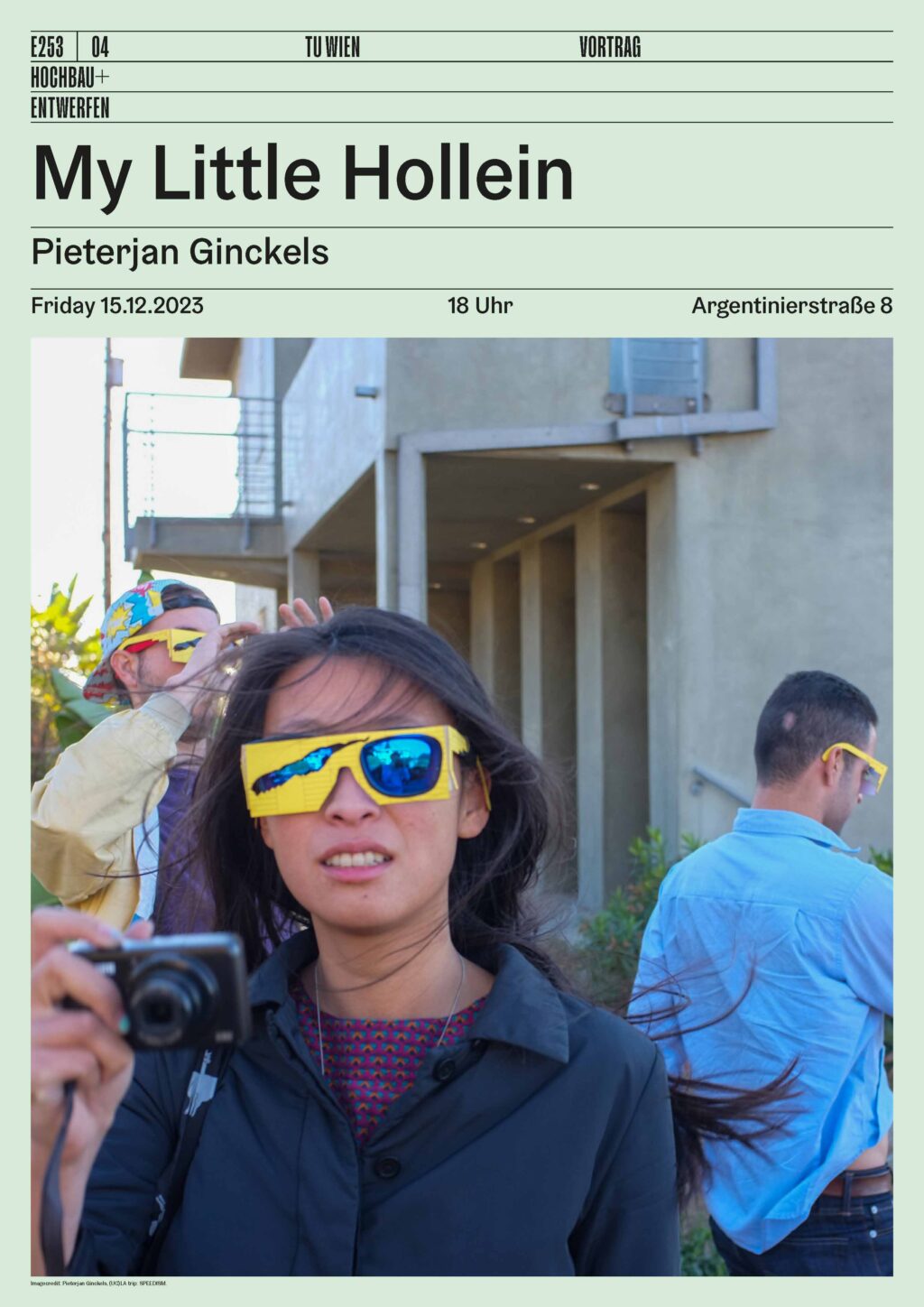
DEC 15, 2023
18:00
LECTURE:
PIETERJAN GINCKELS, KU LEUVEN
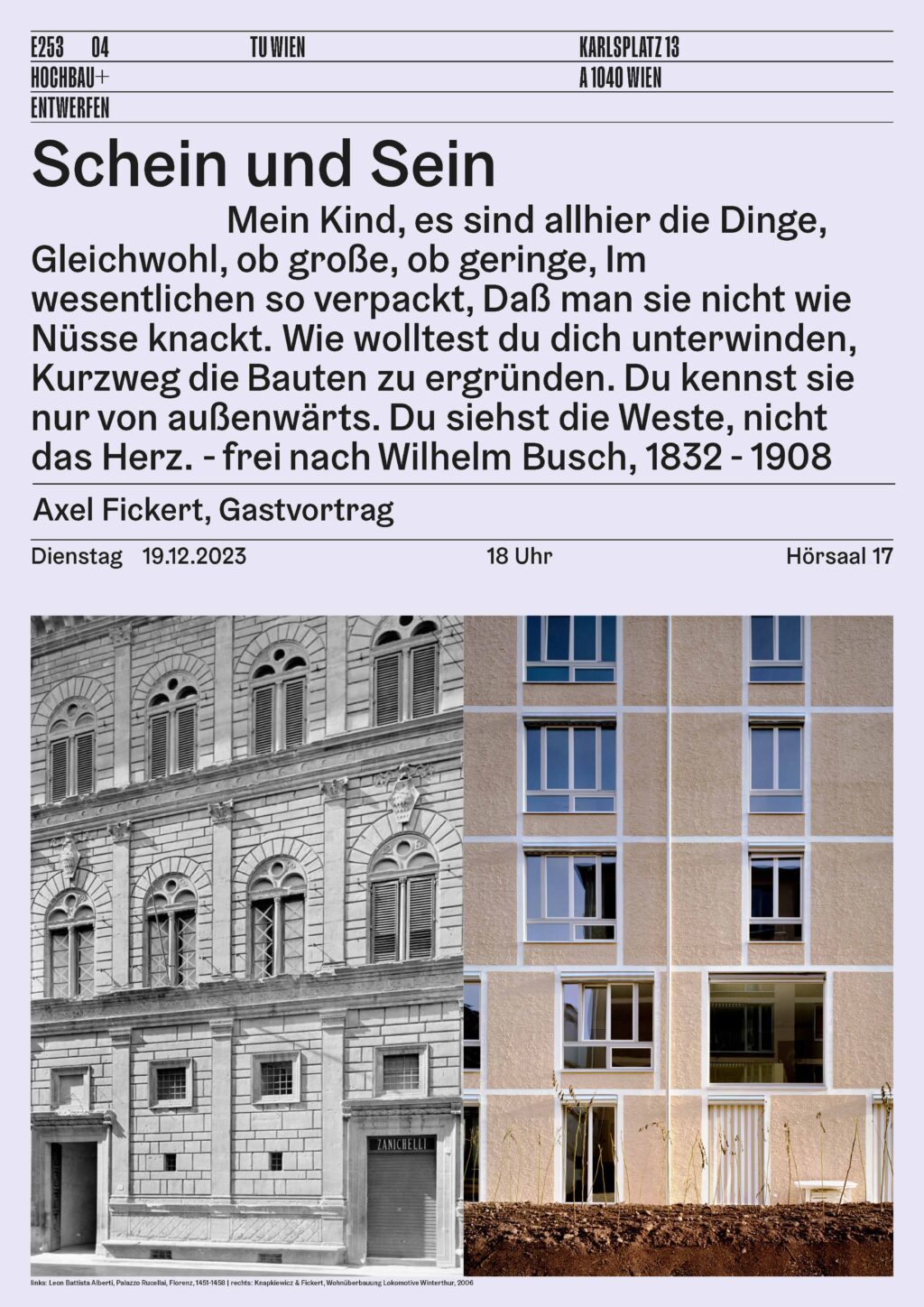
DEC 19, 2023
18:00
LECTURE:
AXEL FICKERT, KNAPKIEWICZ & FICKERT
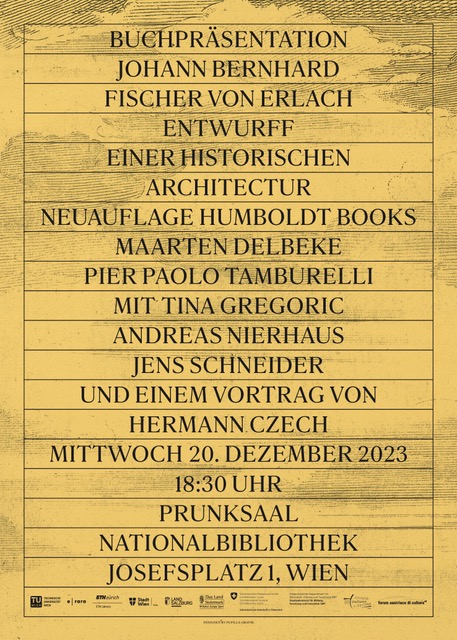
DEC 20, 2023
18:30
BOOK LAUNCH:
ENTWURFF EINER HISTORISCHEN ARCHITEKTUR
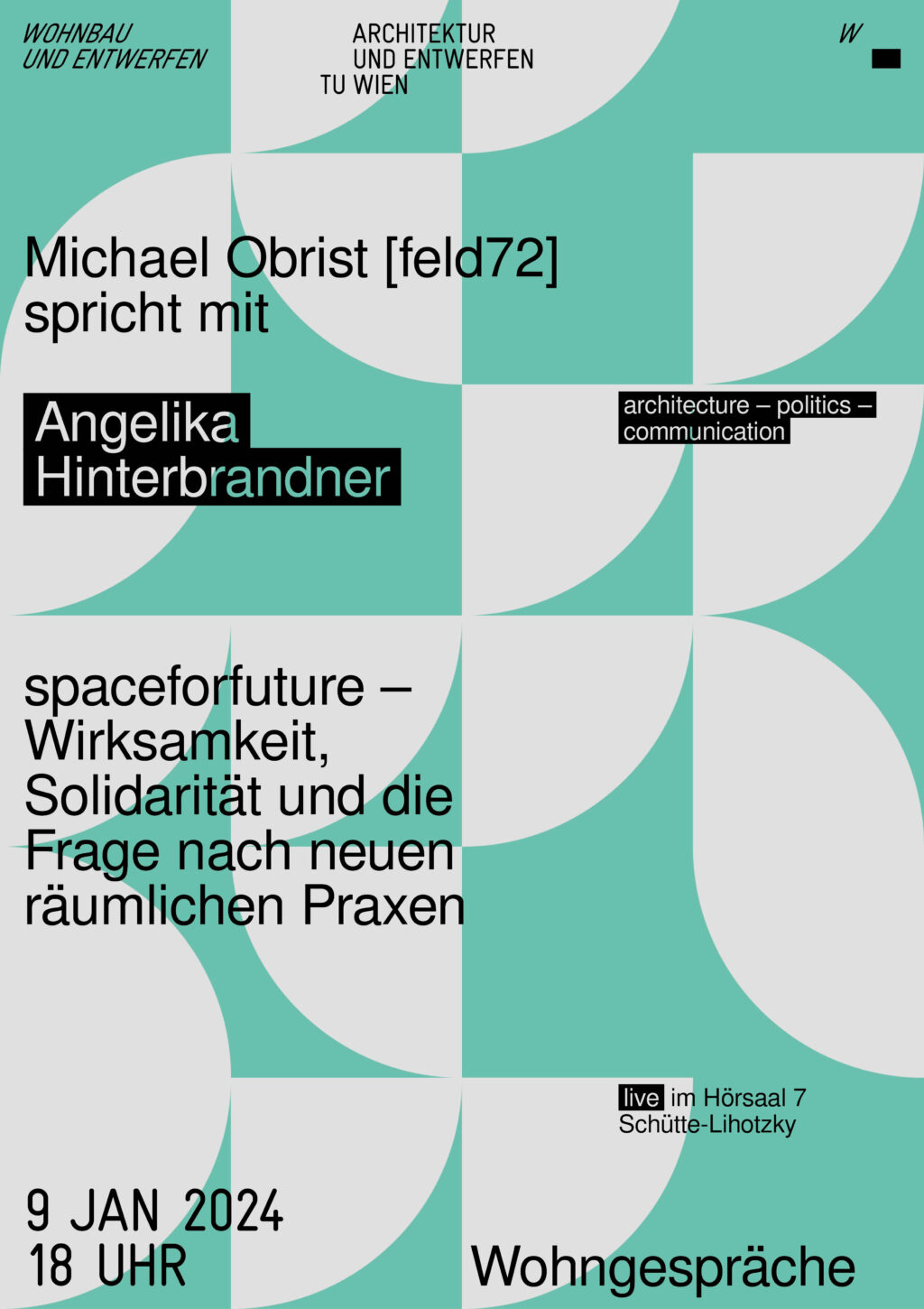
JAN 9, 2024
18:00
HOUSING TALKS:
ANGELIKA HINTER-
BRANDNER
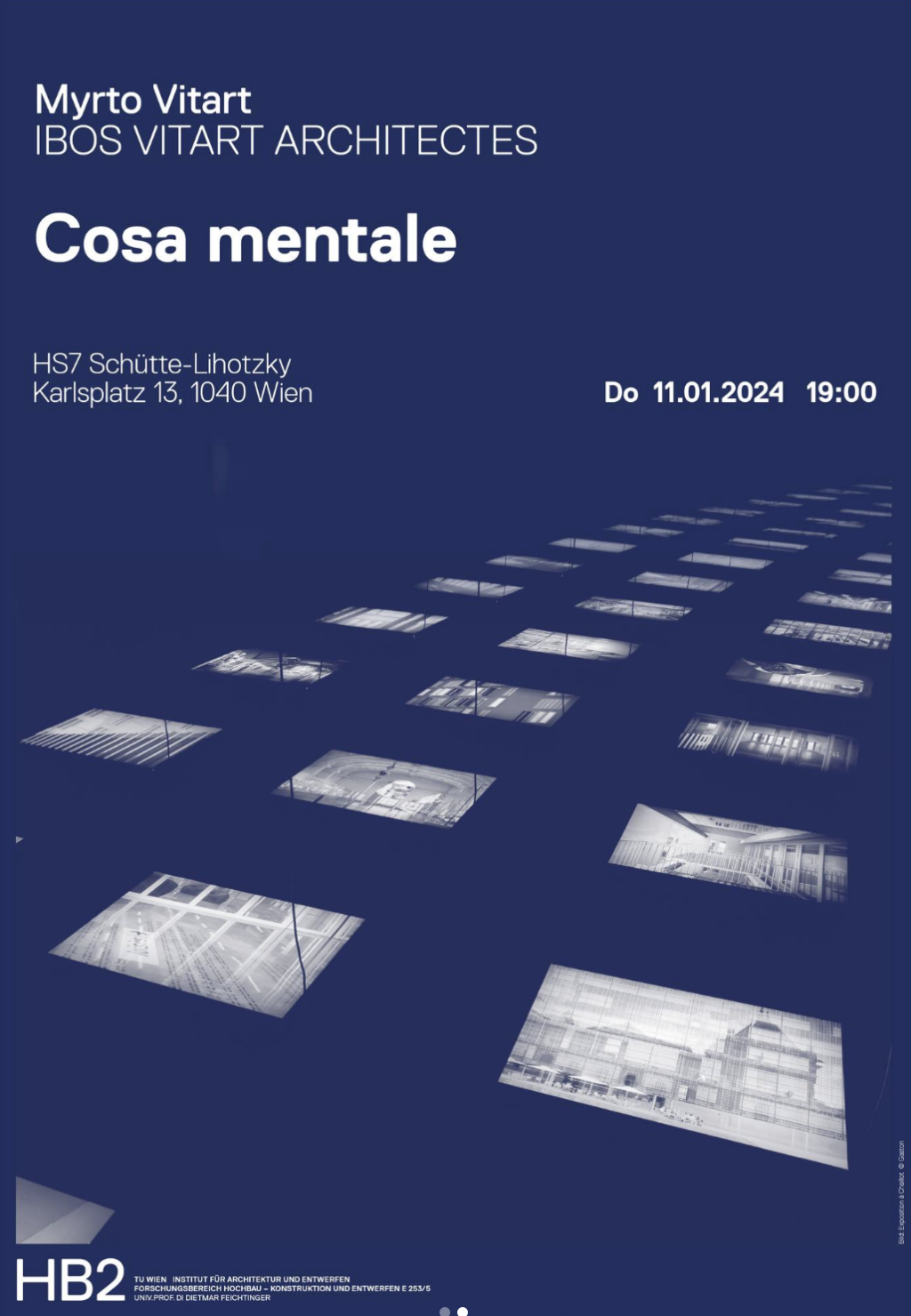
JAN 11, 2024
19:00
LECTURE:
Myrto Vitart
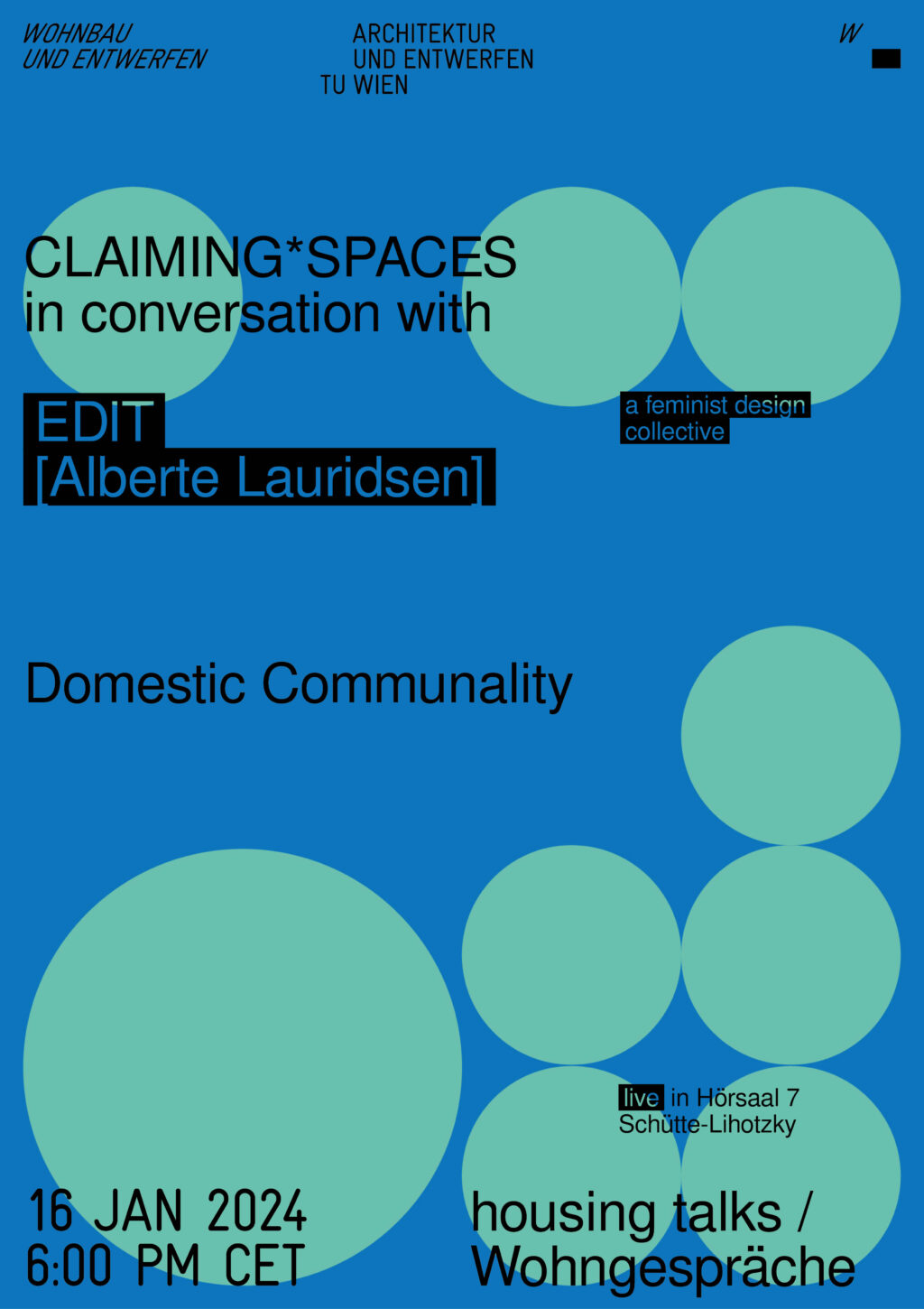
JAN 16, 2024
18:00
HOUSING TALKS:
EDIT [ALBERTE LAURIDSEN]
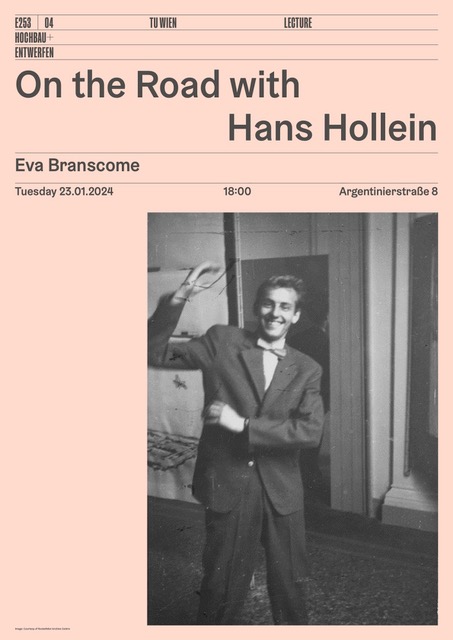
JAN 23, 2024
18:00
LECTURE:
Eva Branscome
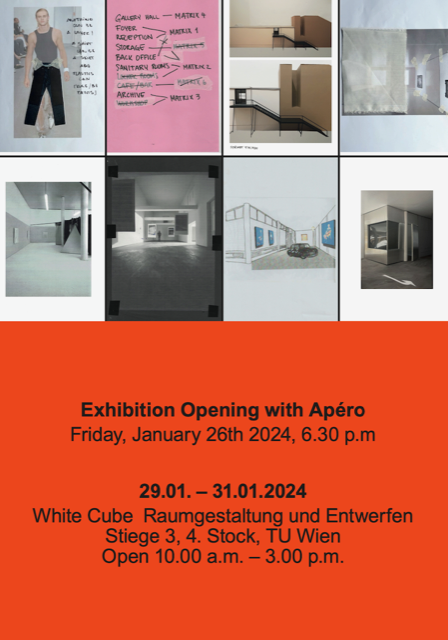
JAN 26, 2024
18:30
EXHIBITION:
DISPLAY & EXHIBIT CASE STUDY HELMUT LANG
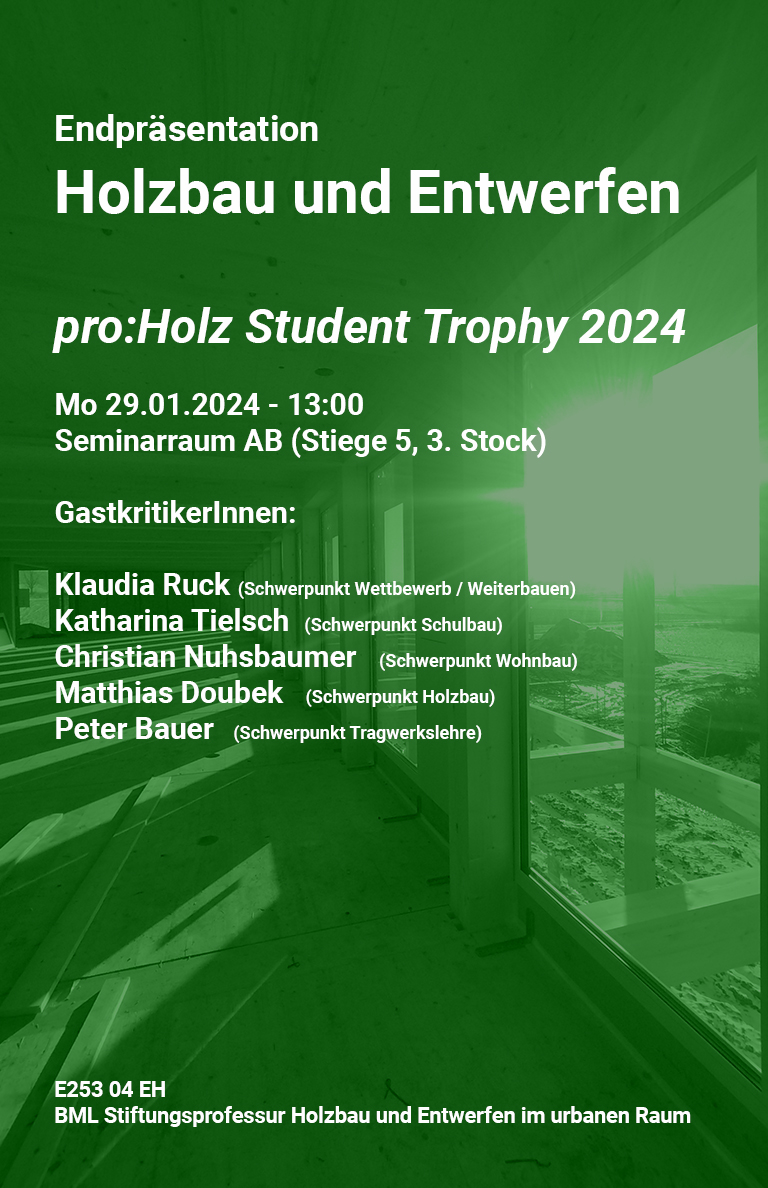
JAN 29, 2024
13:00
PRESENTATION & DISCUSSION:
proHolz Student Trophy 24
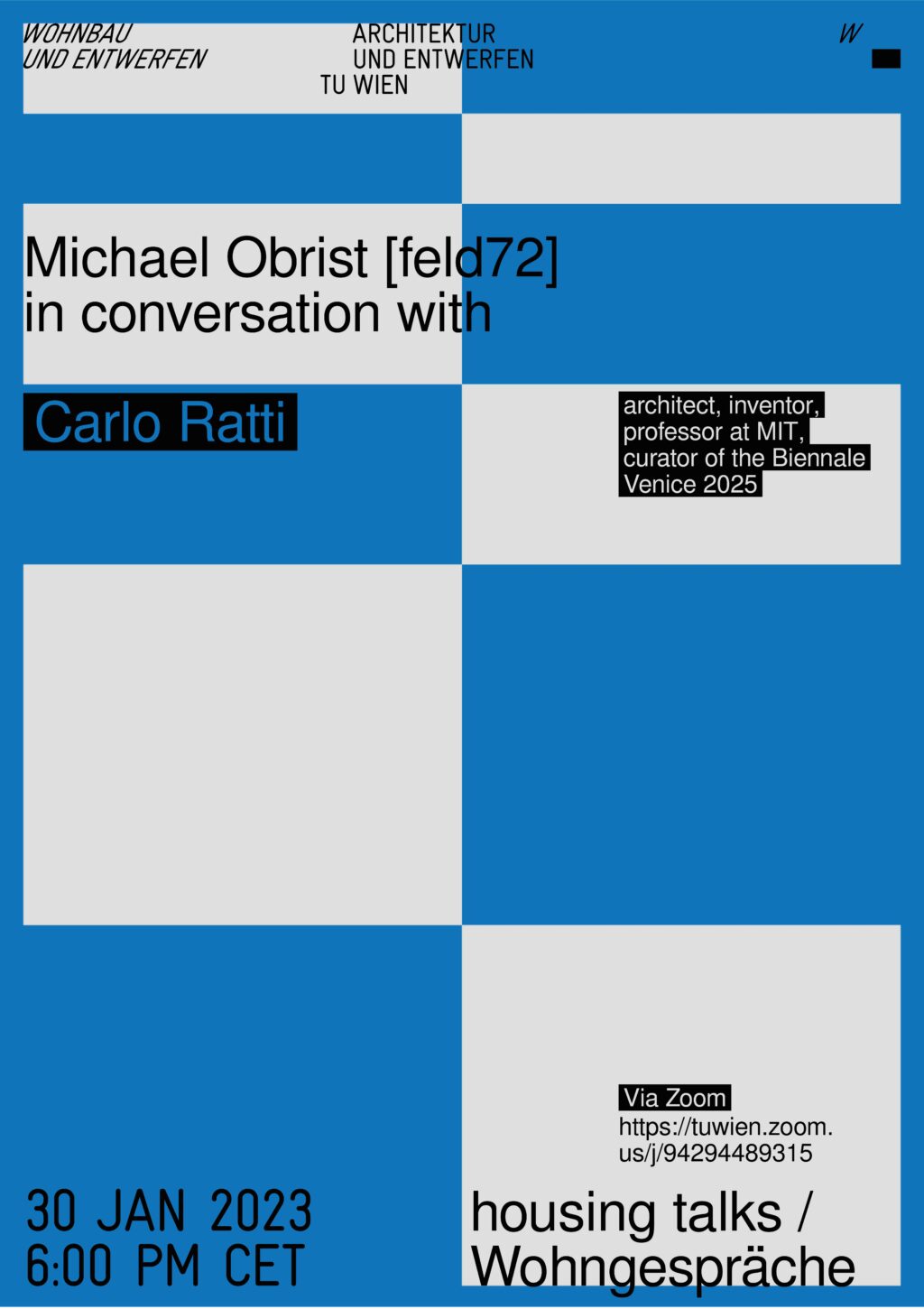
JAN 30, 2024
18:00
HOUSING TALKS: CARLO RATTI
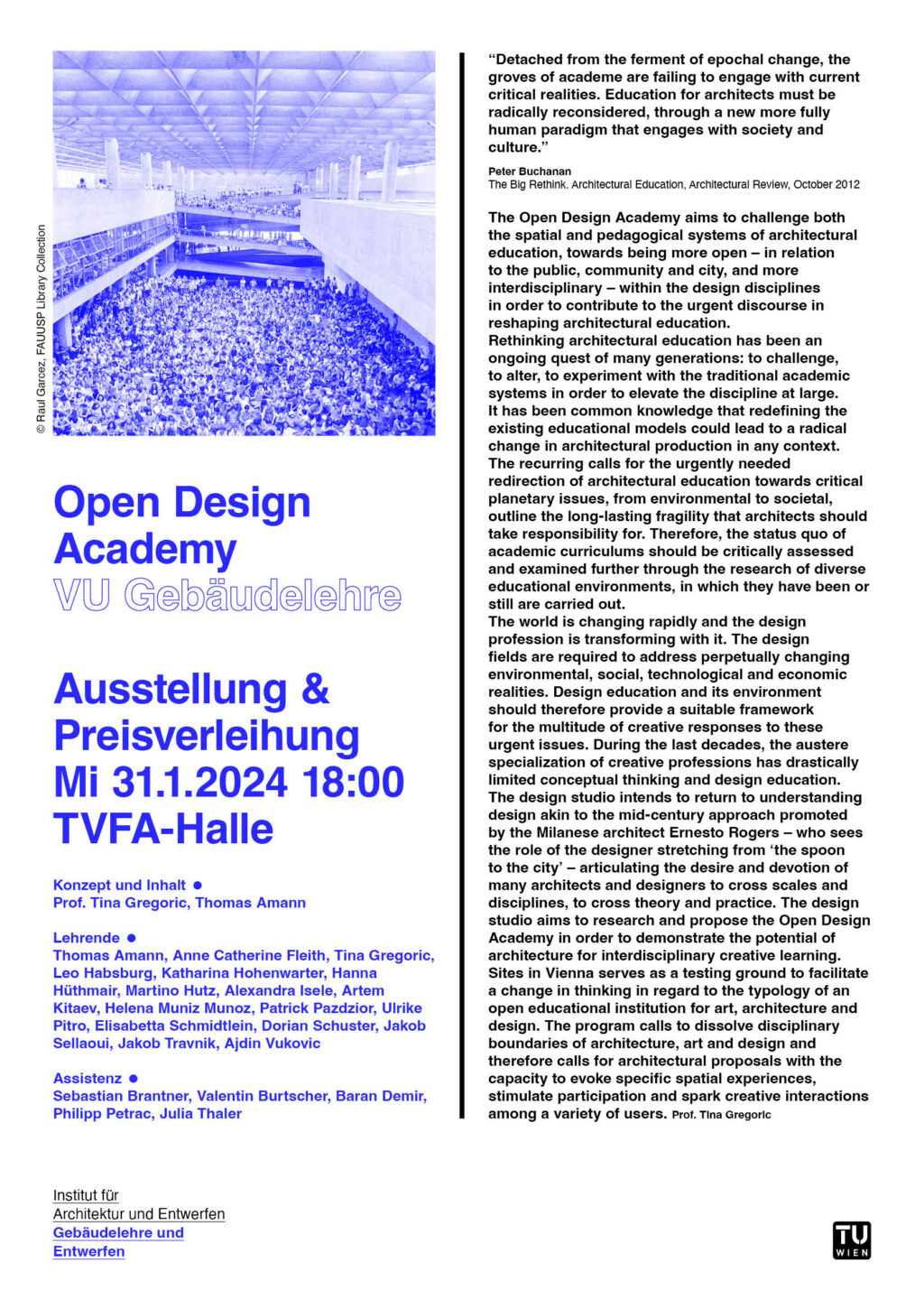
JAN 31, 2024
18:00
EXHIBITION:
OPEN DESIGN ACADEMY
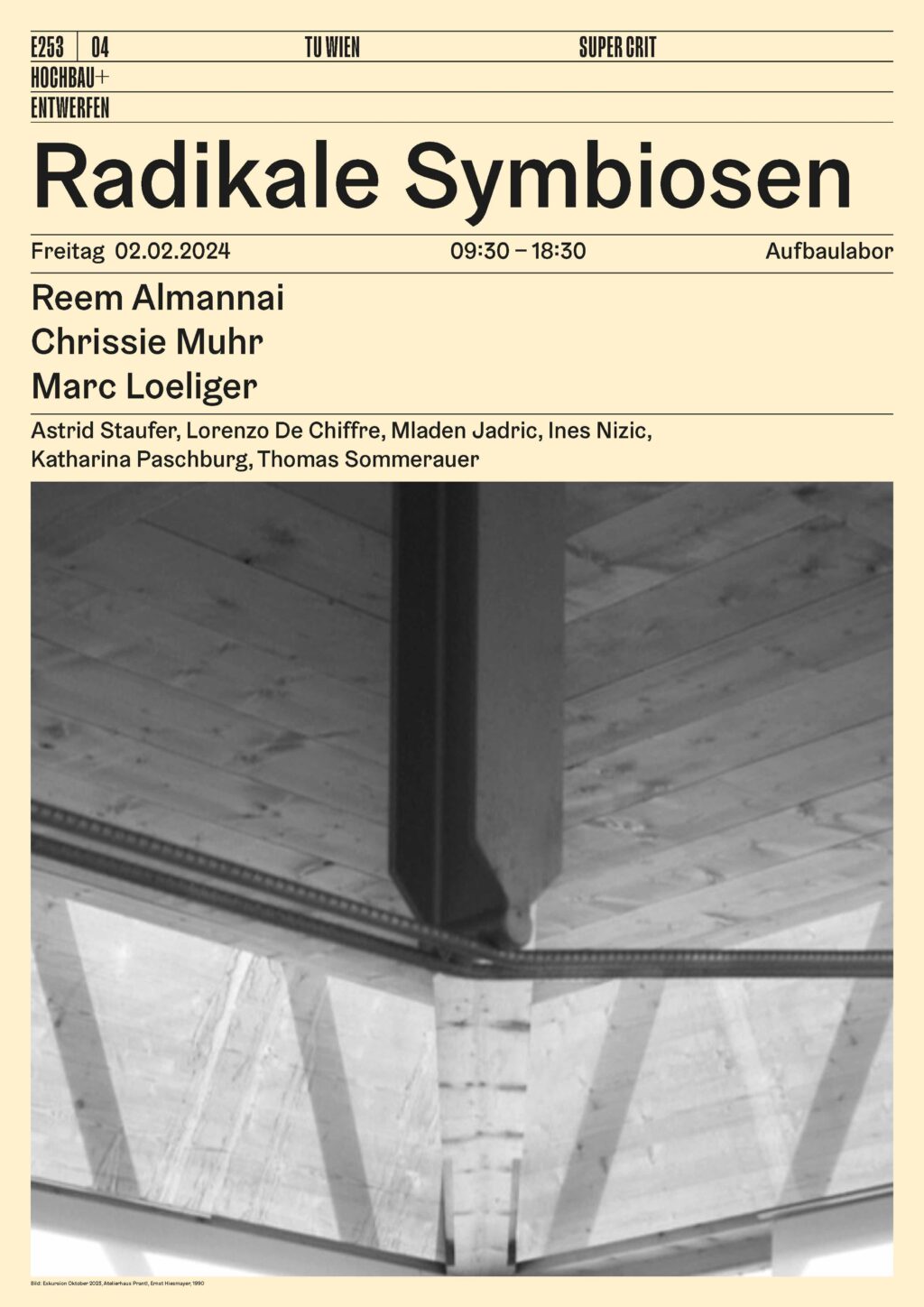
FEB 2, 2024
09:30
SUPERCRIT, EXHIBITION & DISCUSSION:
RADIKALE SYMBIOSEN
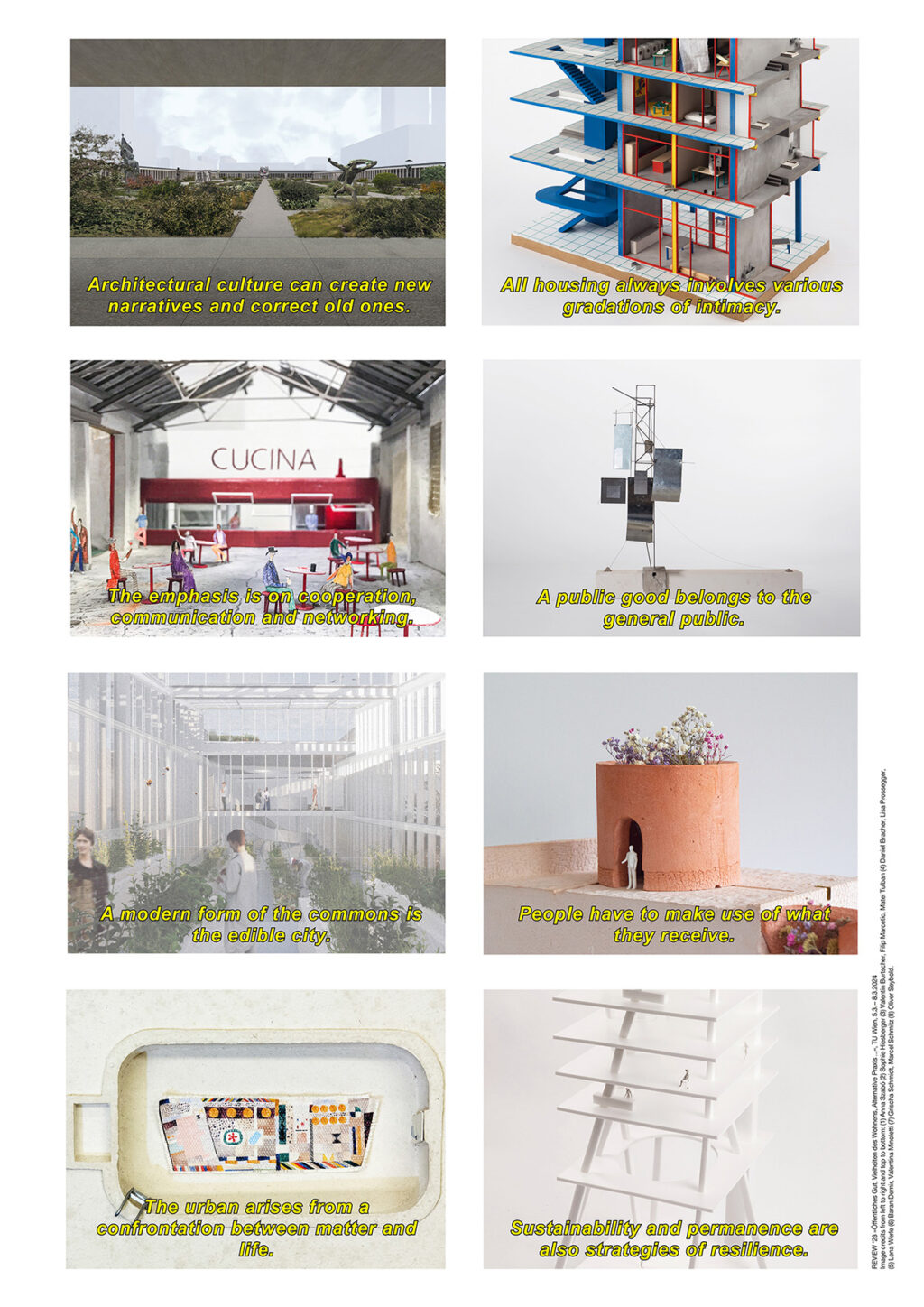
MAR 4, 2024
18:30
EXHIBITION:
REVIEW’23
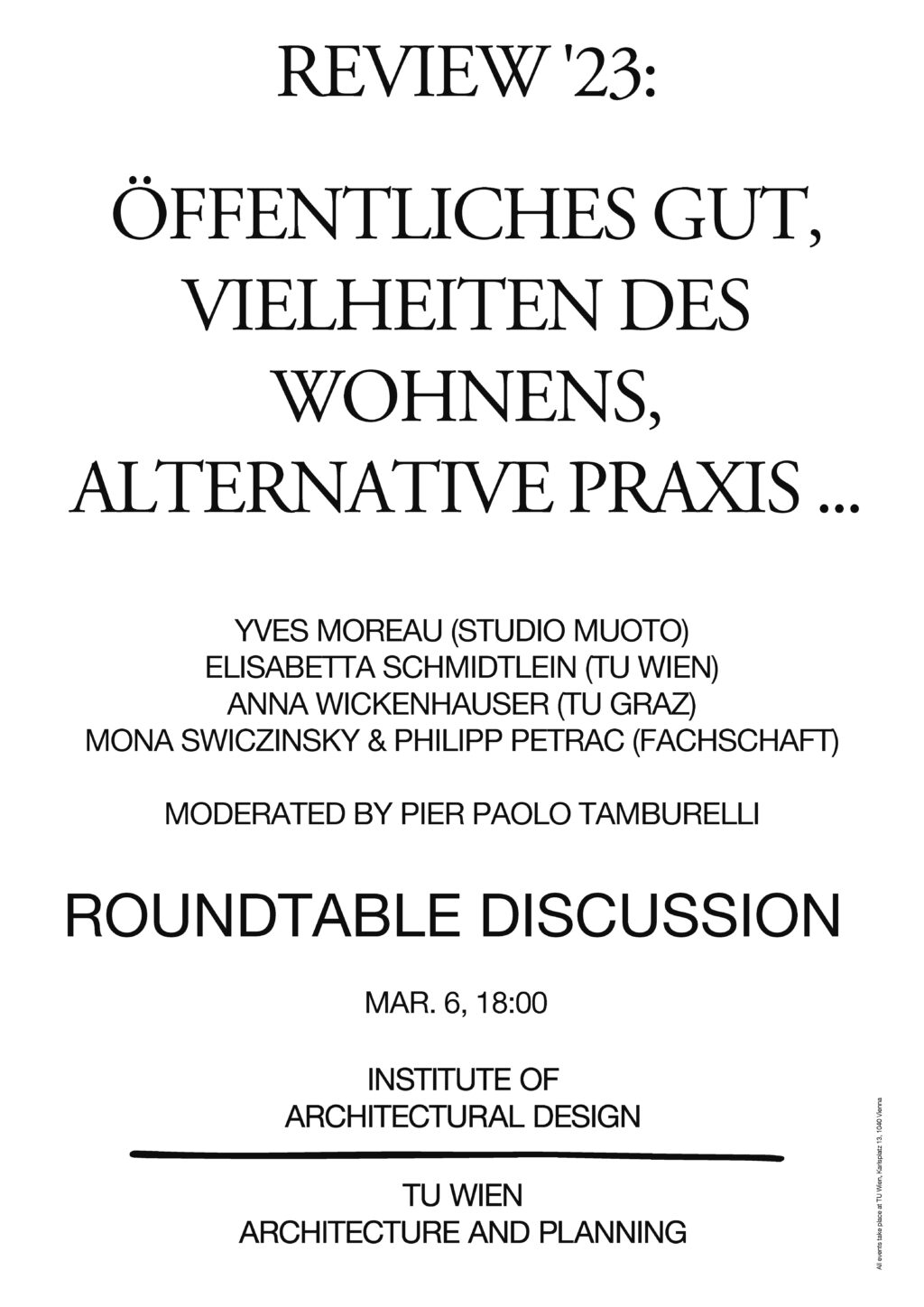
MAR 6, 2024
18:00
ROUNDTABLE DISCUSSION:
REVIEW’23
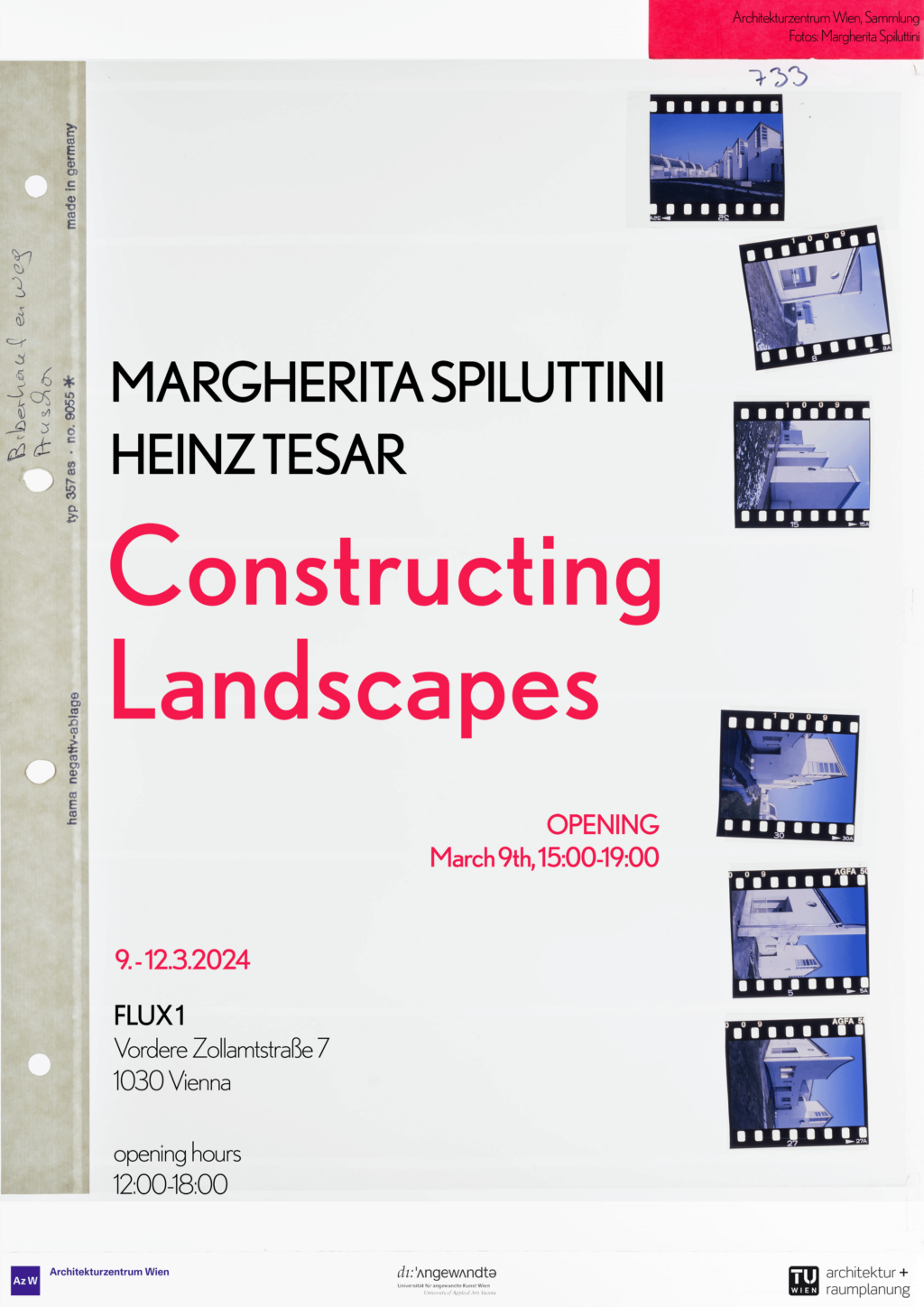
MAR 9, 2024
15:00
EXHIBITION:
CONSTRUCTING LANDSCAPES – Margherita Spiluttini & Heinz Tesar
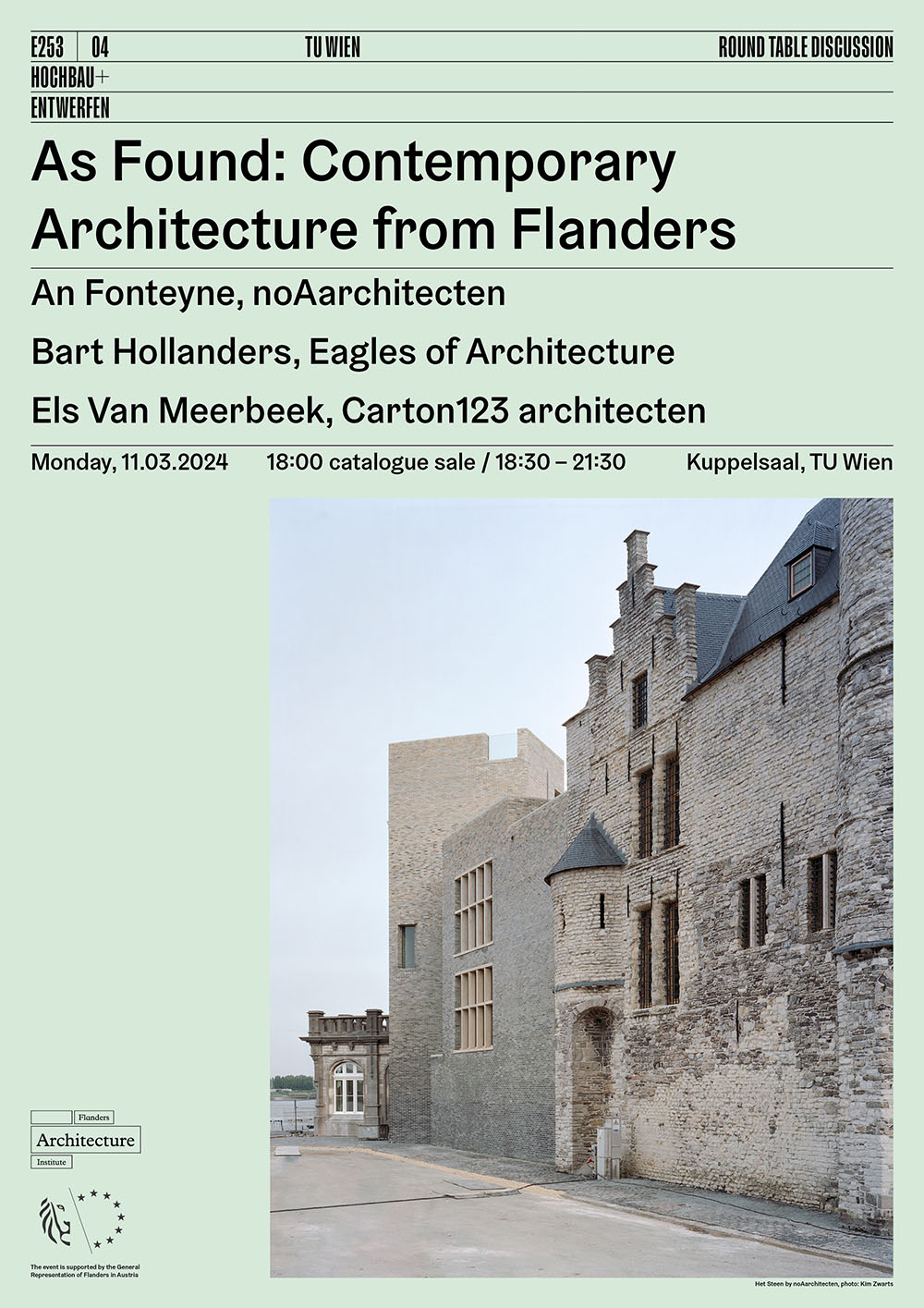
MAR 11, 2024
18:00
DISCUSSION:
An Fonteyne, Bart Hollanders, Els Van Meerbeek
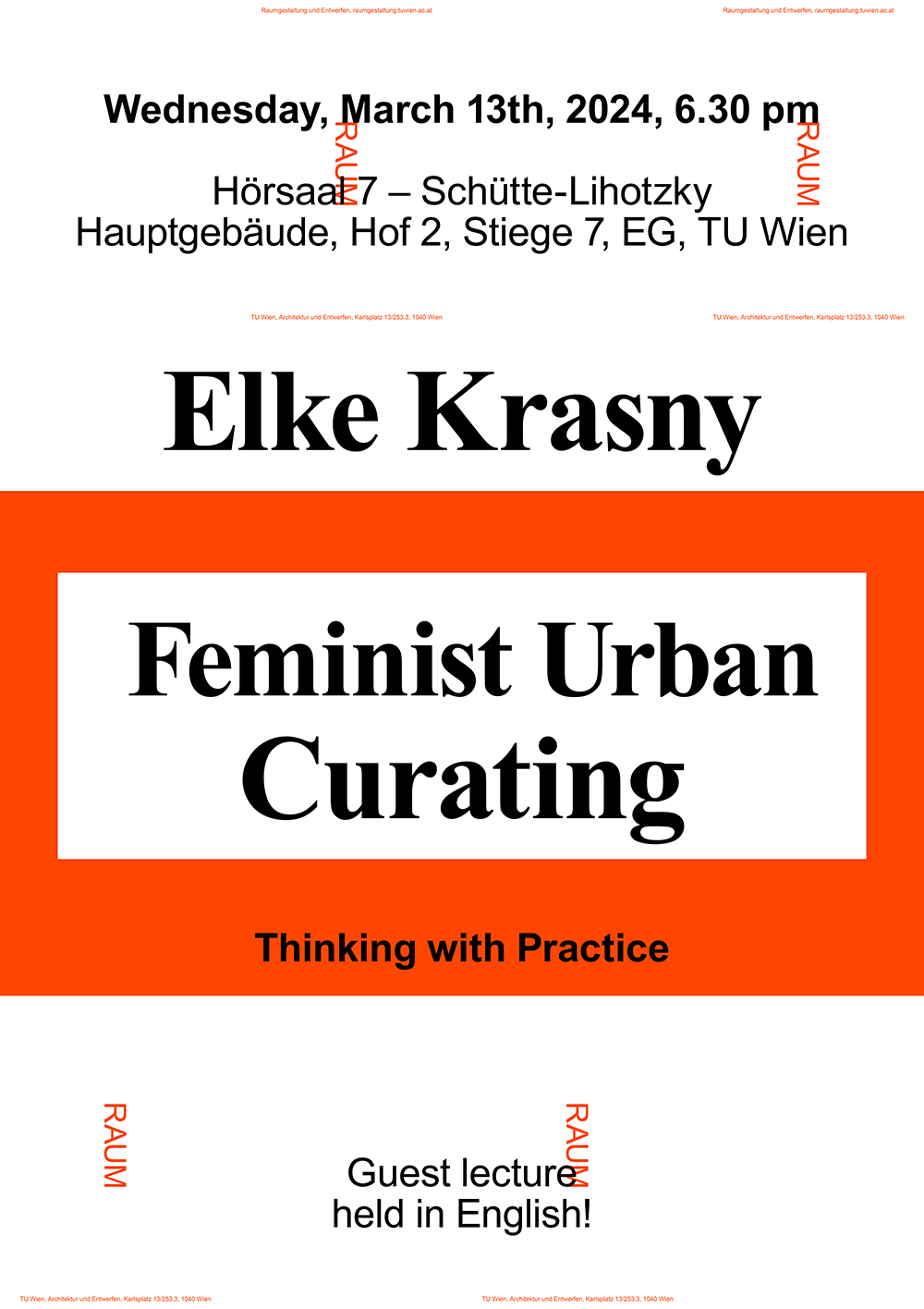
MAR 13, 2024
18:30
LECTURE:
ELKE KRASNY
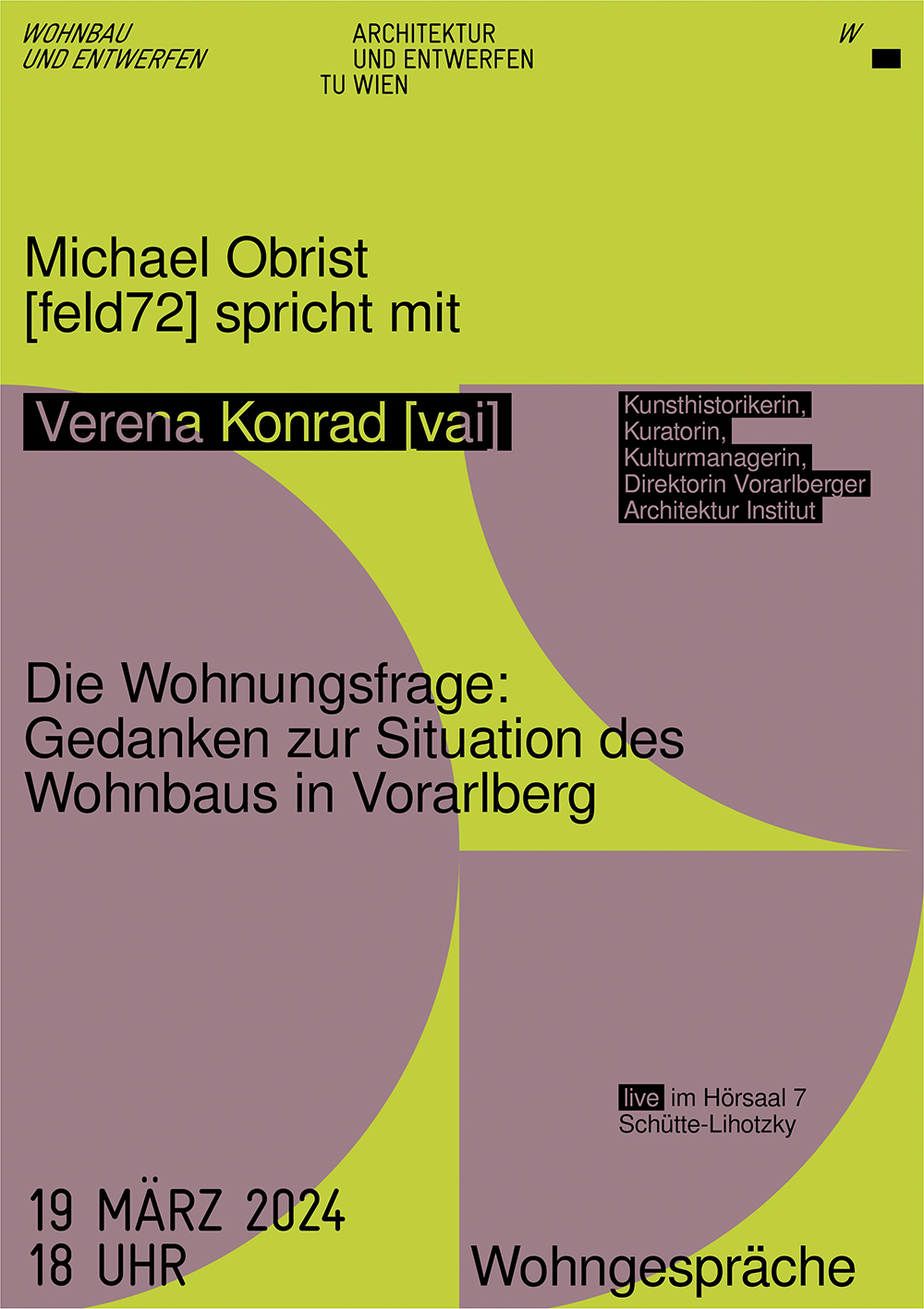
MAR 19, 2024
18:00
HOUSING TALKS:
VERENA KONRAD [vai]
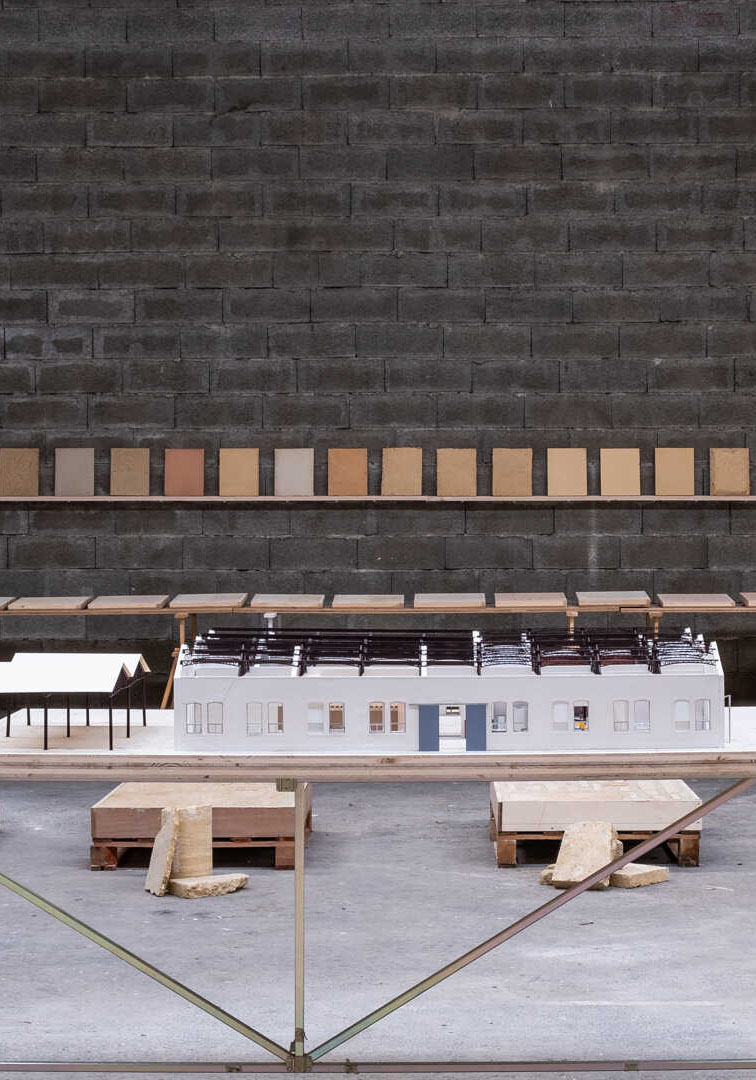
APR 8, 2024
17:00
OPENING EVENT & LECTURE:
BIOFABRIQUE VIENNA
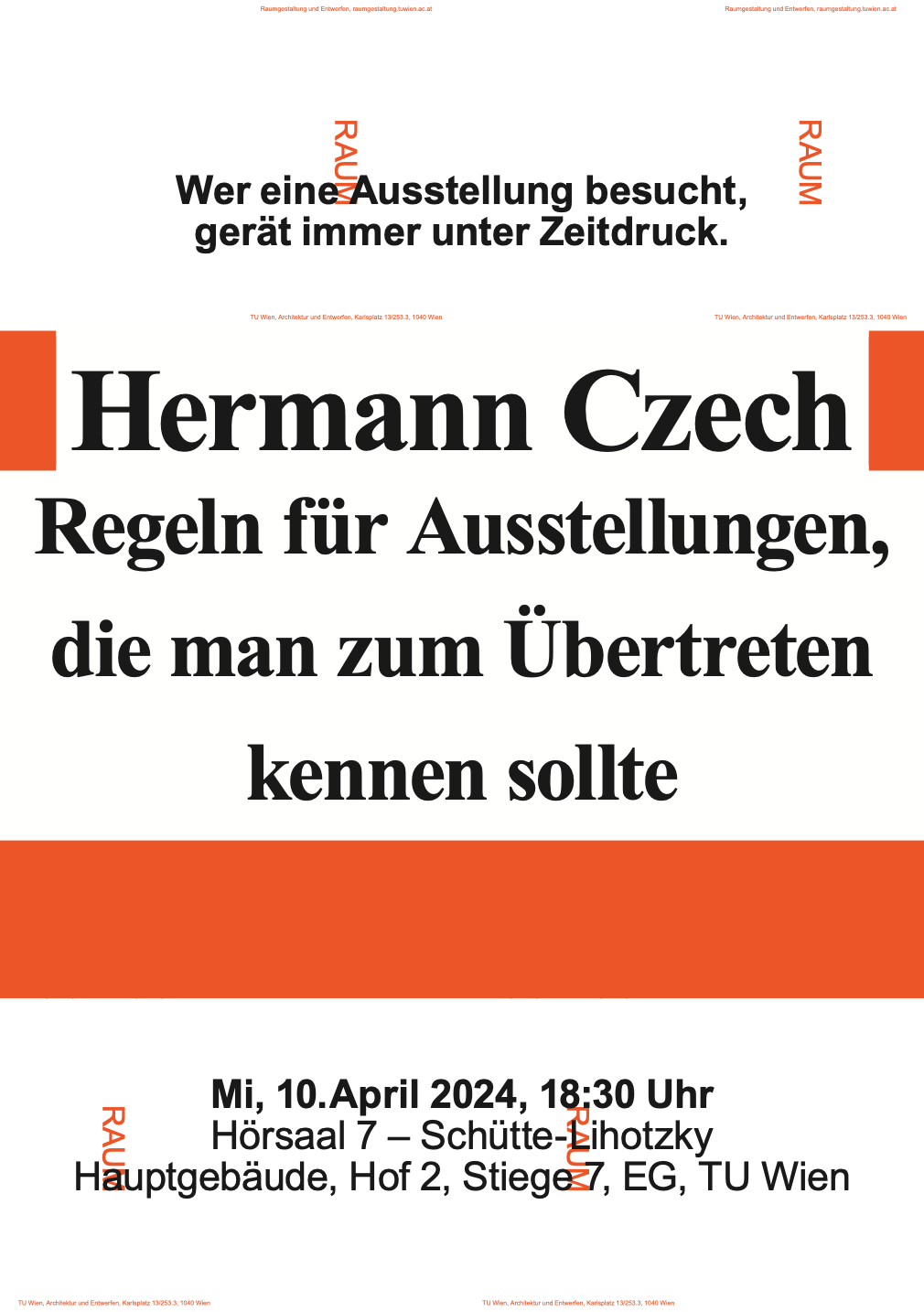
APR 10, 2024
18:30
LECTURE:
HERMANN CZECH
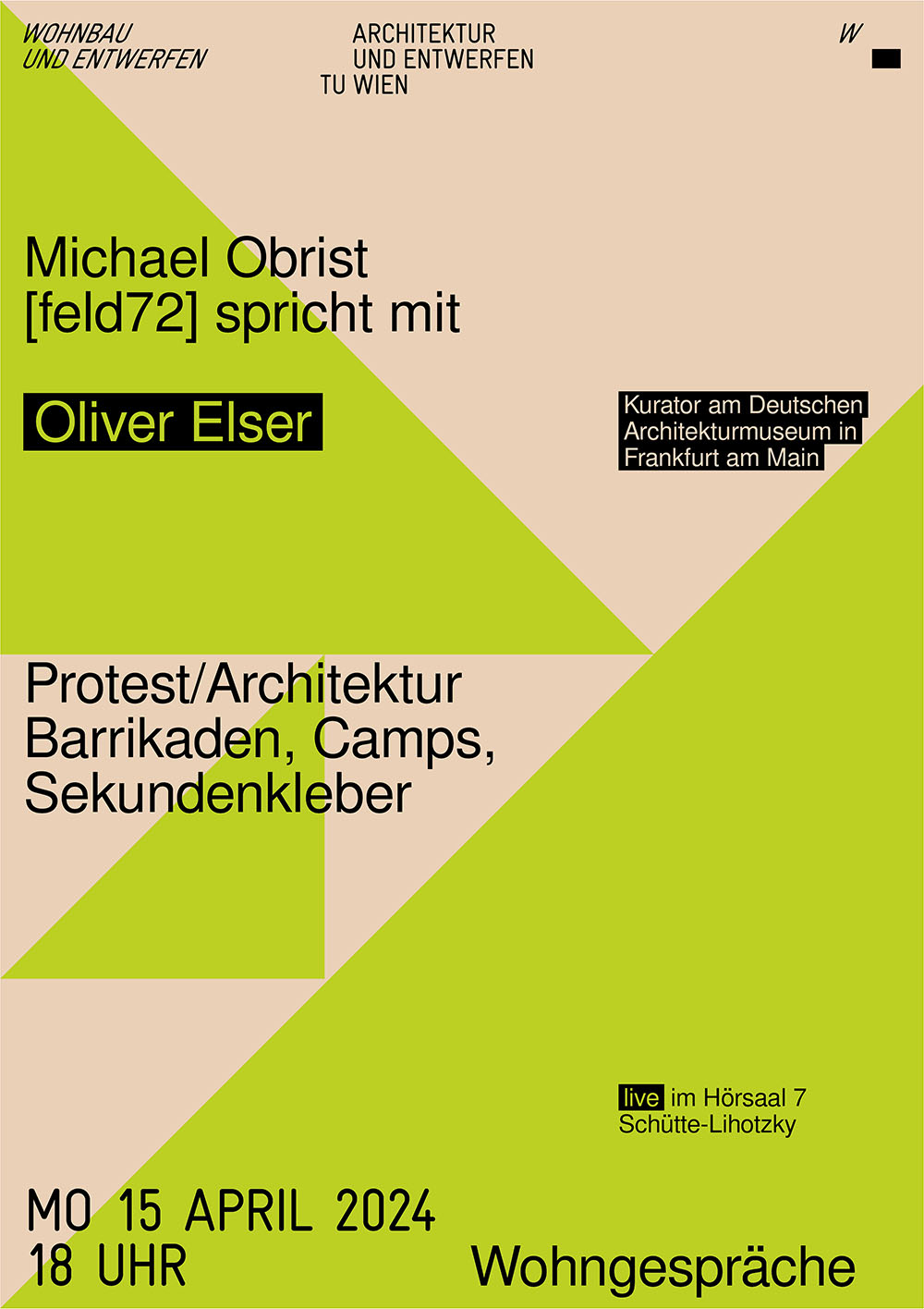
APR 15, 2024
18:00
HOUSING TALKS:
OLIVER ELSER
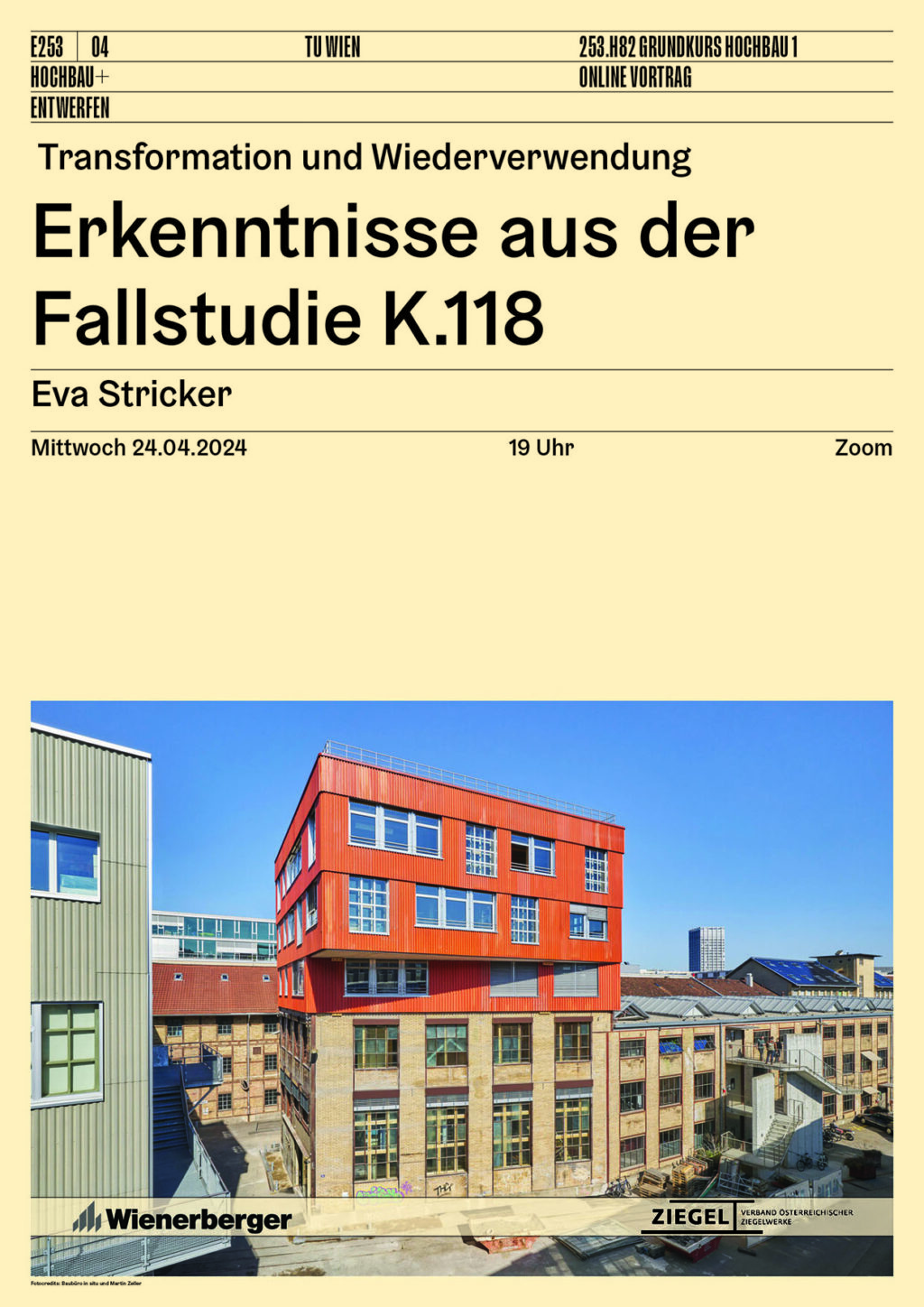
APR 24, 2024
19:00
LECTURE:
EVA STRICKER
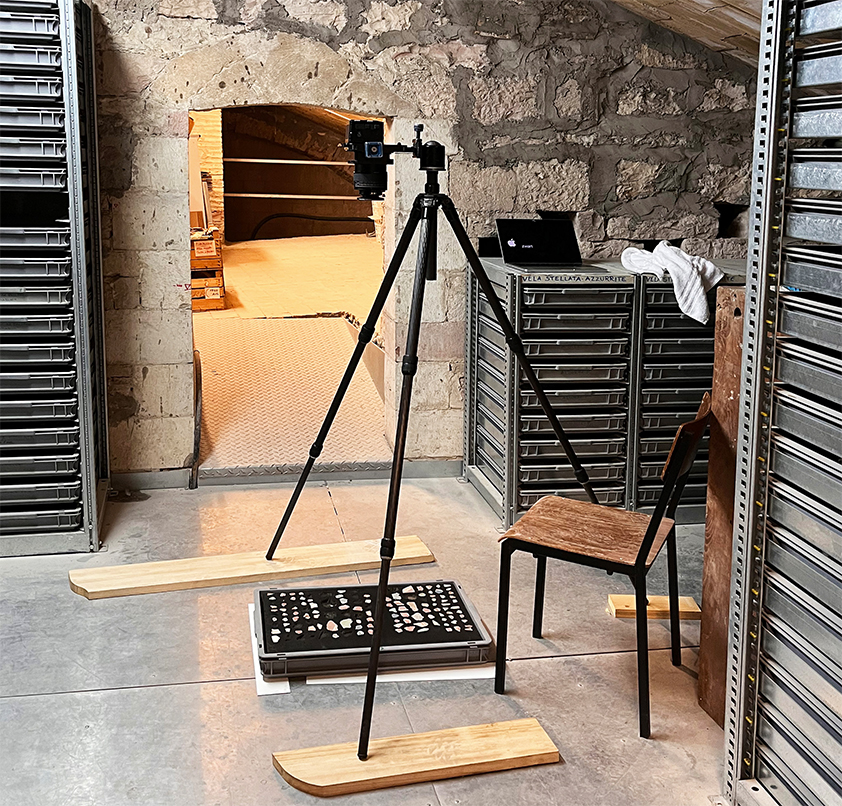
MAY 2, 2024
18:00
LECTURE:
BAS PRINCEN
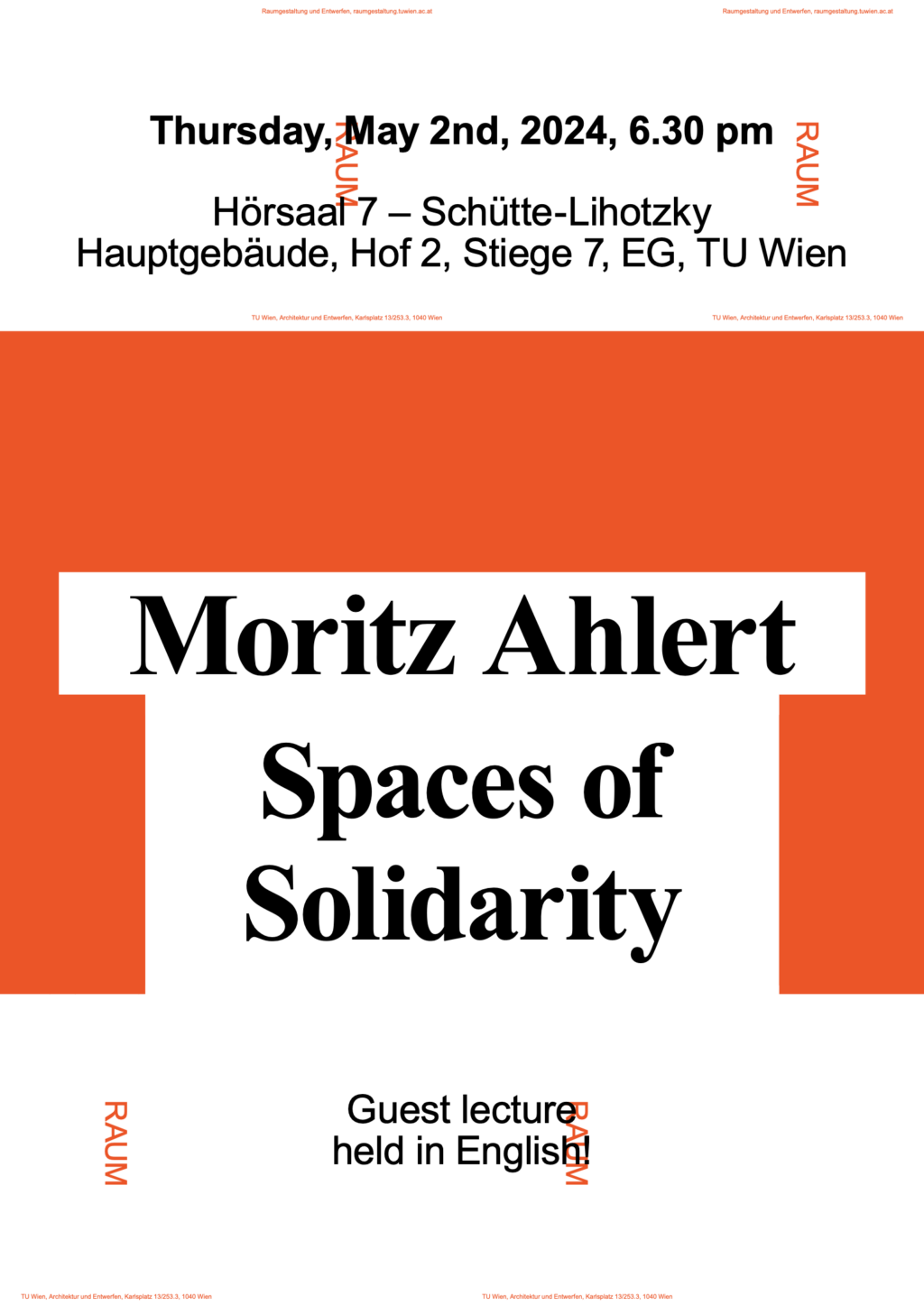
MAY 2, 2024
18:30
LECTURE:
MORITZ AHLERT
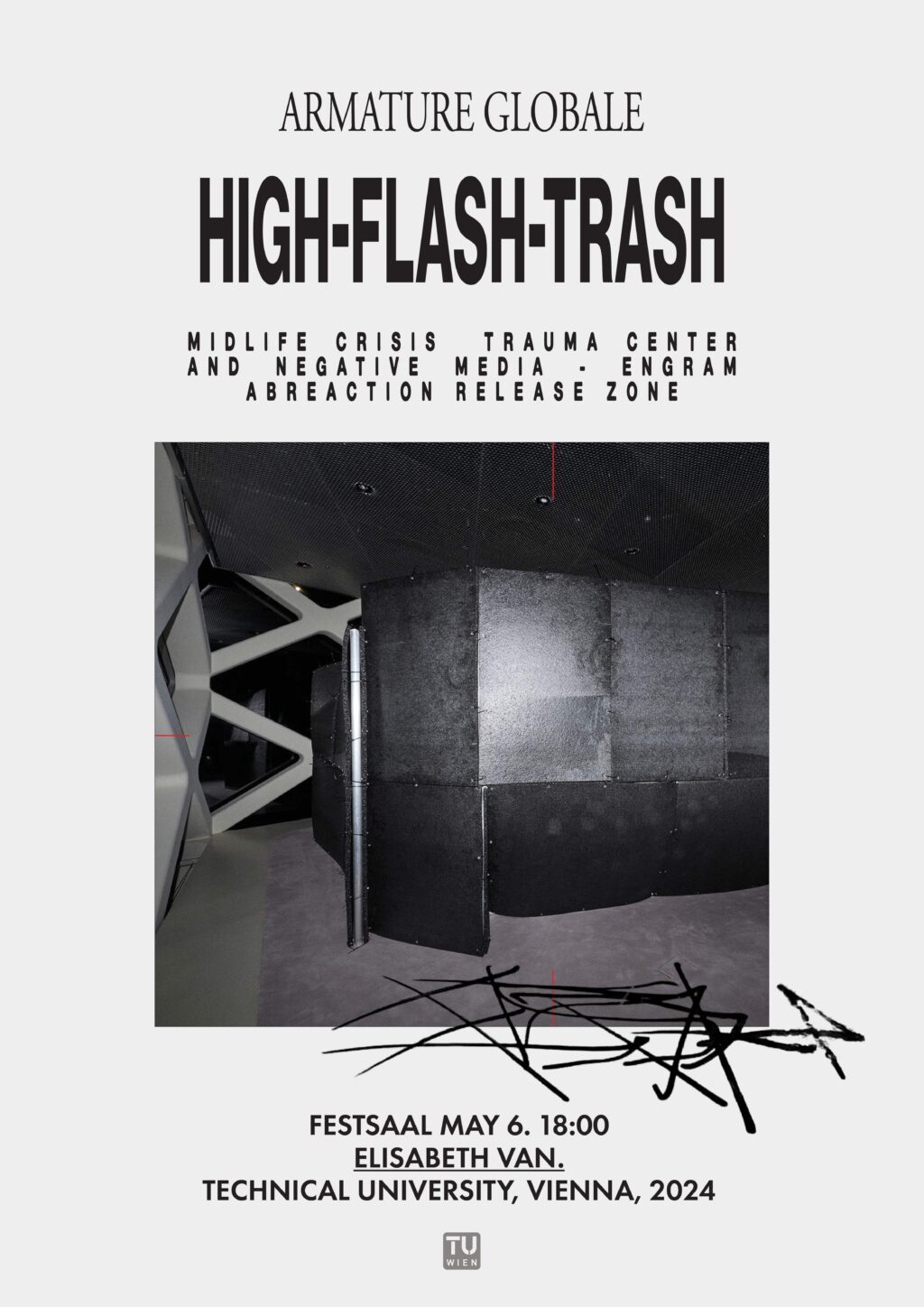
MAY 6, 2024
18:00
LECTURE:
LUIGI ALBERTO CIPPINI
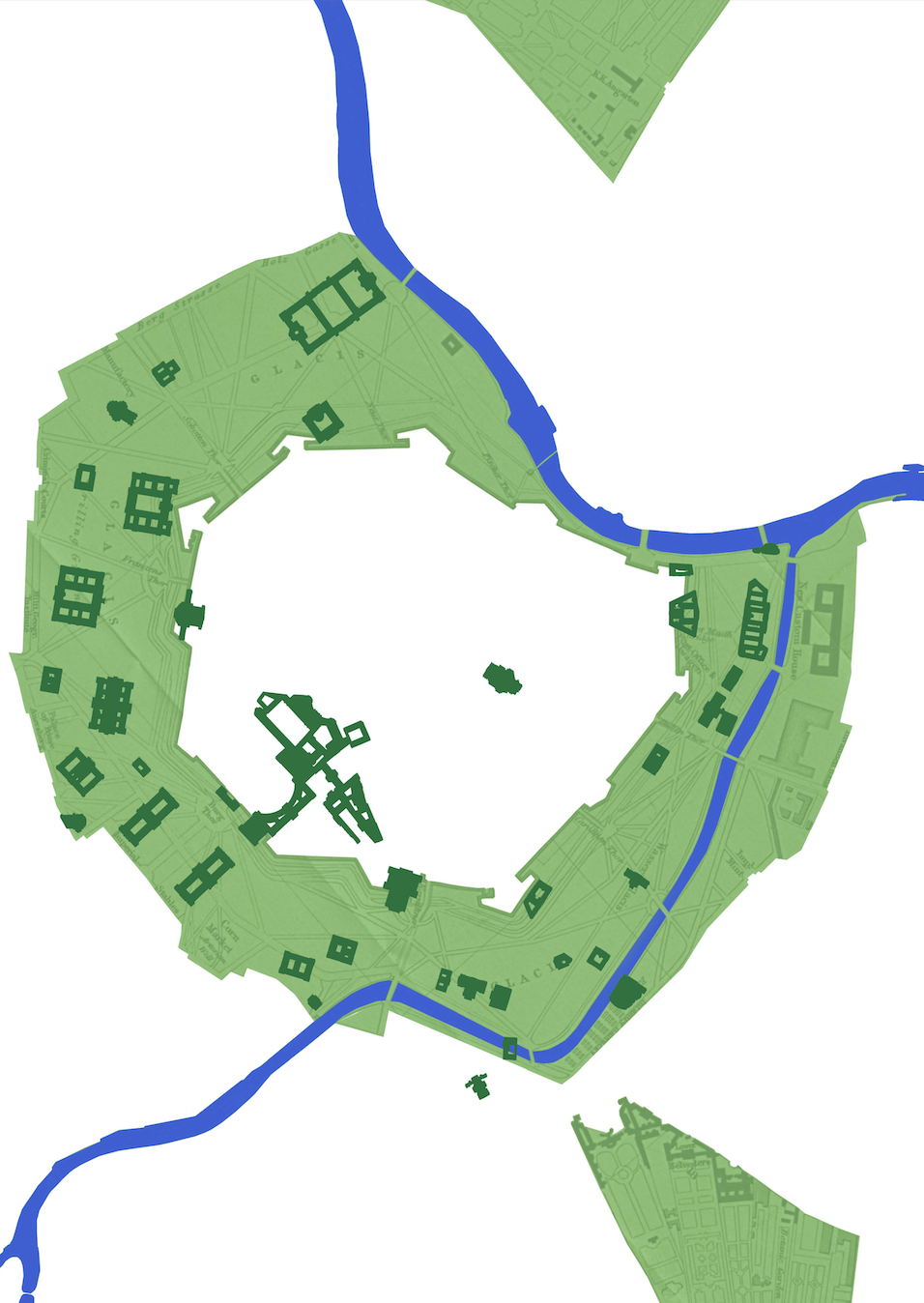
MAY 8, 2024
09:00
EXHIBITION:
EIN NEUES HAUS DER BOTANIK
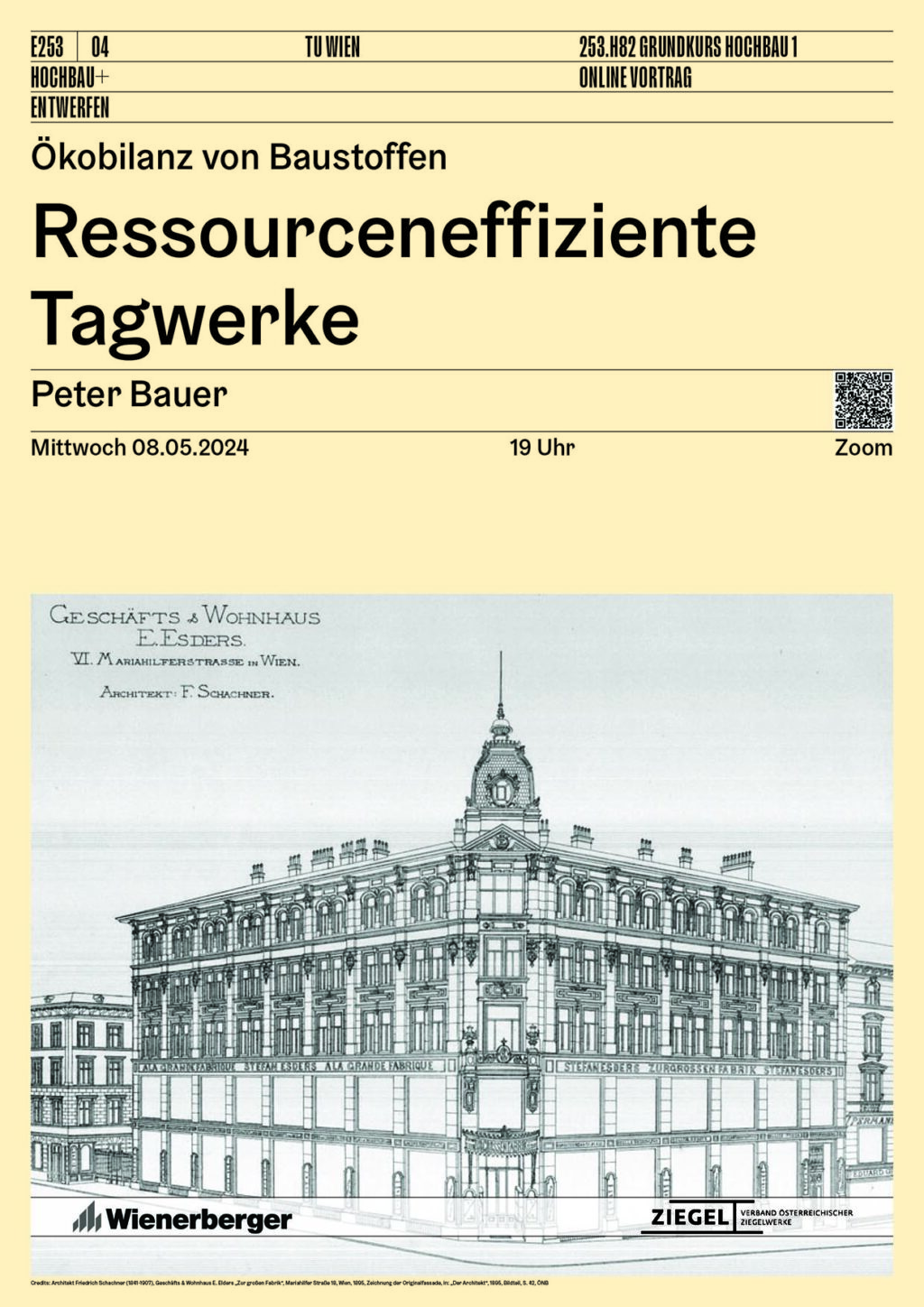
MAY 8, 2024
19:00
LECTURE:
PETER BAUER
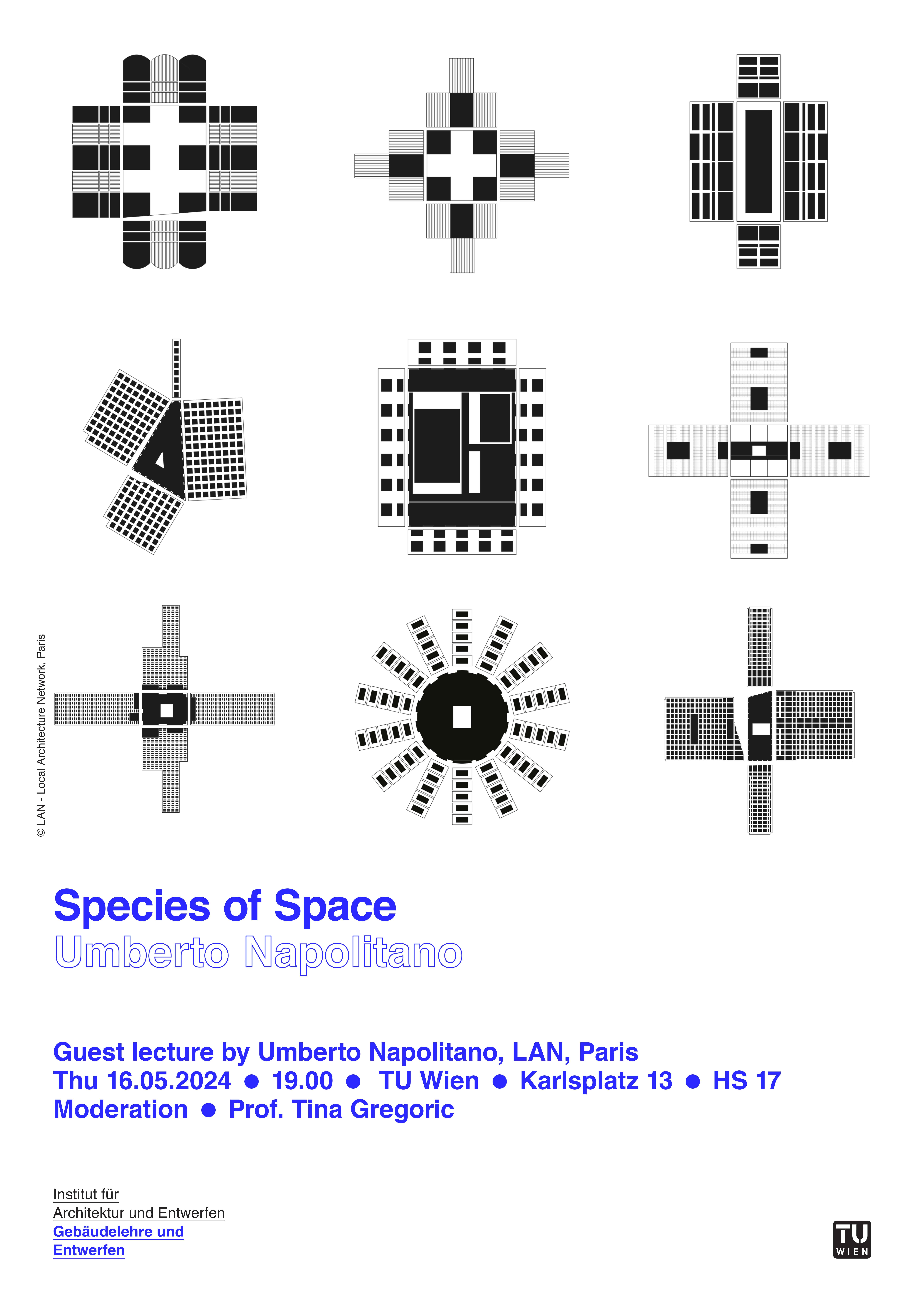
MAY 16, 2024
19:00
LECTURE:
UMBERTO NAPOLITANO
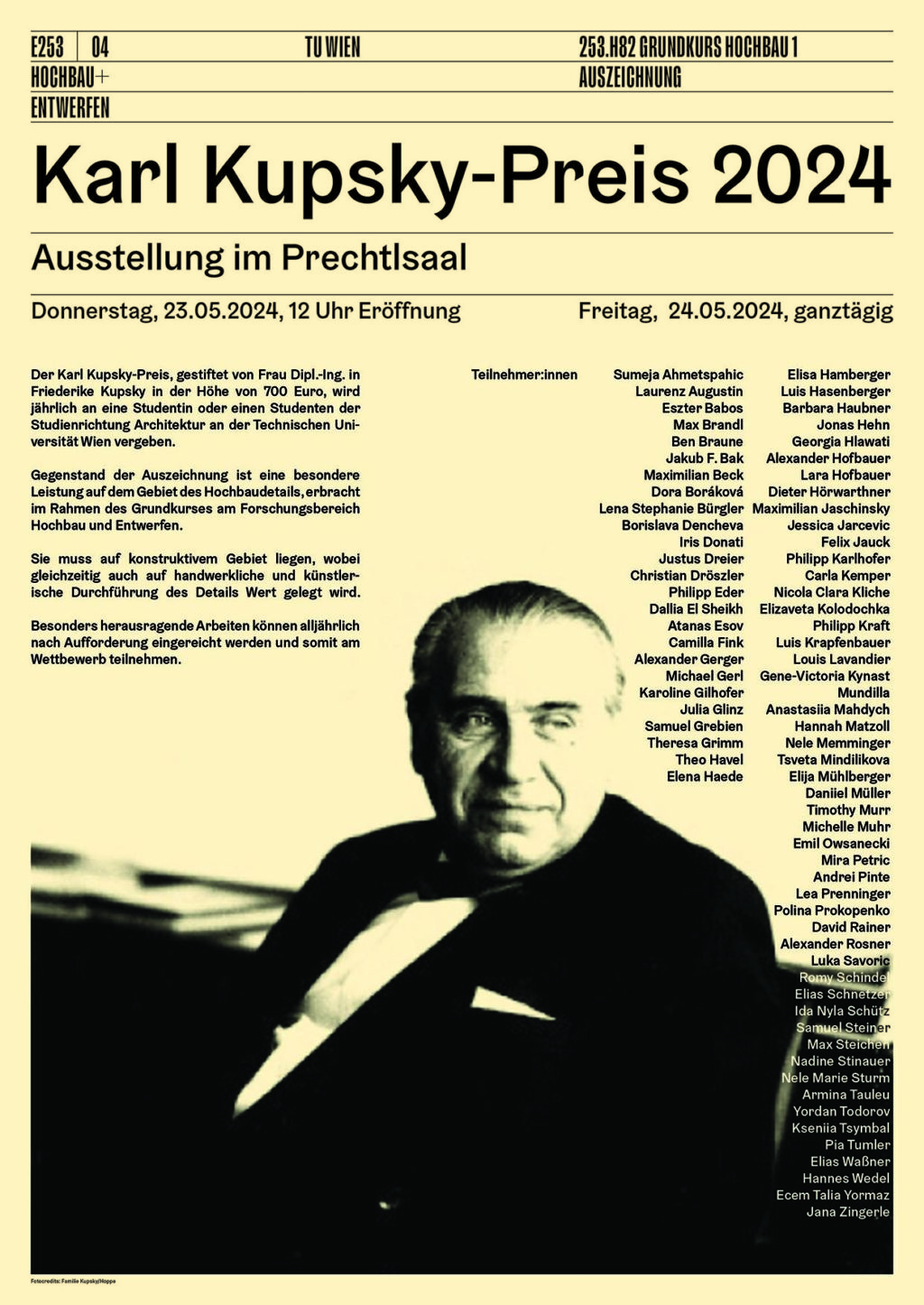
MAY 23, 2024
12:15
EXHIBITION:
KARL KUPSKY-PREIS 2024
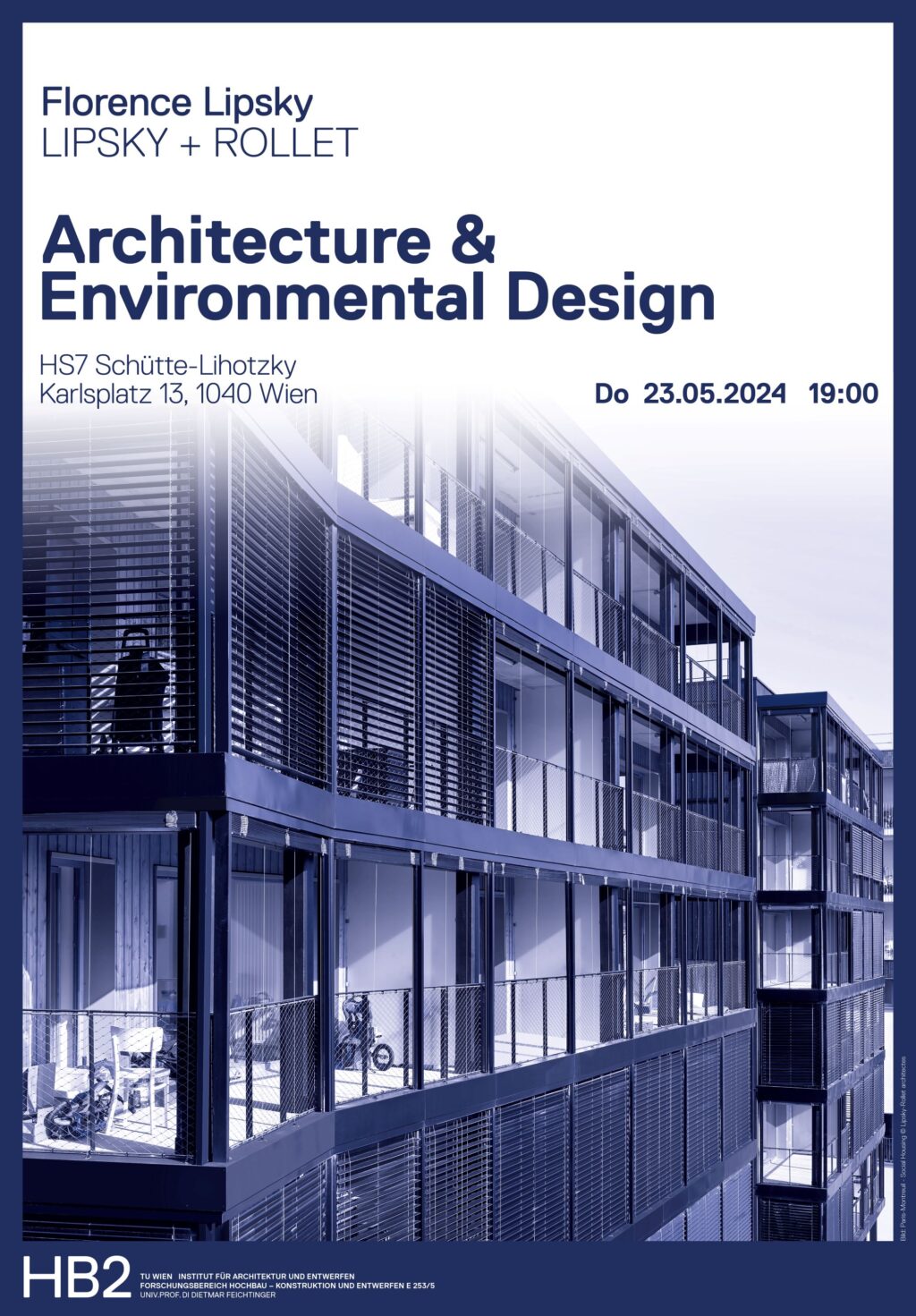
MAY 23, 2024
19:00
LECTURE:
FLORENCE LIPSKY
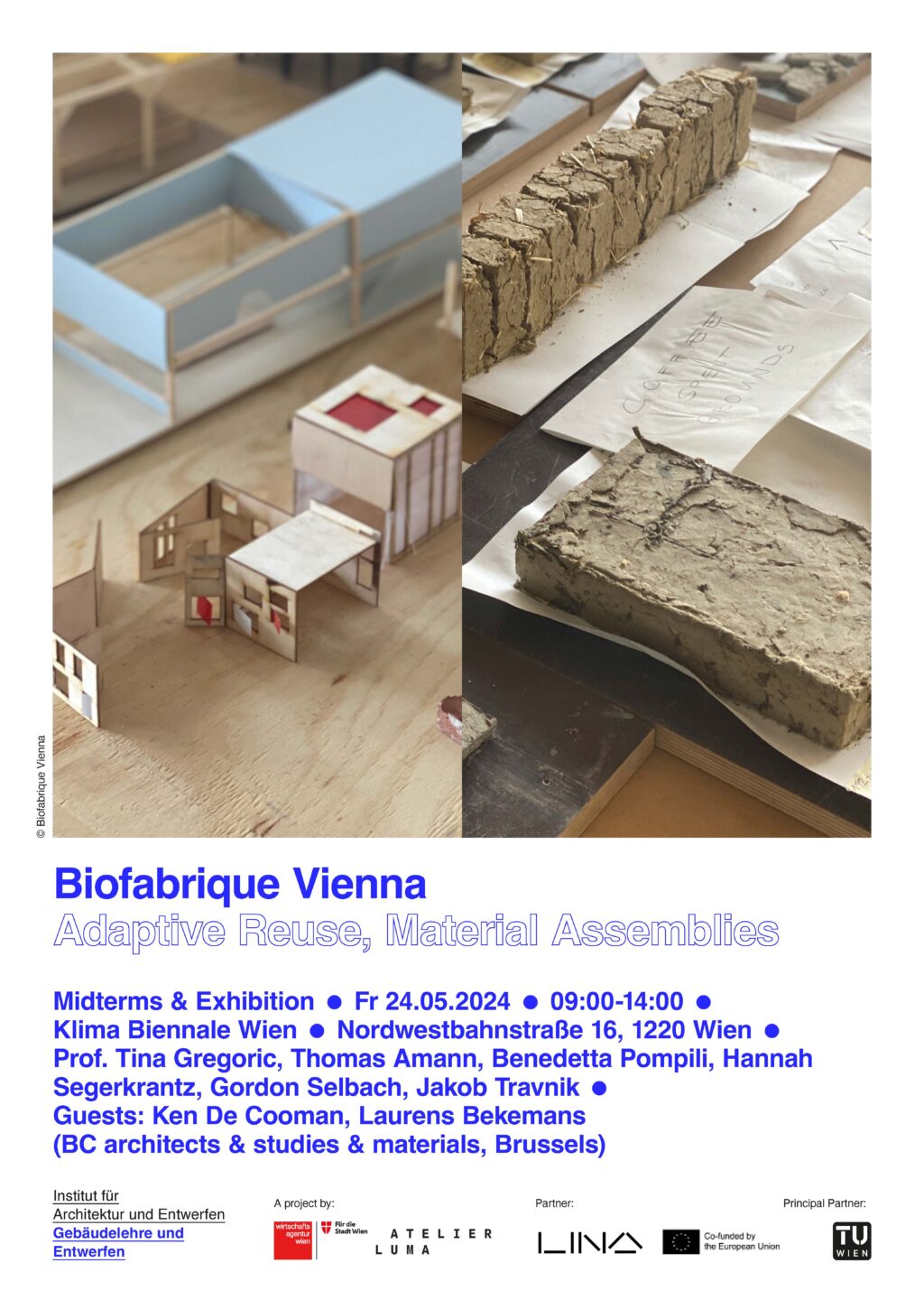
MAY 24, 2024
09:00
Exhibition:
Biofabrique Vienna
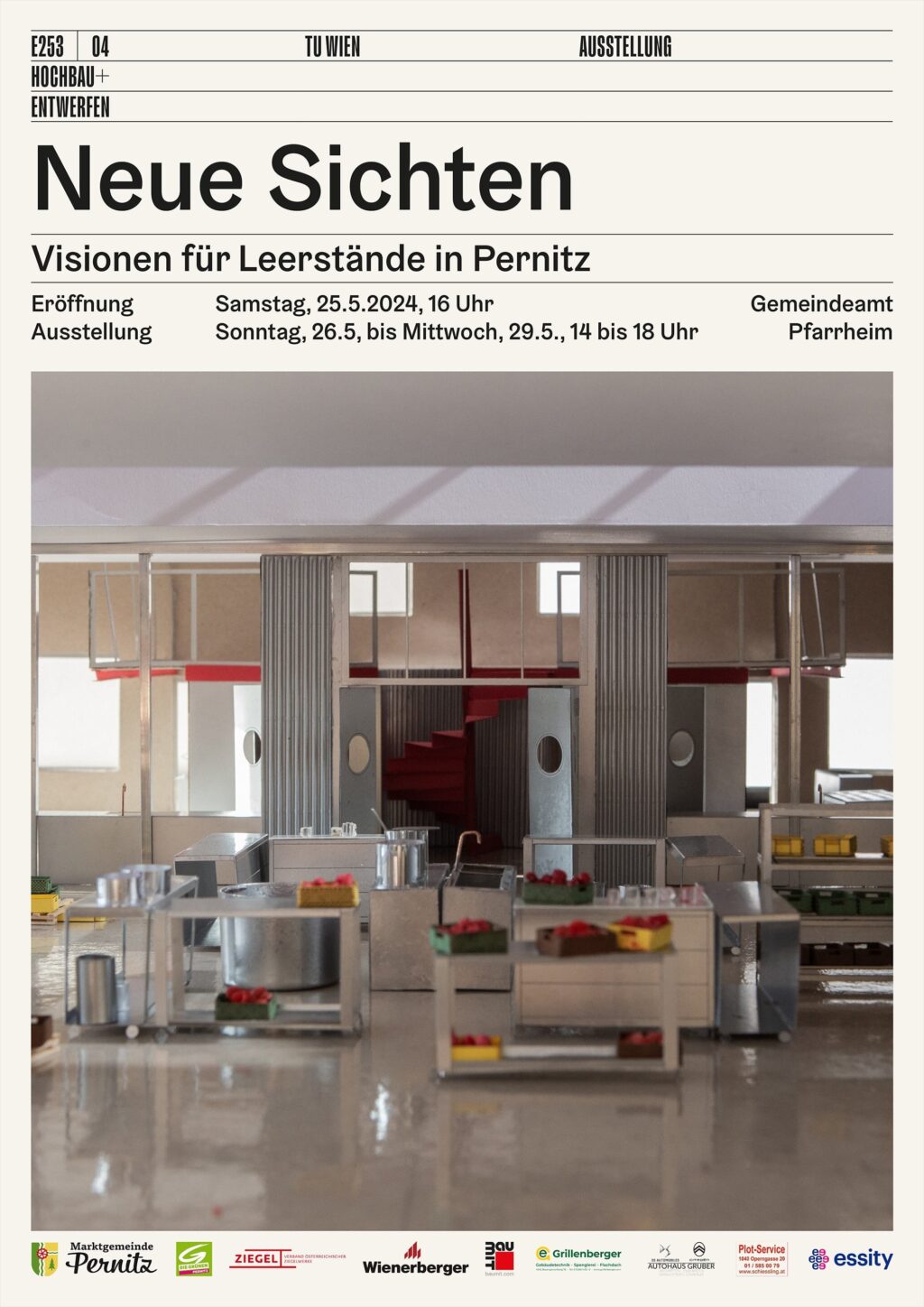
MAY 25, 2024
16:00
EXHIBITION OPENING:
NEUE SICHTEN
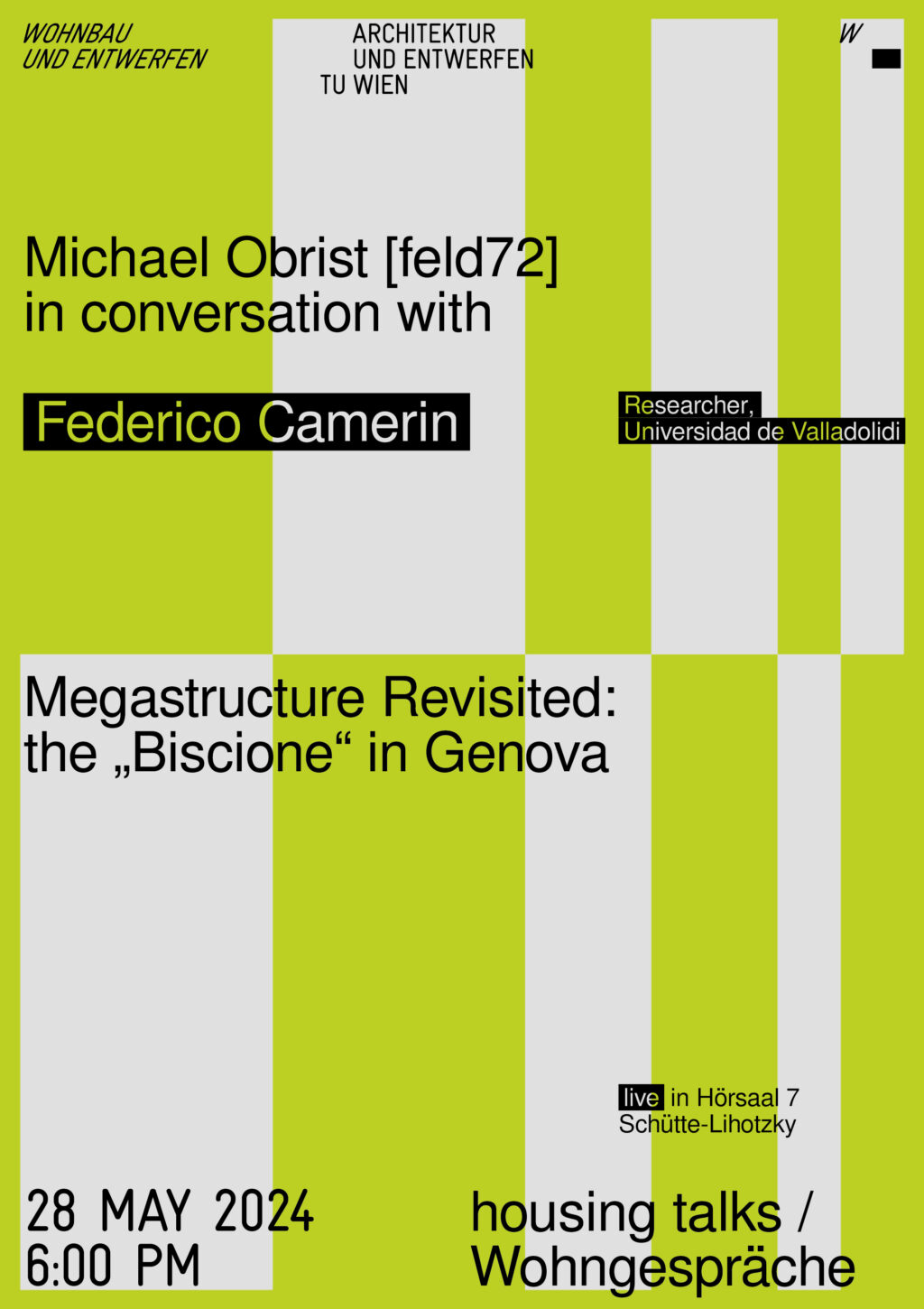
MAY 28, 2024
18:00
HOUSING TALKS:
FEDERICO CAMERIN
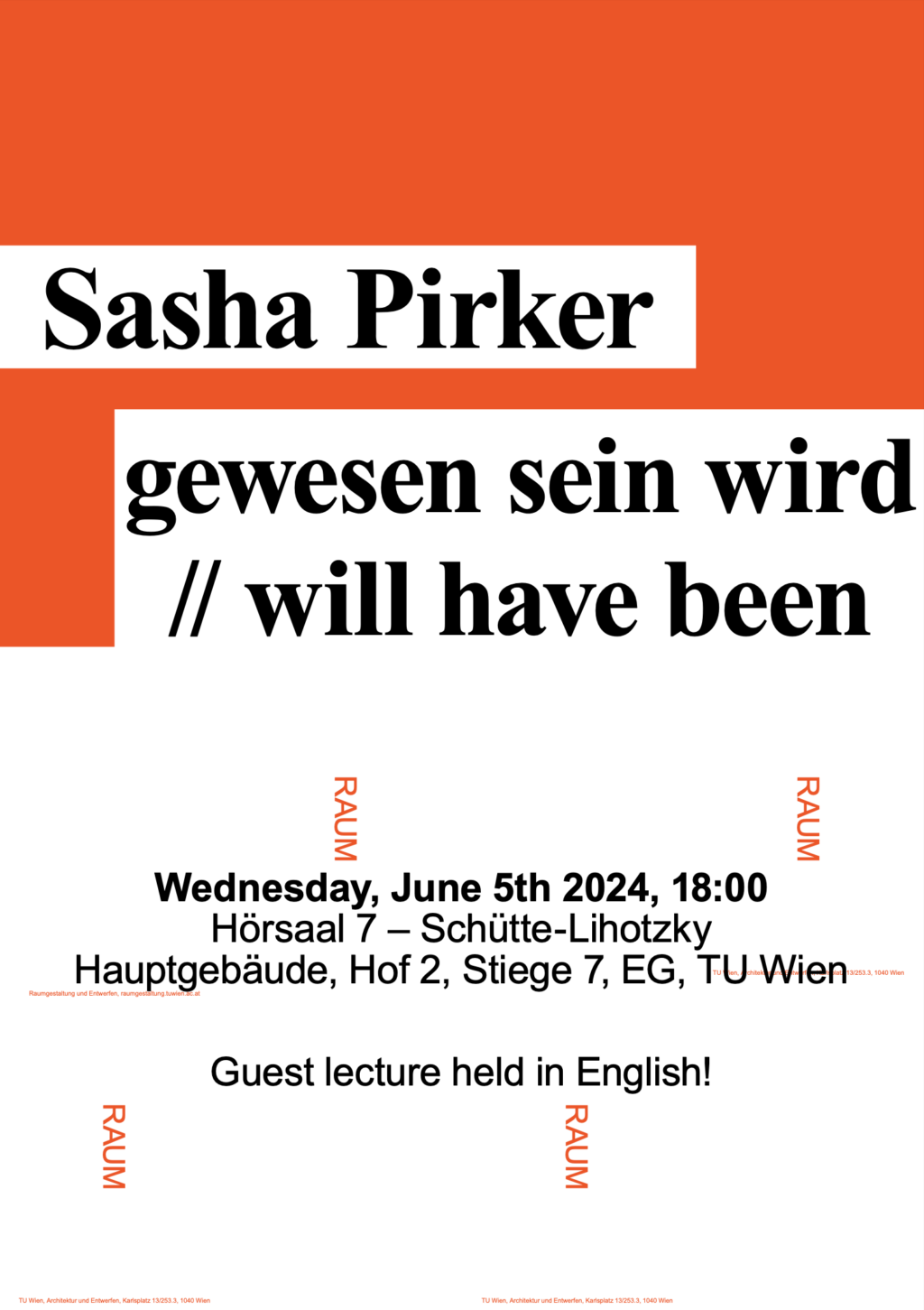
JUN 5, 2024
18:00
LECTURE:
SASHA PIRKER
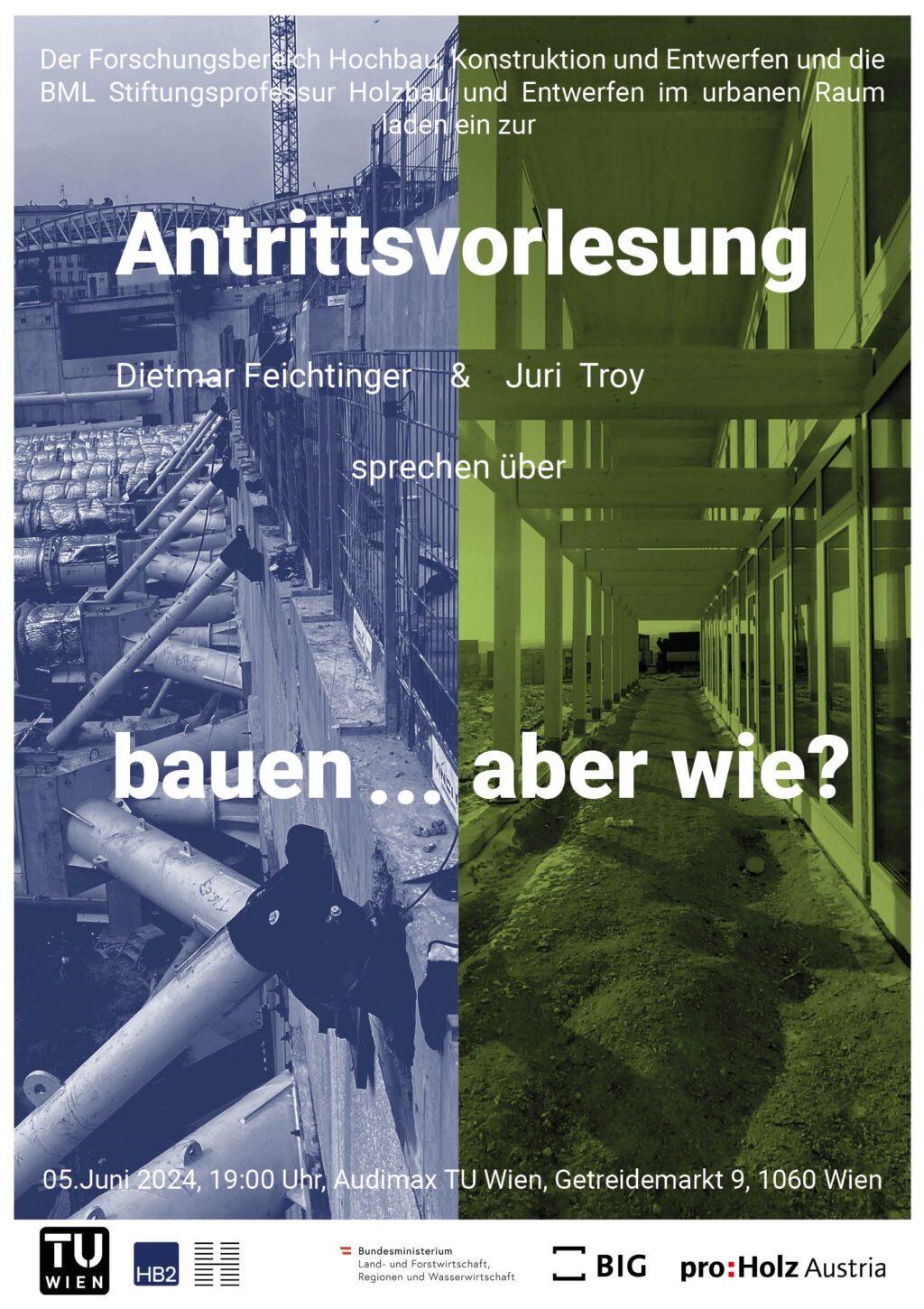
JUN 5, 2024
19:00
INAUGURAL LECTURE:
DIETMAR FEICHTINGER & JURI TROY
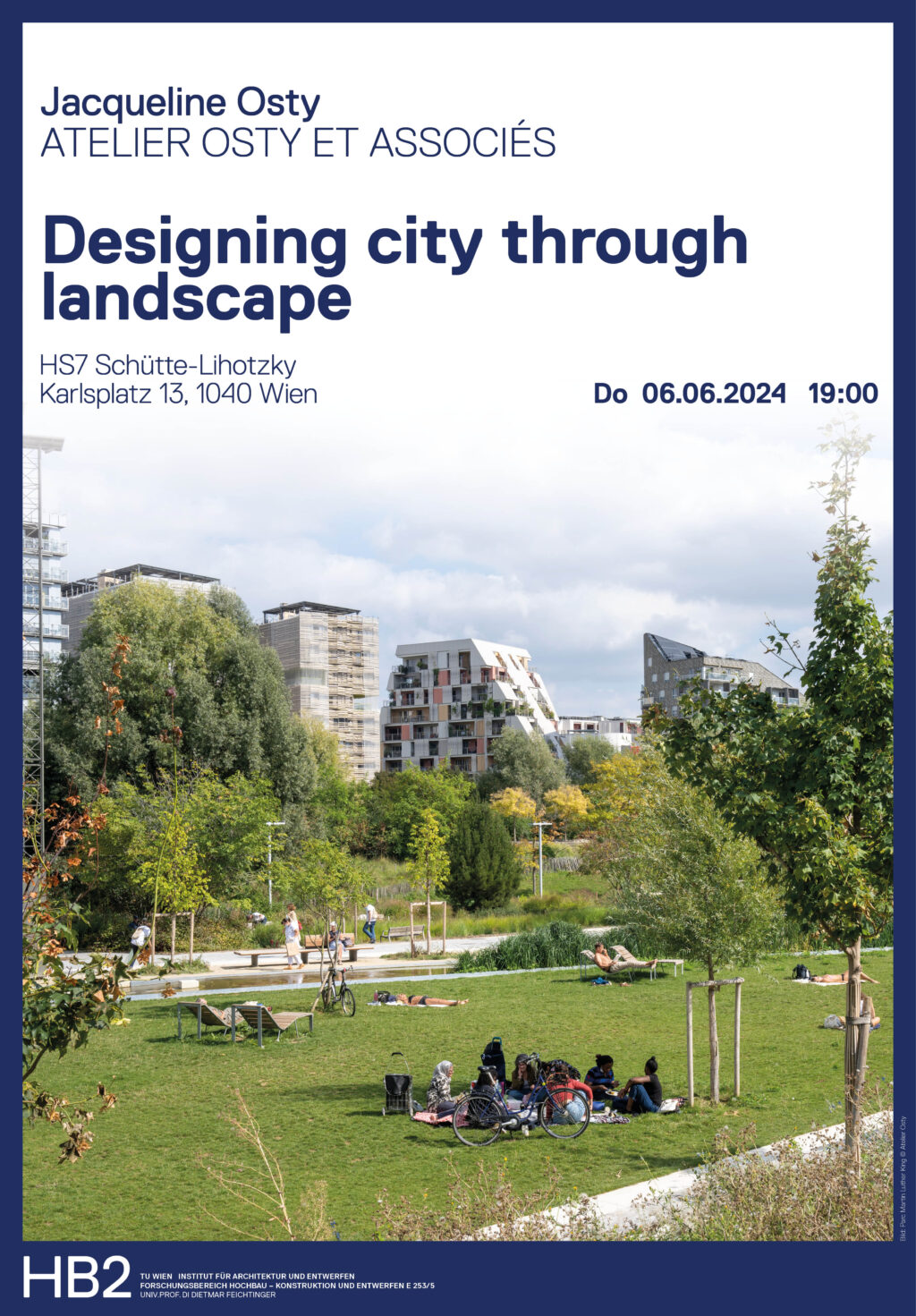
JUN 6, 2024
19:00
LECTURE:
JACQUELINE OSTY
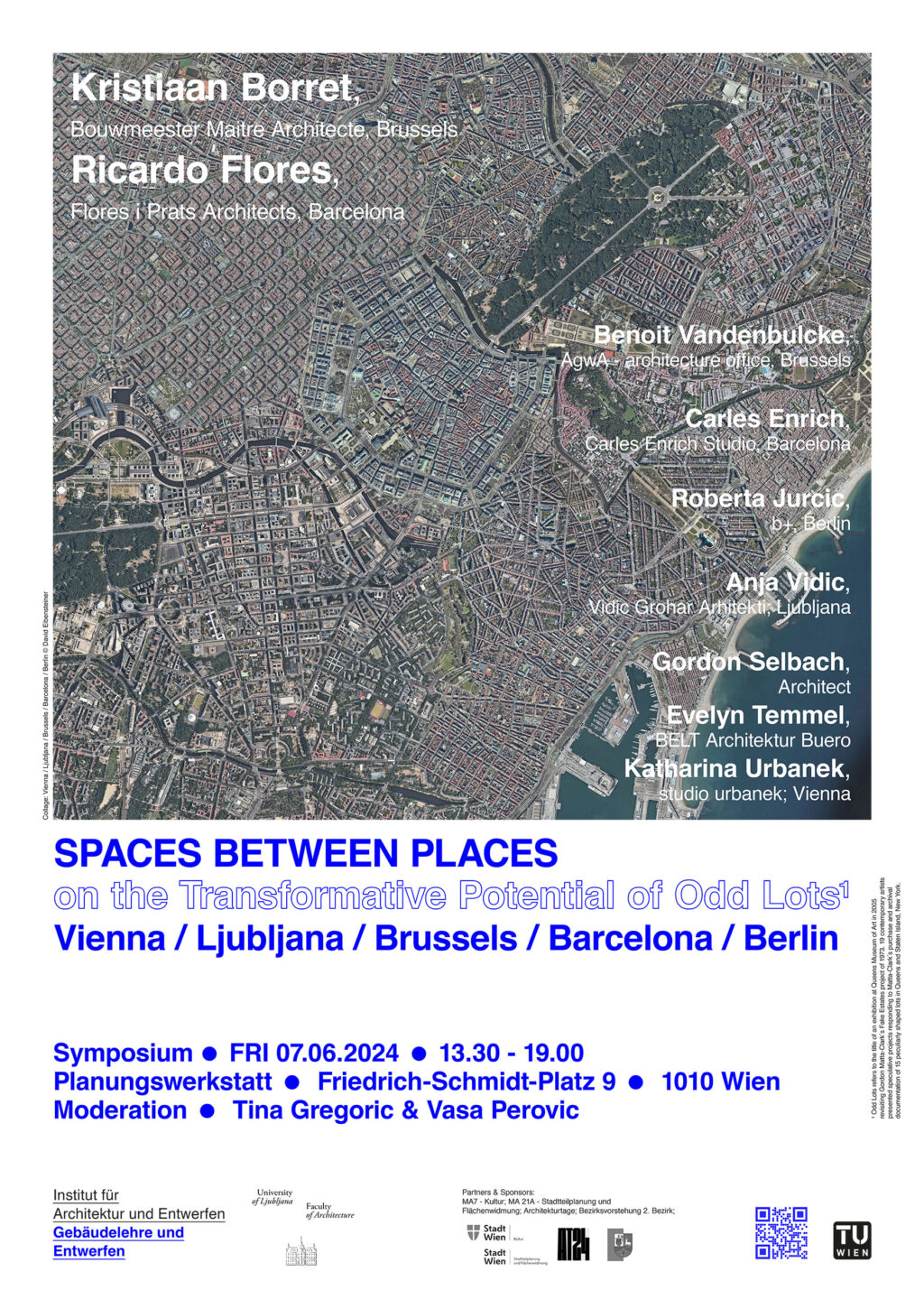
JUN 7, 2024
13:30
SYMPOSIUM & EXHIBITION:
SPACES BETWEEN PLACES
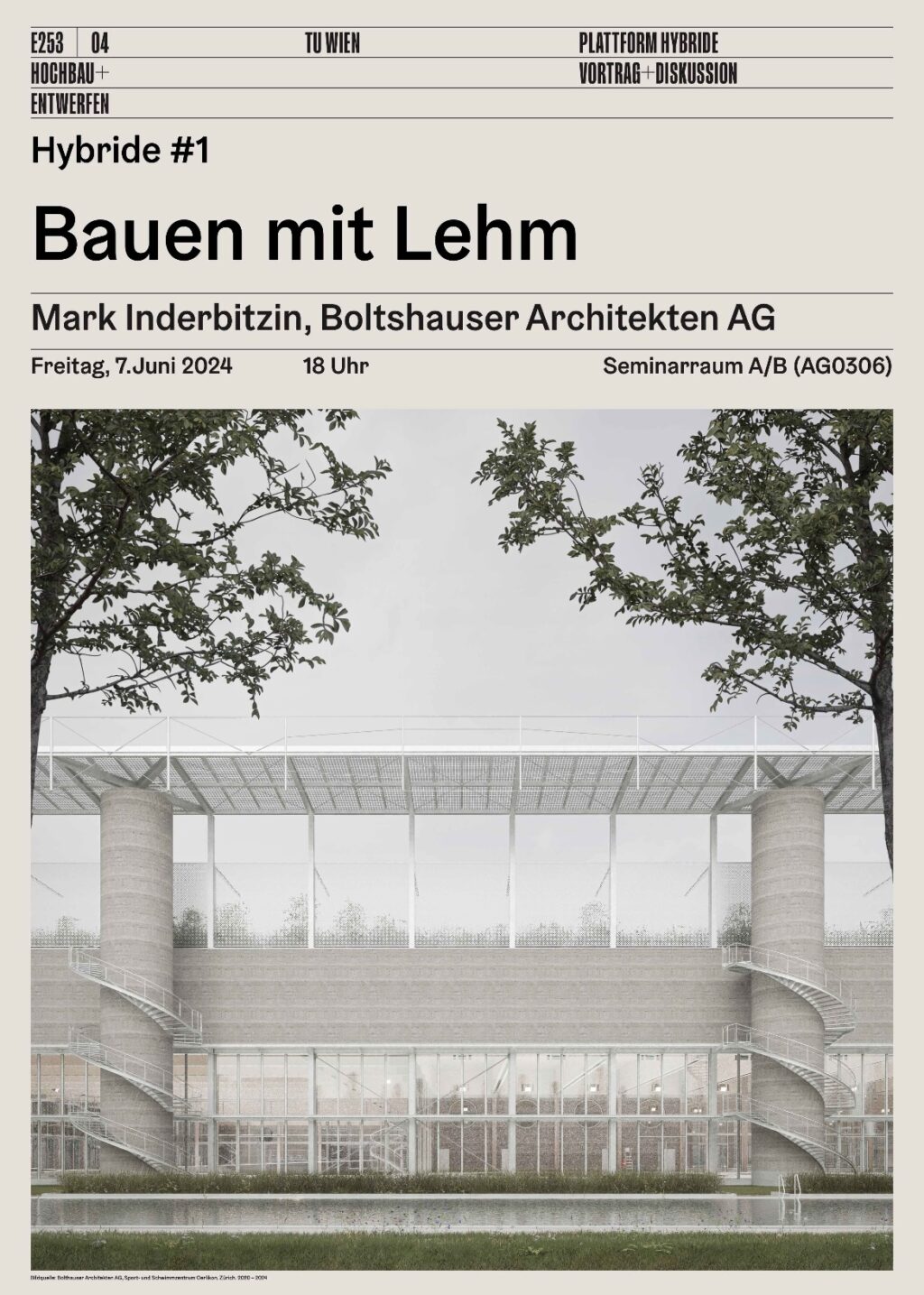
JUN 7, 2024
18:00
LECTURE & DISCUSSION:
MARK INDERBITZIN
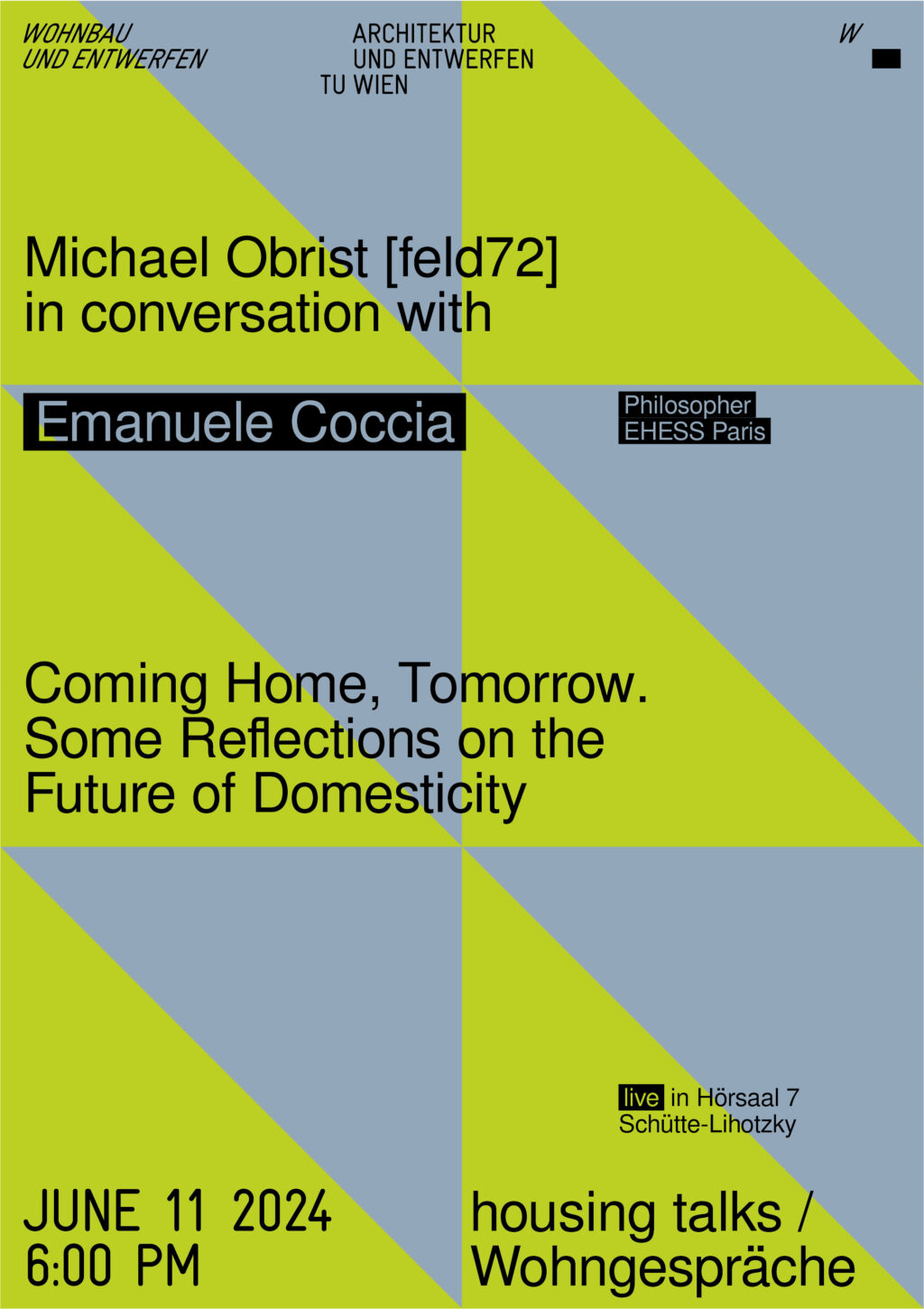
JUN 11, 2024
18:00
HOUSING TALKS: EMANUELE COCCIA
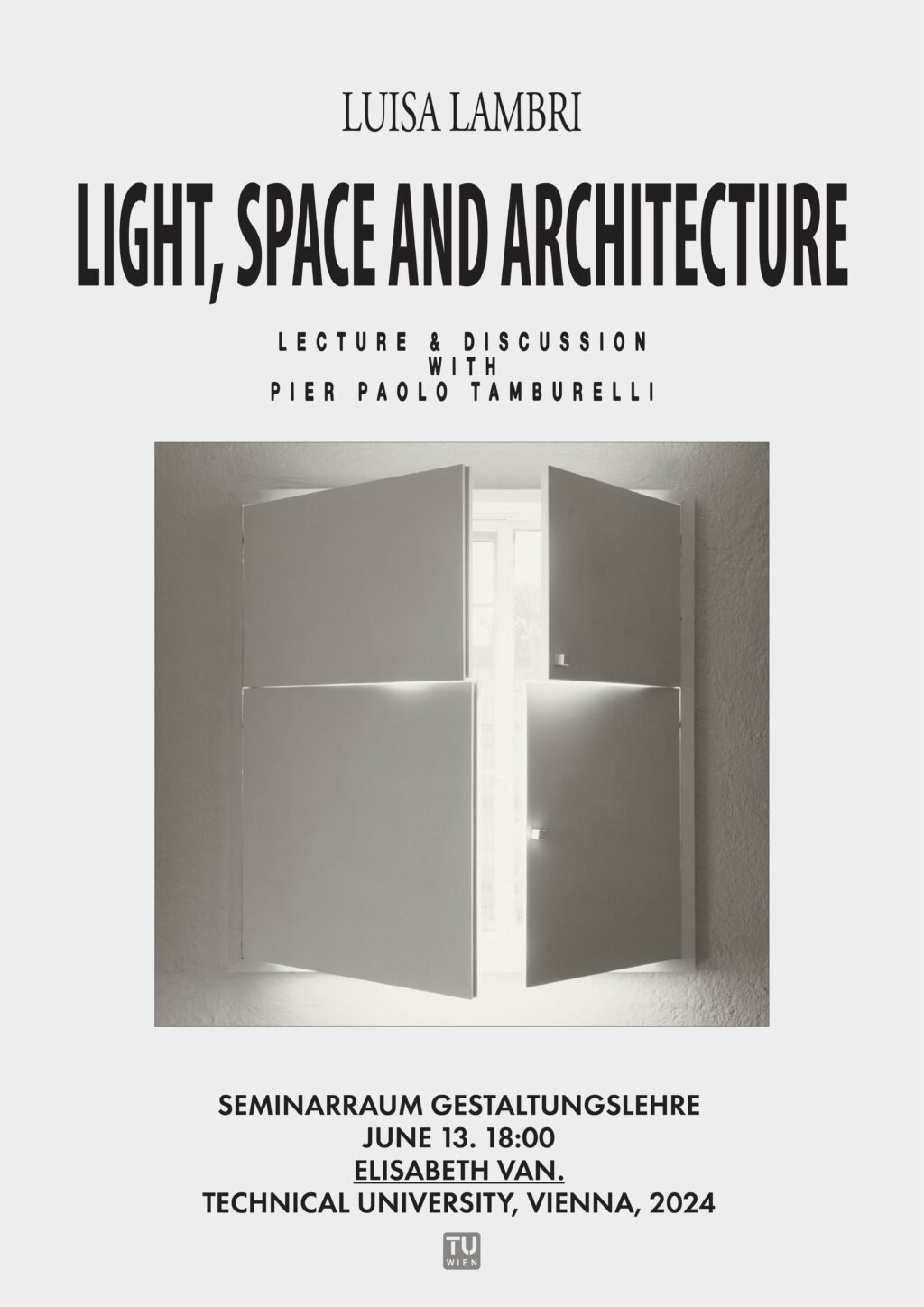
JUN 13, 2024
18:00
LECTURE & DISCUSSION:
LUISA LAMBRI
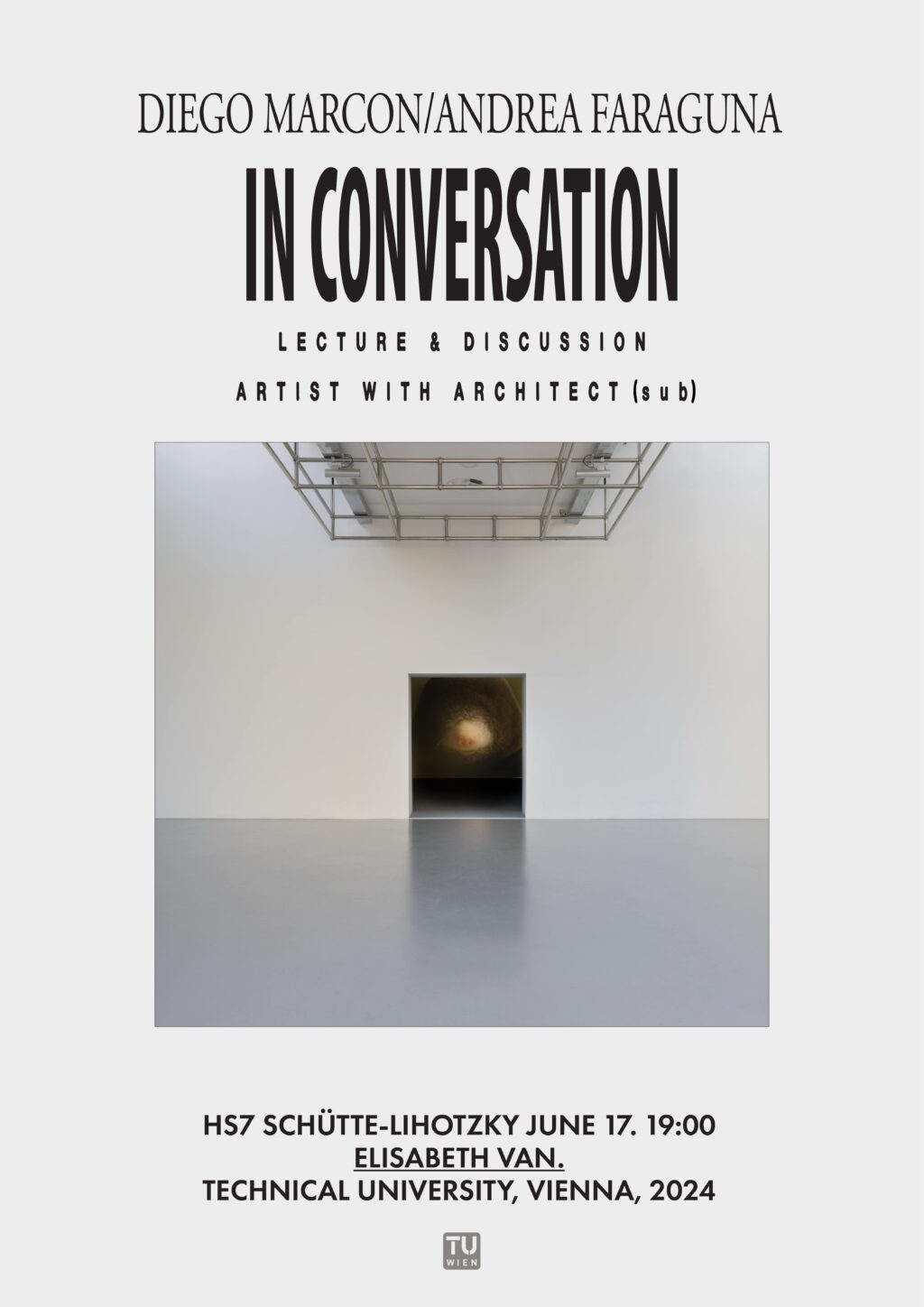
JUN 17, 2024
19:00
LECTURE & DISCUSSION:
DIEGO MARCON
ANDREA FARAGUNA
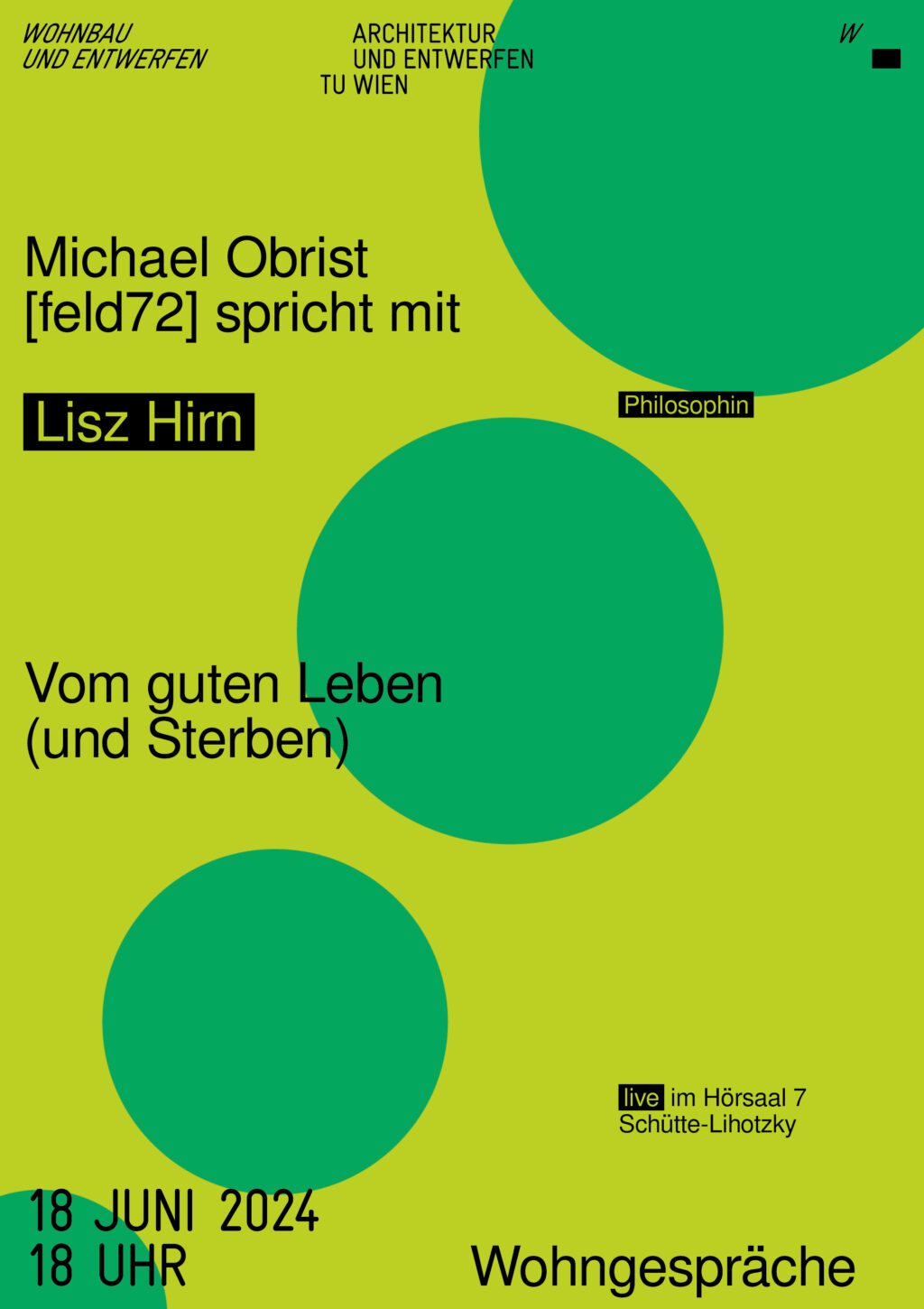
JUN 18, 2024
18:00
HOUSING TALKS: LISZ HIRN
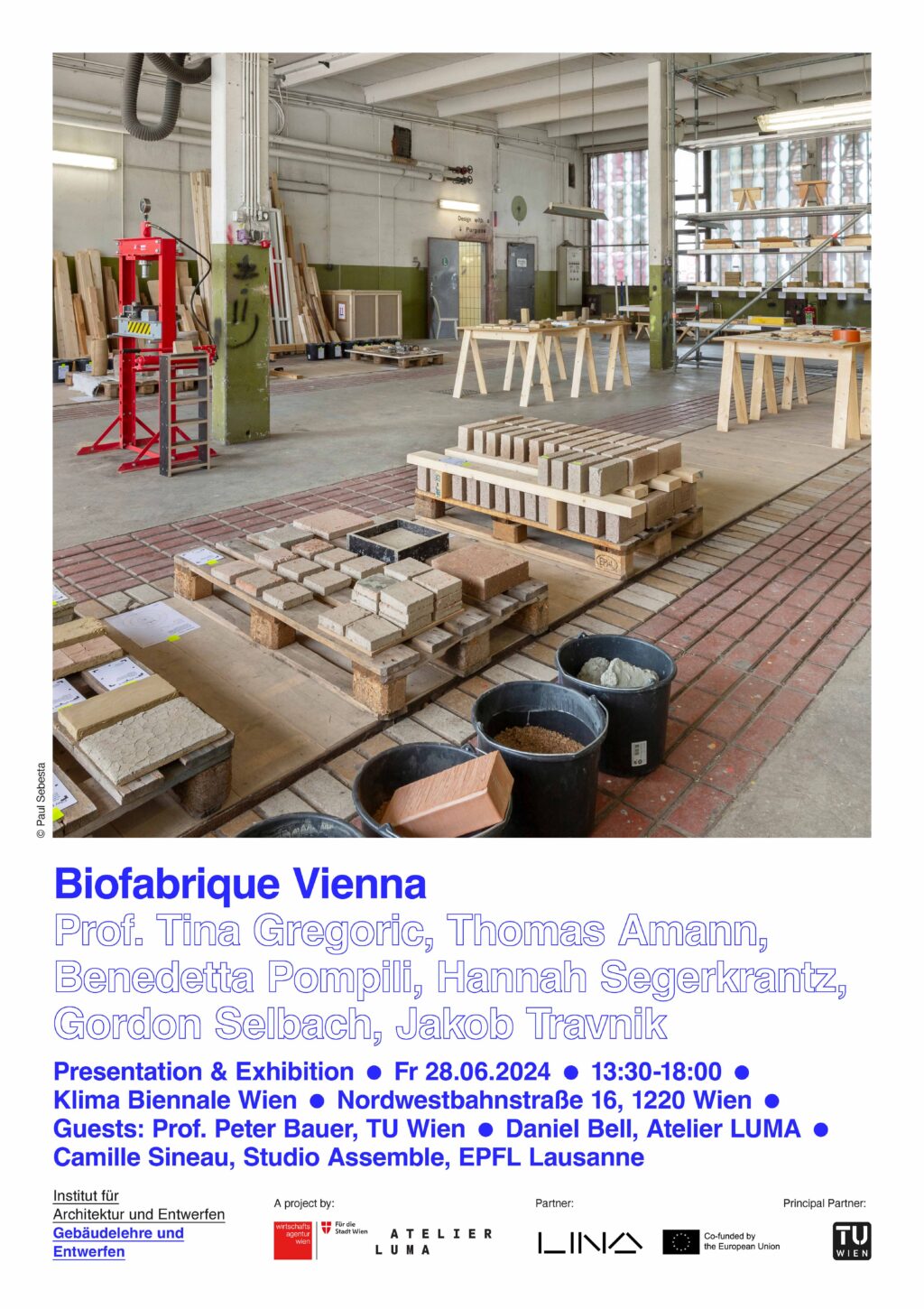
JUN 28, 2024
13:30
EXHIBITION:
BIOFABRIQUE VIENNA

JUL 10, 2024
17:00
CALL:
CURATION OF THE STUDENT'S NIGHT
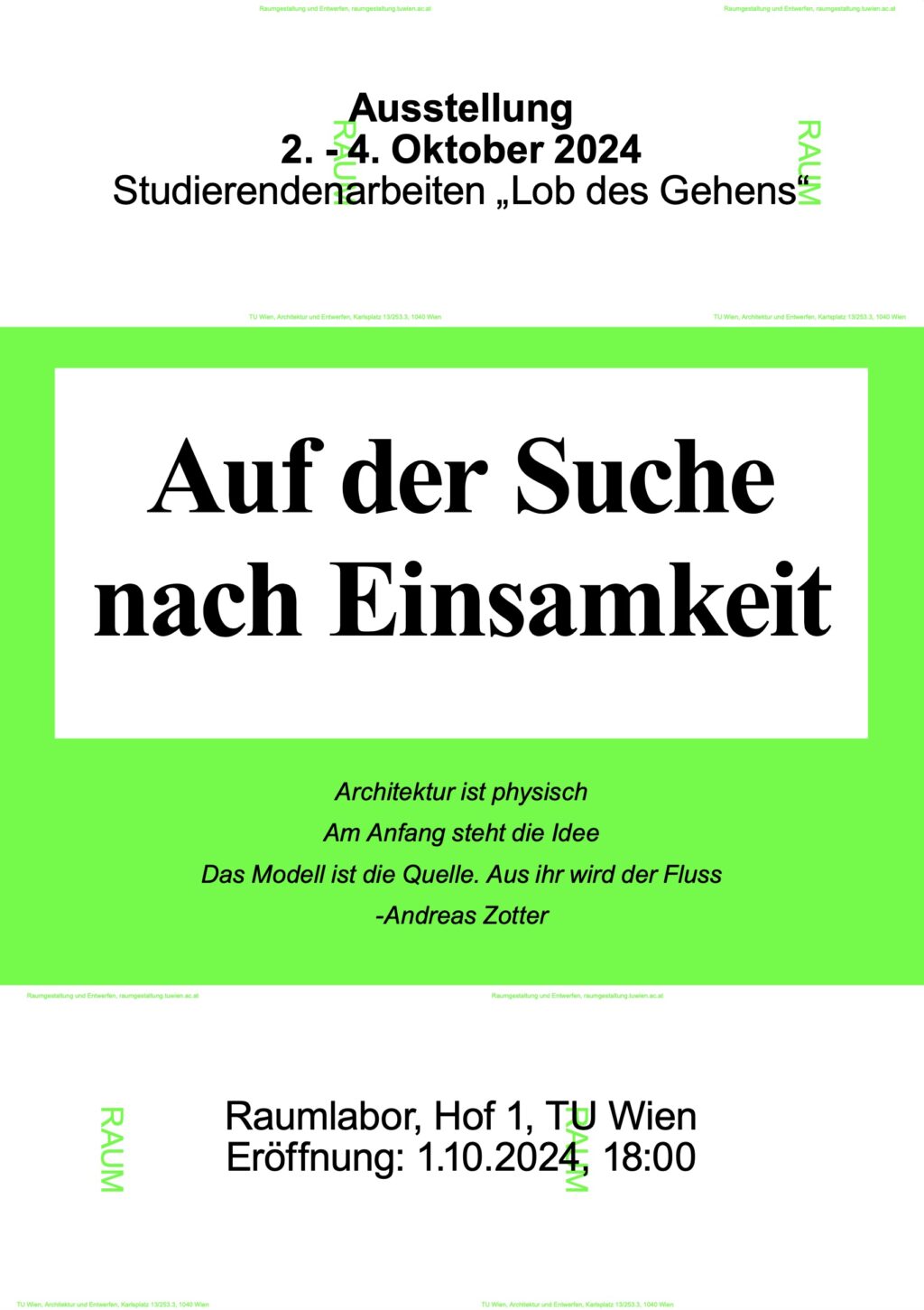
OCT 1, 2024
18:00
EXHIBITION:
AUF DER SUCHE NACH EINSAMKEIT
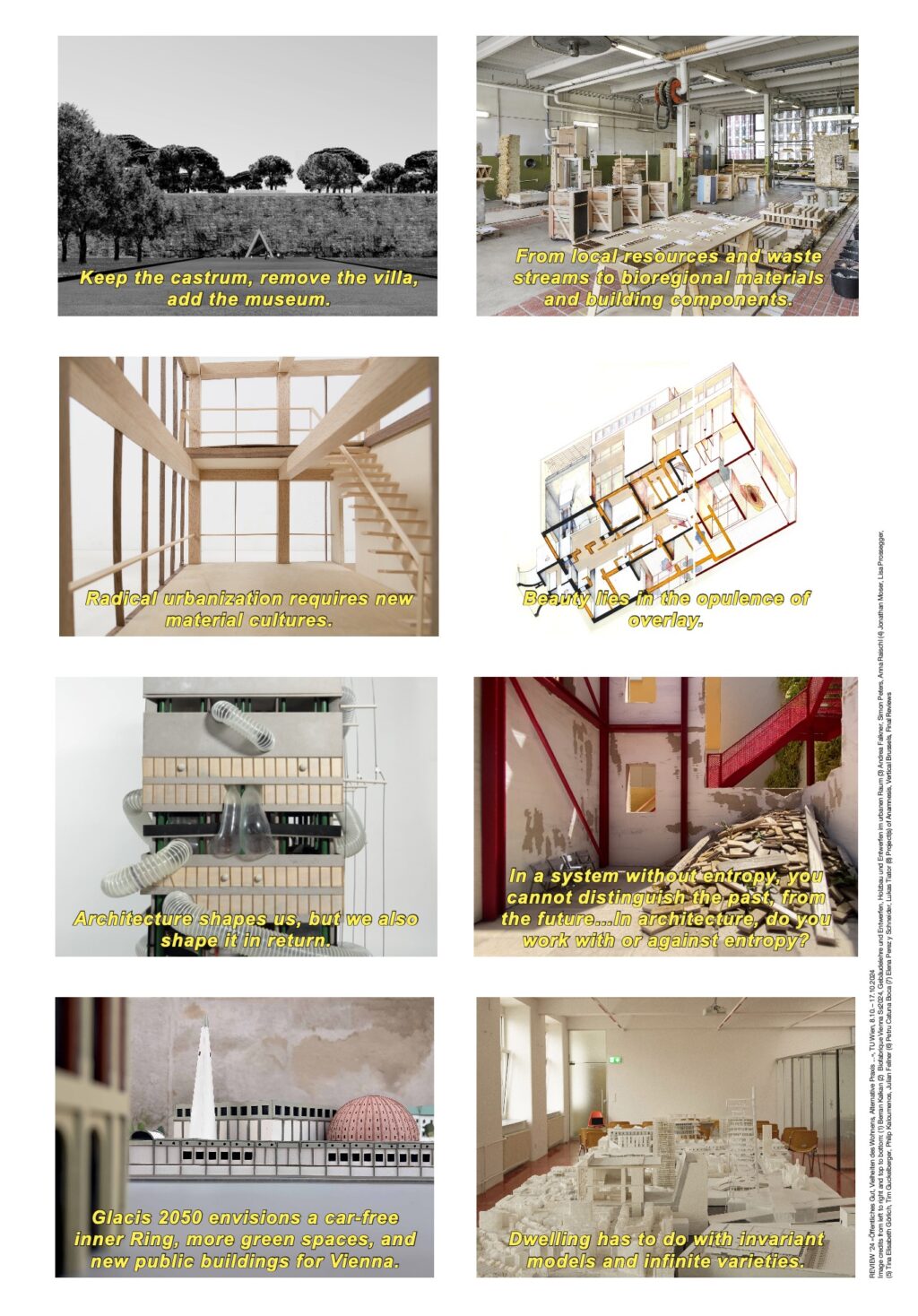
OCT 8, 2024
18:00
EXHIBITION:
REVIEW’24
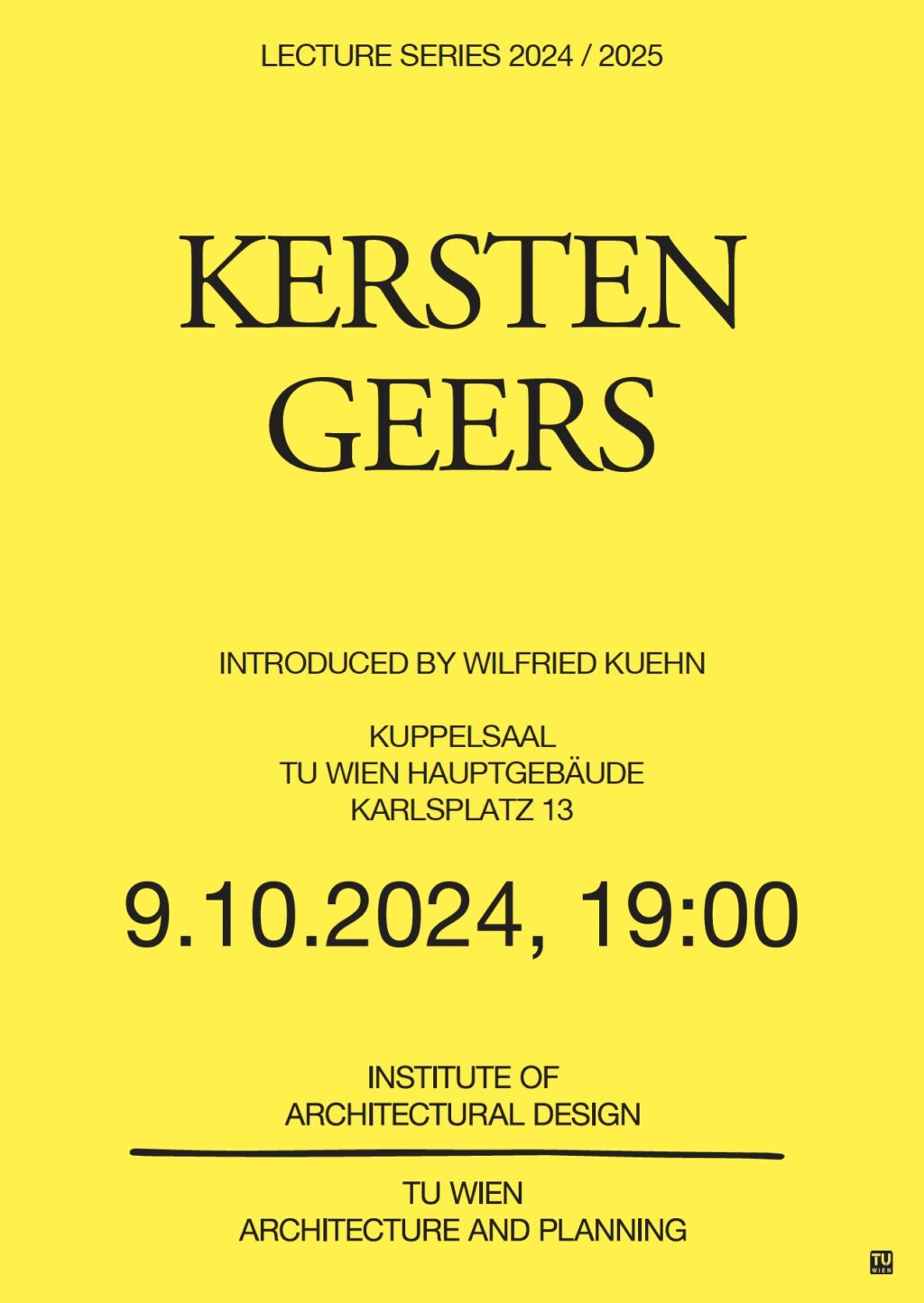
OCT 9, 2024
19:00
LECTURE: Kersten Geers
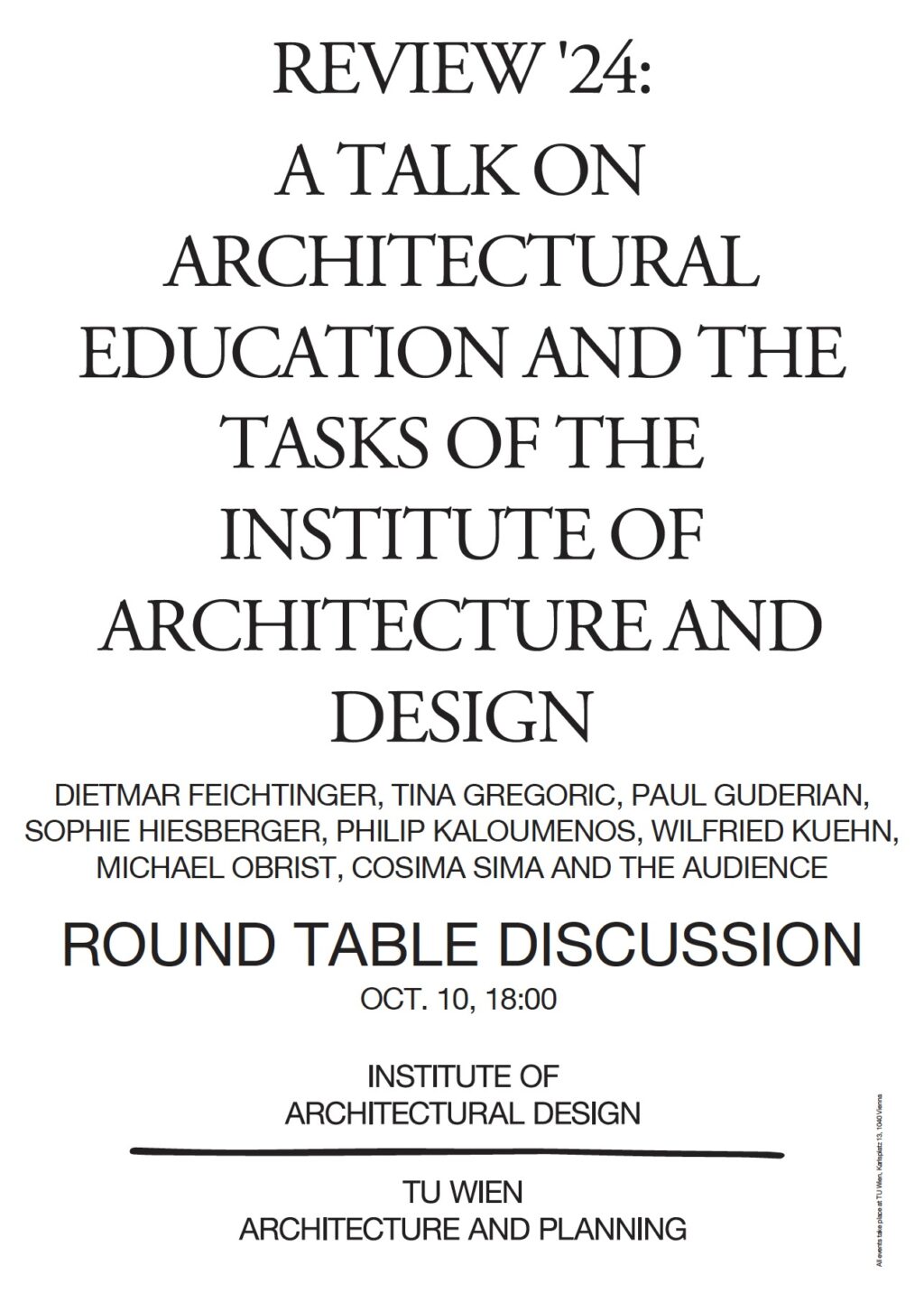
OCT 10, 2024
18:00
ROUND TABLE DISCUSSION:
REVIEW ’24
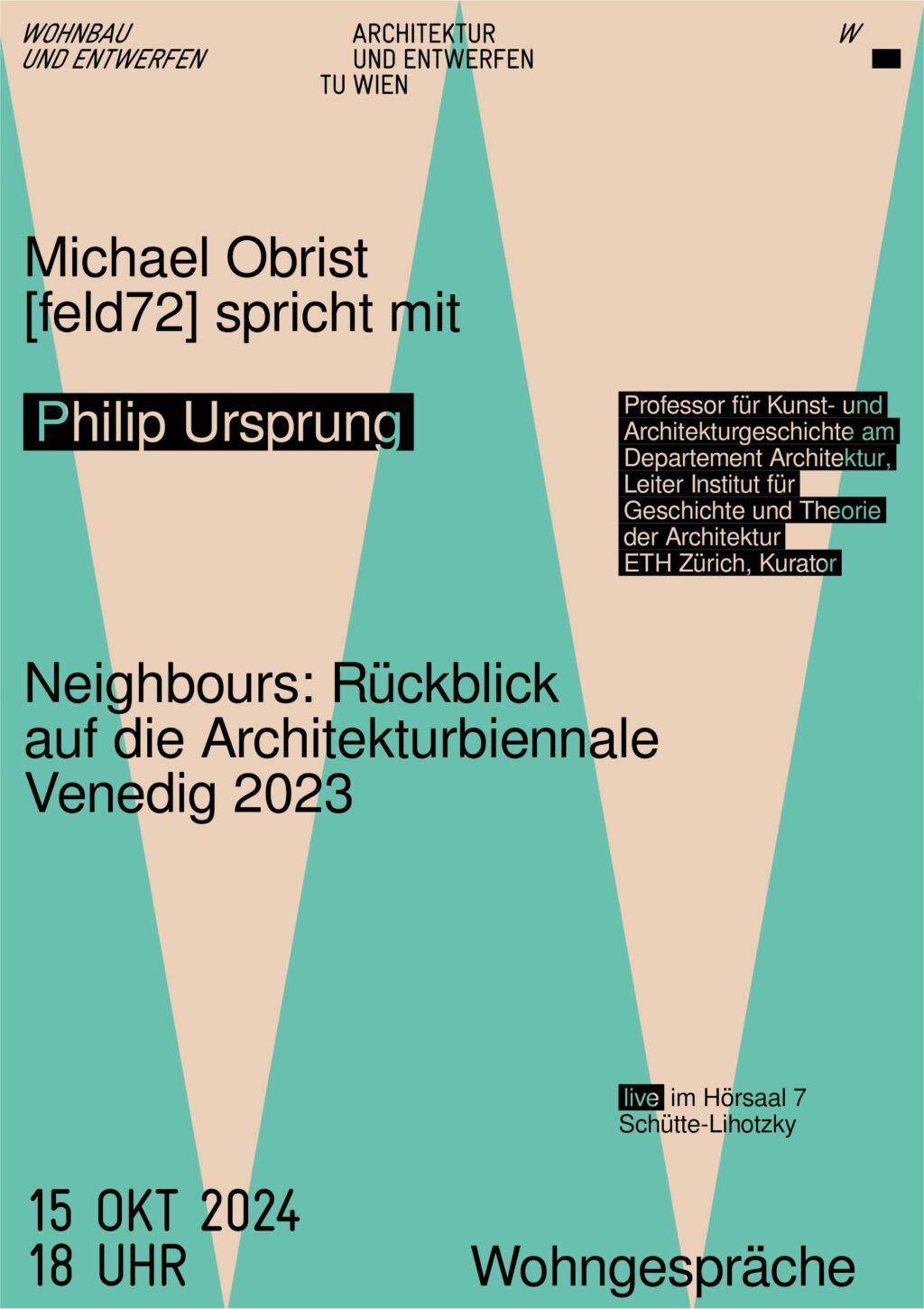
OCT 15, 2024
18:00
HOUSING TALKS:
PHILIP URSPRUNG

OCT 17, 2024
18:00
CLOSING DISCUSSION:
THE STUDENT'S NIGHT REVIEW ’24
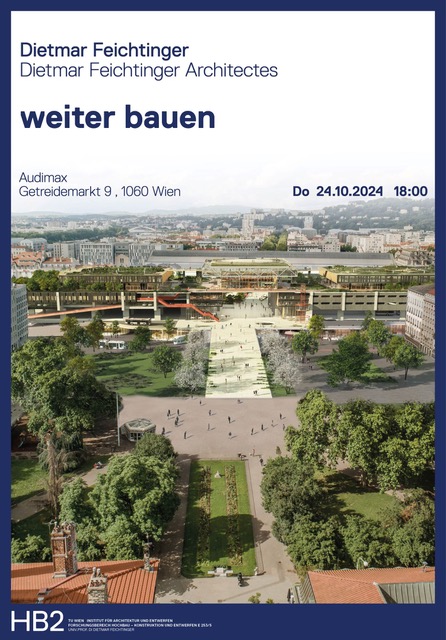
OCT 24, 2024
18:00
LECTURE:
DIETMAR FEICHTINGER
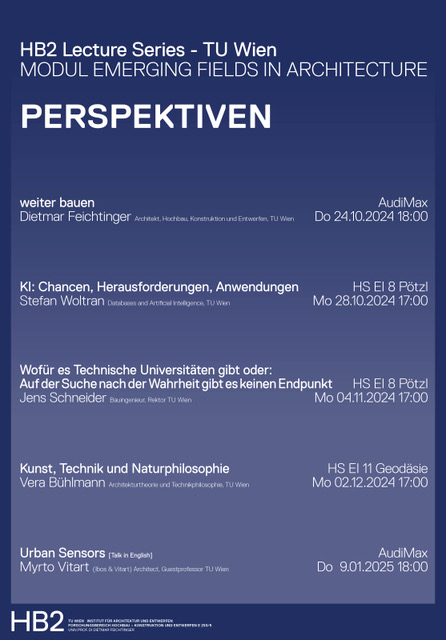
OCT 24, 2024
18:00
LECTURE SERIES:
PERSPEKTIVEN
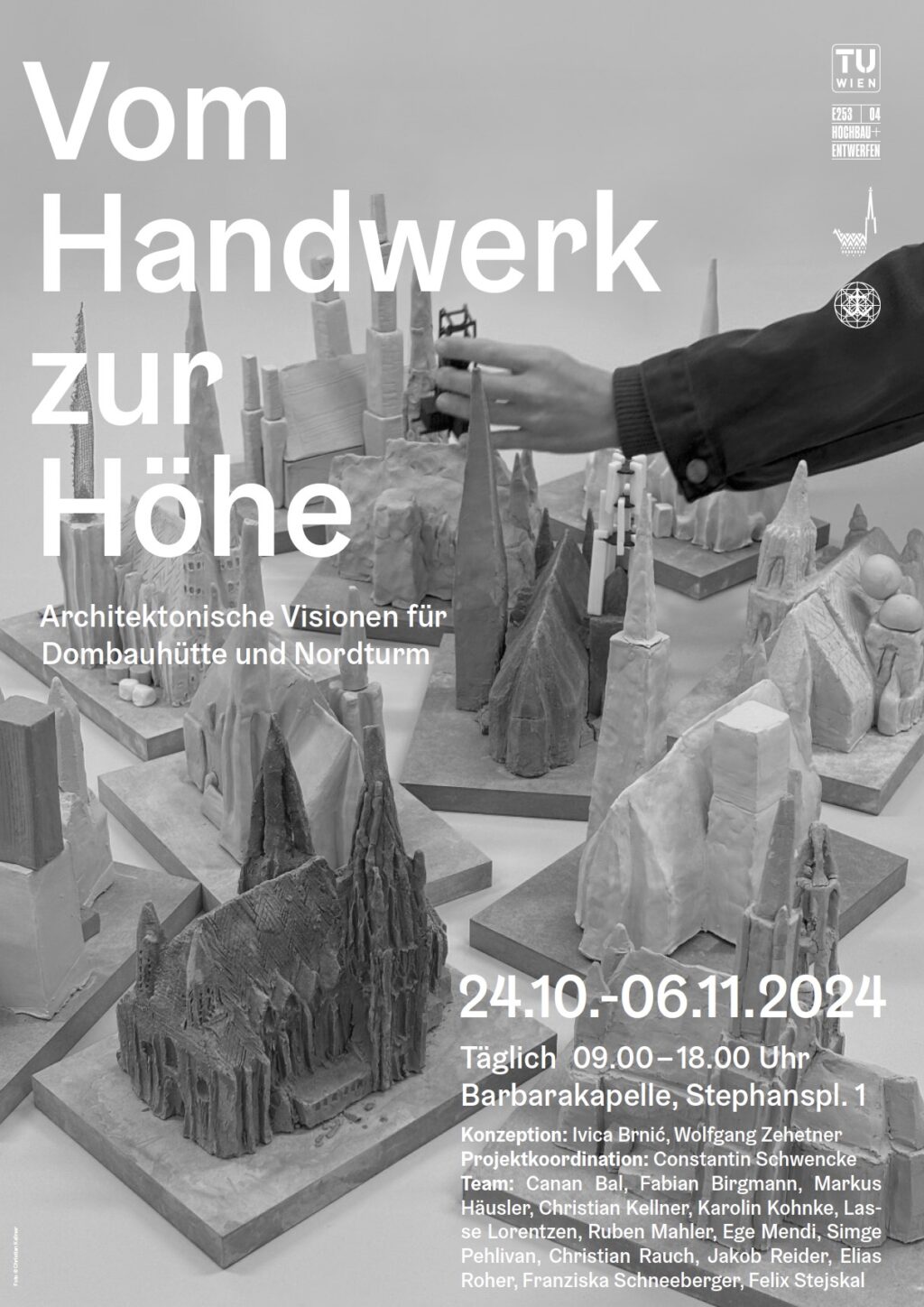
OCT 24, 2024
19:00
EXHIBITION:
VOM HANDWERK ZUR HÖHE
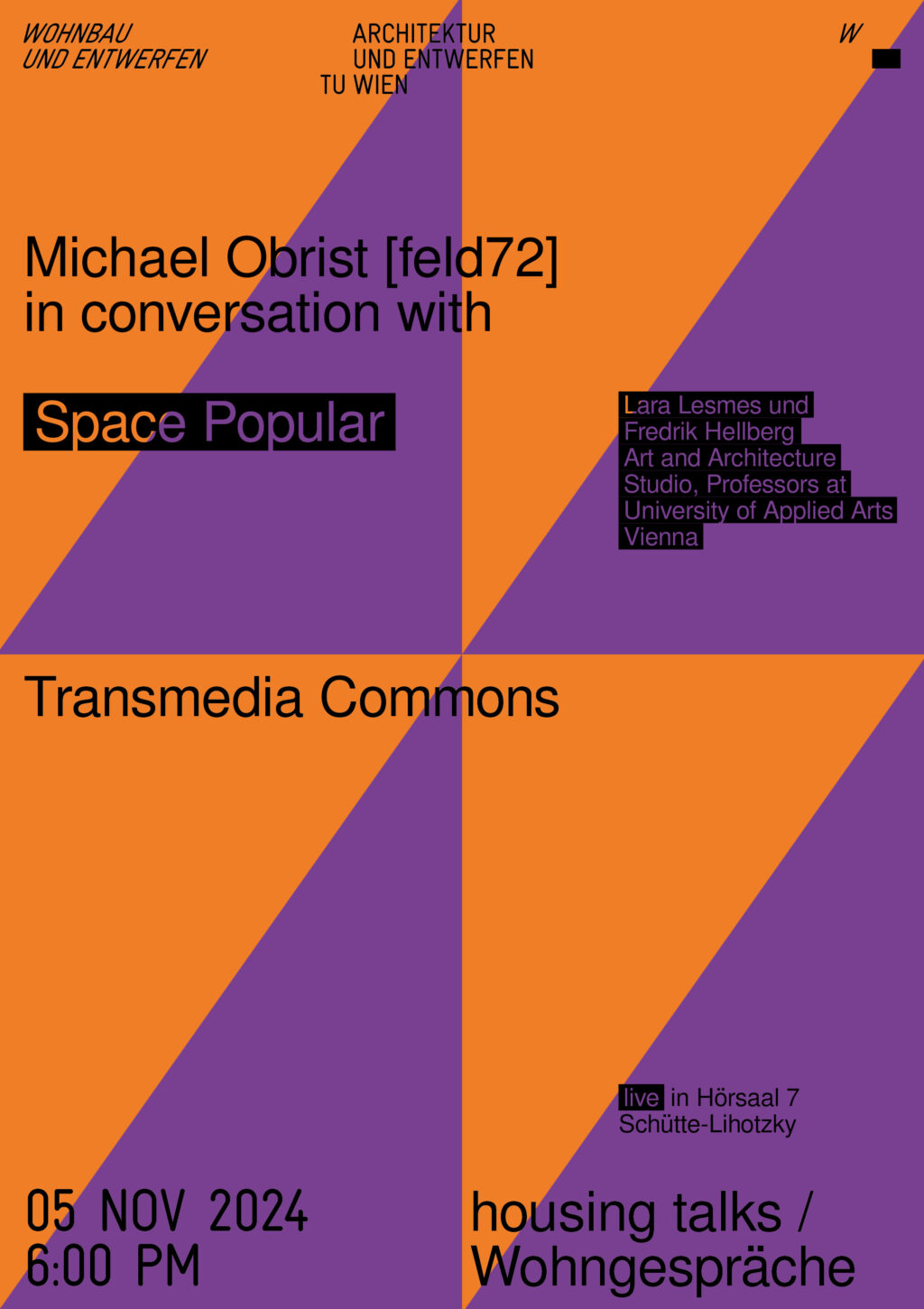
NOV 5, 2024
18:00
HOUSING TALKS:
SPACE POPULAR
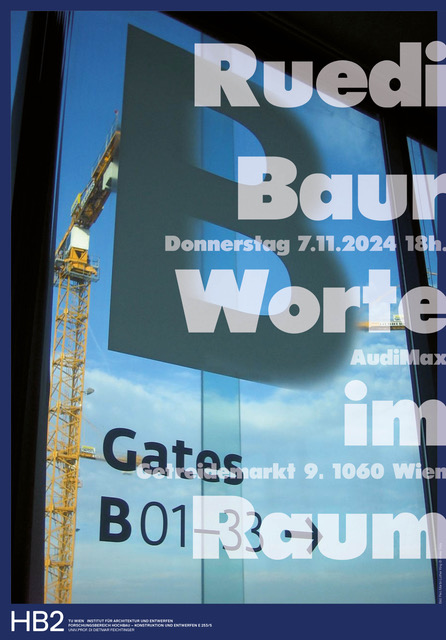
NOV 7, 2024
18:00
LECTURE:
RUEDI BAUR
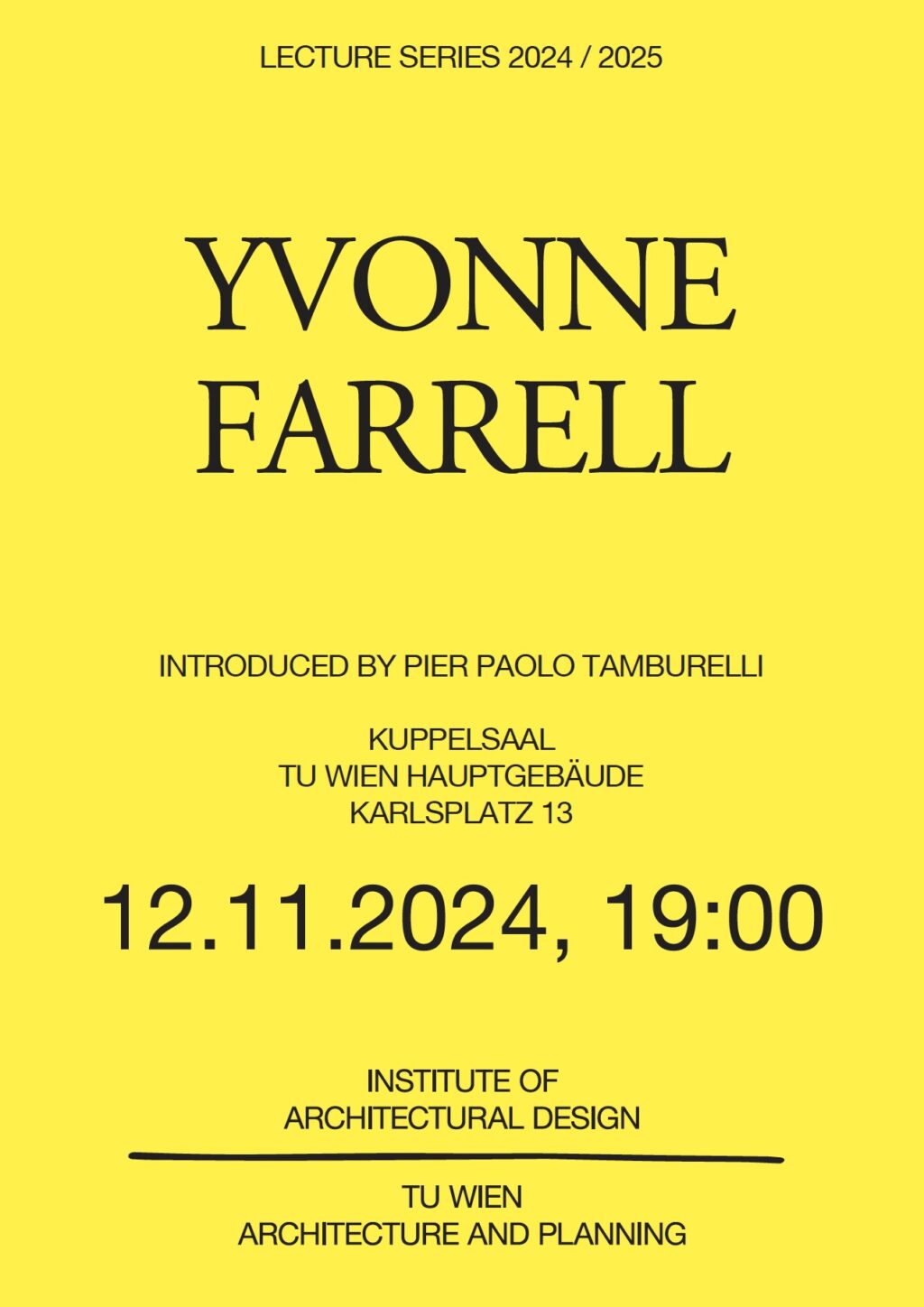
NOV 12, 2024
19:00
LECTURE: Yvonne Farrell
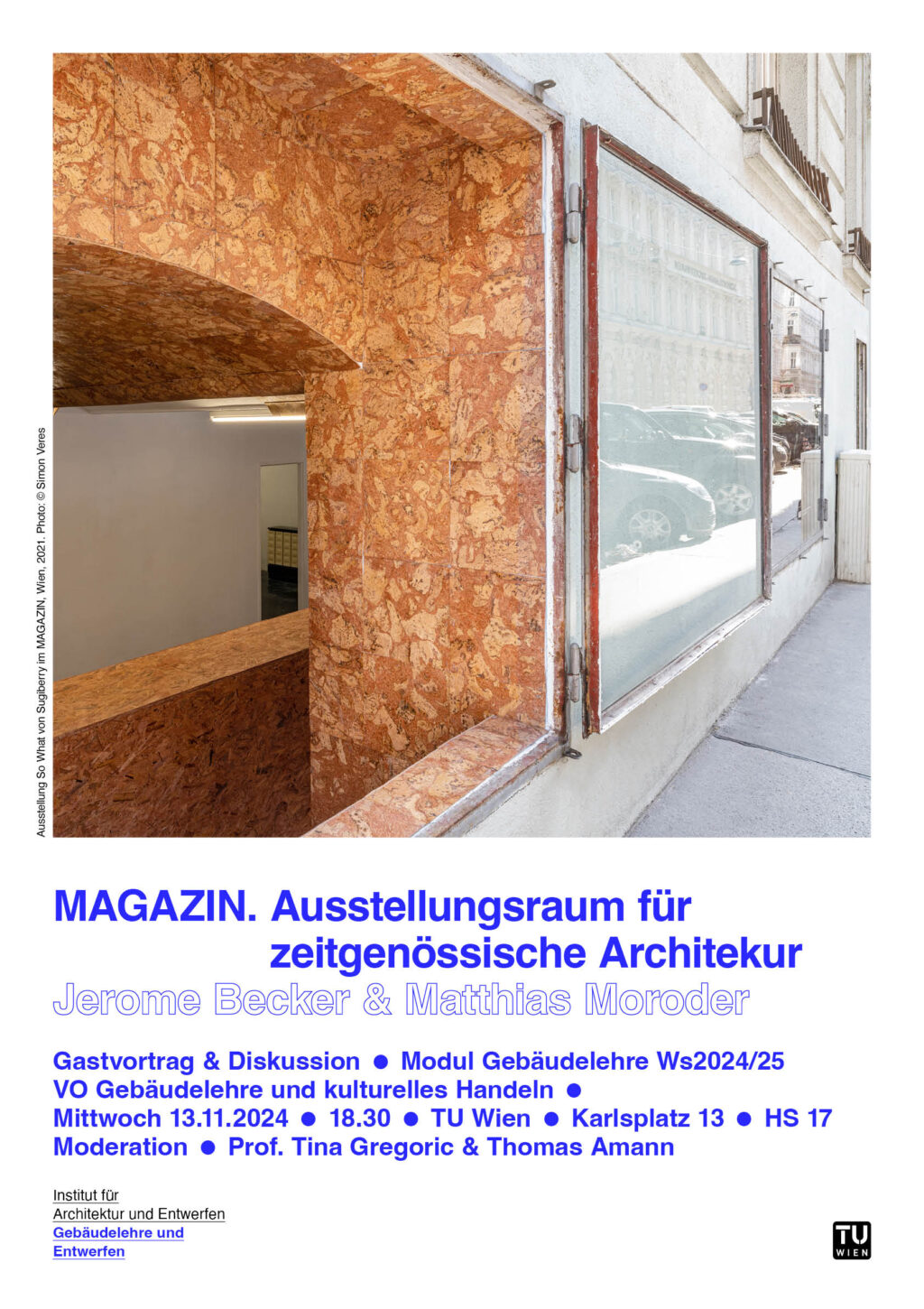
NOV 13, 2024
18:30
LECTURE:
JEROME BECKER & MATTHIAS MORODER
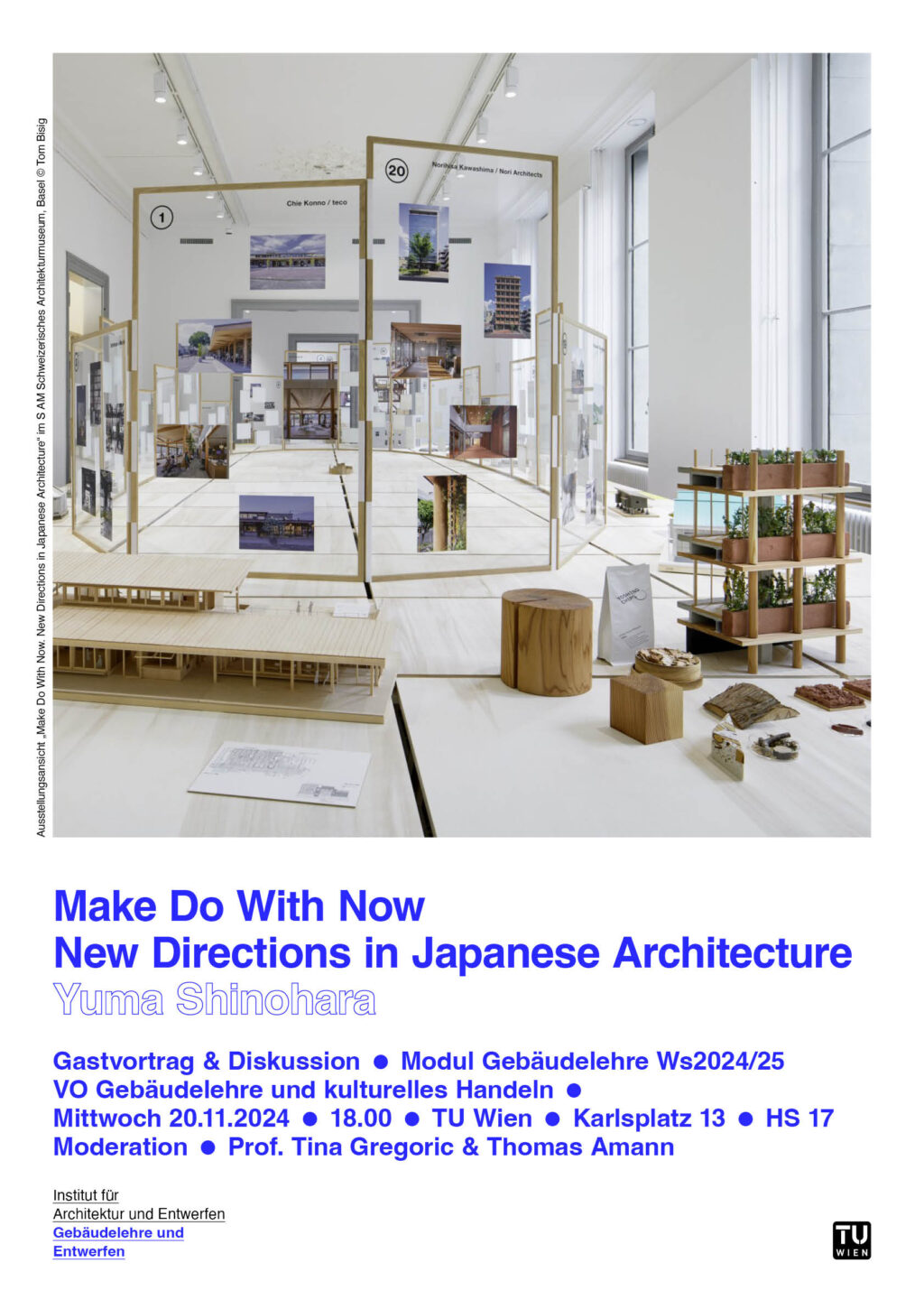
NOV 20, 2024
18:00
LECTURE:
YUMA SHINOHARA
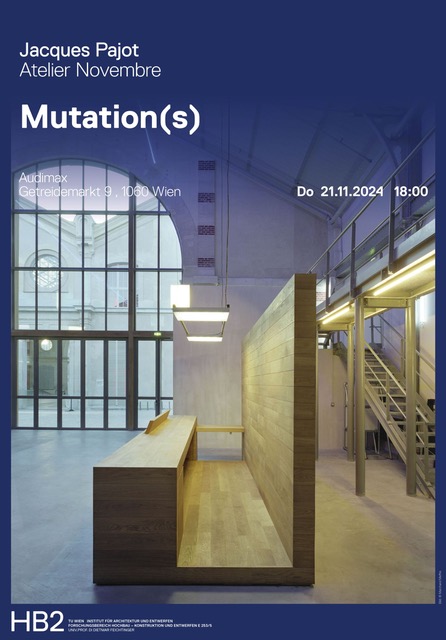
NOV 21, 2024
18:00
LECTURE:
JACQUES PAJOT
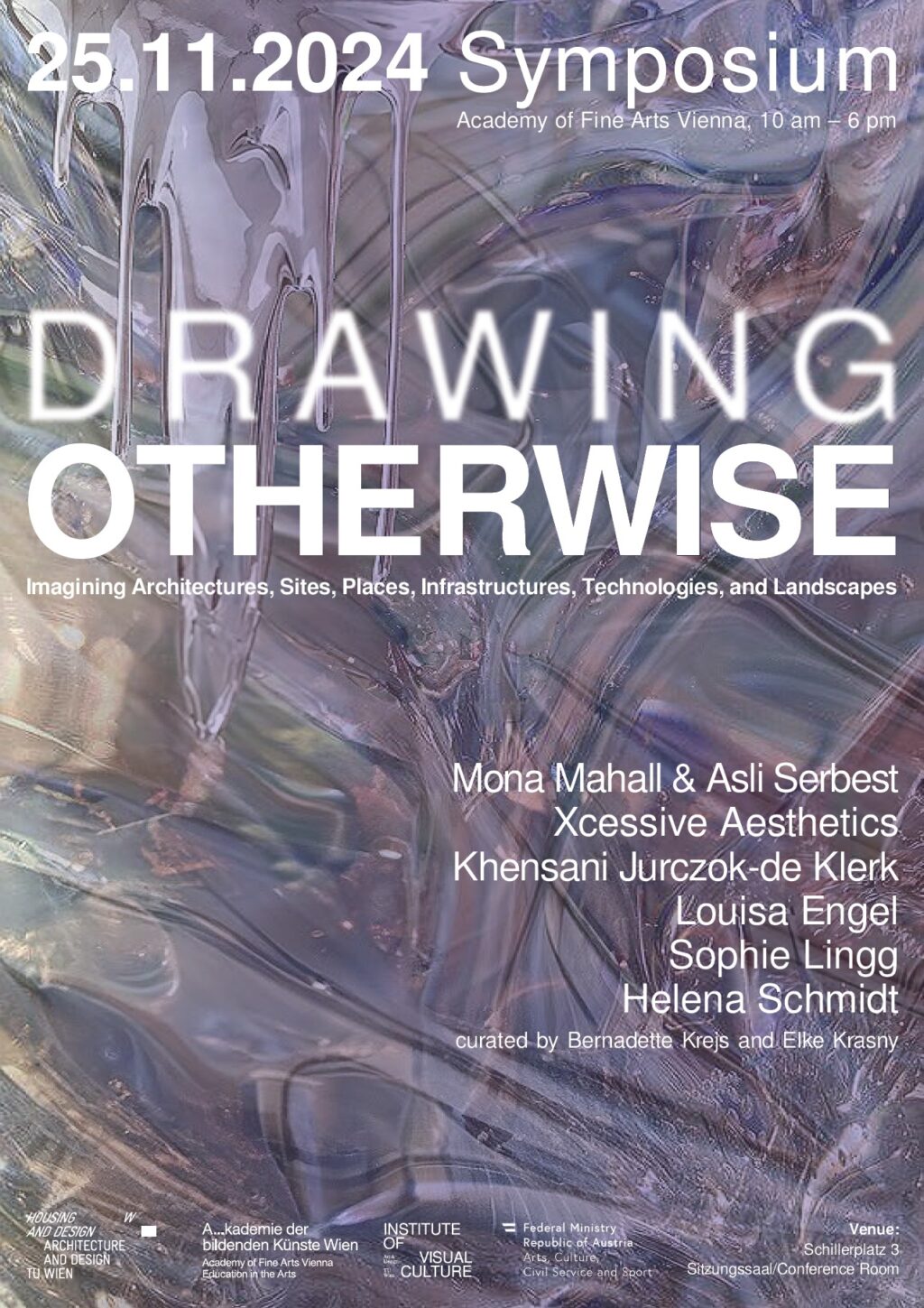
NOV 25, 2024
10:00
SYMPOSIUM:
DRAWING OTHERWISE
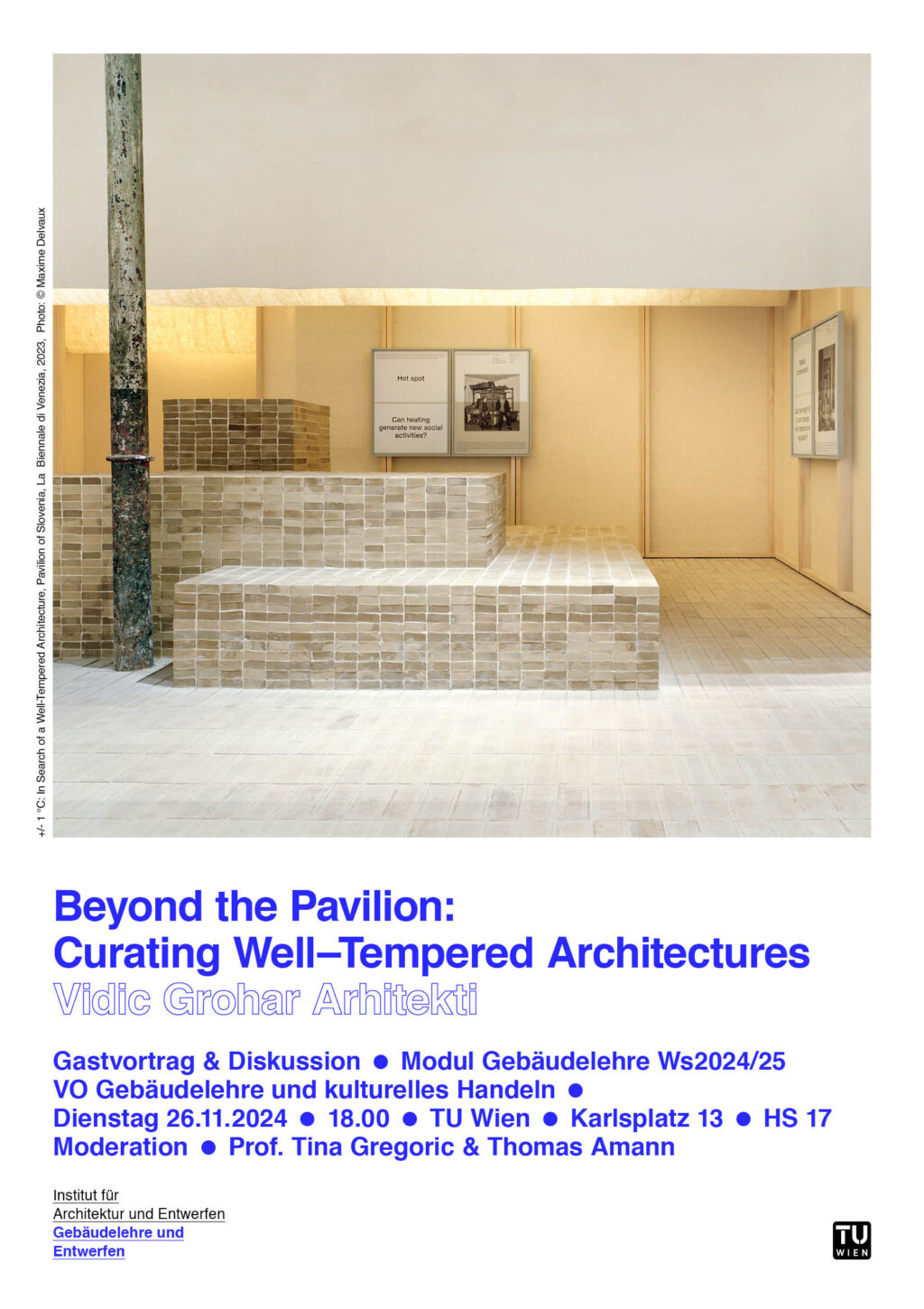
NOV 26, 2024
18:00
LECTURE:
VIDIC GROHAR ARHITEKTI
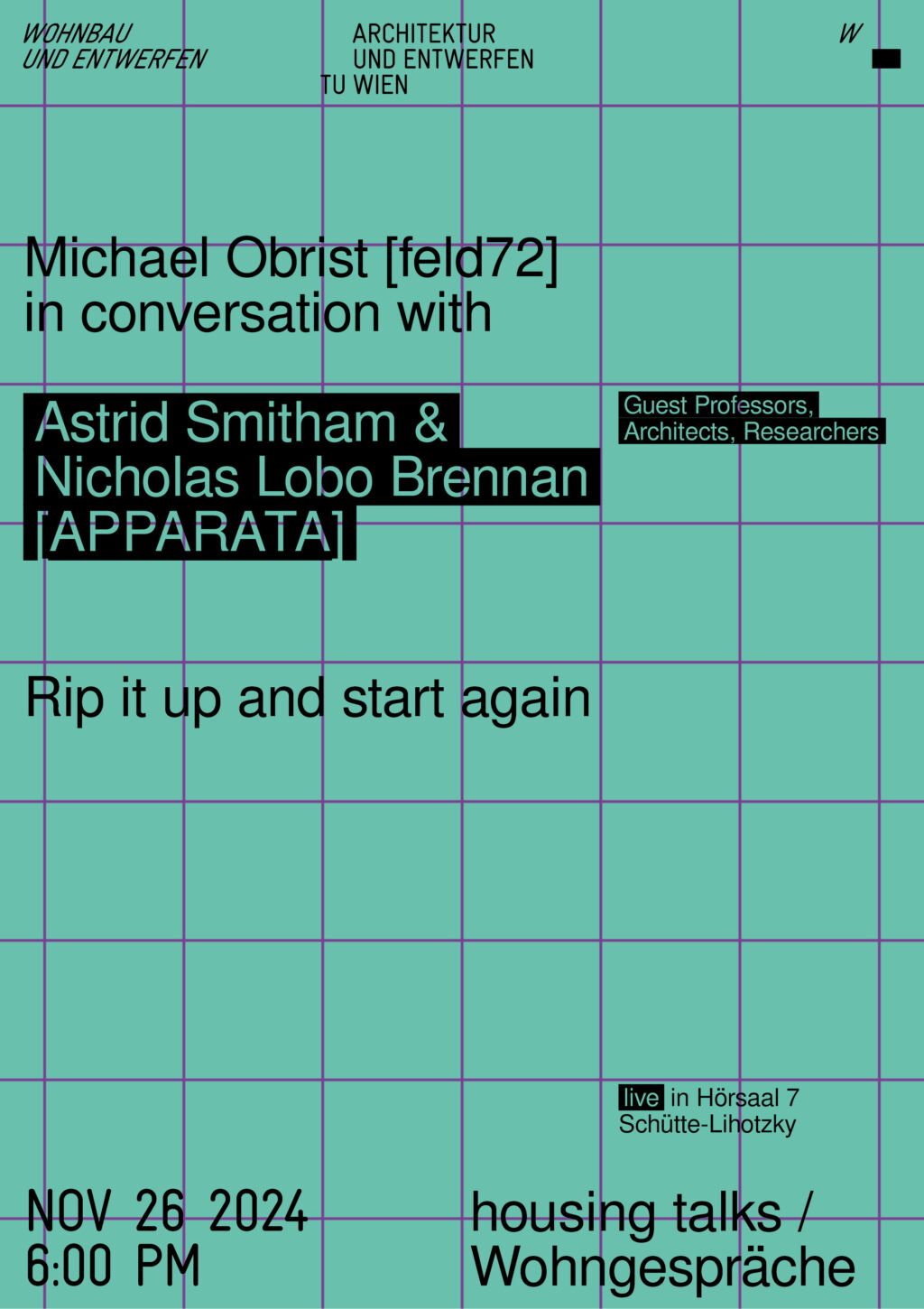
NOV 26, 2024
18:00
HOUSING TALKS:
ASTRID SMITHAM & NICHOLAS LOBO BRENNAN
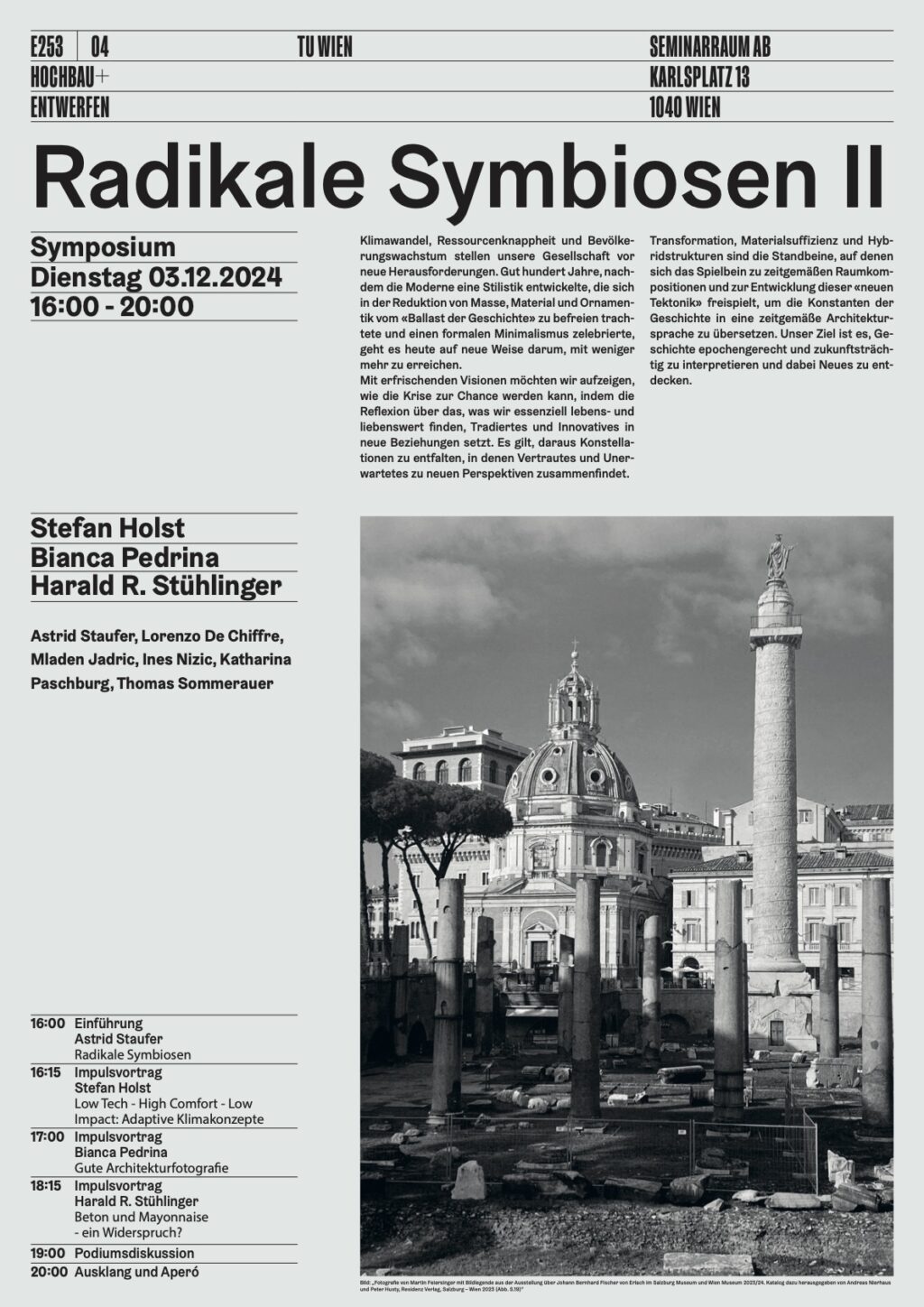
DEC 3, 2024
16:00
SYMPOSIUM:
RADIKALE SYMBIOSEN II
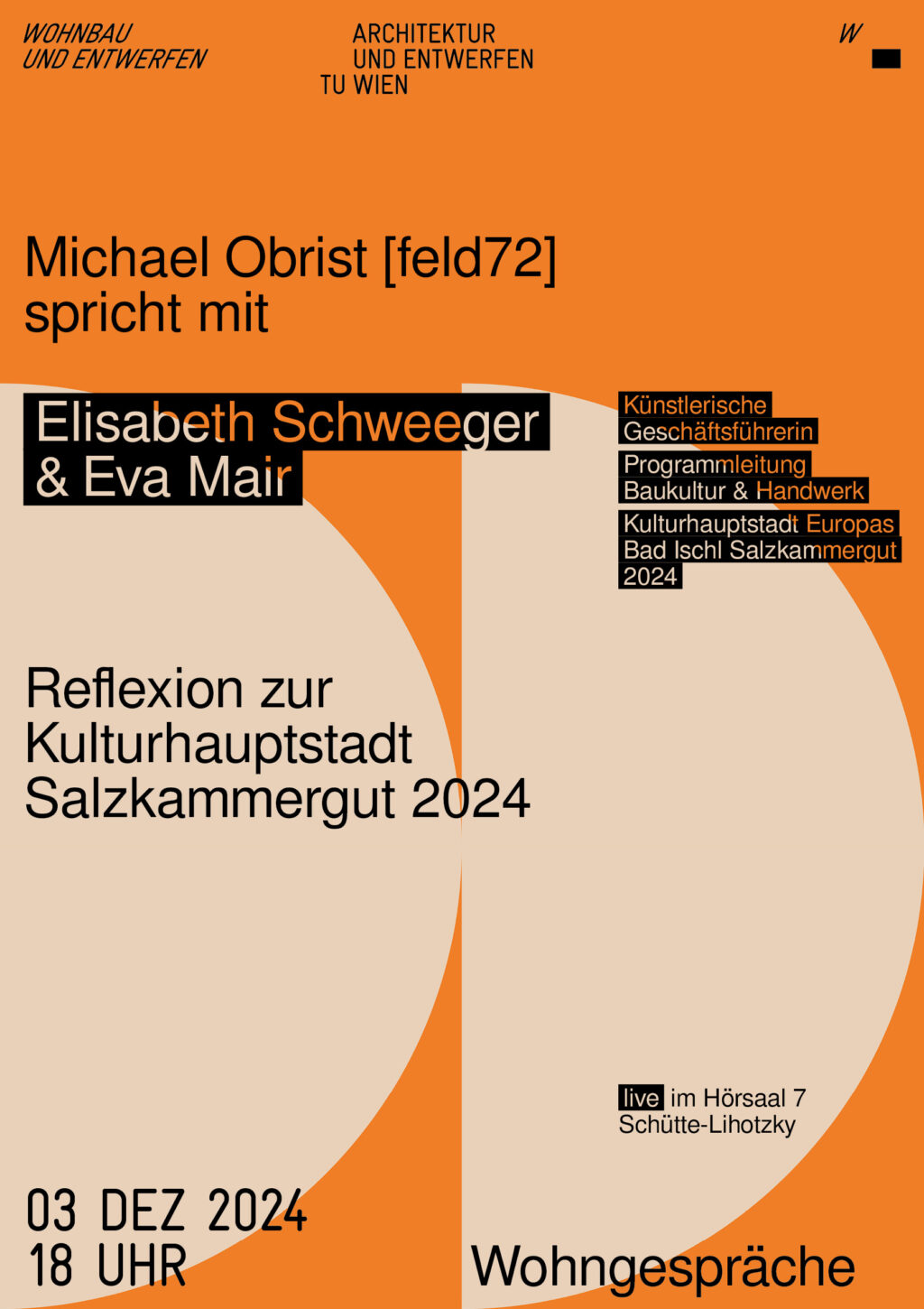
DEC 3, 2024
18:00
HOUSING TALKS:
REFLEXION ZUR KULTURHAUPTSTADT SALZKAMMERGUT 2024
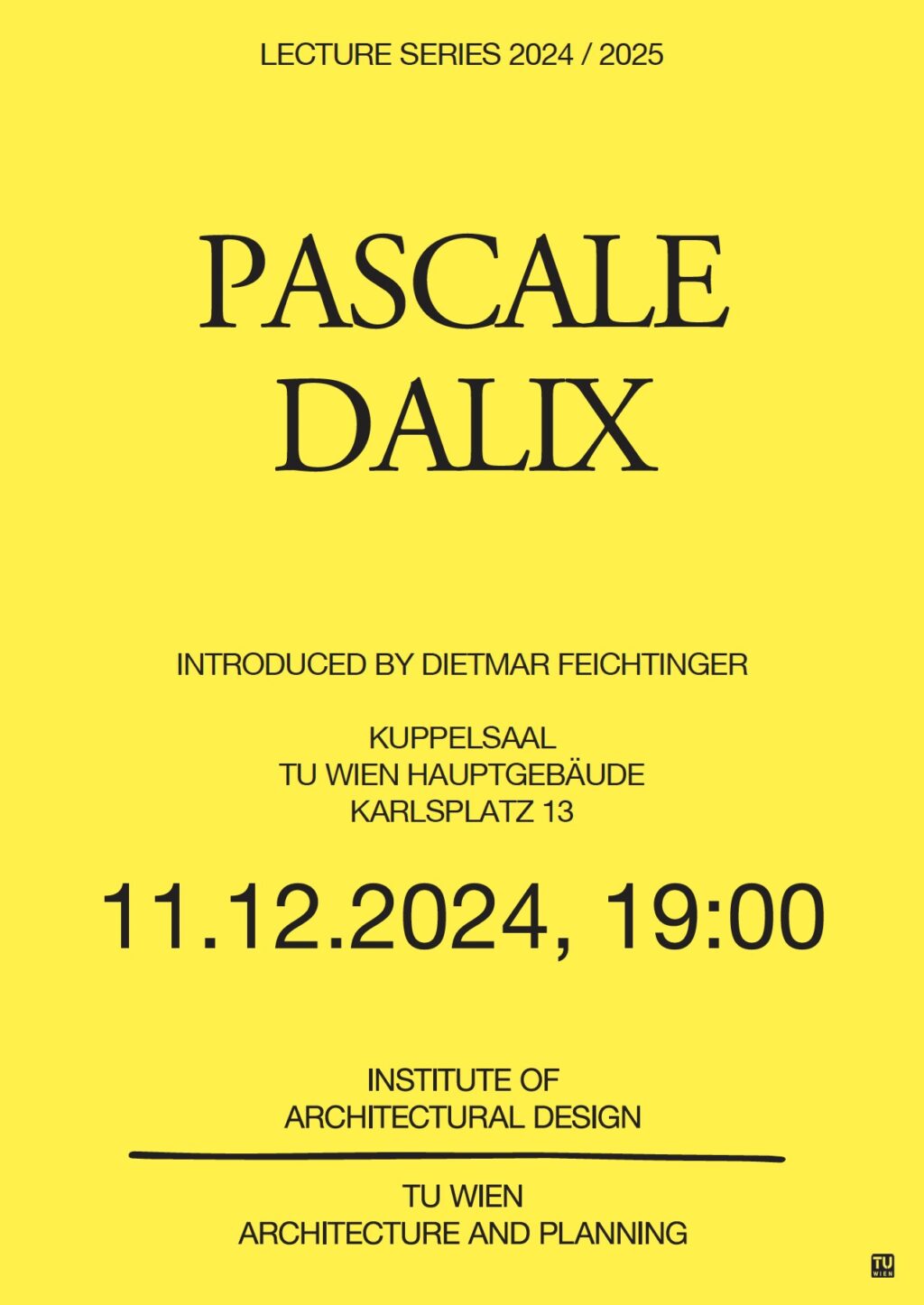
DEC 11, 2024
19:00
LECTURE:
PASCALE DALIX
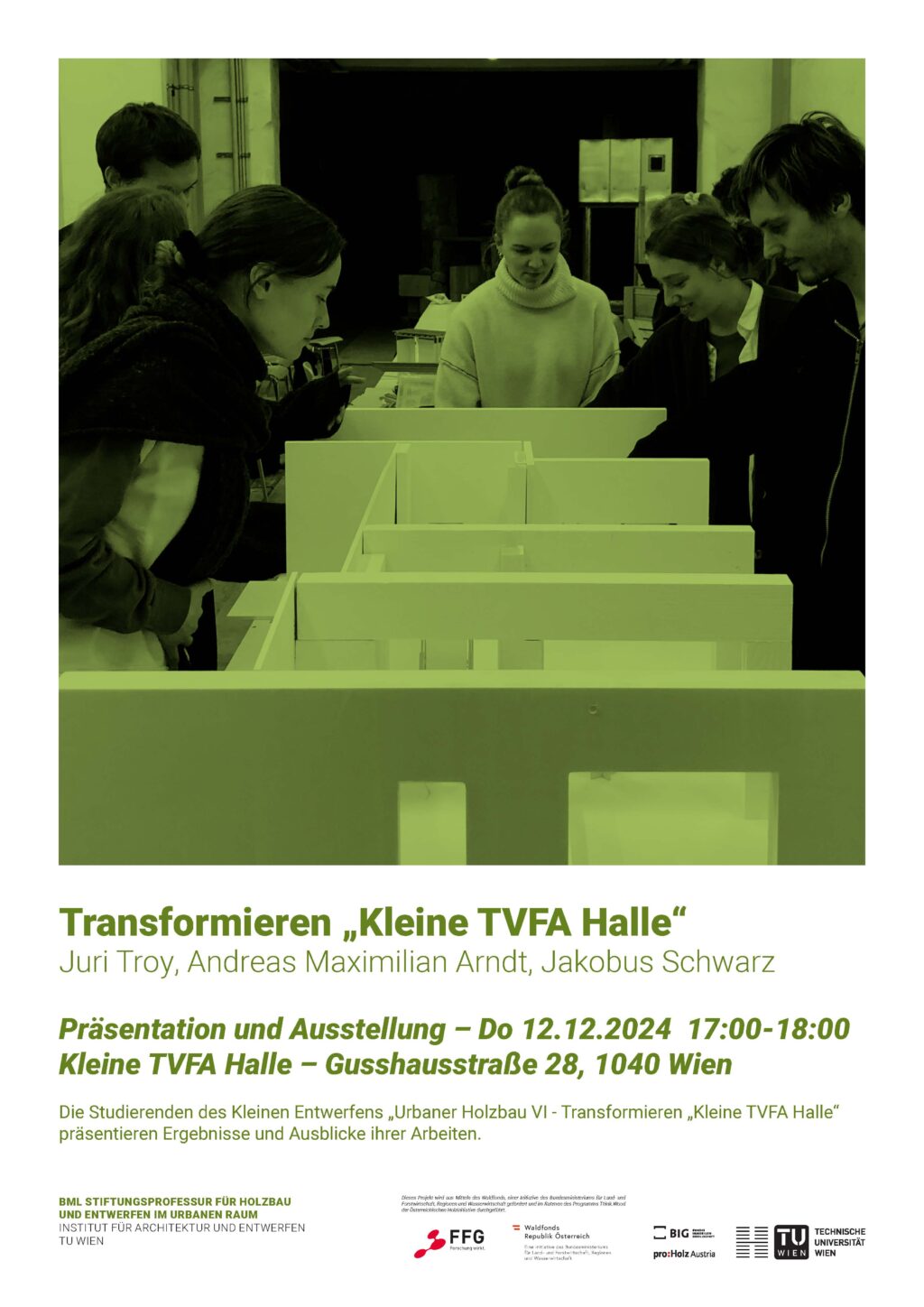
DEC 12, 2024
17:00
EXHIBITION:
TRANSFORMIEREN „KLEINE TVFA HALLE“
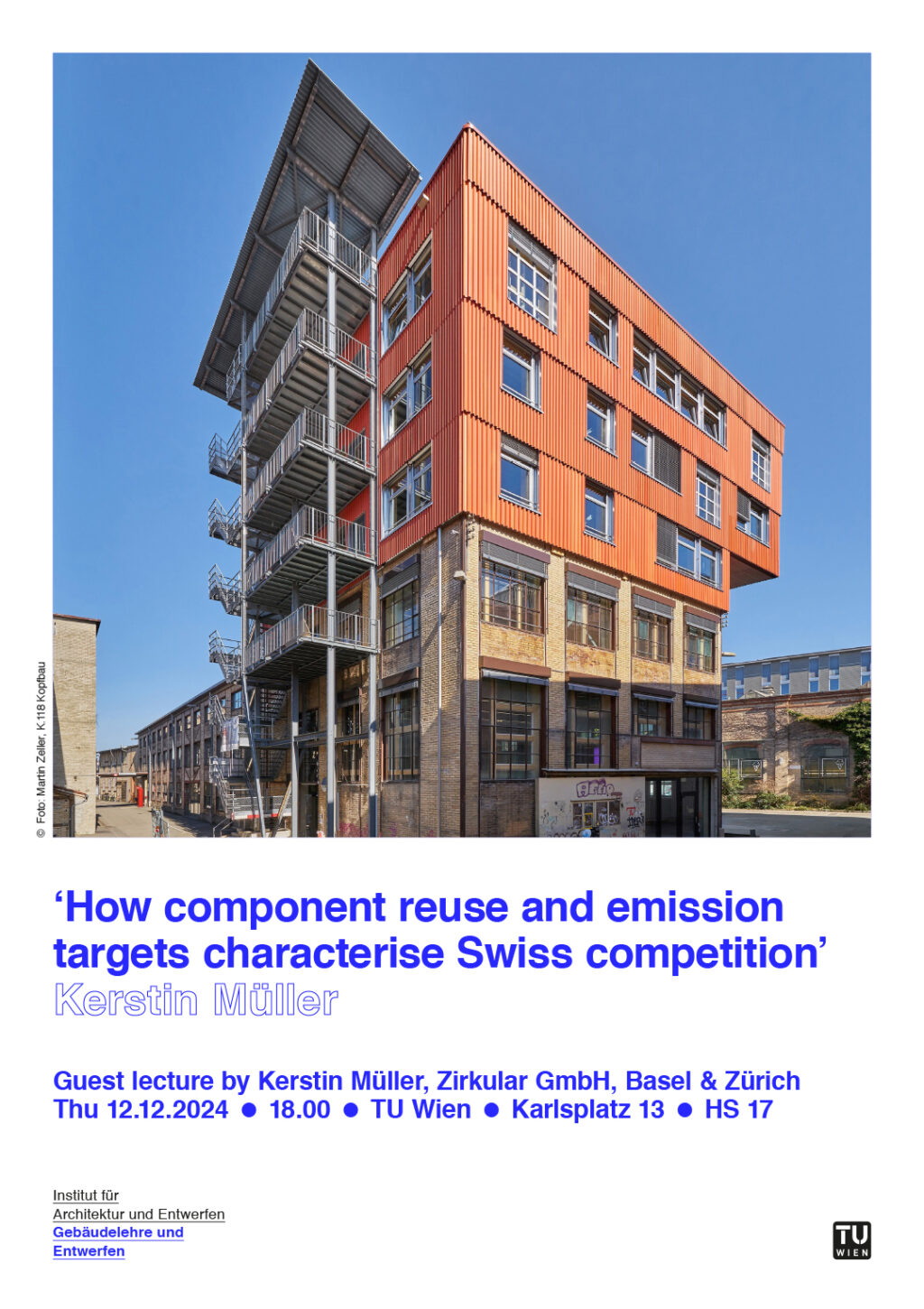
DEC 12, 2024
18:00
LECTURE:
KERSTIN MÜLLER
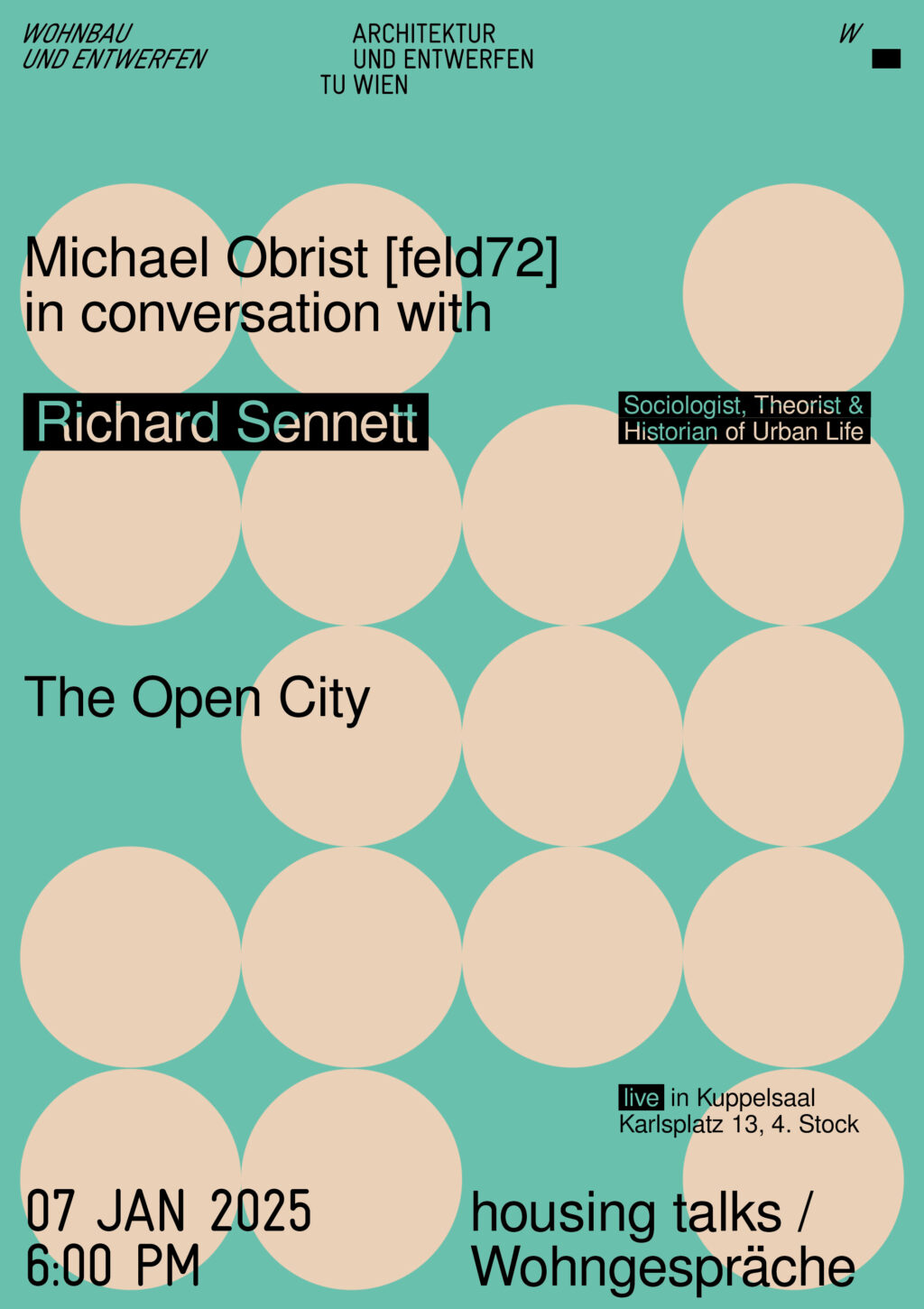
JAN 7, 2025
18:00
HOUSING TALKS:
RICHARD SENNETT
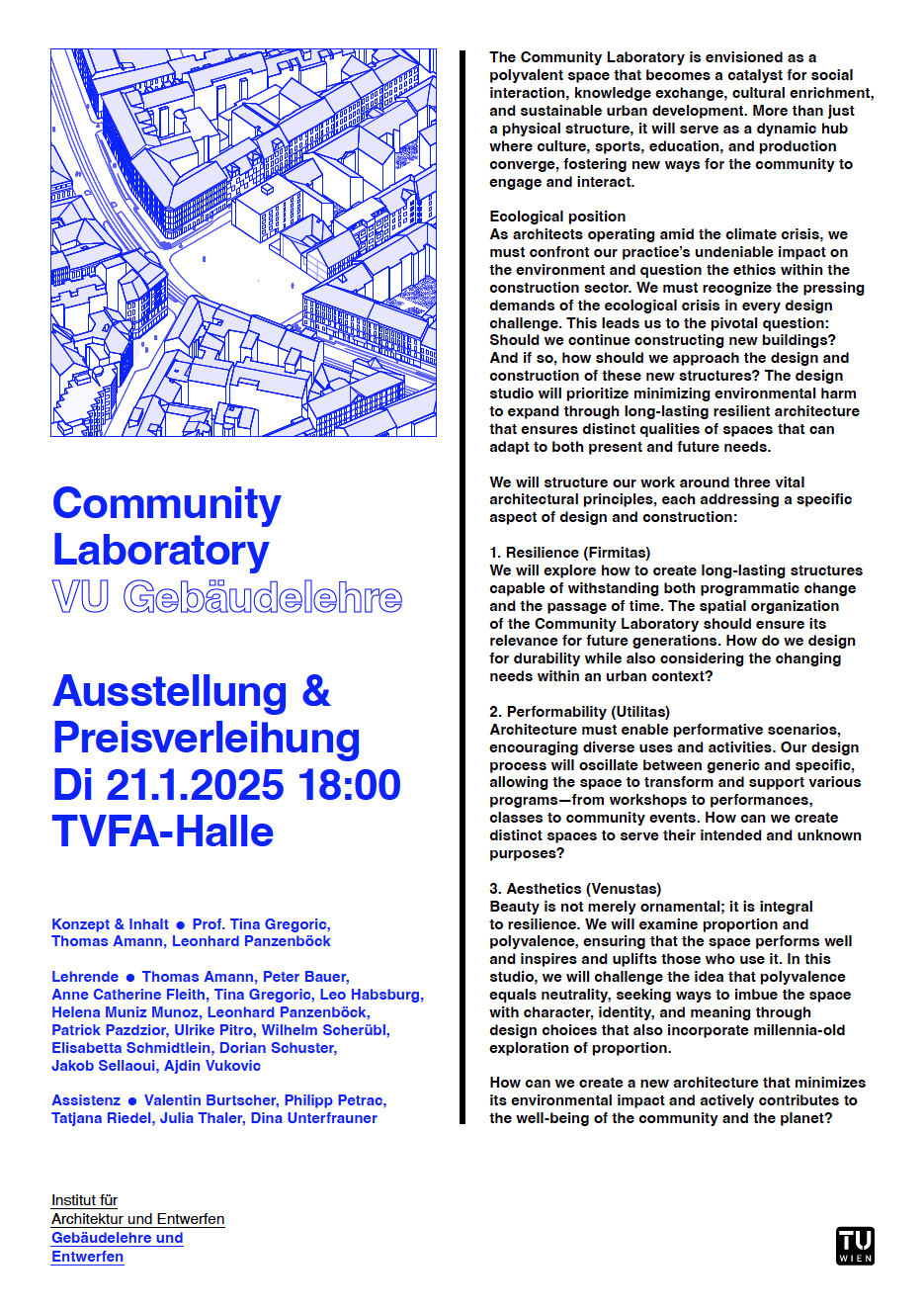
JAN 21, 2025
18:00
EXHIBITION:
COMMUNITY LABORATORY
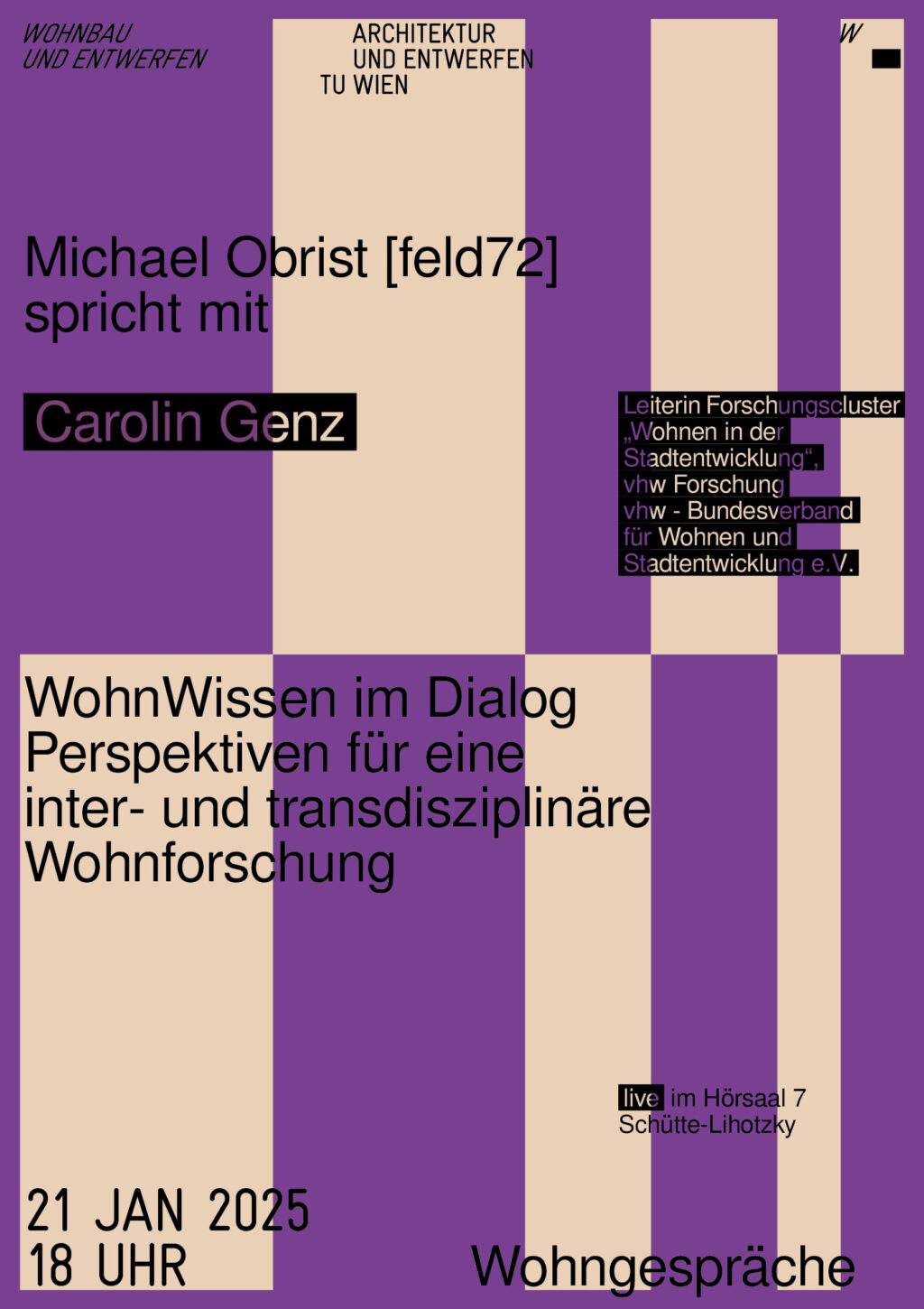
JAN 21, 2025
18:00
HOUSING TALKS:
CAROLING GENZ
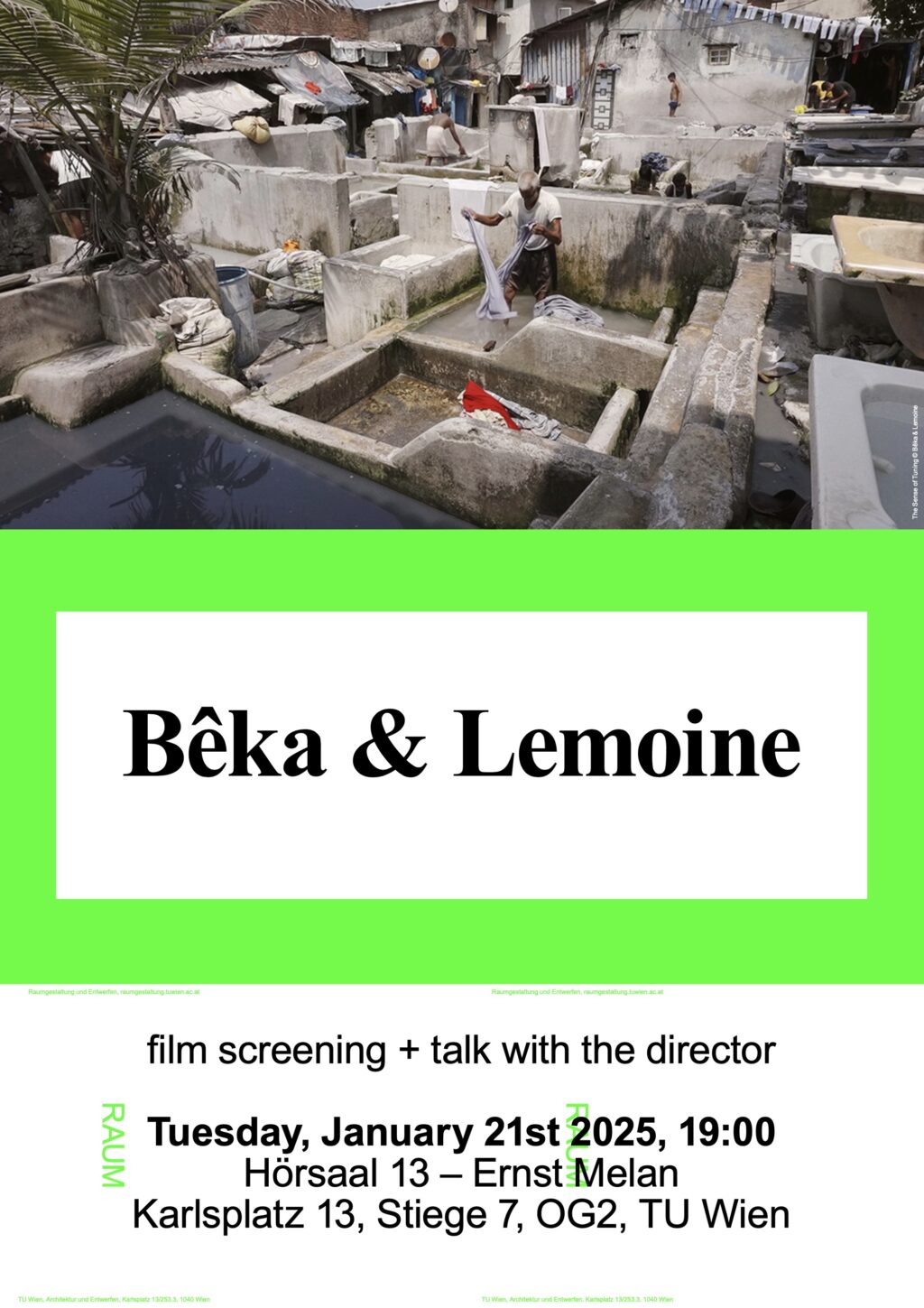
JAN 21, 2025
19:00
SCREENING AND TALK:
BÊKA & LEMOINE
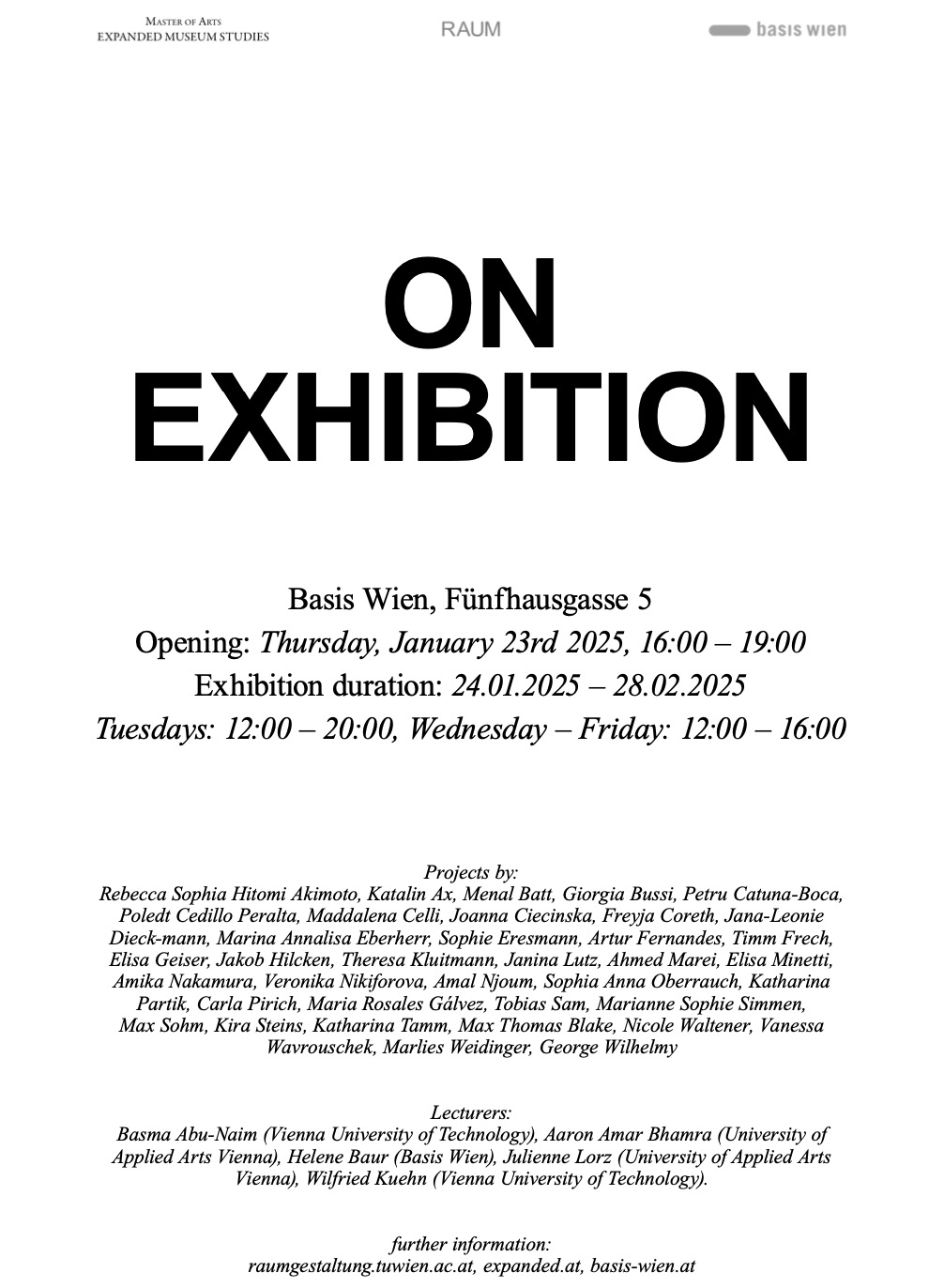
JAN 23, 2025
16:00
EXHIBITION:
ON EXHIBITION
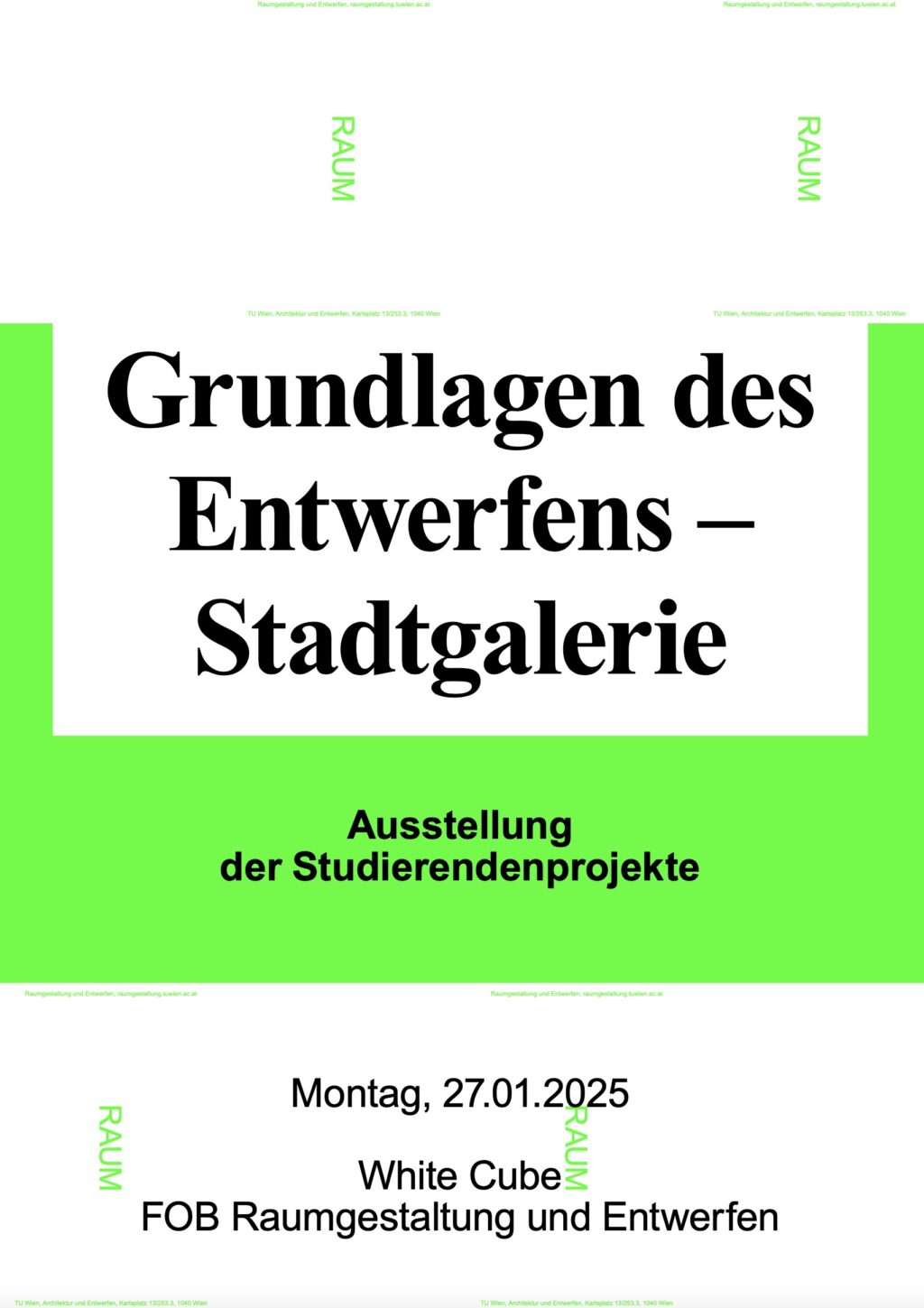
JAN 27, 2025
19:00
EXHIBITION:
STADTGALERIE
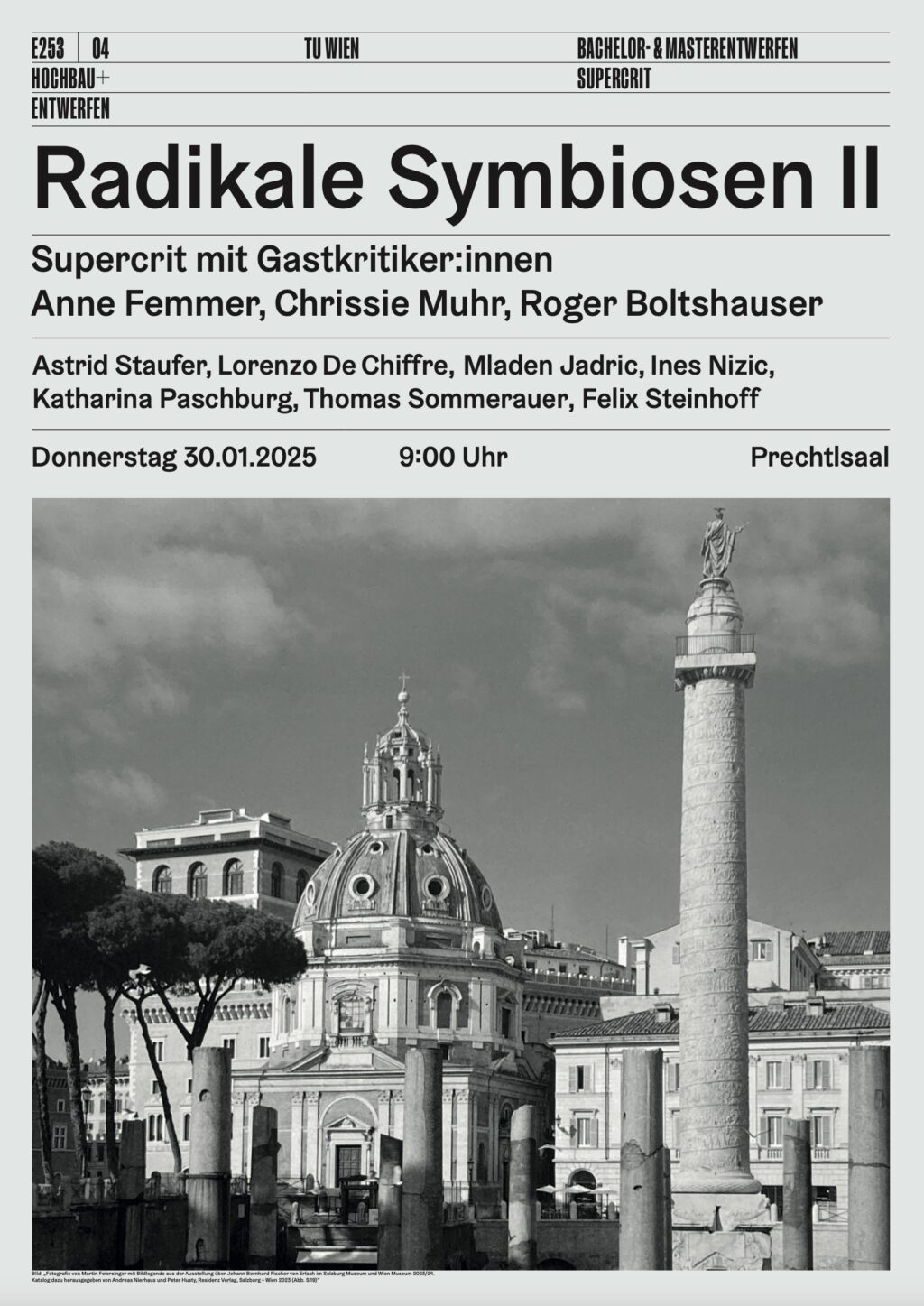
JAN 30, 2025
09:00
SUPERCRIT:
RADIKALE SYMBIOSEN II
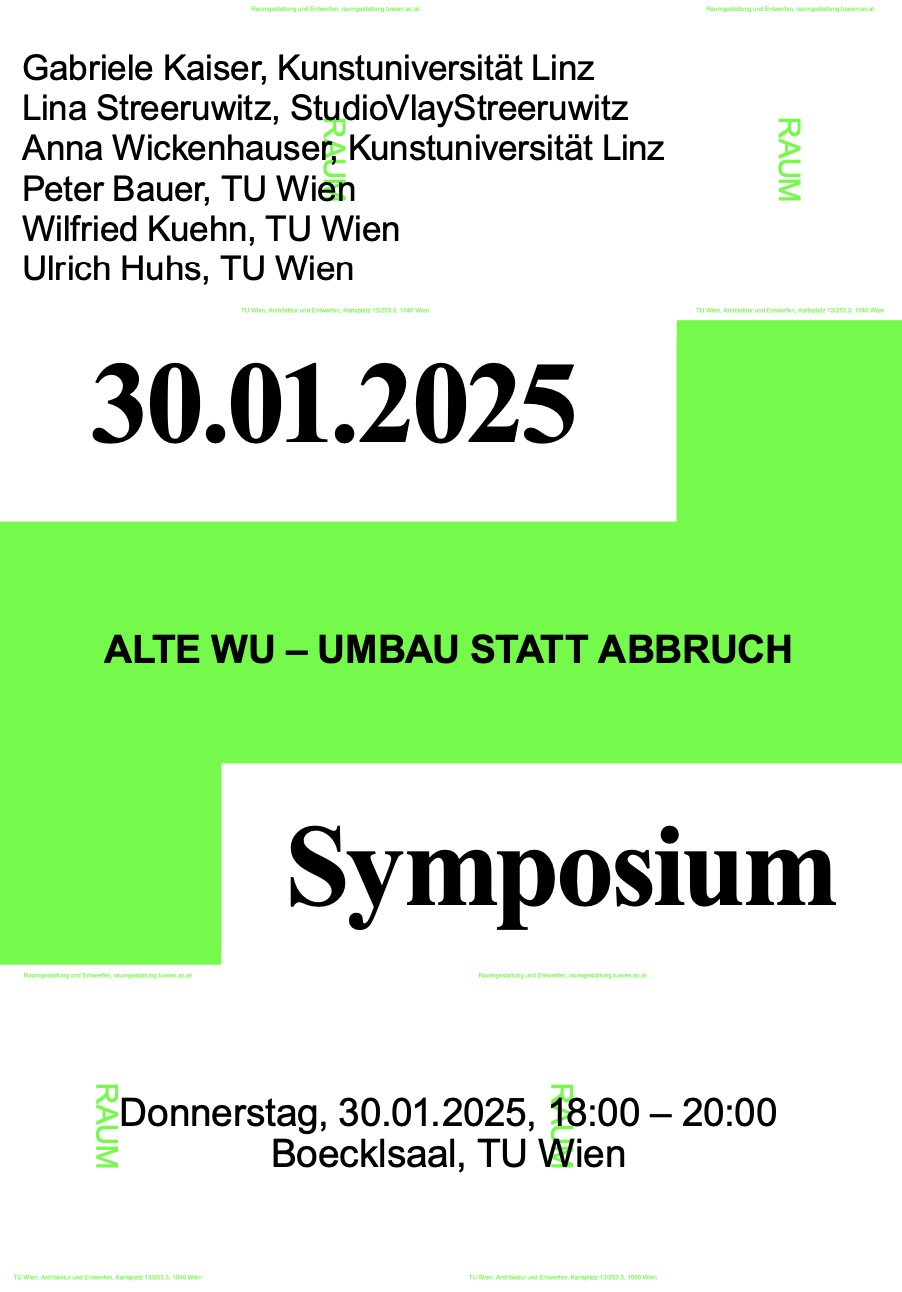
JAN 30, 2025
18:00
SYMPOSIUM:
ALTE WU – UMBAU STATT ABBRUCH
MAR 4, 2025
18:00
HOUSING TALKS:
OLAF GRAWERT
HOUSEEUROPE
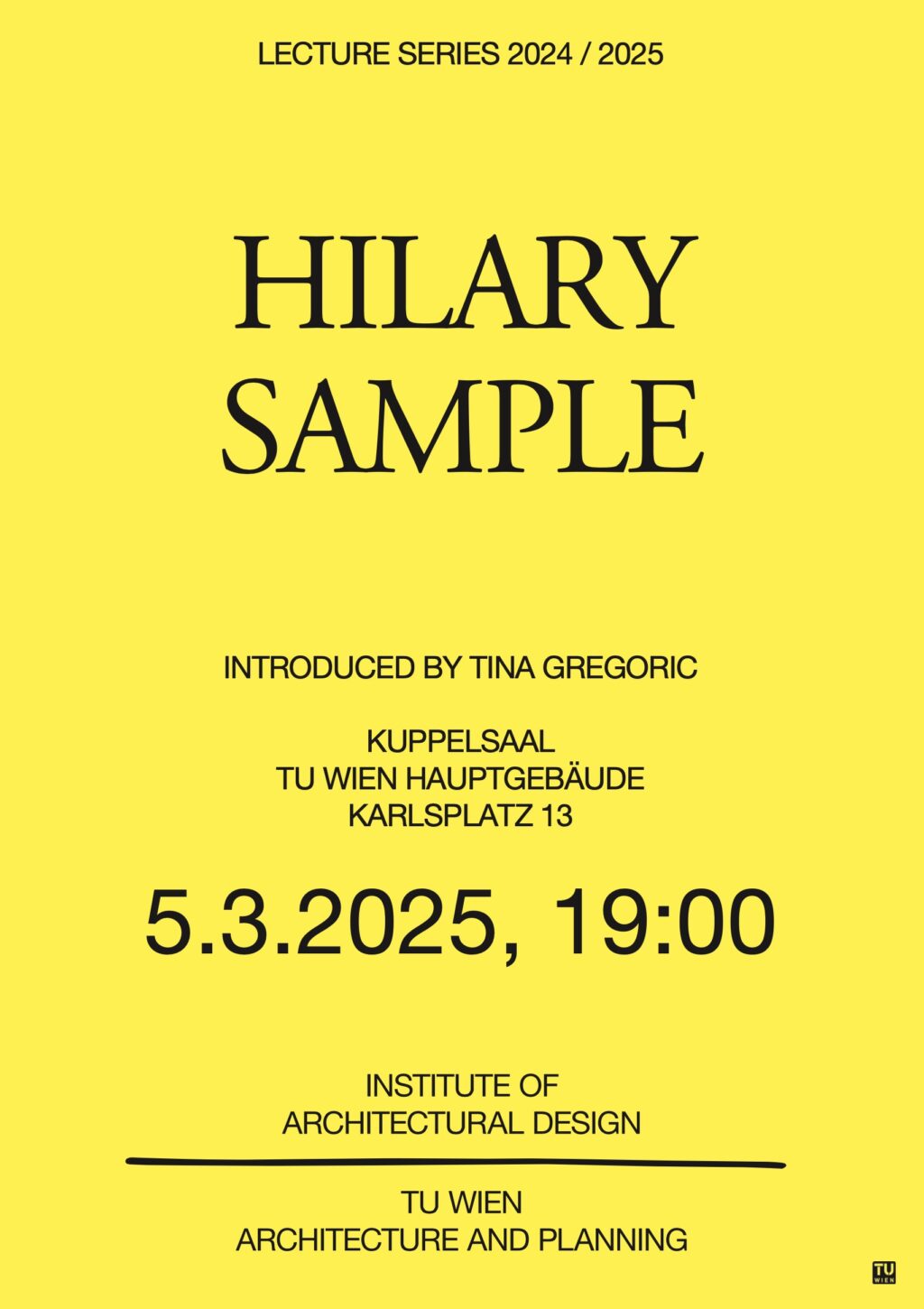
MAR 5, 2025
19:00
LECTURE: HILARY SAMPLE
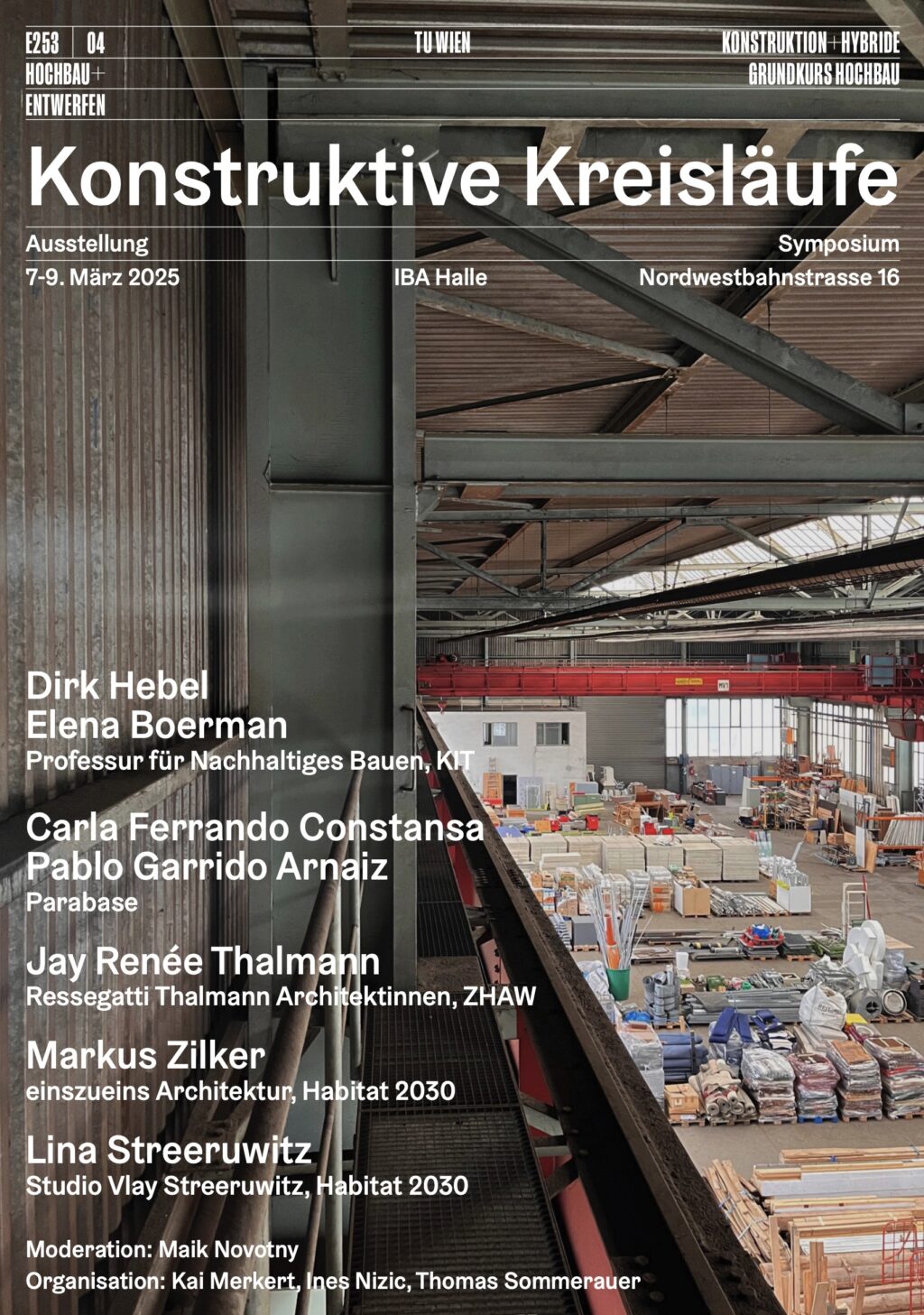
MAR 7, 2025
14:00
EXHIBITION & SYMPOSIUM: KONSTRUKTIVE KREISLÄUFE
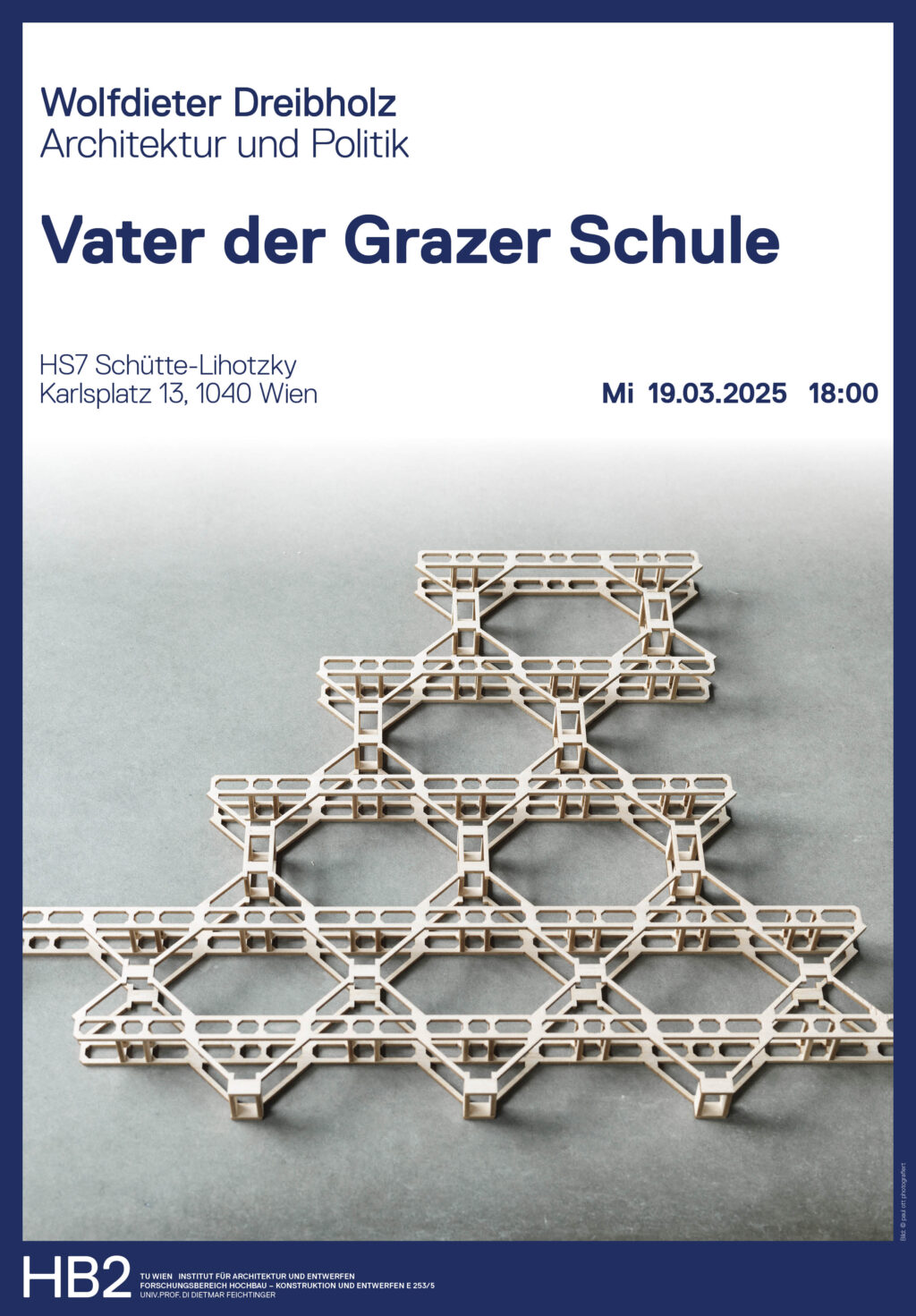
MAR 19, 2025
18:00
Lecture:
Wolfdieter Dreibholz
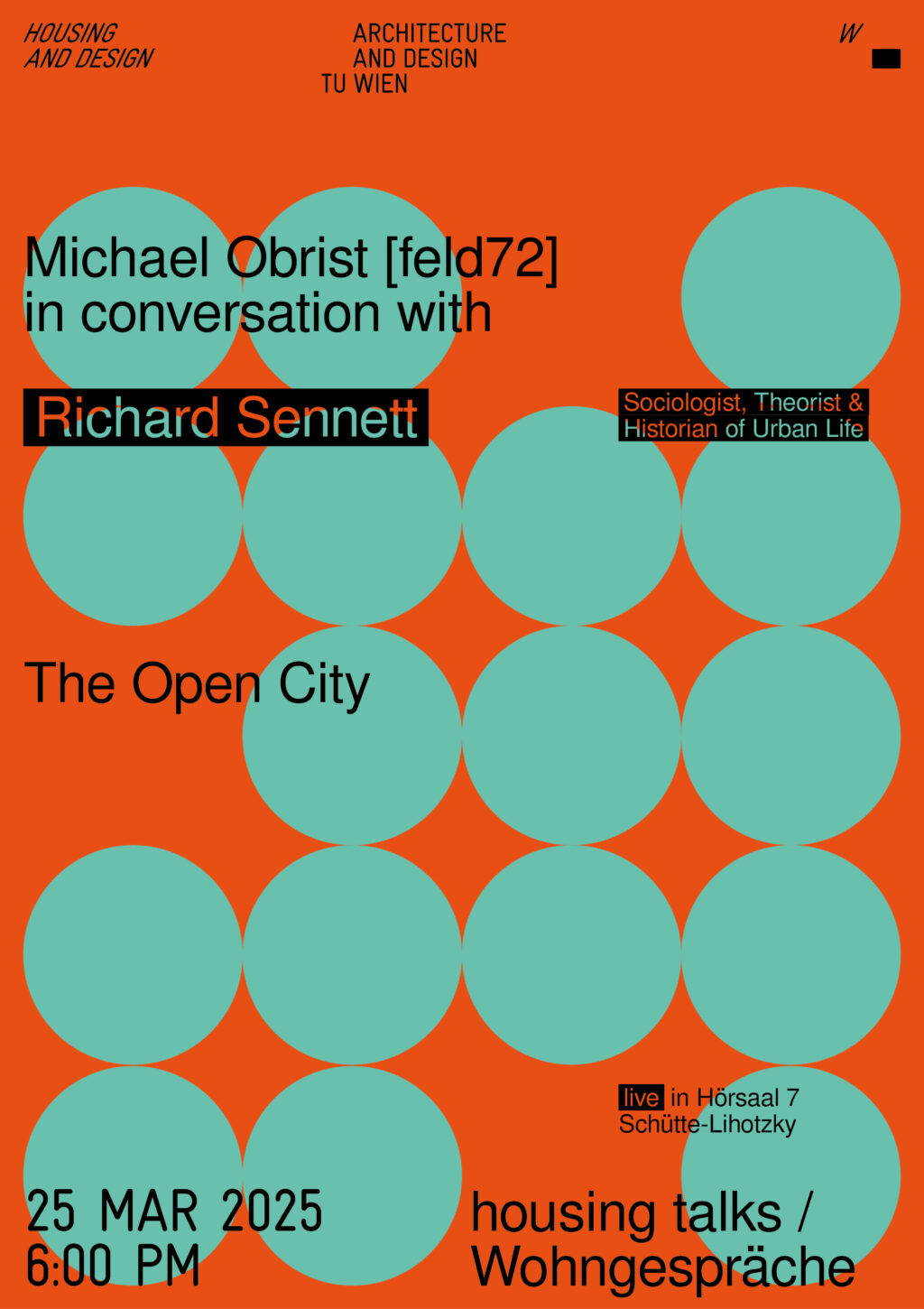
MAR 25, 2025
18:00
HOUSING TALKS:
RICHARD SENNETT

MAR 26, 2025
18:00
EXHIBITION:
WONDERS OF THE MODERN WORLD
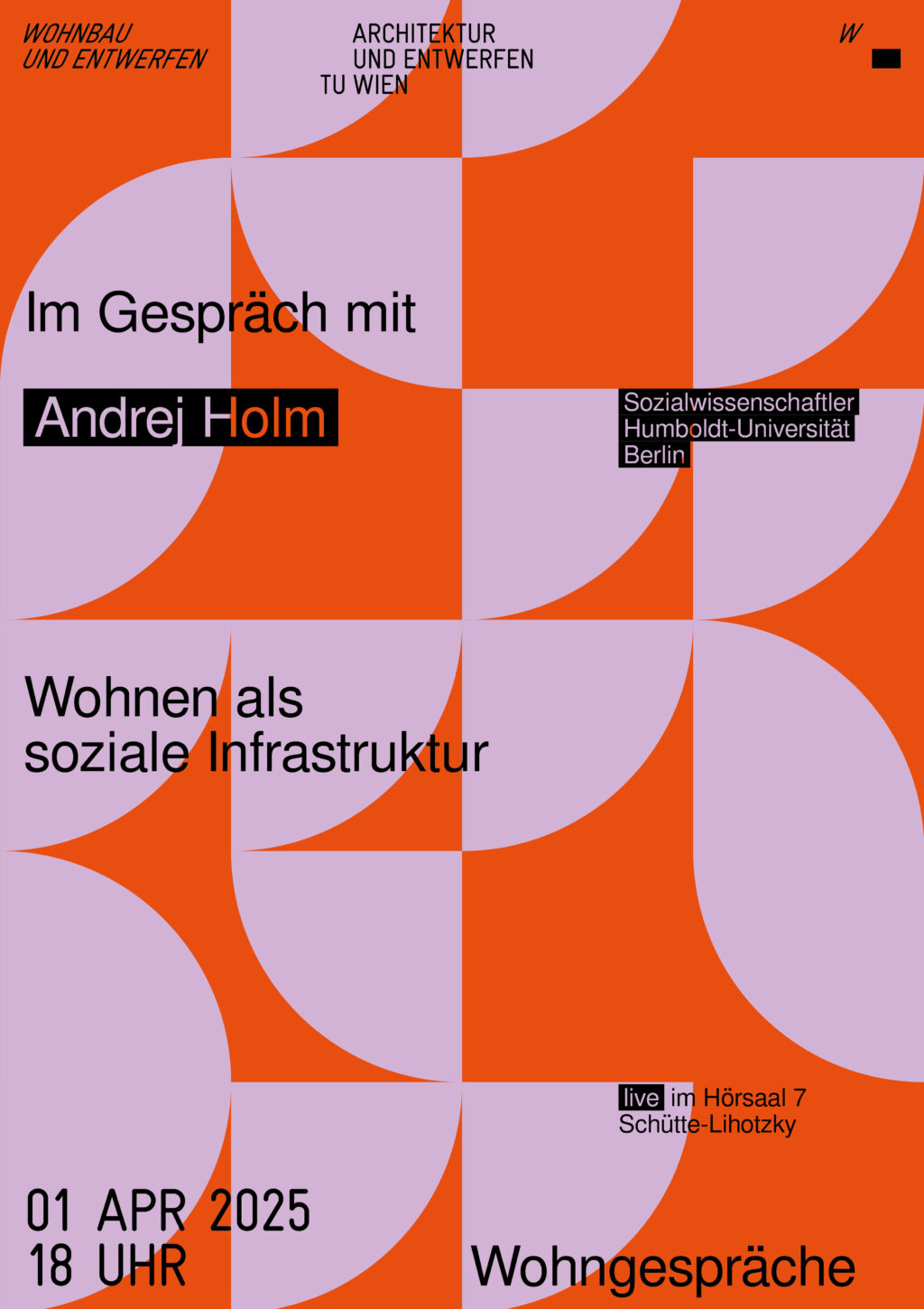
APR 1, 2025
18:00
HOUSING TALKS:
ANDREJ HOLM
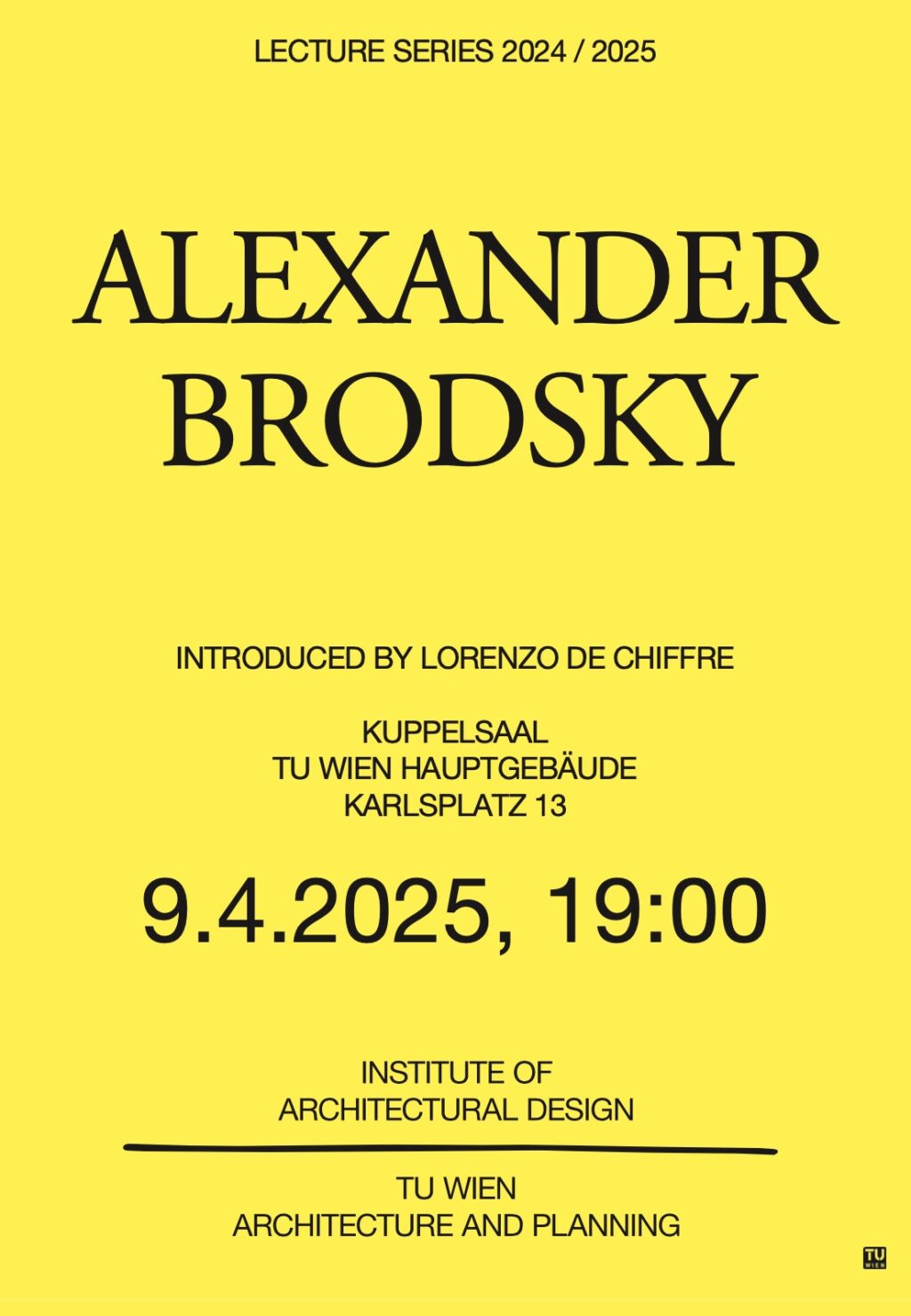
APR 9, 2025
19:00
LECTURE:
ALEXANDER BRODSKY
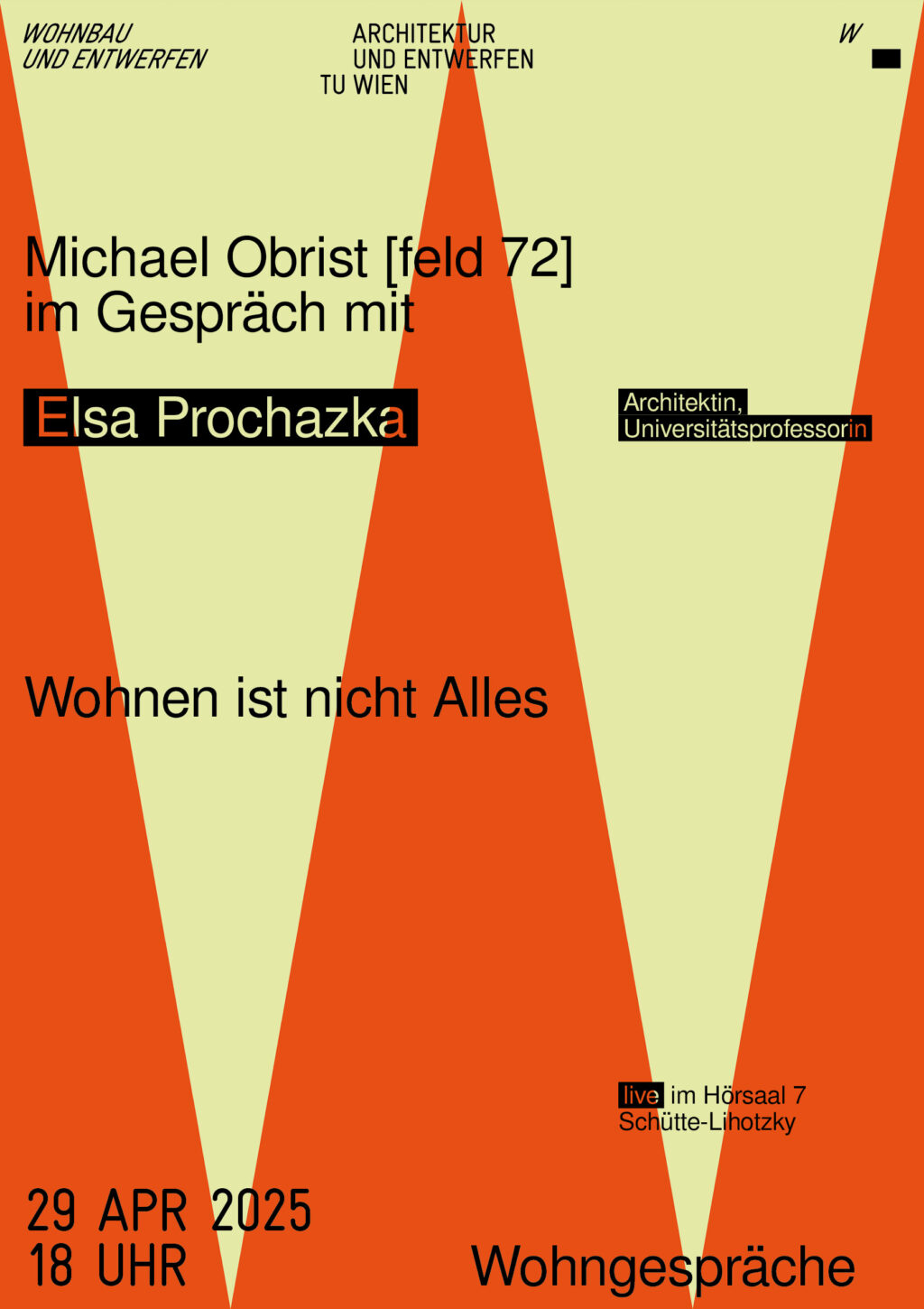
APR 29, 2025
18:00
HOUSING TALKS:
ELSA PROCHAZKA
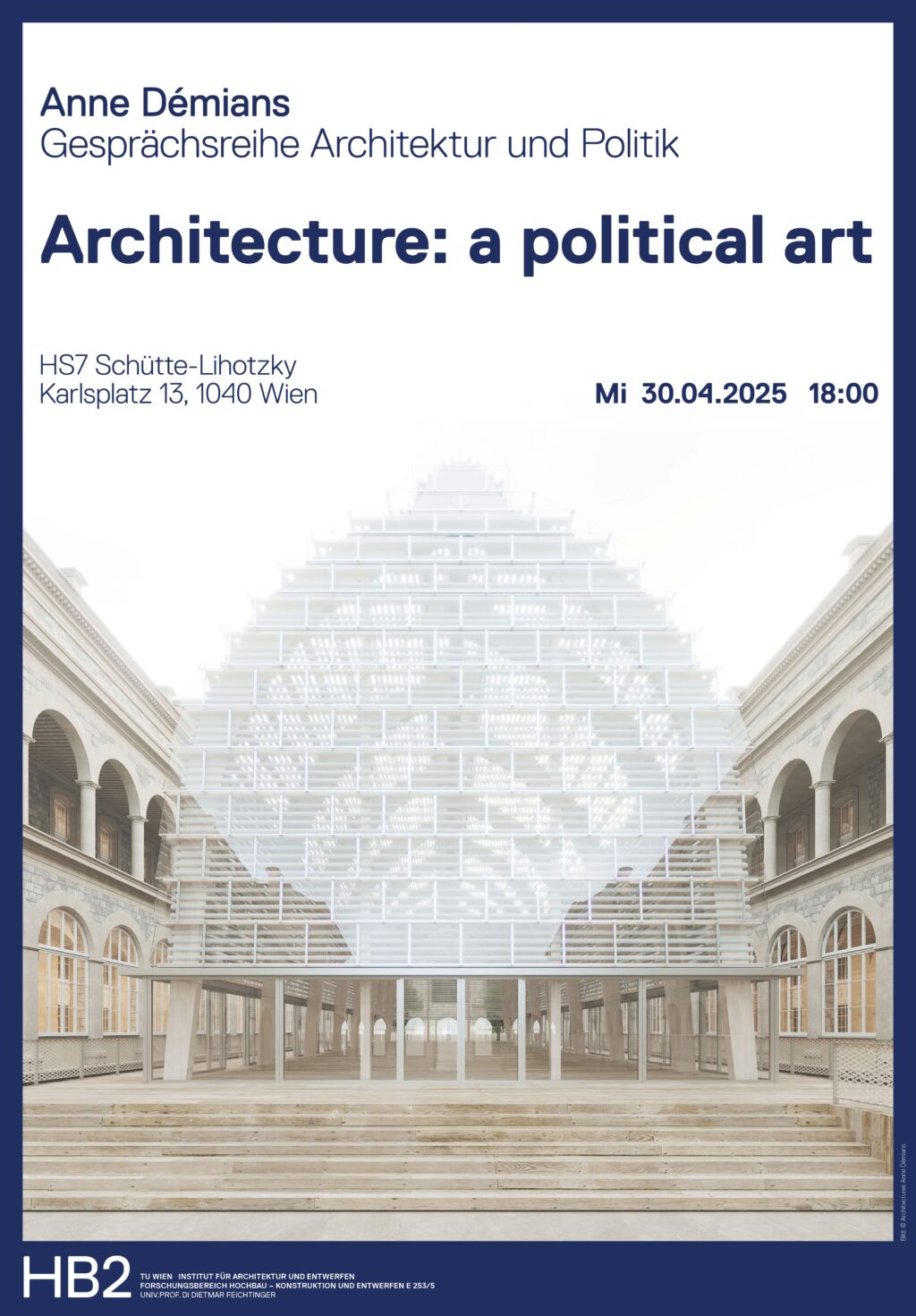
APR 30, 2025
18:00
Lecture:
Anne Démians
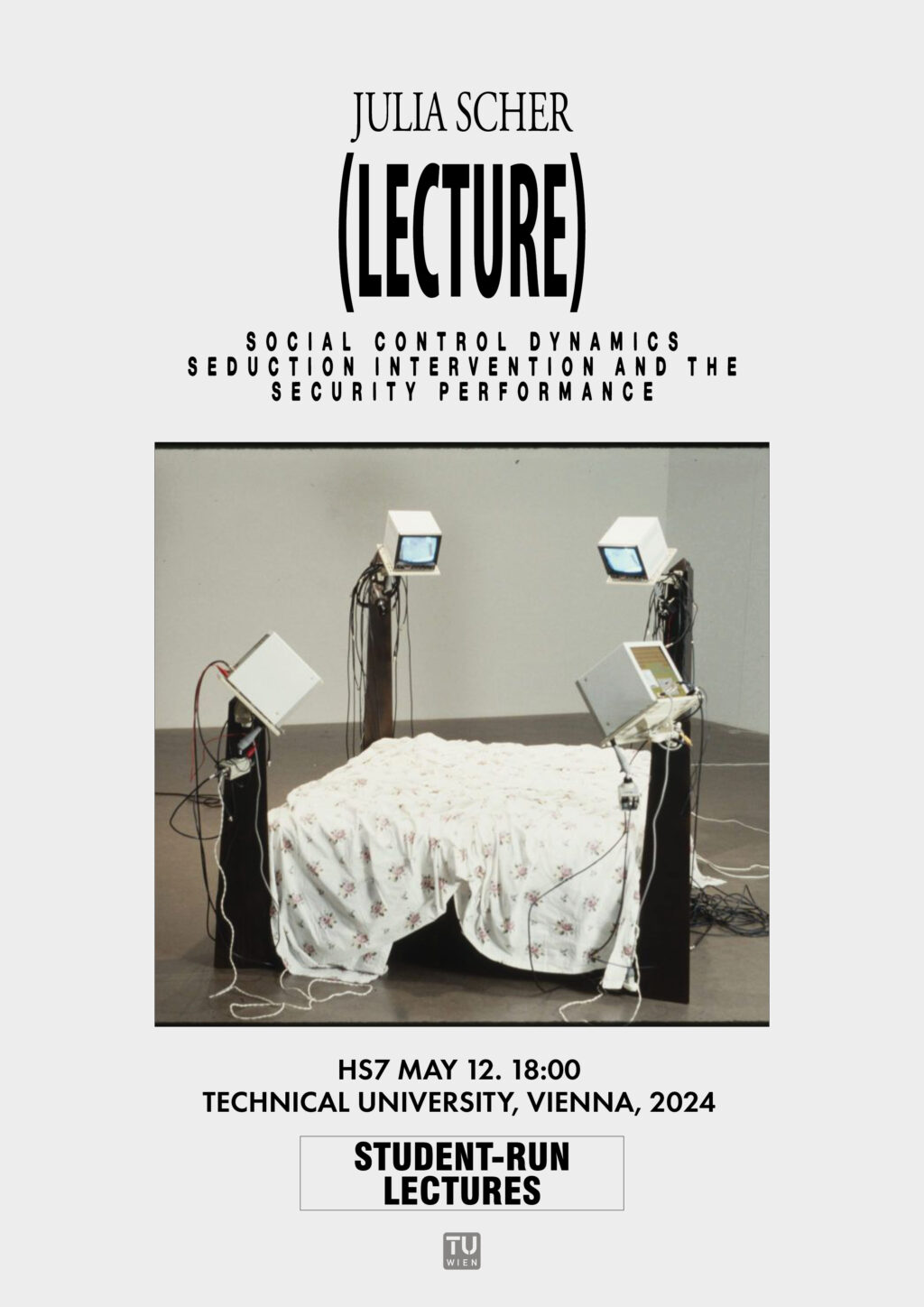
MAY 12, 2025
18:00
LECTURE:
JULIA SCHER
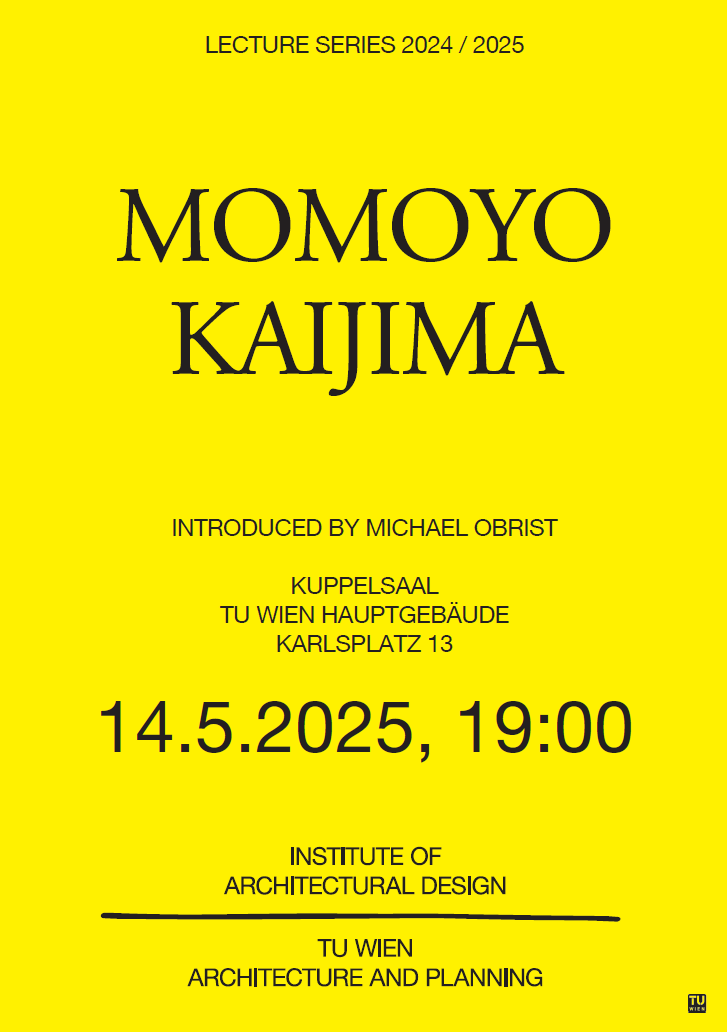
MAY 14, 2025
19:00
LECTURE.
MOMOYO KAIJIMA
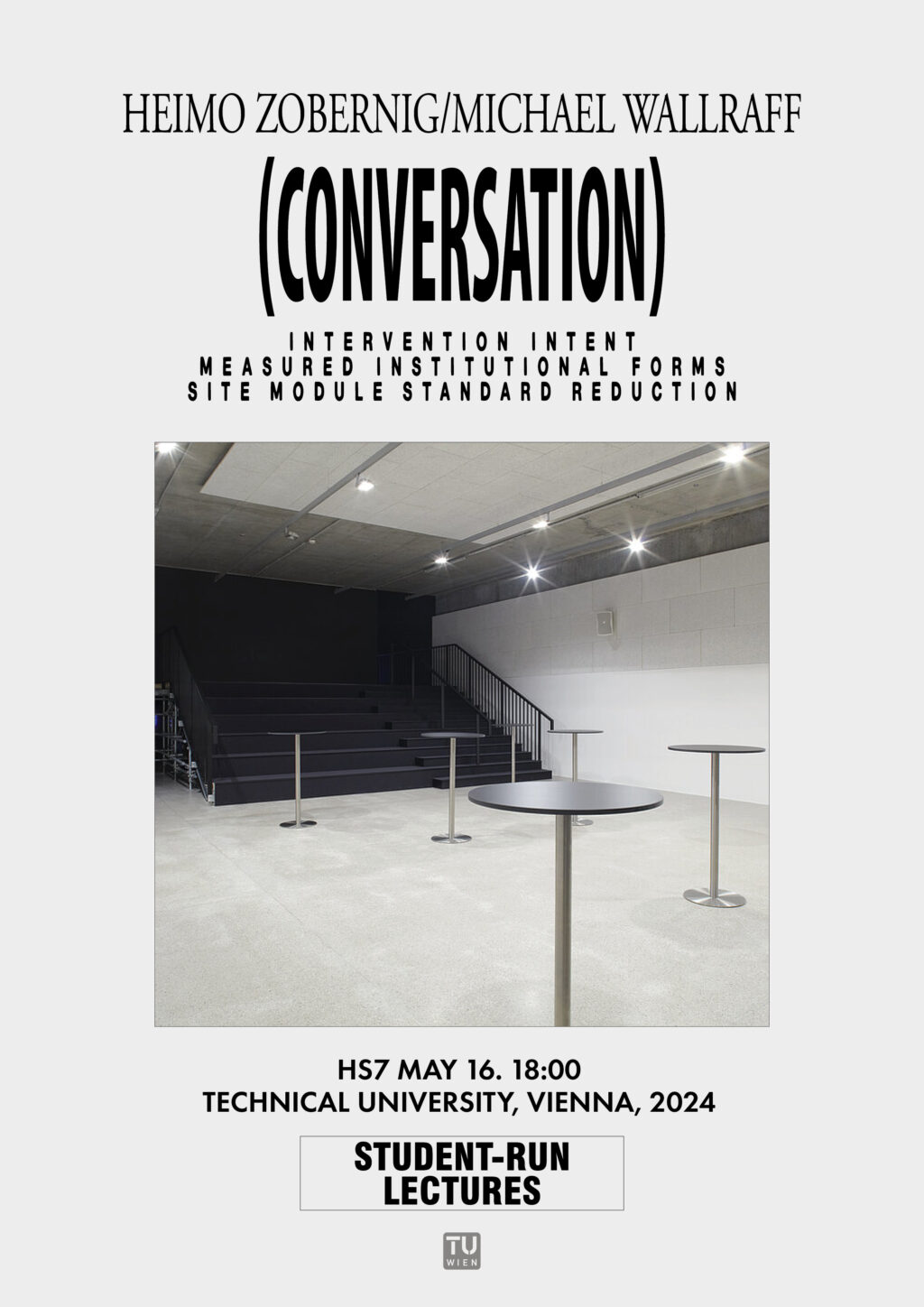
MAY 16, 2025
18:00
CONVERSATION:
HEIMO ZOBERNIG & MICHAEL WALLRAFF
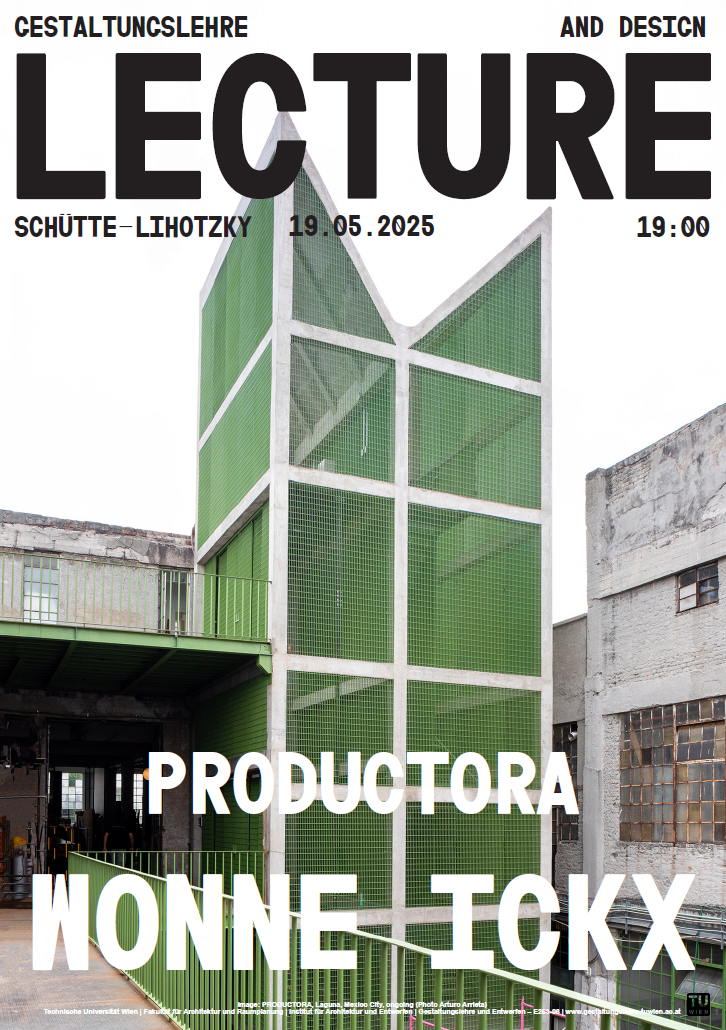
MAY 19, 2025
19:00
LECTURE:
WONNE ICKX
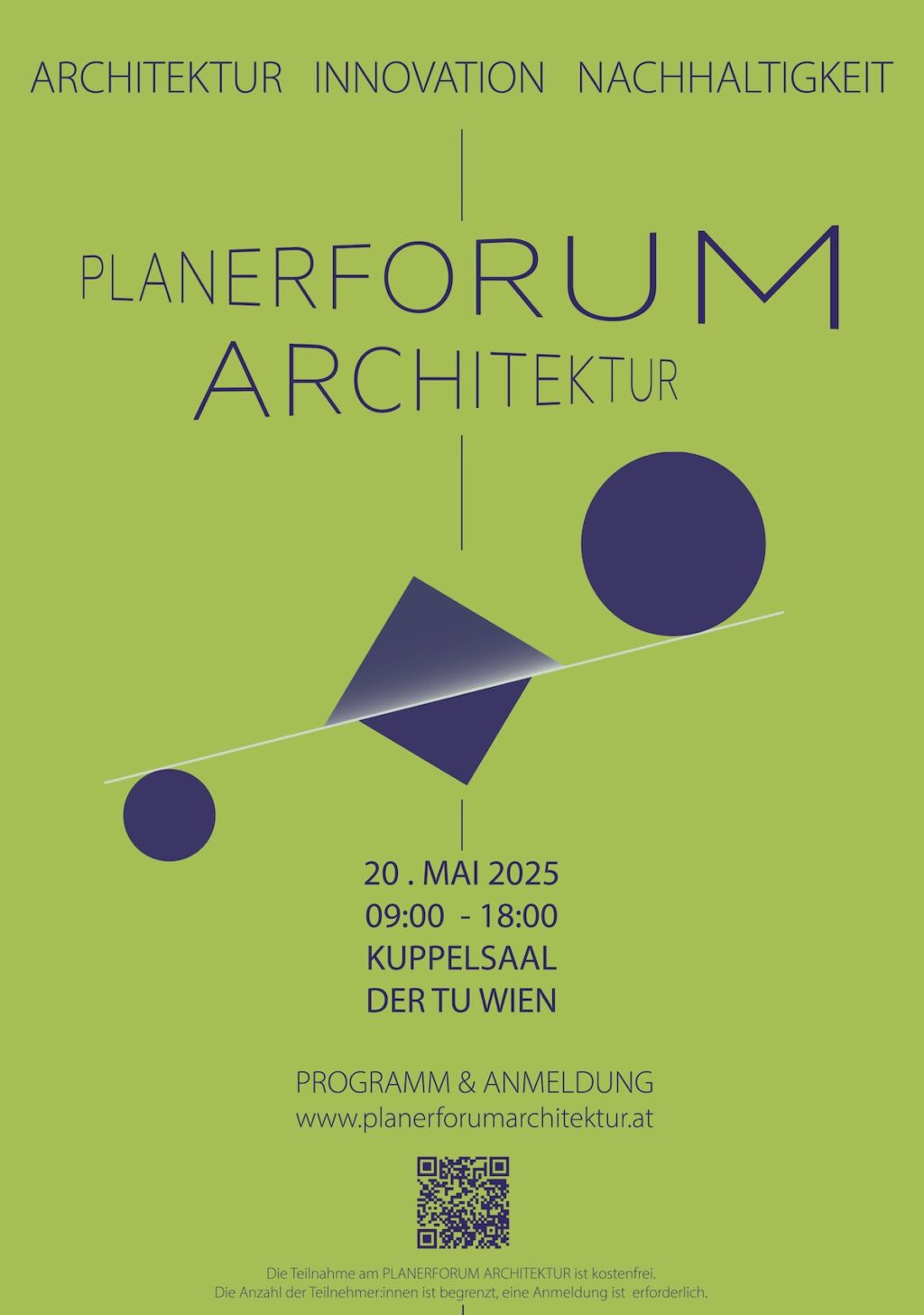
MAY 20, 2025
09:15
PLANERFORUM.
ARCHITEKTUR 2025
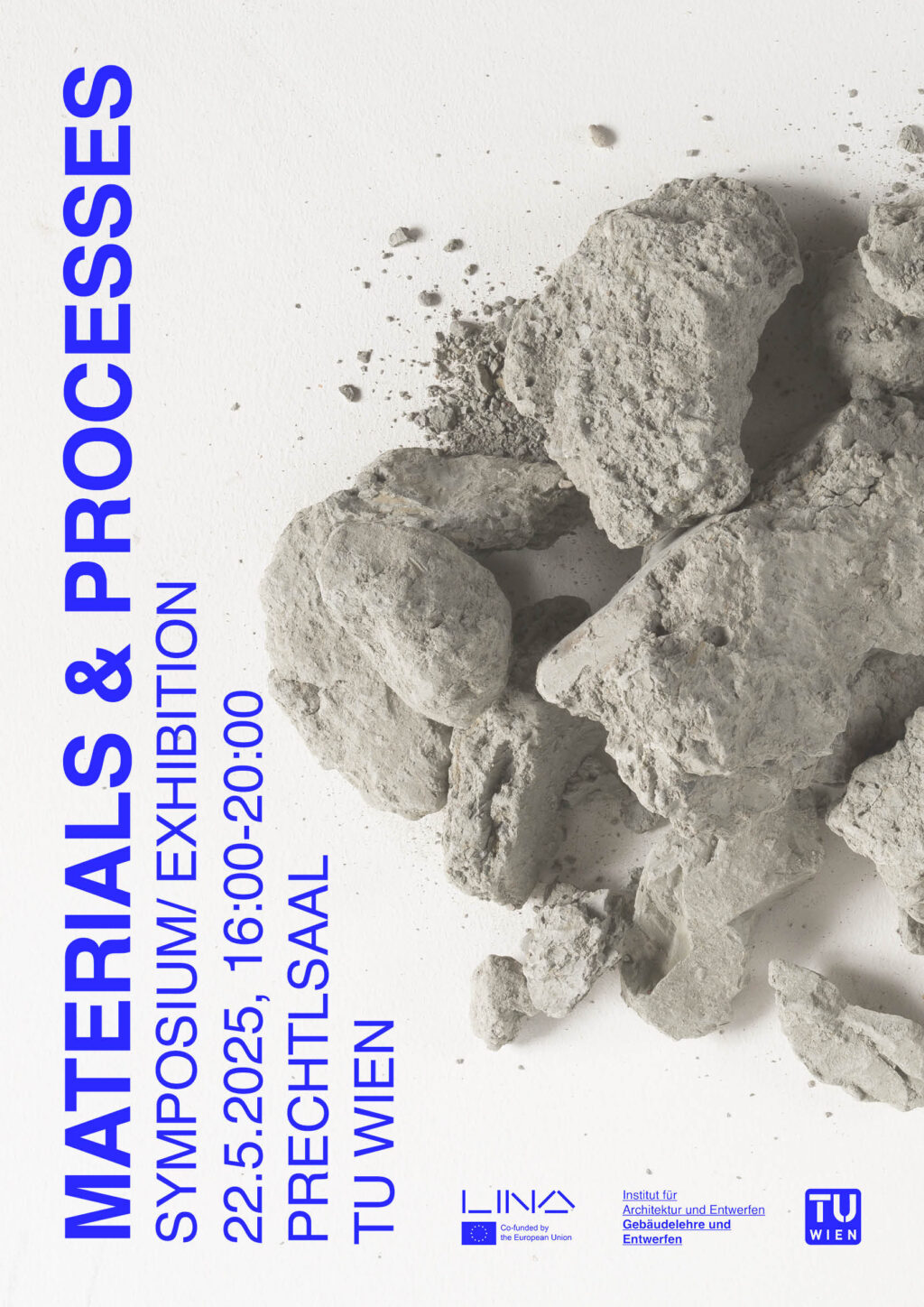
MAY 22, 2025
16:00
SYMPOSIUM, EXHIBITION:
MATERIALS & PROCESSES
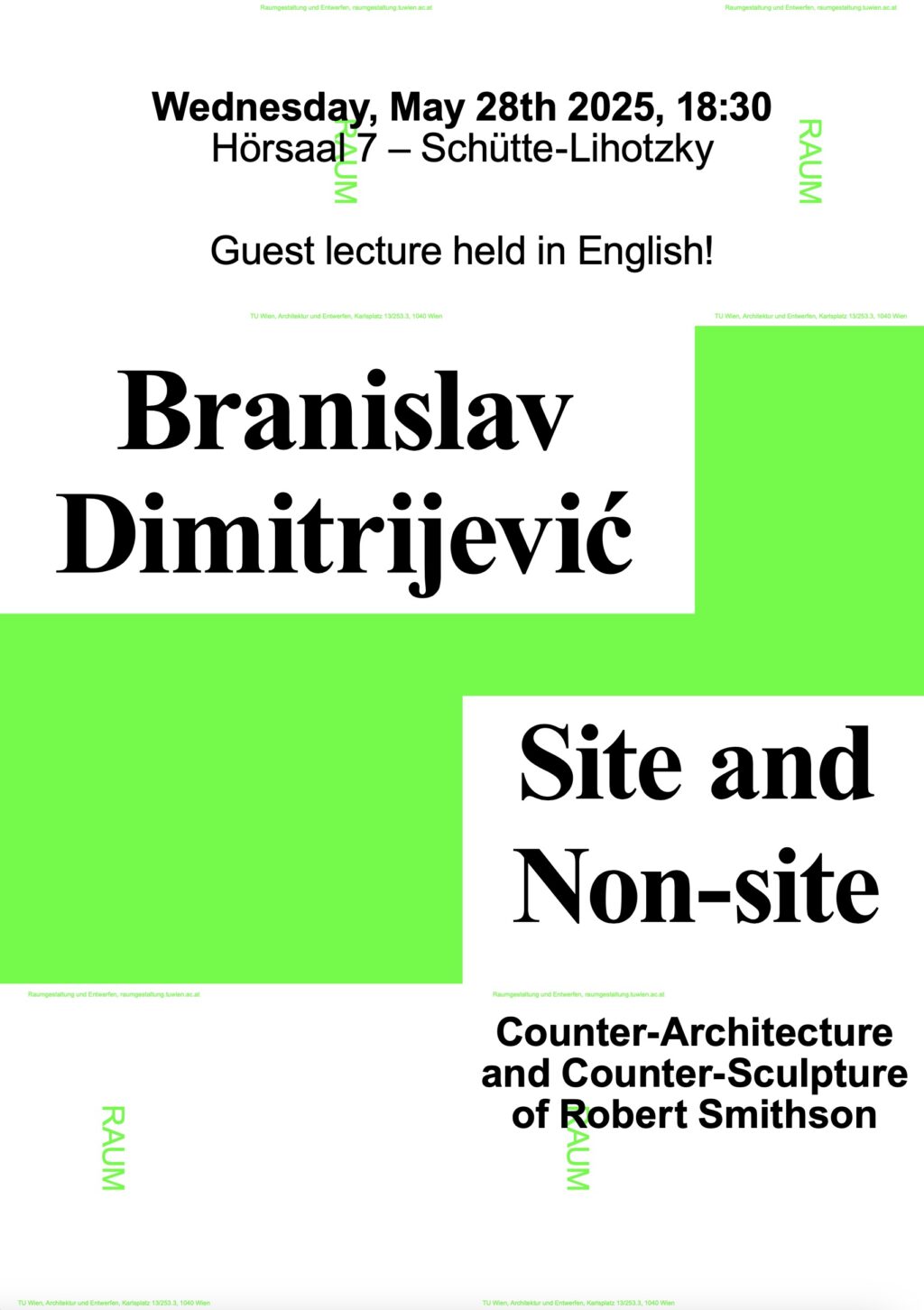
MAY 28, 2025
18:30
LECTURE:
BRANISLAV DIMITRIJEVIĆ
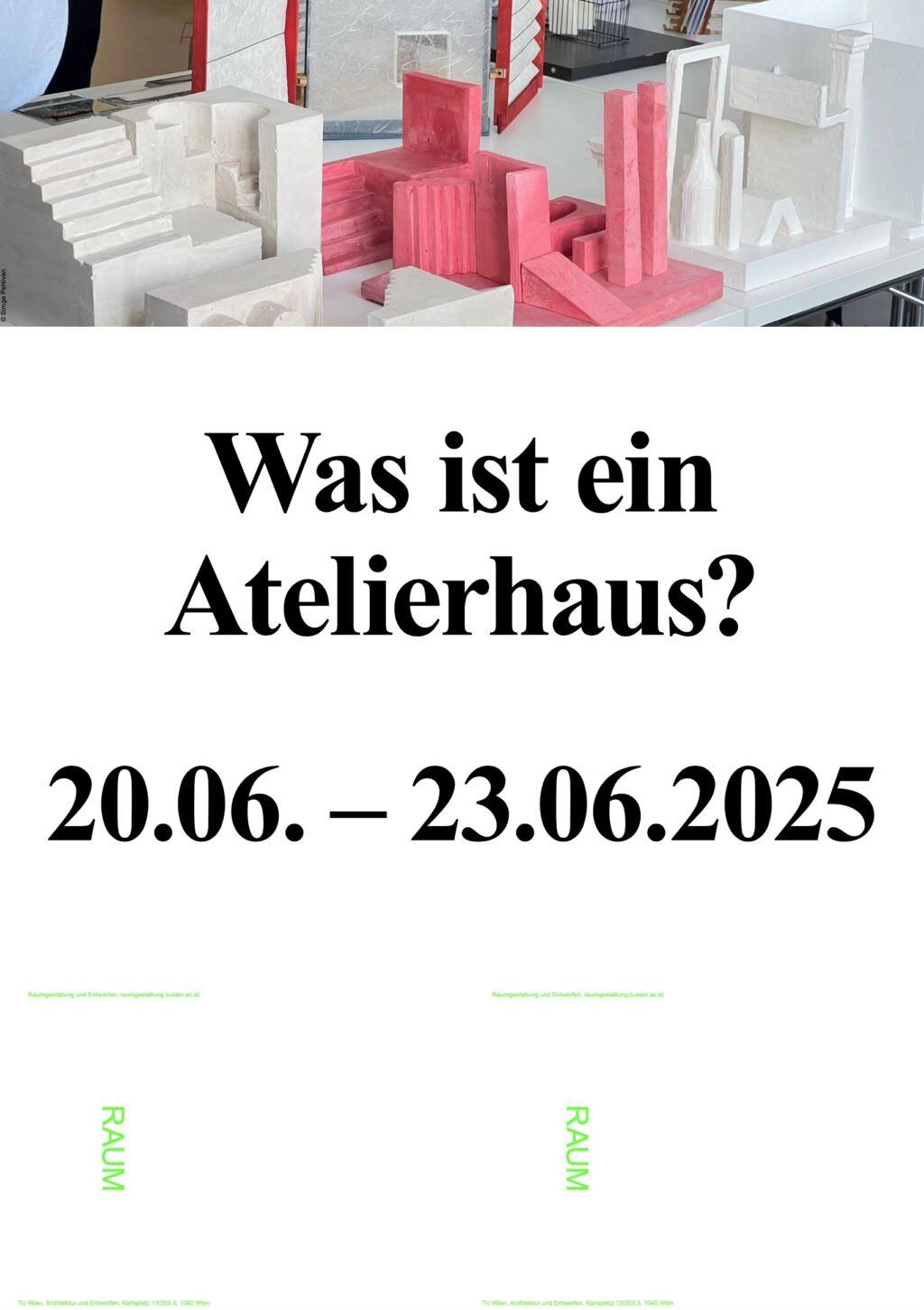
JUN 20, 2025
18:00
EXHIBITION:
WAS IST EIN ATELIERHAUS?
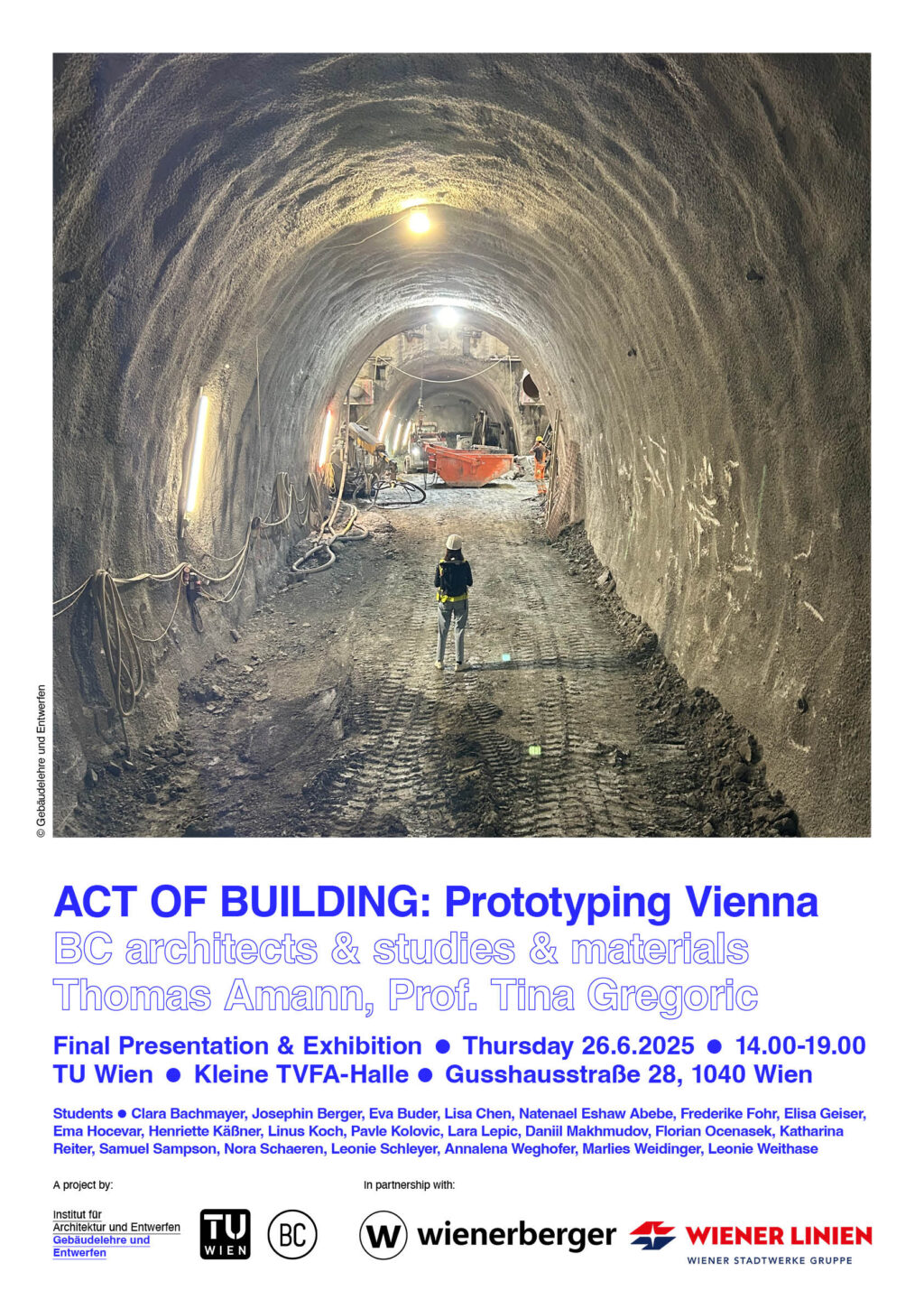
JUN 26, 2025
14:00
PRESENTATION, EXHIBITION:
ACT OF BUILDING
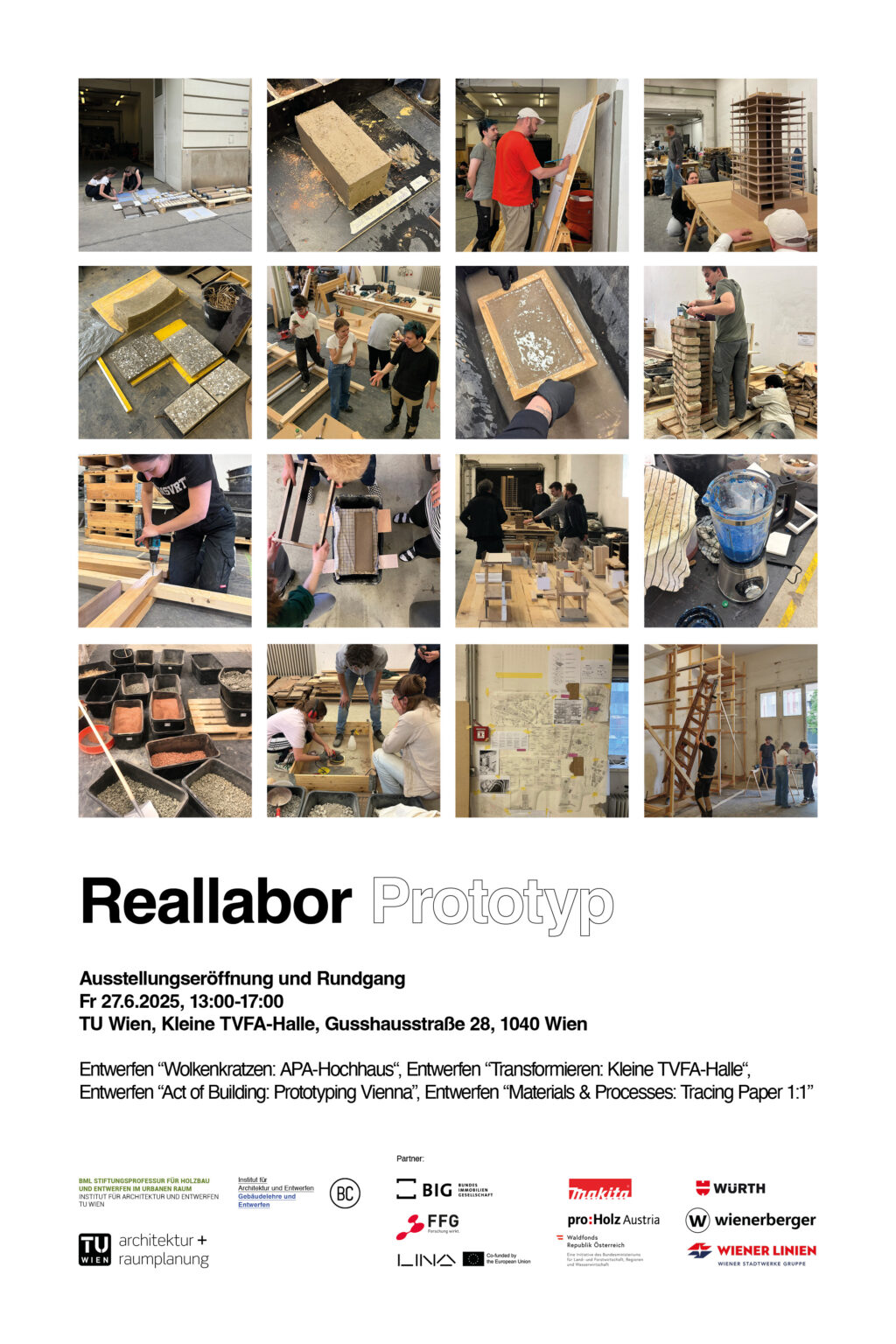
JUN 27, 2025
13:00
Presentation, Exhibition:
Reallabor Prototyp
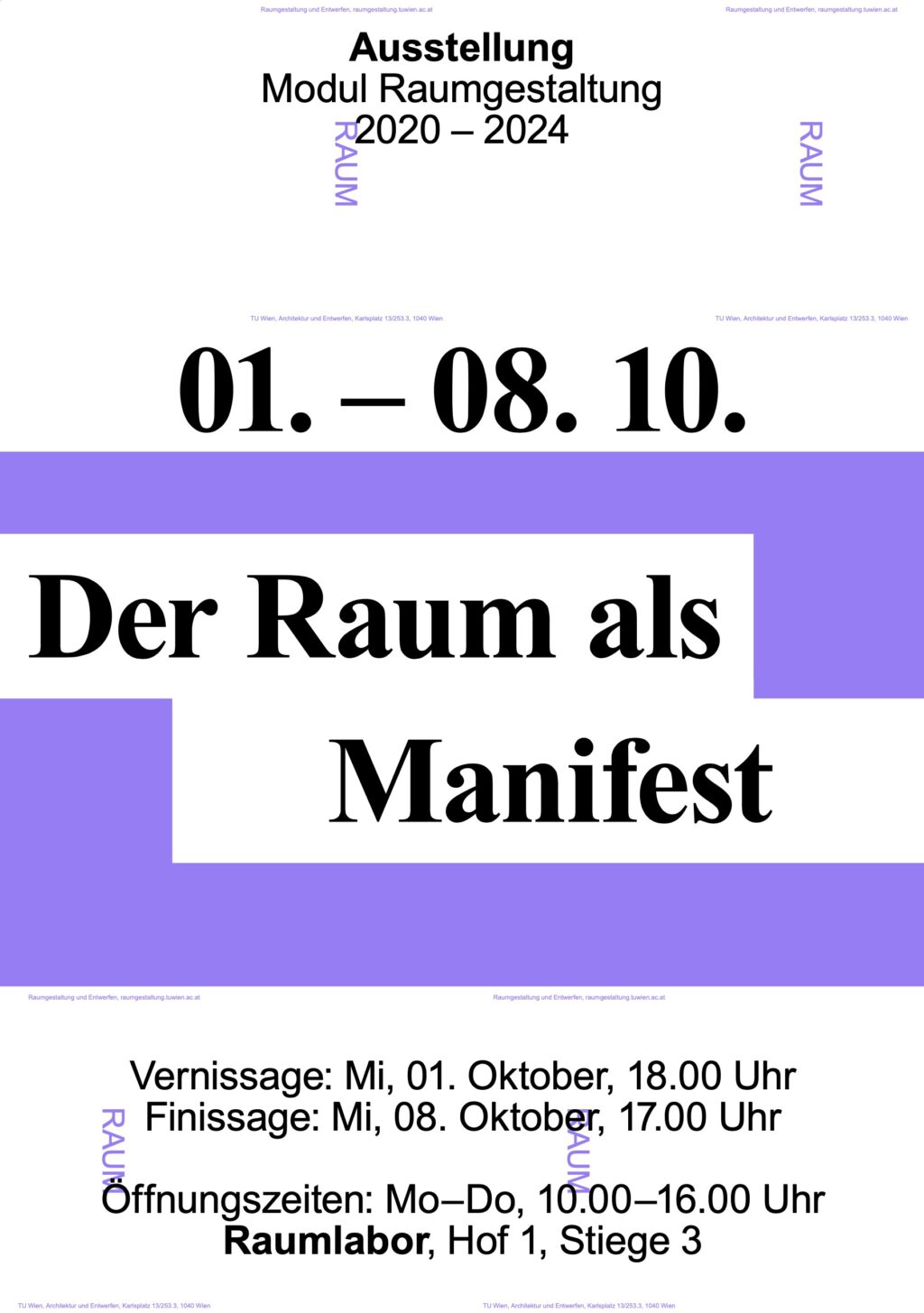
SEP 1, 2025
18:00
EXHIBITION:
DER RAUM ALS MANIFEST

OCT 3, 2025
15:30
OPENING:
DESIGN.BUILD STUDIO
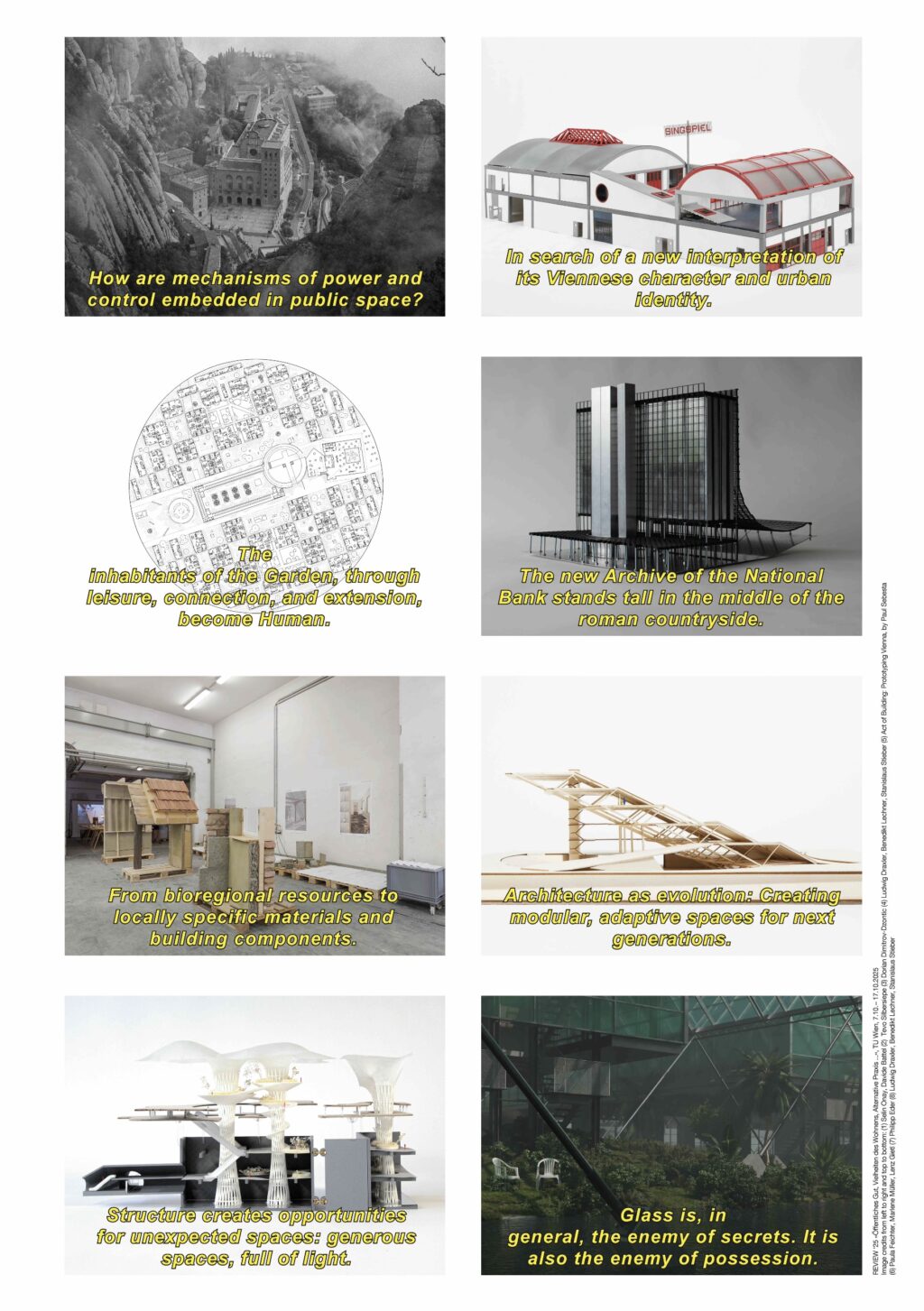
OCT 7, 2025
18:00
EXHIBITION:
REVIEW’25

OCT 9, 2025
16:00
OPENING:
WONDERS OF THE MODERN WORLD
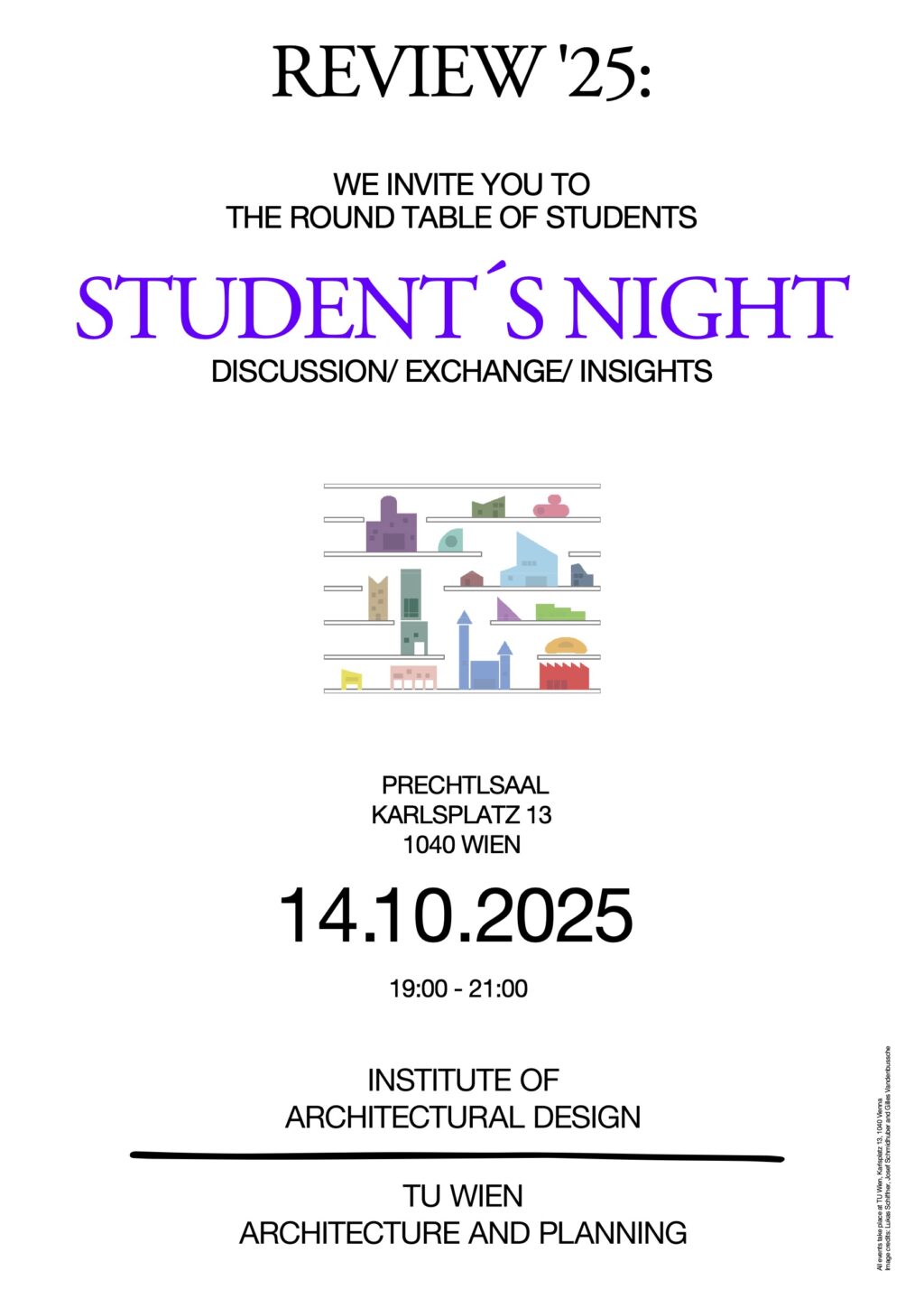
OCT 14, 2025
19:00
ROUND TABLE:
STUDENT'S NIGHT
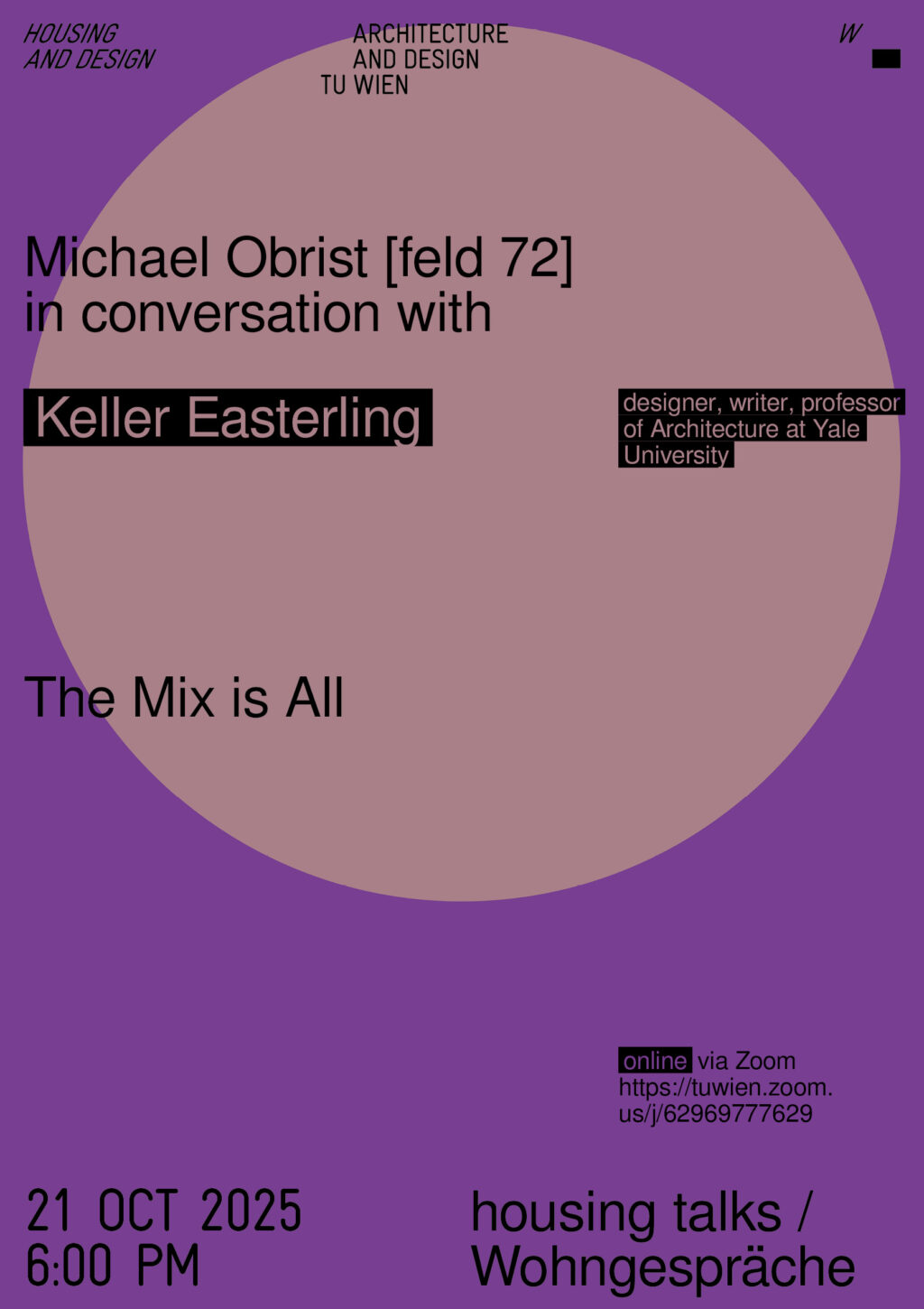
OCT 21, 2025
18:00
HOUSING TALKS:
KELLER EASTERLING

OCT 28, 2025
18:00
HOUSING TALKS:
AXEL TIMM
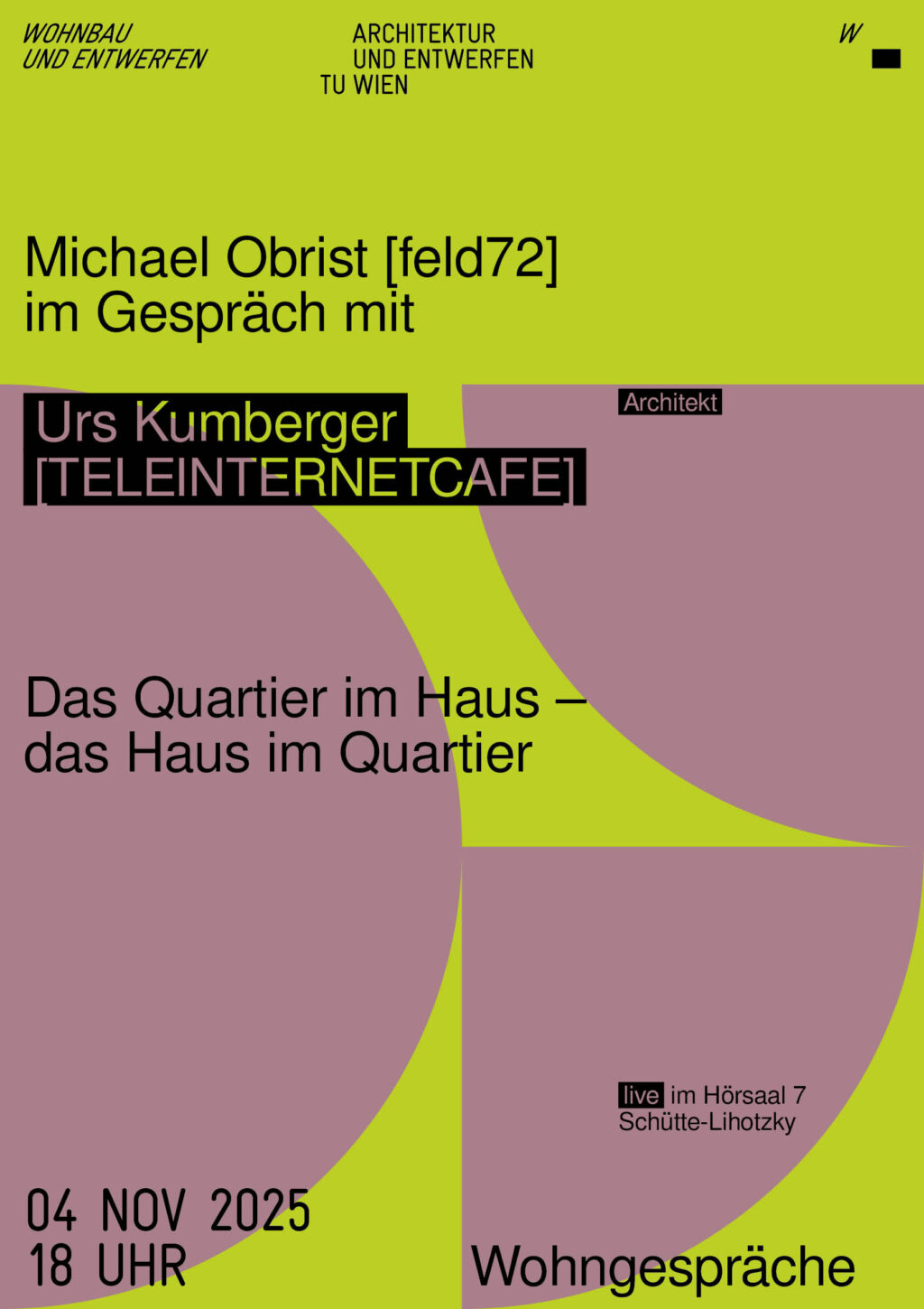
NOV 4, 2025
18:00
HOUSING TALKS:
URS KUMBERGER
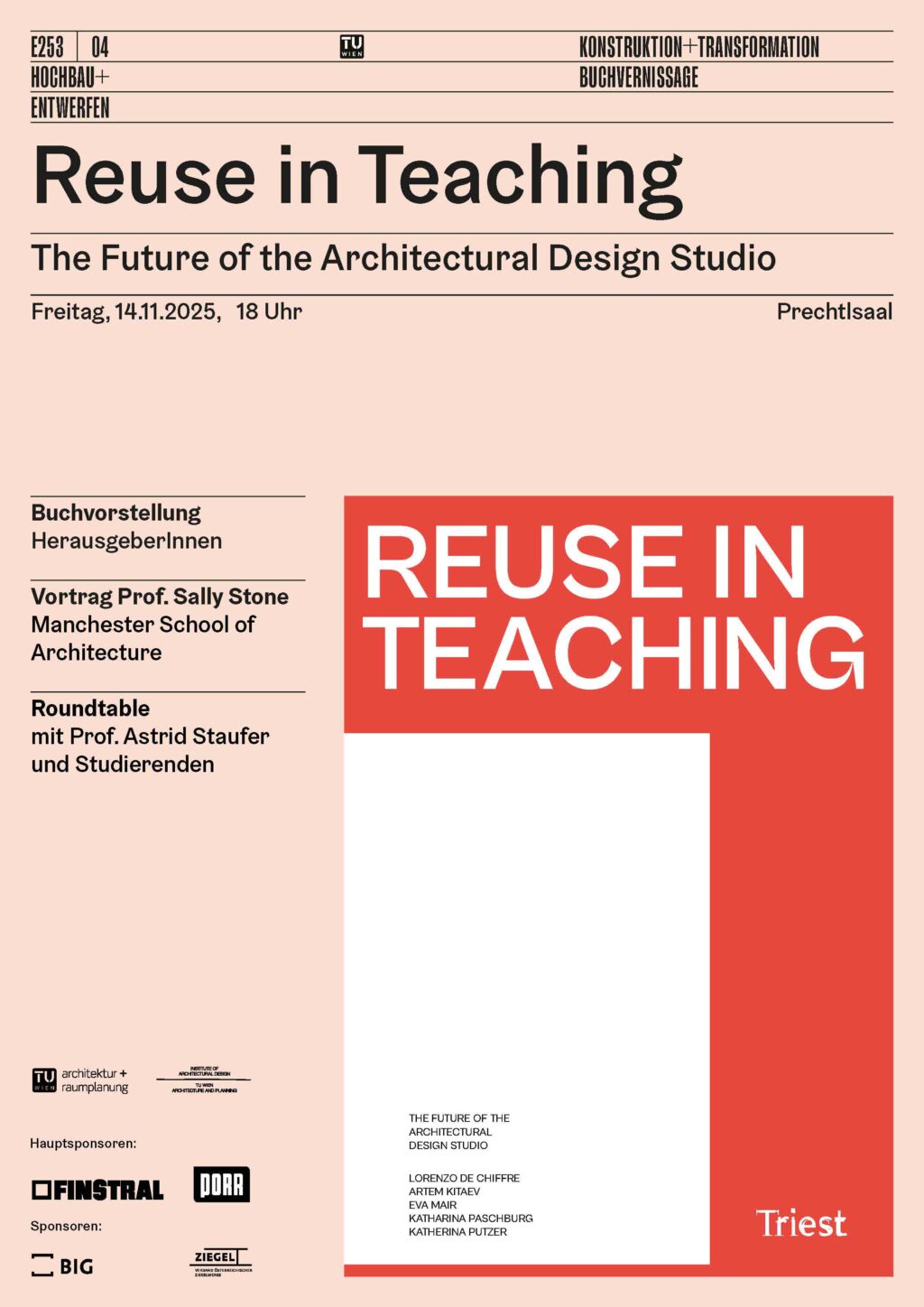
NOV 14, 2025
18:00
BOOK LAUNCH:
REUSE IN TEACHING
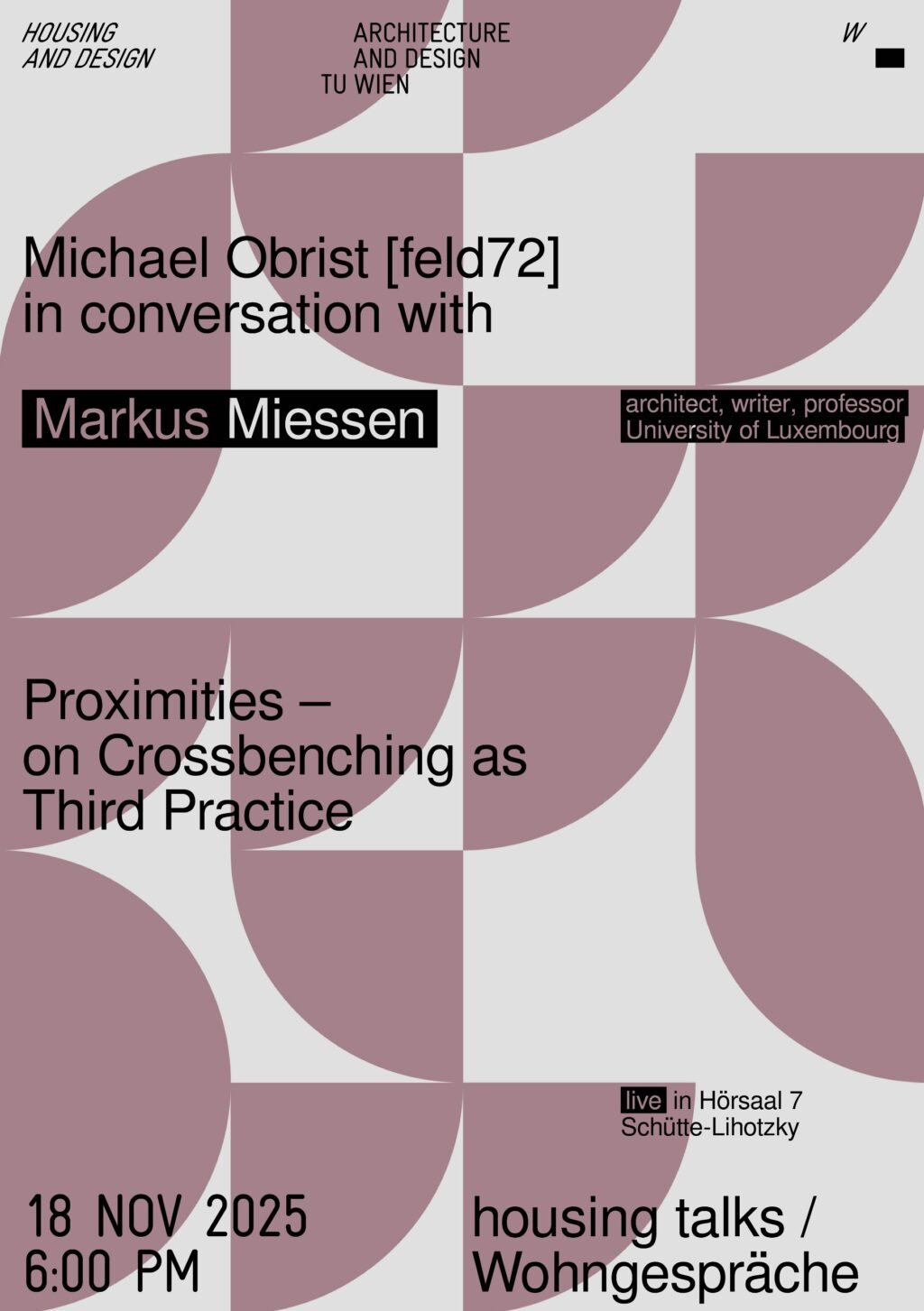
NOV 18, 2025
18:00
HOUSING TALKS:
MARKUS MIESSEN

NOV 25, 2025
18:00
HOUSING TALKS:
KADAMBARI BAXI
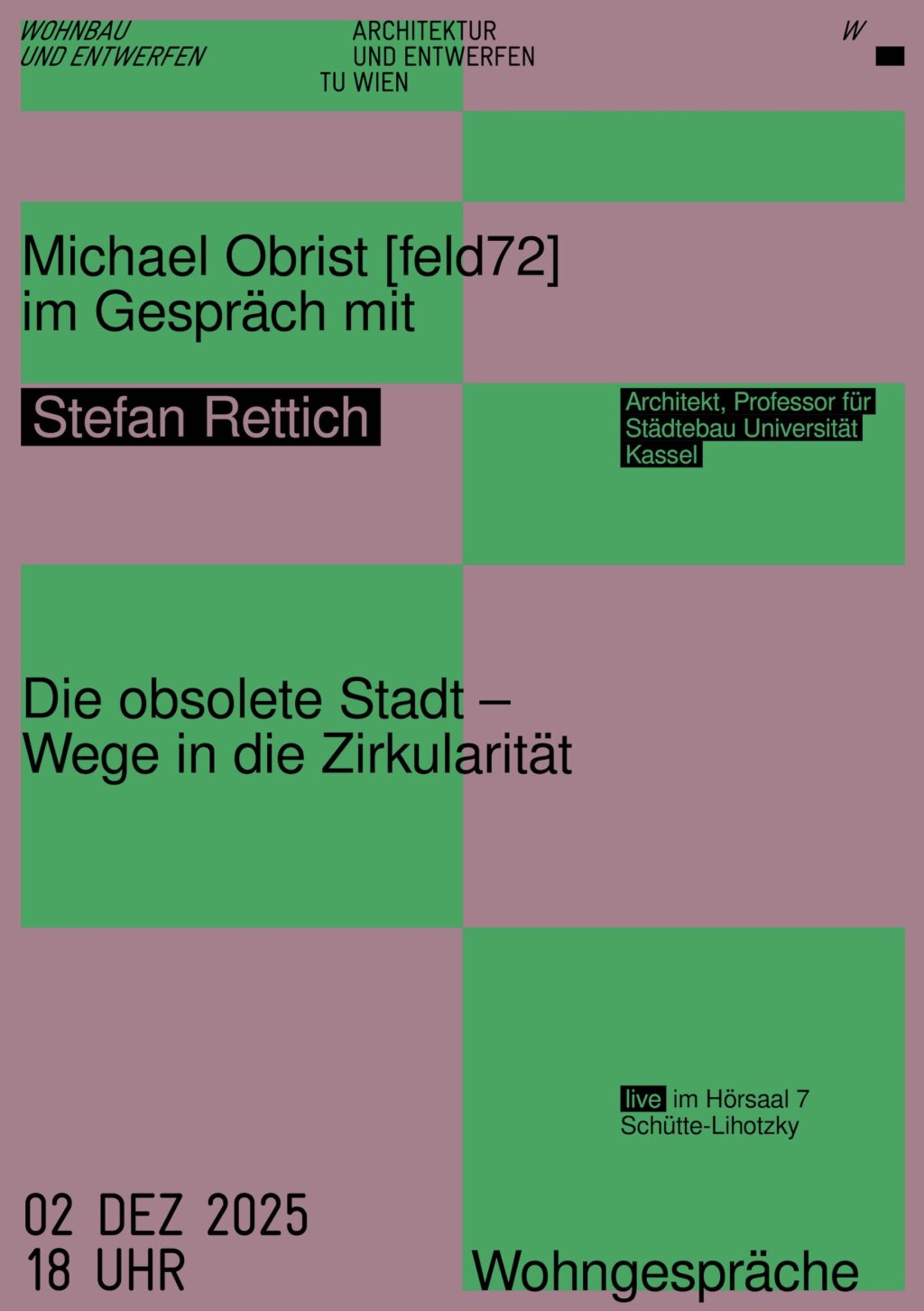
DEC 2, 2025
18:00
HOUSING TALKS:
STEFAN RETTICH
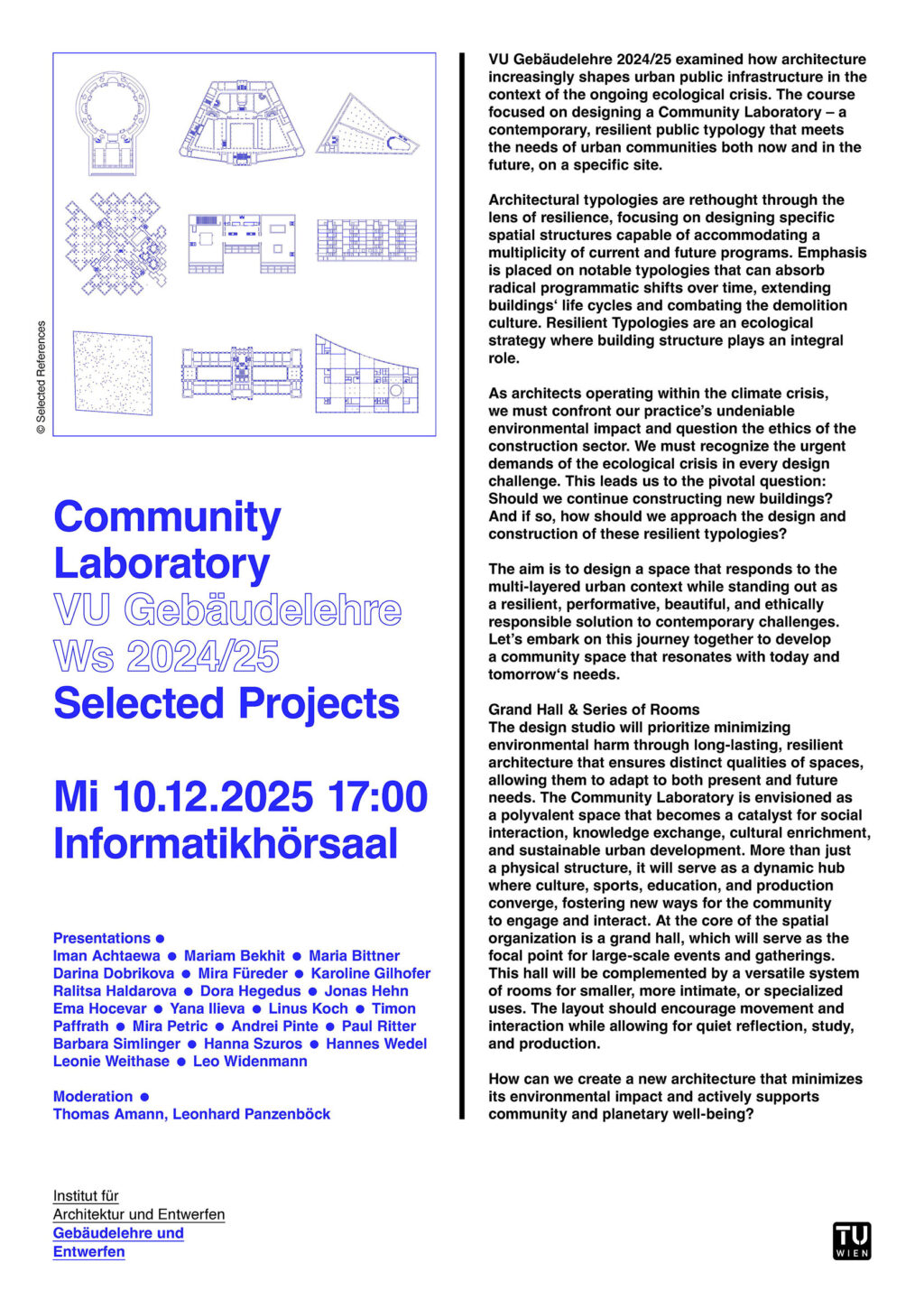
DEC 10, 2025
17:00
LECTURE:
COMMUNITY LABORATORY
SELECTED PROJECTS
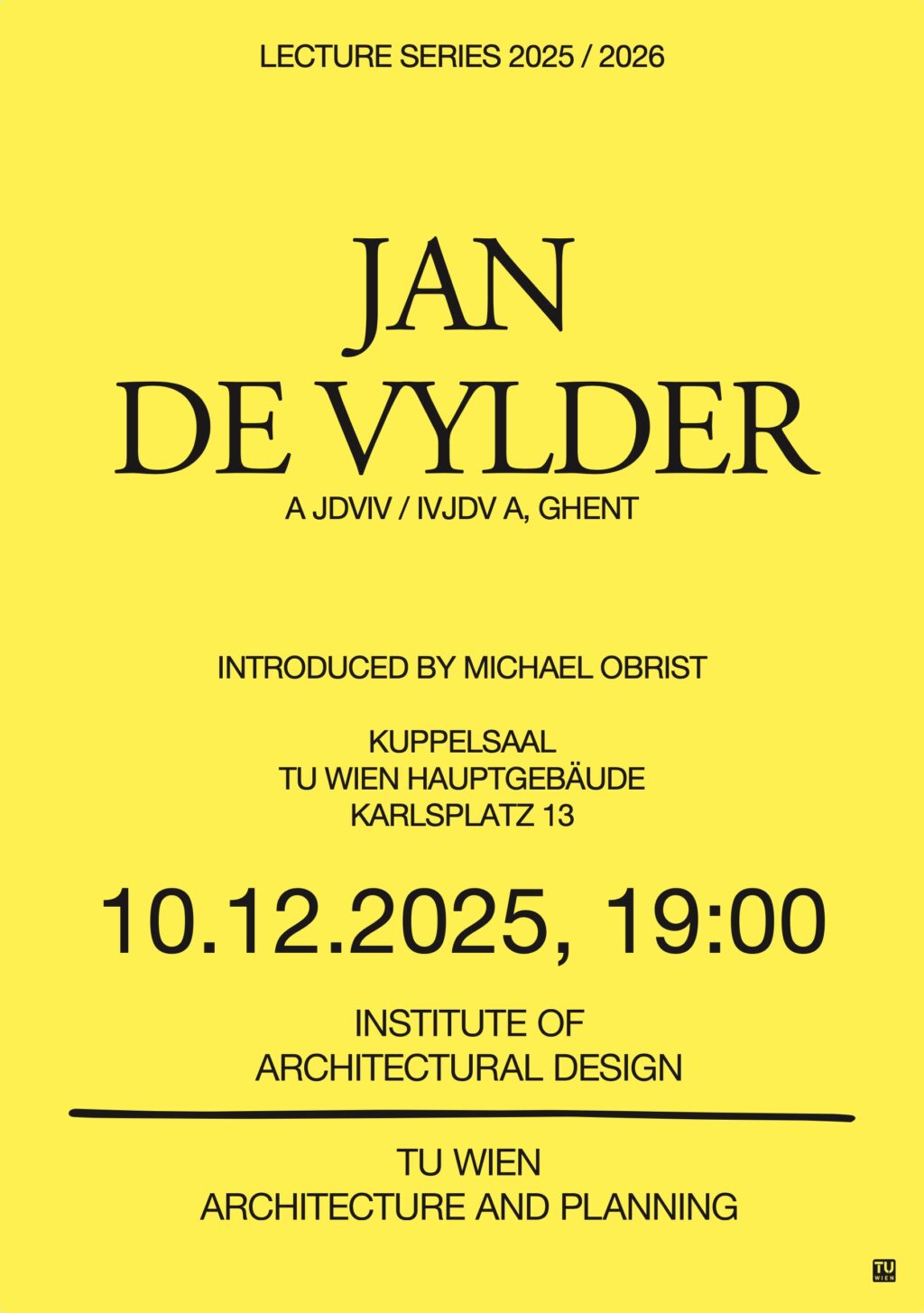
DEC 10, 2025
19:00
LECTURE:
JAN DE VYLDER
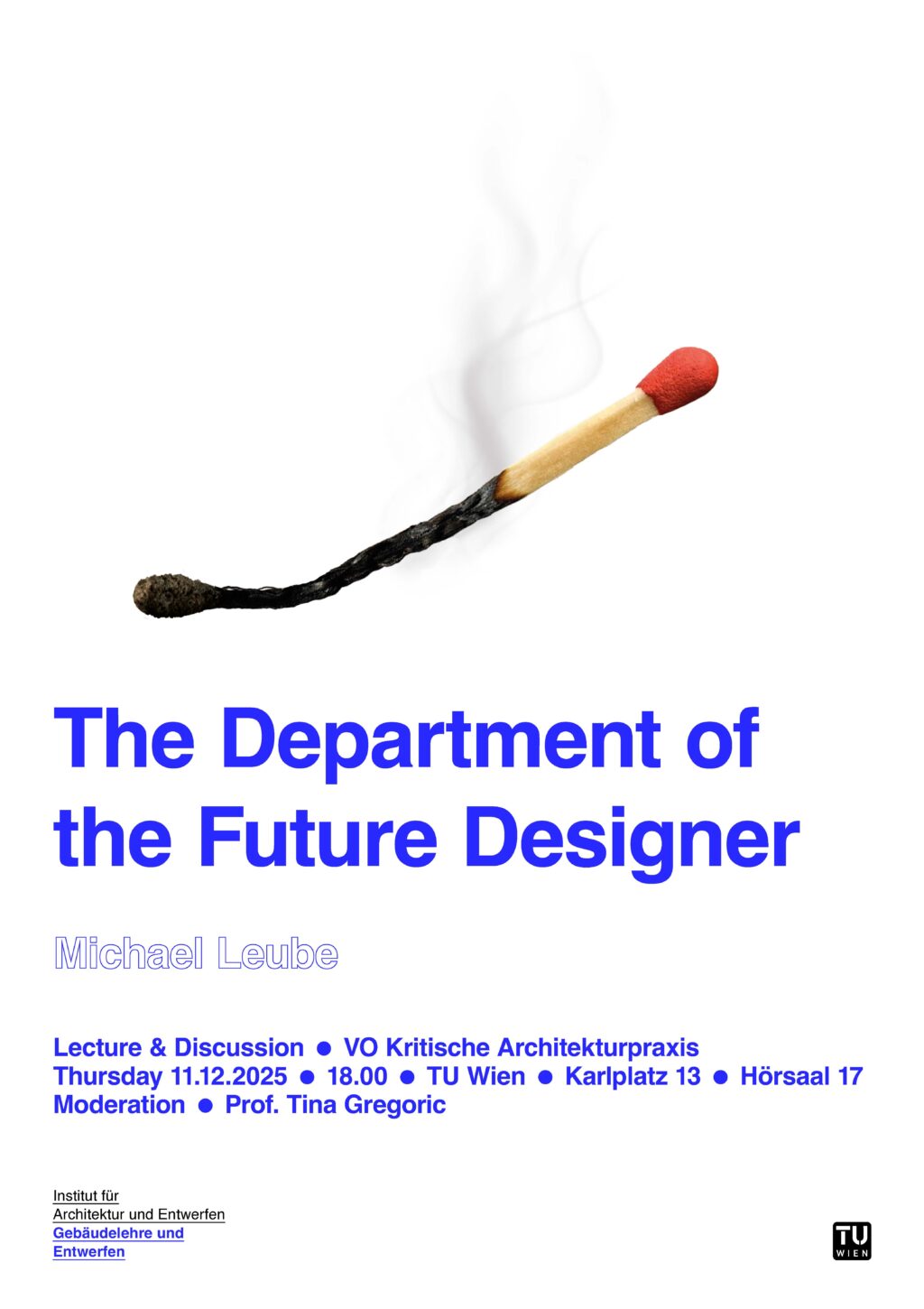
DEC 11, 2025
18:00
Lecture:
Michael Leube
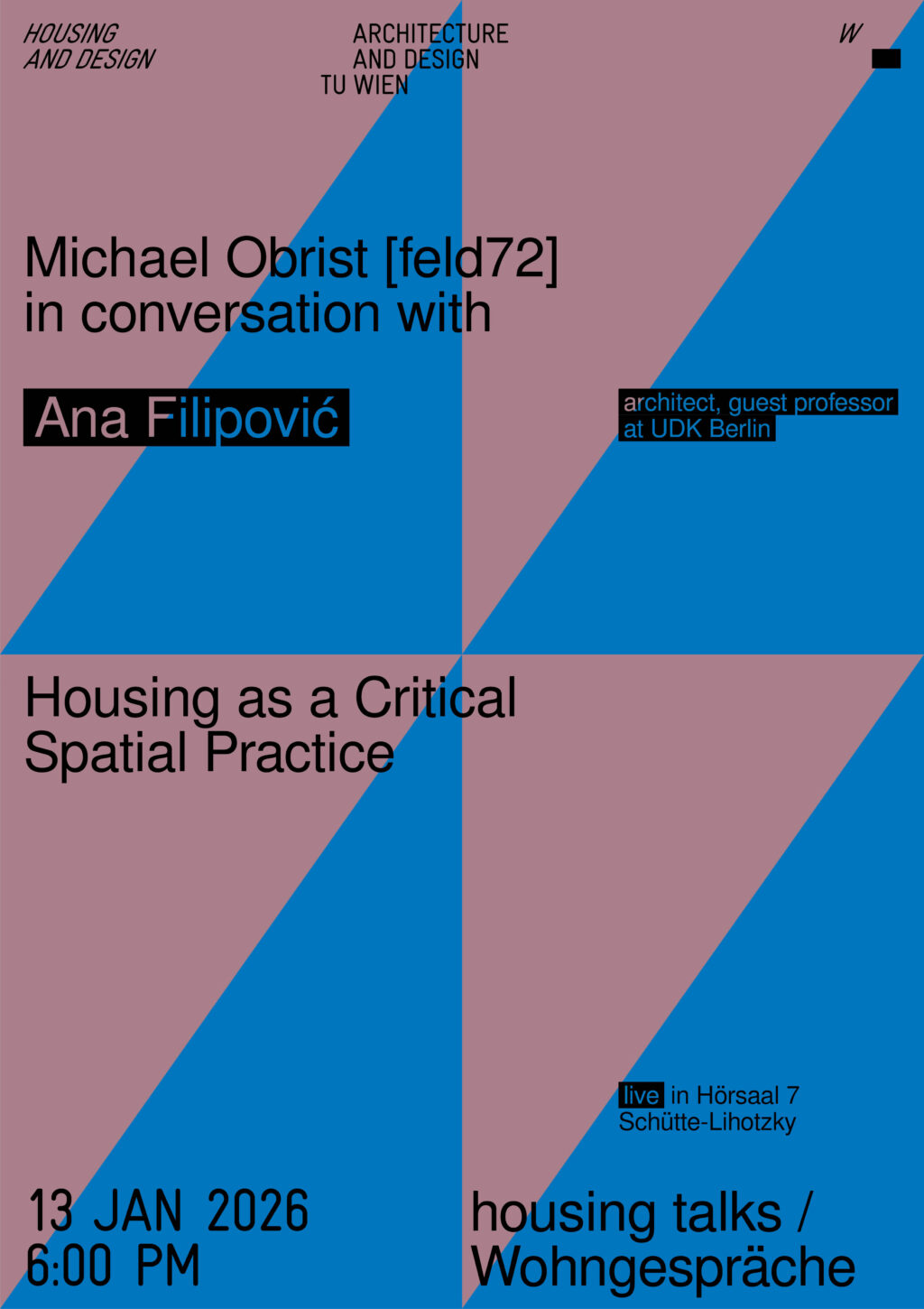
JAN 13, 2026
18:00
HOUSING TALKS:
ANA FILIPOVIĆ
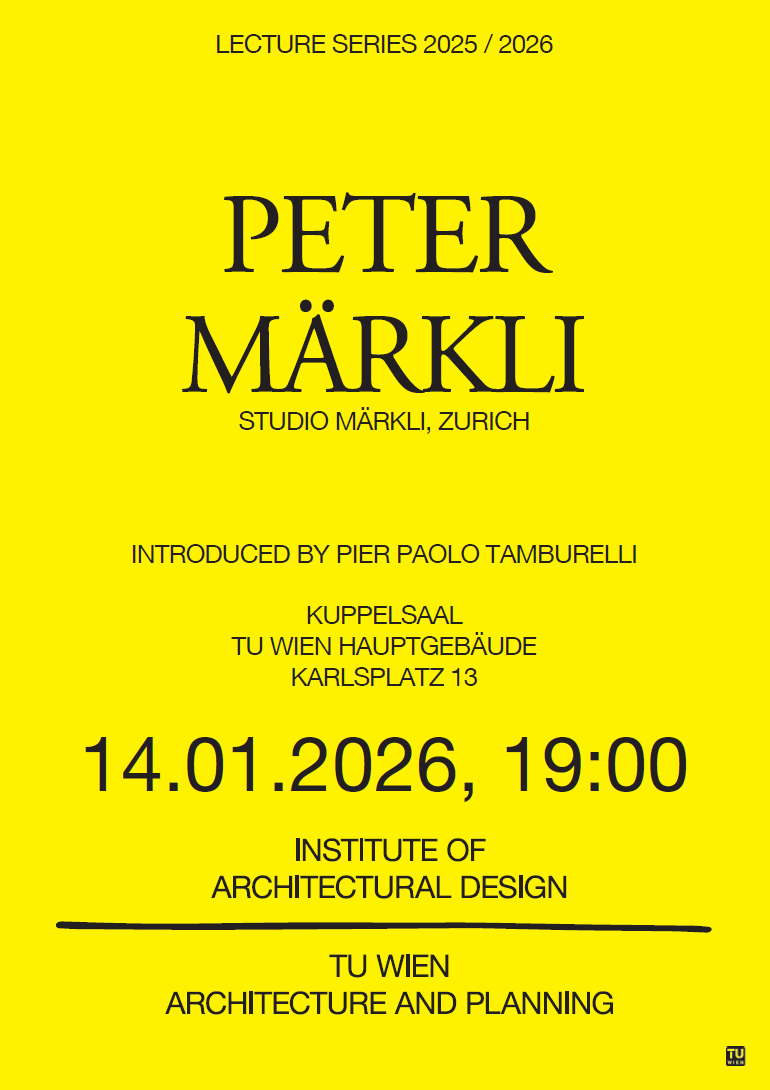
JAN 14, 2026
19:00
LECTURE:
PETER MÄRKLI
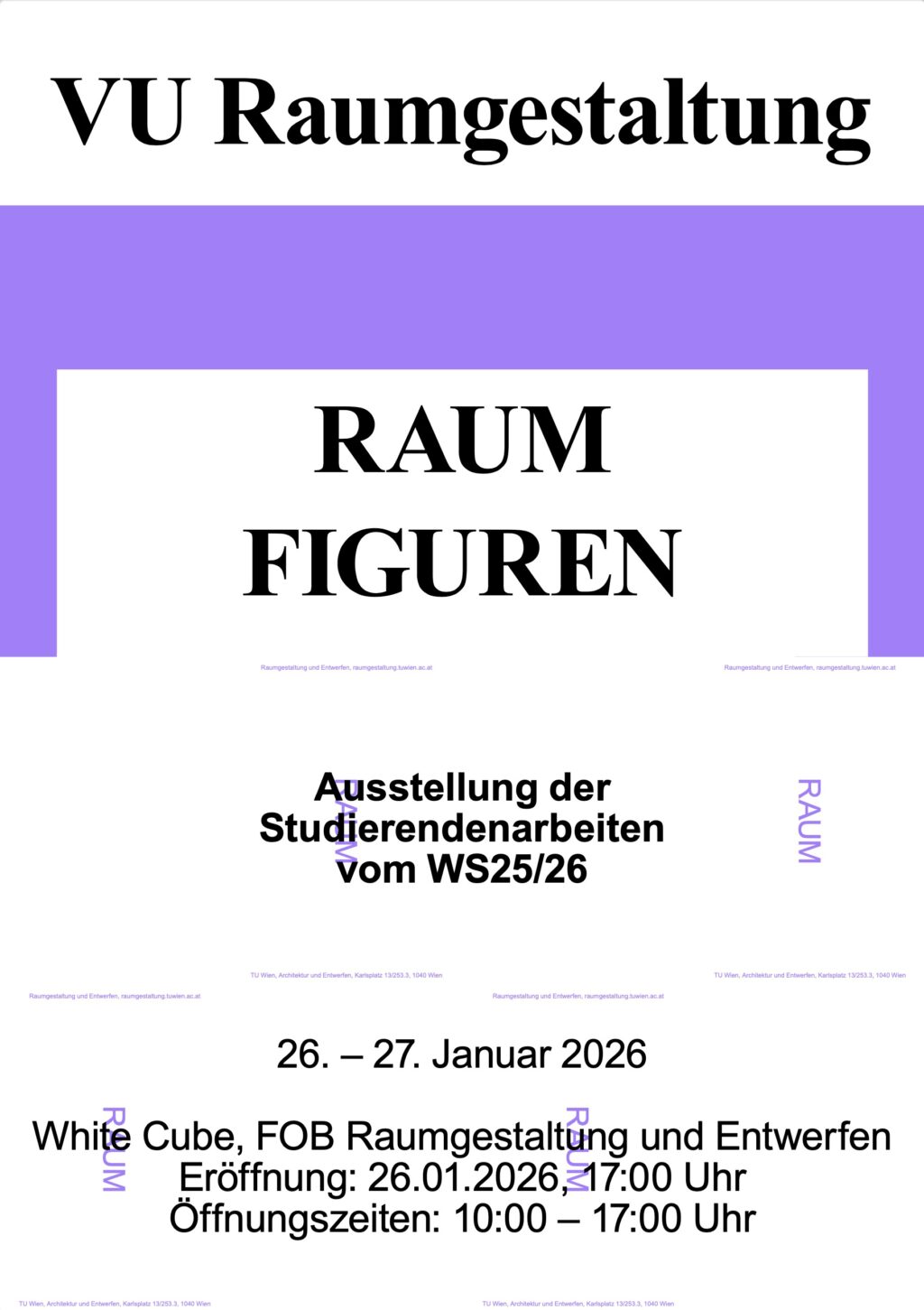
JAN 26, 2026
17:00
EXHIBITION:
RAUMFIGUREN
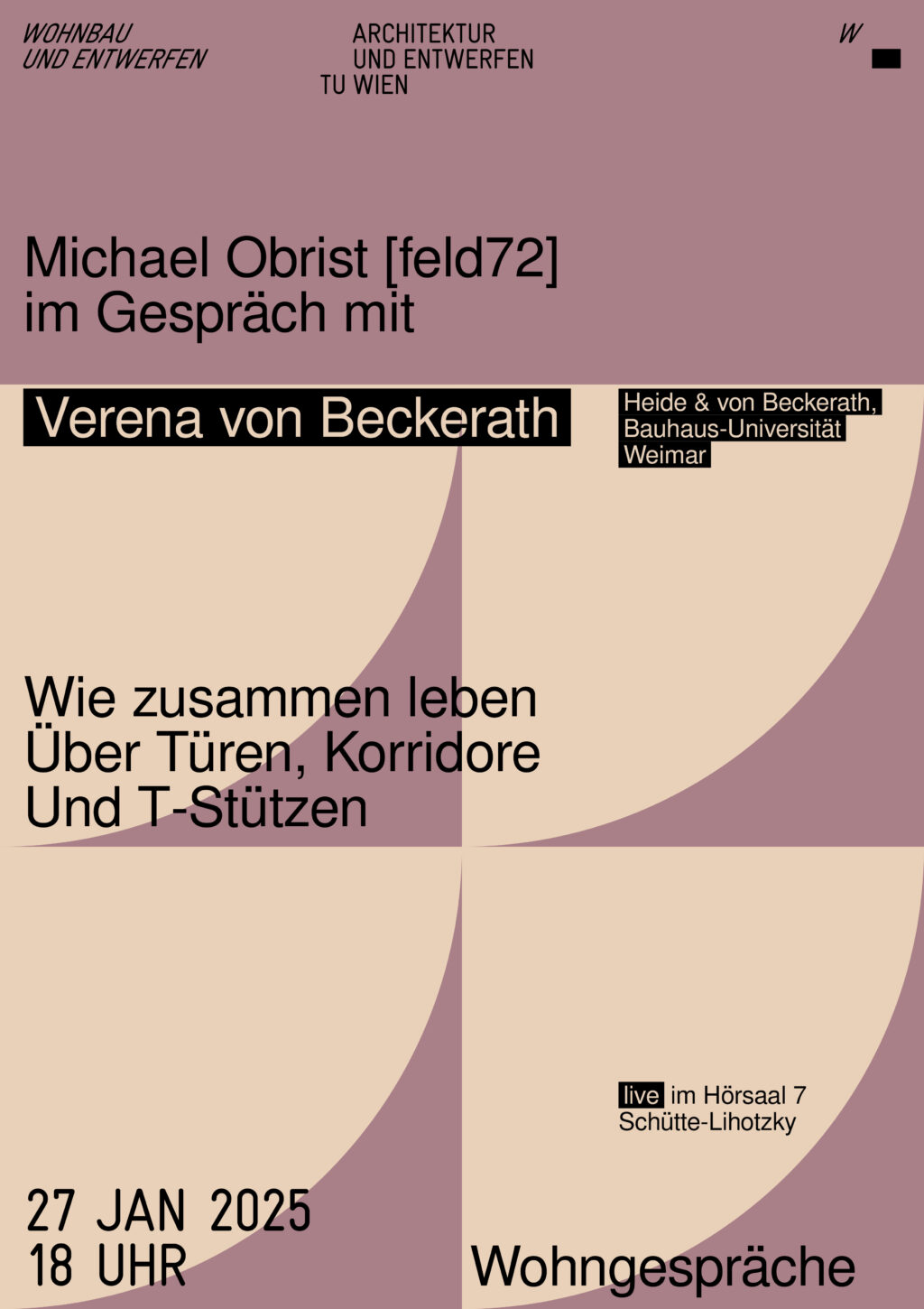
JAN 27, 2026
18:00
HOUSING TALKS:
VERENA VON BECKERATH
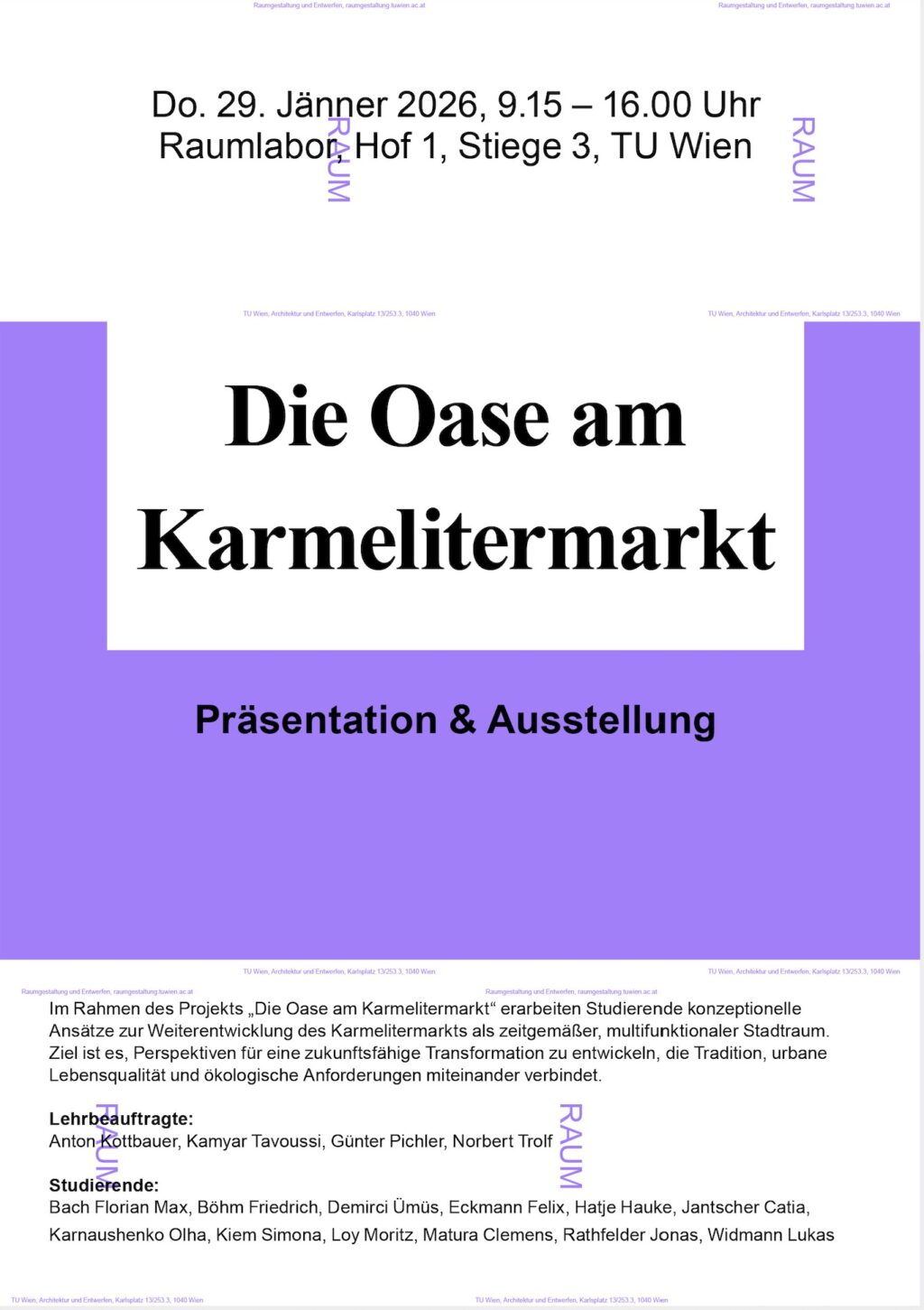
JAN 29, 2026
09:30
PRÄSENTATIONEN UND AUSSTELLUNG:
DIE OASE KARMELITER-
MARKT
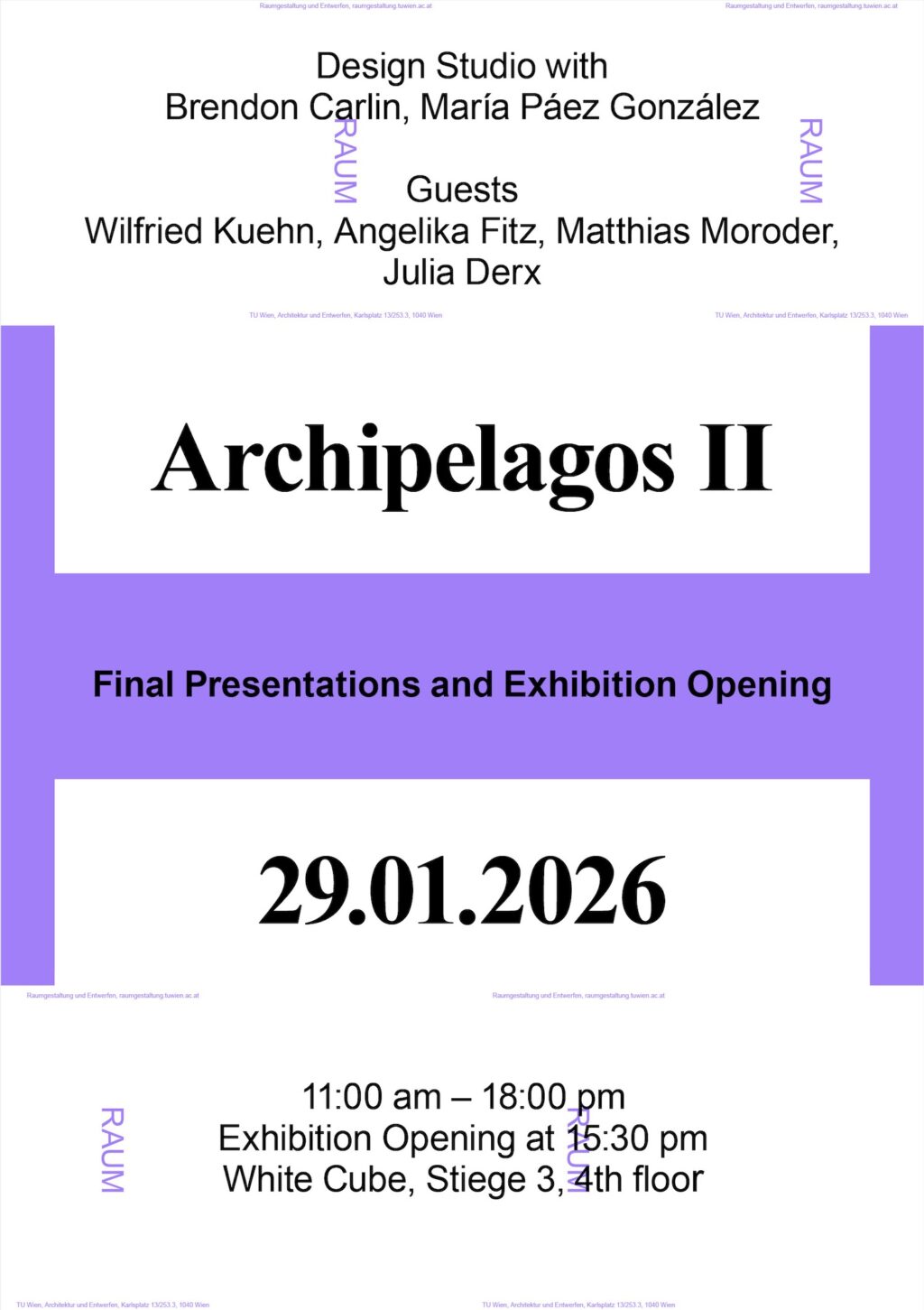
JAN 29, 2026
11:00
PRESENTATIONS AND EXHIBITION: ARCHIPELAGOS II
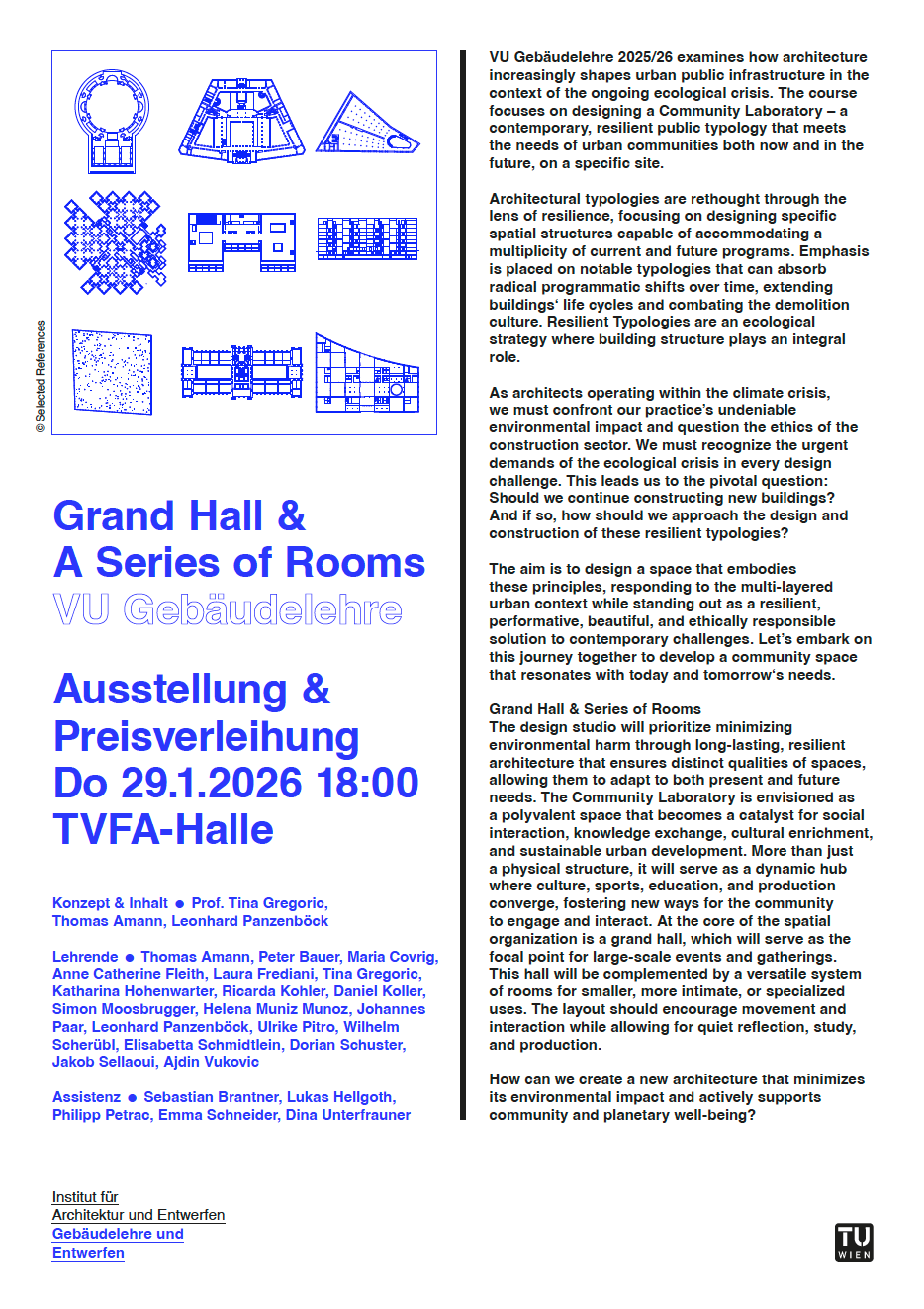
JAN 29, 2026
18:00
EXHIBITION: GRAND HALL & A SERIES OF ROOMS
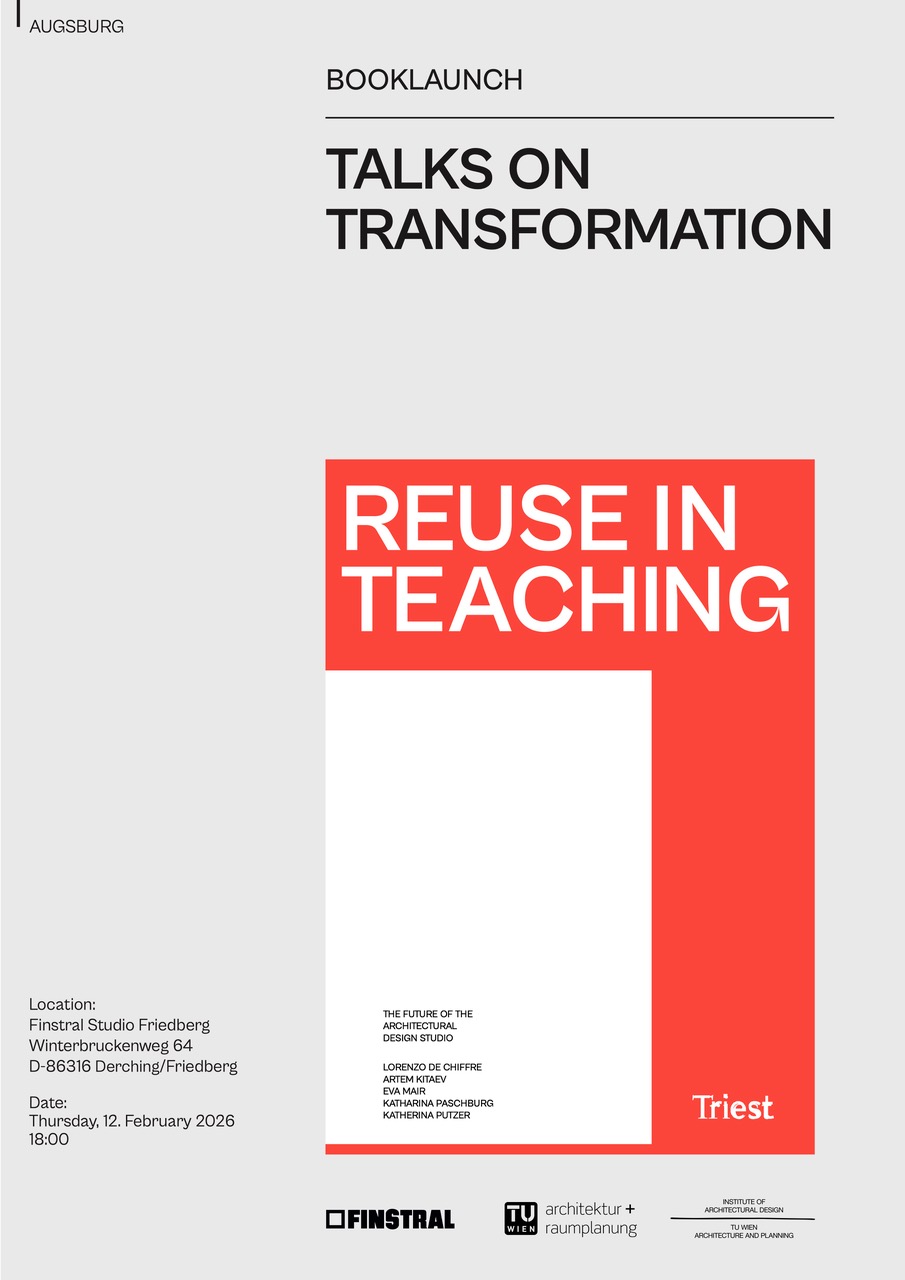
FEB 12, 2026
18:00
BOOK PRESENTATION:
TALKS ON TRANFORMATION
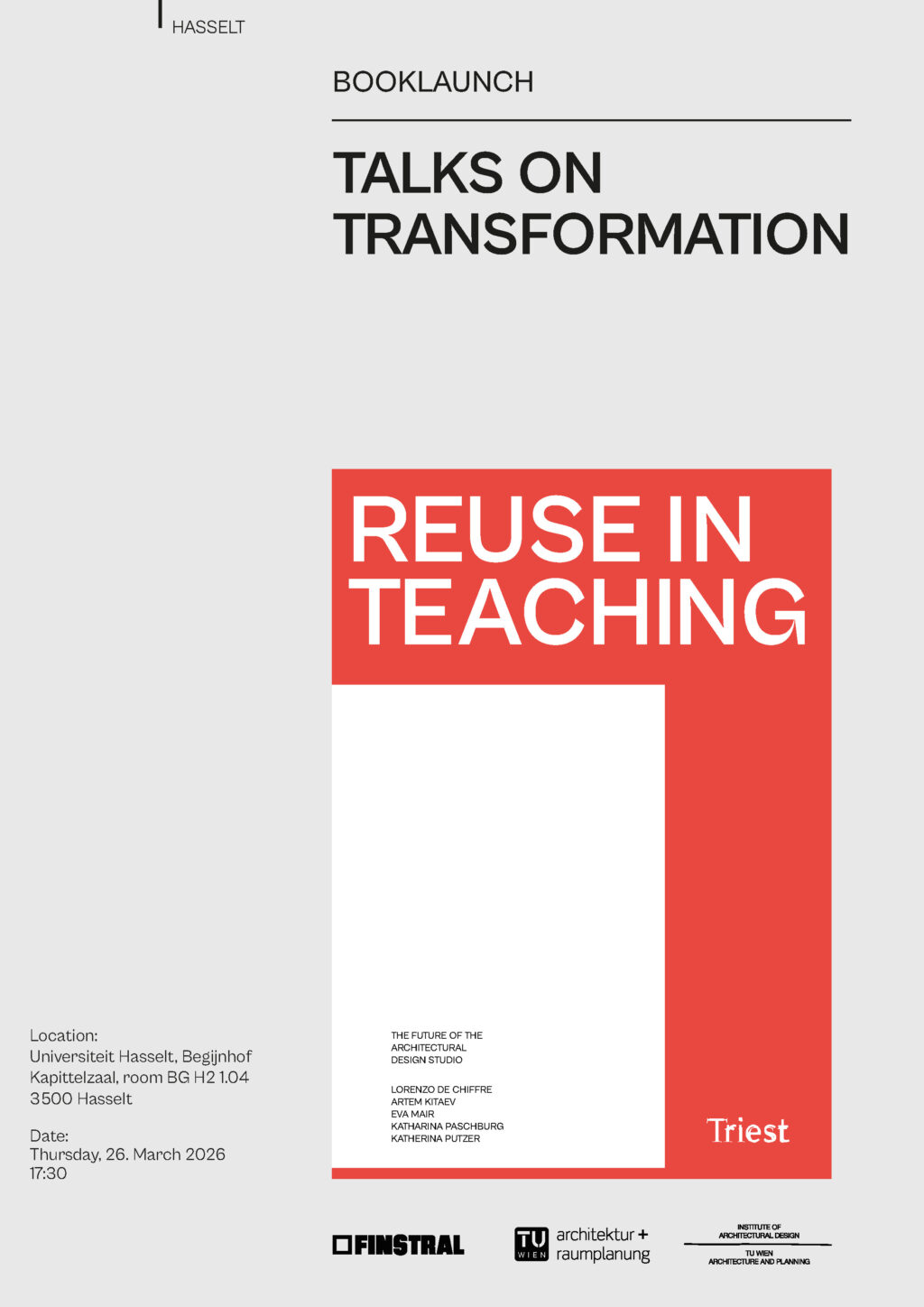
MAR 26, 2026
17:30
BOOK PRESENTATION:
TALKS ON TRANSFORMATION

MATERIAL REUSE STRATEGIES
SYMPOSIUM
THU, 11.5.2023, 18:00 – HÖRSAAL 7, TU WIEN
The symposium aims to showcase a discussion between two leading architectural practices – BC architects & materials & studies and Rotor – which employ material reuse strategies as a fundamental way of practicing architecture. Central to the discussion will be the focus on organisational aspects of each practice, their links to education and a systemic outlook towards new material cultures.
SAME SAME BUT DIFFERENT
BC ARCHITECTS & STUDIES & MATERIALS
by Nicolas Coeckelberghs
About the practice:
BC is BC architects & studies & materials. BC stands for Brussels Cooperation and points to how BC grew – embedded within place and people. We operate through 3 legal entities registered in Belgium: BC architects bv (architecture company), BC studies vzw (non-profit education laboratory), BC materials cv (material production cooperative). BC is a hybrid practice, designing and undertaking „acts of building“ towards systemic change in the construction sector. We strive for bioregional, low-tech, circular, beautiful and inclusive design. We work with our minds and our hands, undertaking activities such as community organisation, material production, contracting, teaching, prototyping. We aim to impact positively on people’s ideas and planet. We act on behalf of the generations after us.
About the speaker:
Nicolas Coeckelberghs is an architect and a co-founder of BC architects & studies & materials – he graduated from the international master of architecture of Sint-Lucas Brussels, as well as a postmaster in earthen architecture at CRAterre in Grenoble. Nicolas is also lecturer at the Faculty of Architecture & Arts of Uhasselt since 2015.
www.bc-asm.org
www.instagram.com/bcmaterials_org
www.instagram.com/bcarchitectsandstudies
THE 99 PERCENT
ROTOR
by Victor Meesters
About the practice:
Founded in Brussels in 2005, Rotor is a multidisciplinary association specialized in material flows and reuse strategies. Rotor fosters the debate on questions related to resources, waste and obsolescence in the building sector through applied research projects, exhibitions, conferences and publications. Representing Belgium at the 12th International Architecture Exhibition of the Venice Biennial in 2010, their exhibition Usus/Usures explored wear as a reaction to use and a potentially creative architectural process. In 2013 they curated the Oslo Architecture Triennale, including a vast exhibition on the challenges facing ’sustainable’ architecture today, Behind the Green Door. In parallel with these exhibition projects, Rotor continued to realize various design projects, often interventions in existing architecture. This work has its equivalent in a growing series of deconstruction projects in which Rotor Deconstruction, a separate, spin-off entity created in 2014, oversees the dismantlement of building components, in buildings slated for demolition, for reuse purposes. In 2015, Rotor’s work was rewarded with the Global Award for Sustainable Architecture, awarded under the patronage of UNESCO. Since January 2019, Rotor is leading an Interreg NWE project entitled FCRBE – Facilitating the circulation of reclaimed building elements in Northwestern Europe which aims to increase 50% of reused element circulation within the construction sector. Rotor and Rotor DC are currently established in Brussels, collectively employing around 35 people.
About the speaker:
Victor Meesters is a French architect who lives and works between Brussels and Paris. He joined Rotor in 2014, where he mainly leads research projects, consultancy missions, supervises reclamation operations and coordinates design and build of exhibitions. Since 2018, Victor is involved with Rotor in a European program (Interreg FCRBE : Facilitating the Circulation of Reclaim Building Elements) and teach design at the Ecole National Supérieure des Arts décoratifs de Paris. To his initial education (architecture and life sciences and technologies), Victor has added professional experience with architects and craftsmen in France and Japan, notably with Onco-Sousin in Nara (JP), and the Atelier International du Grand Paris (FR). In addition to his investment at Rotor, Victor is developing a freelance interior, scenography and carpentry practice. He is also a founding member of the association Le Sixième Continent, which explores the mutations of architectural practice in relation to social and cultural issues.
www.rotordb.org
www.rotordc.com
www.instagram.com/rotor_brussels
www.instagram.com/rotordc